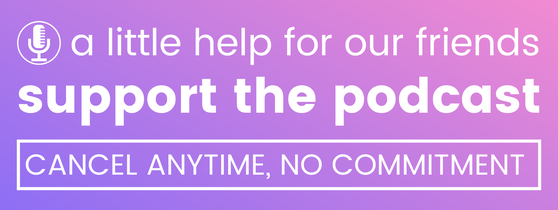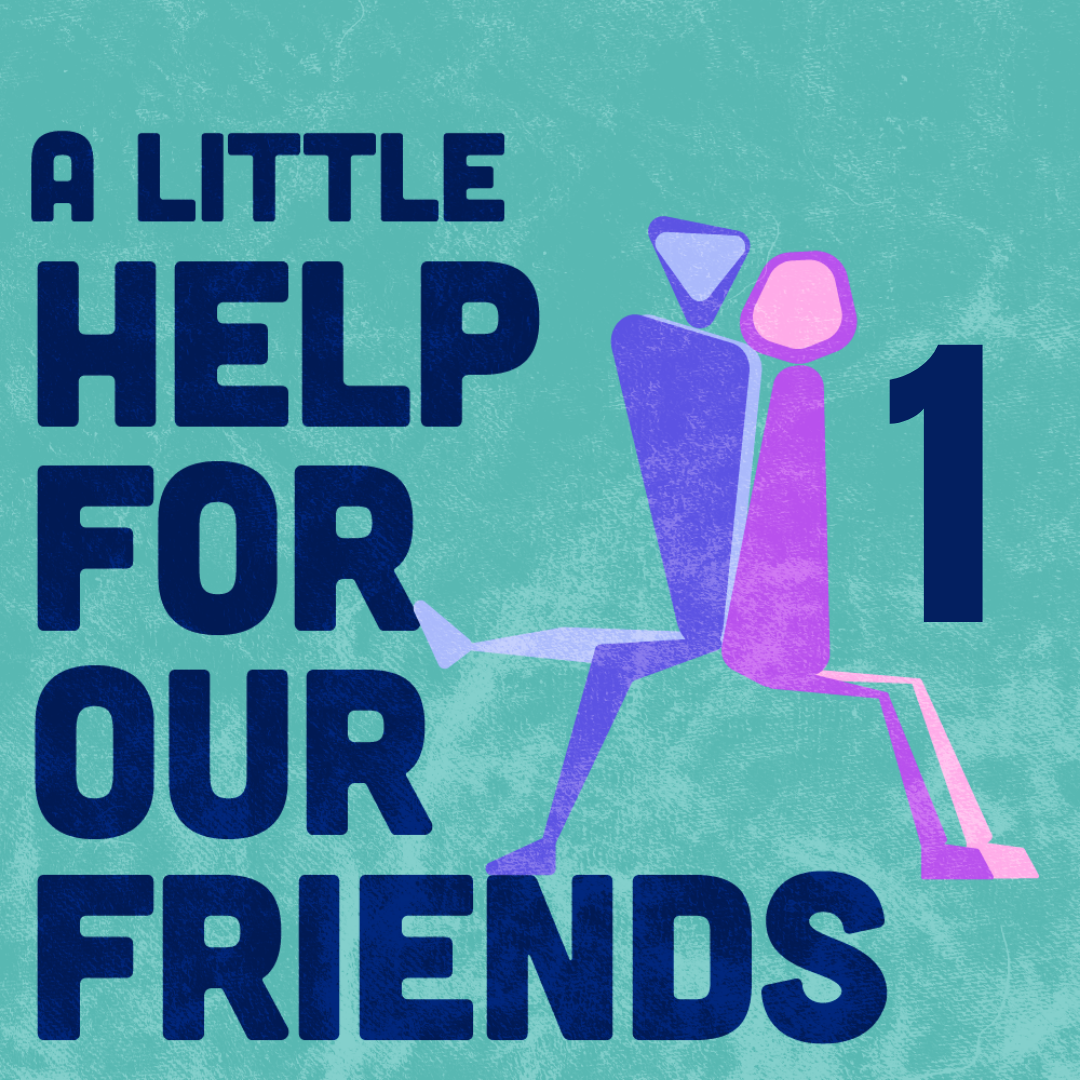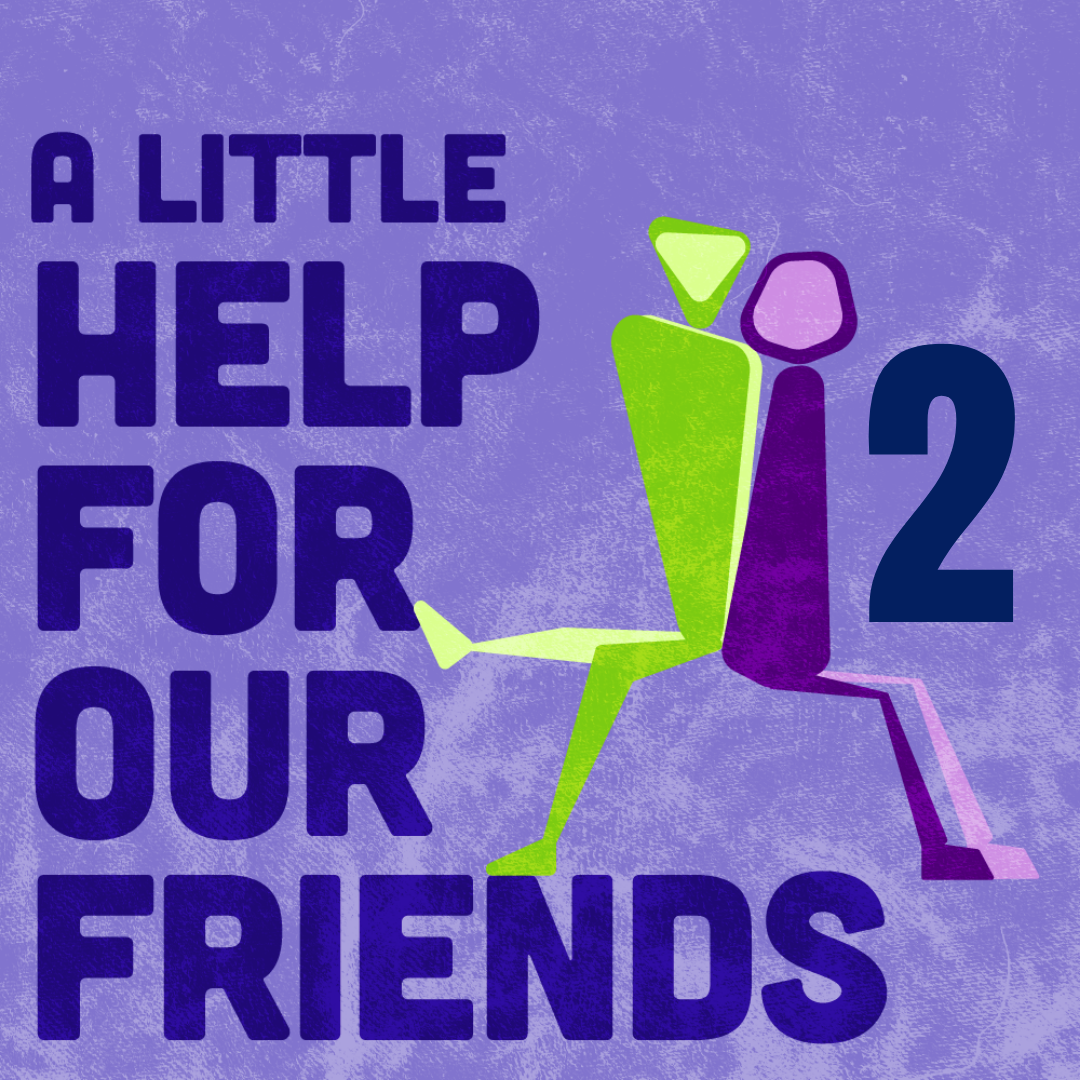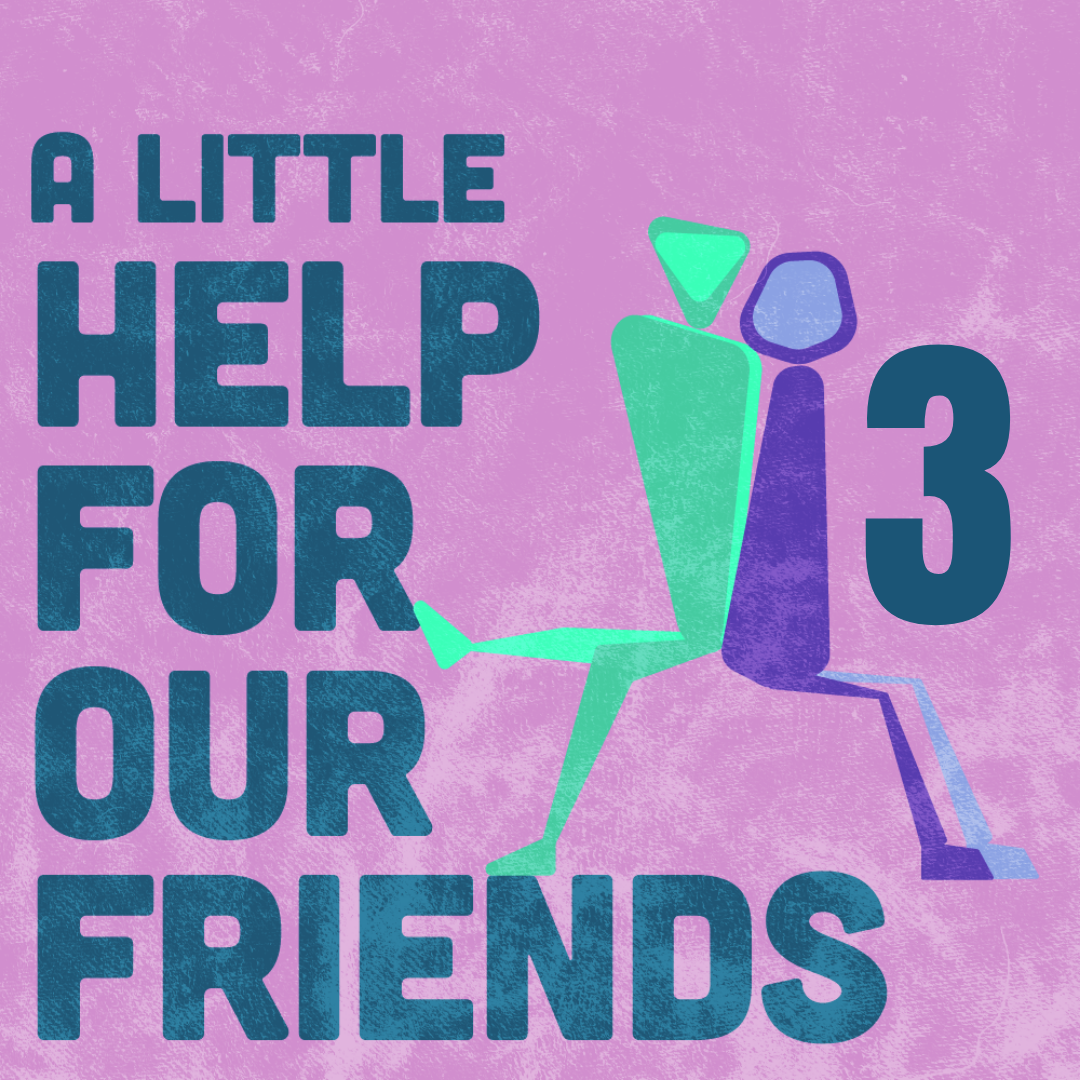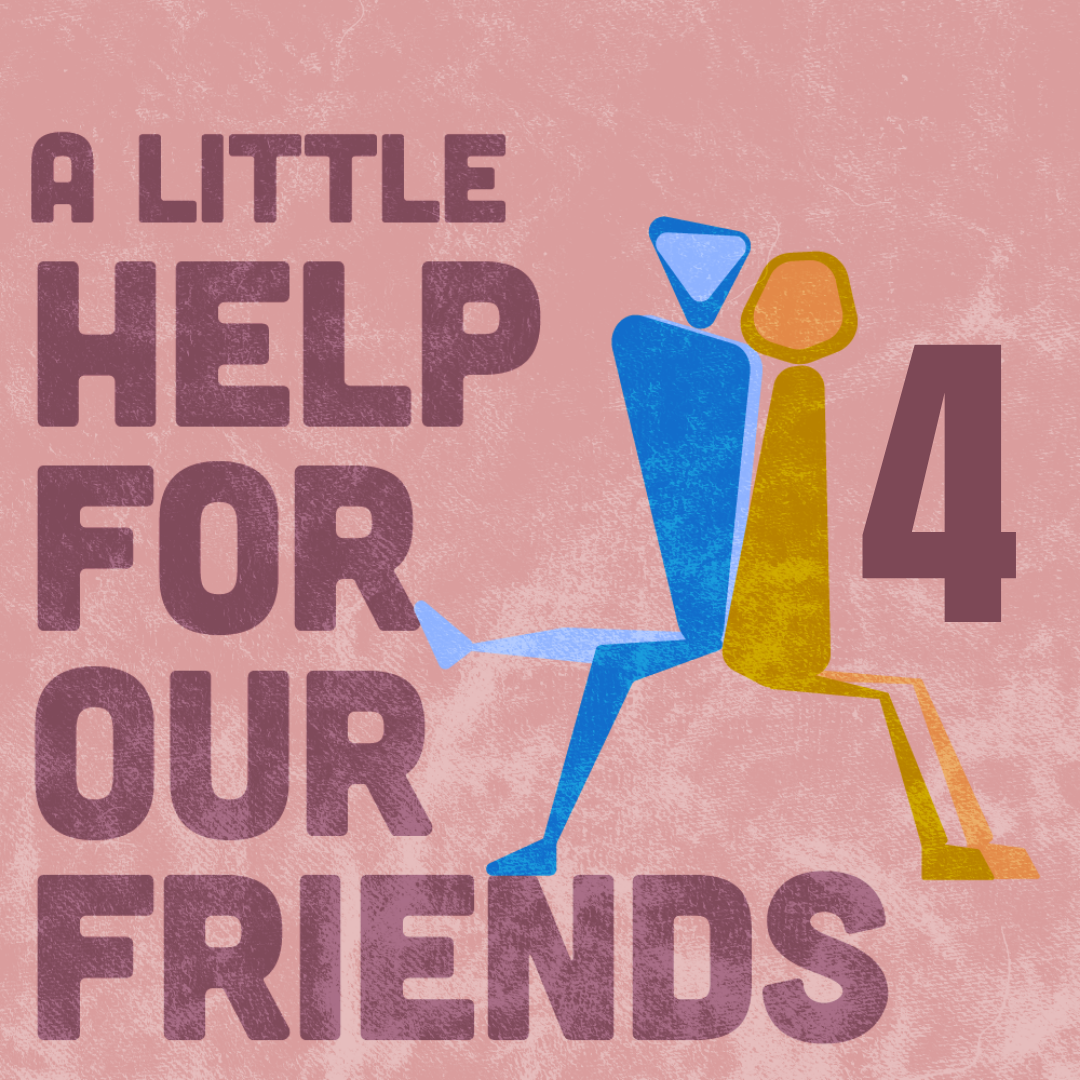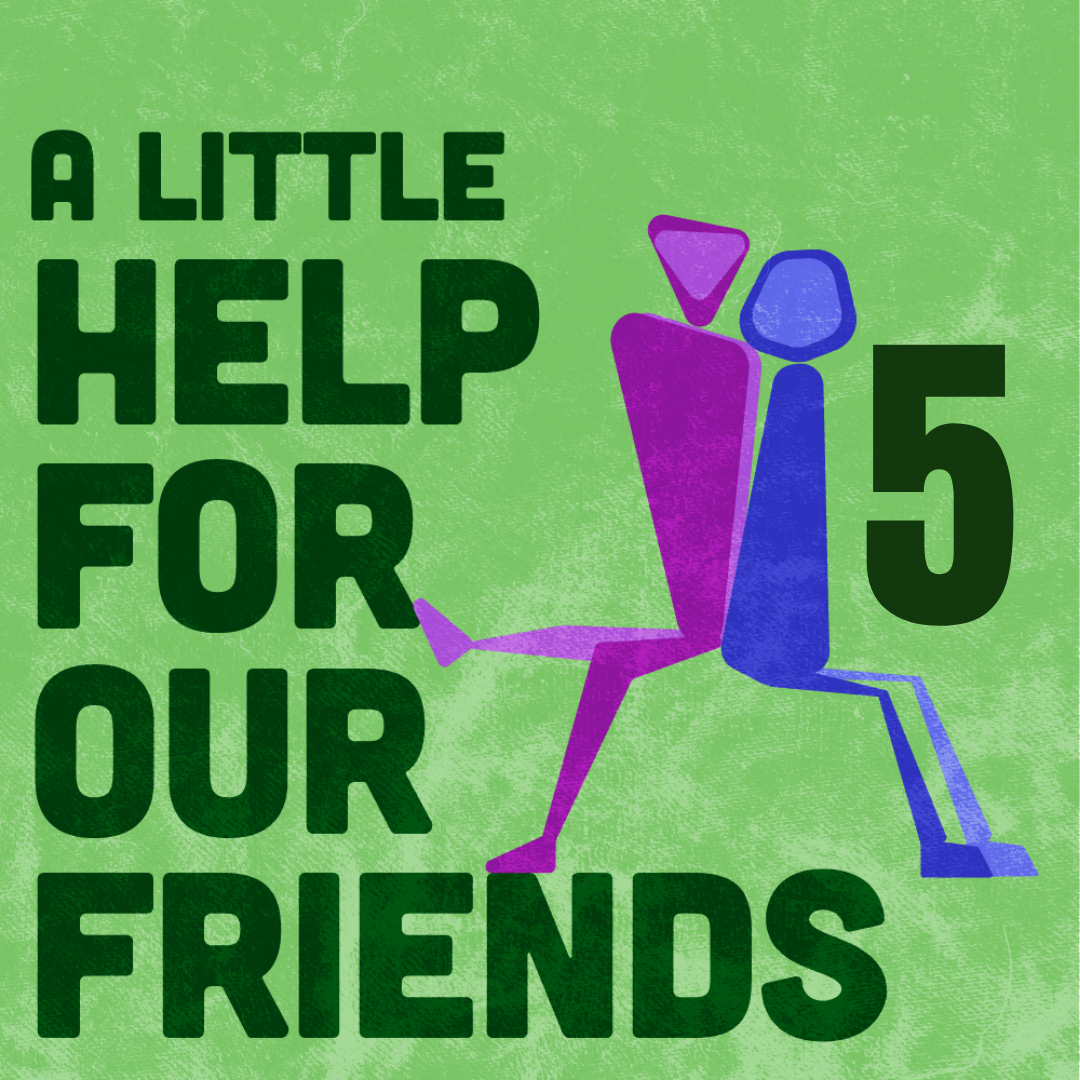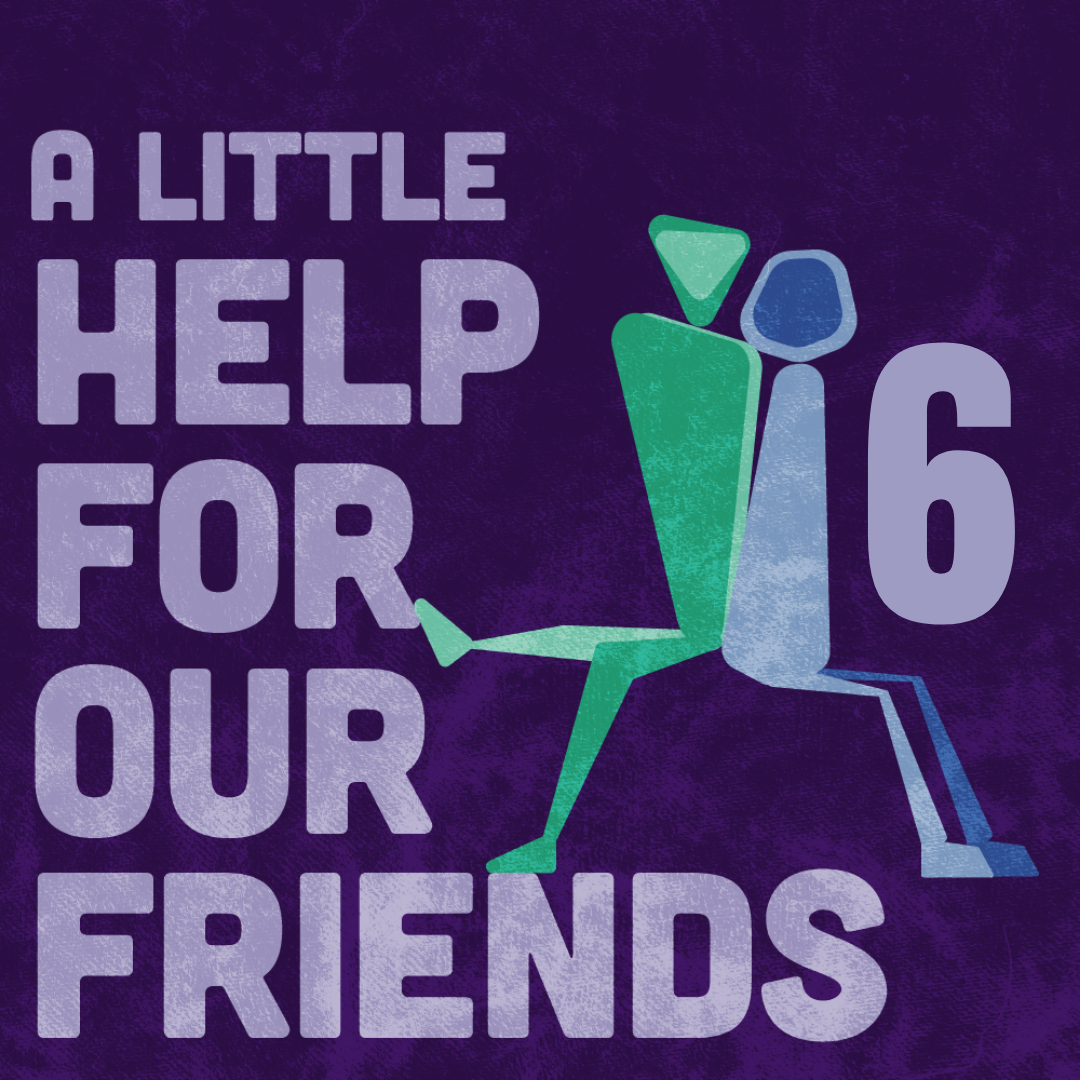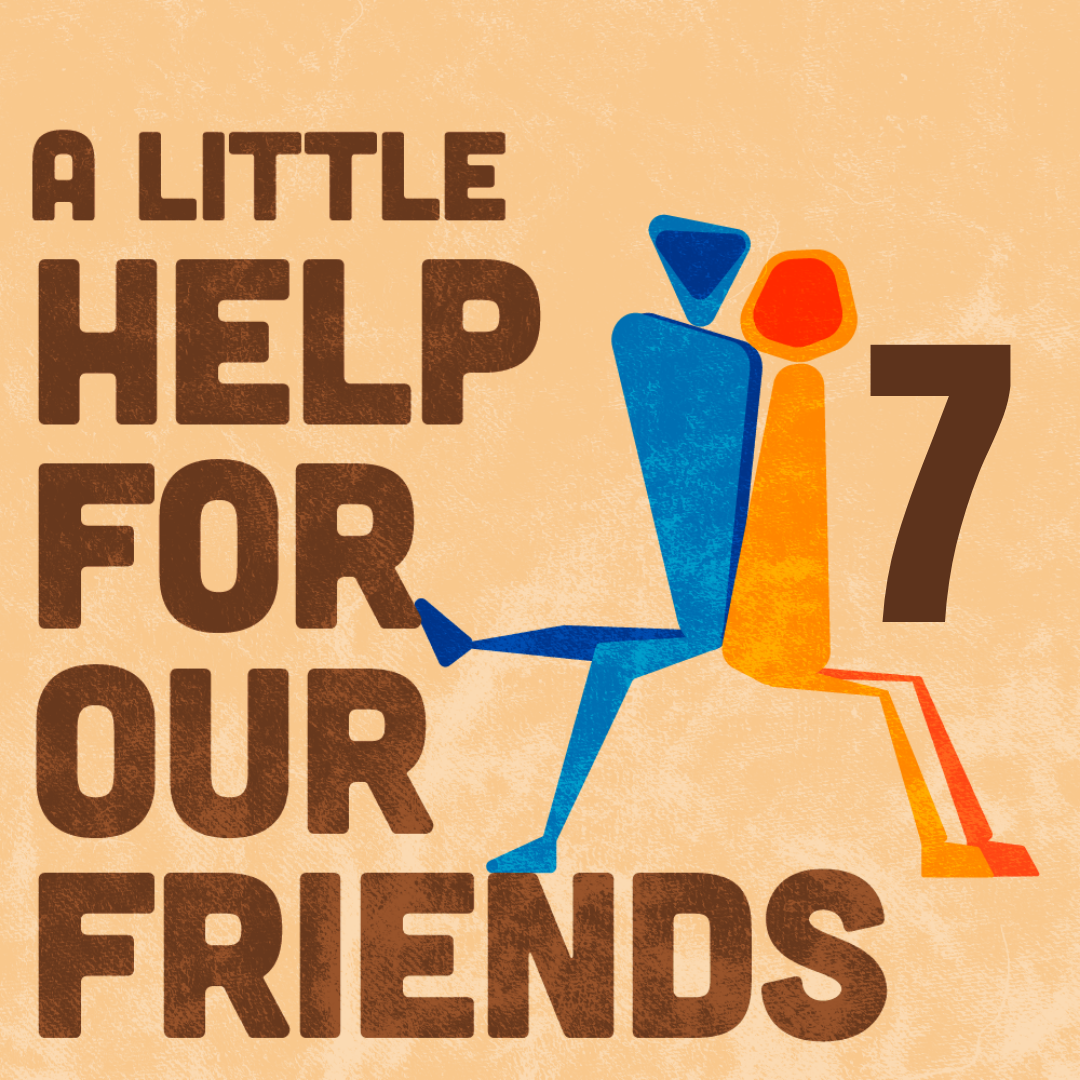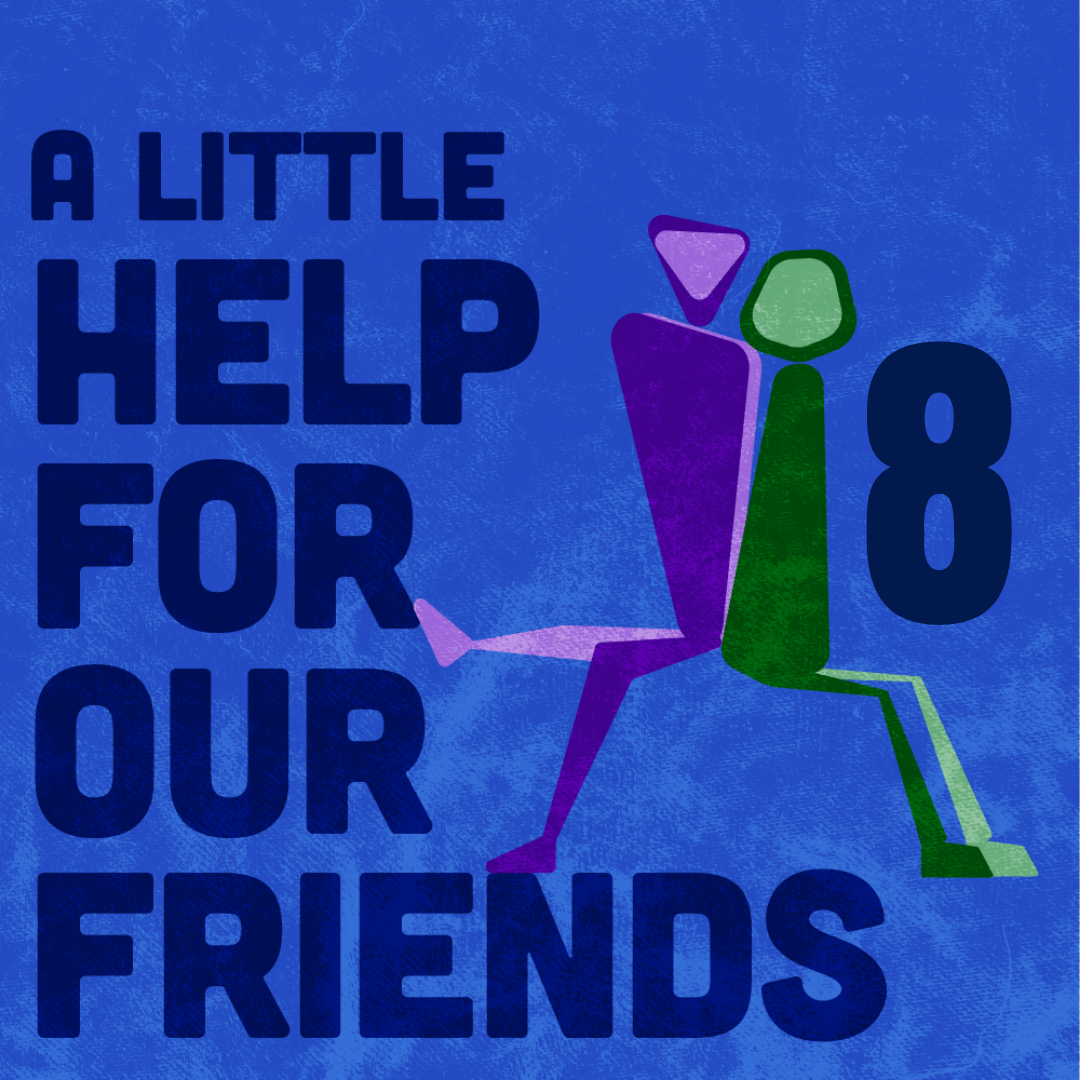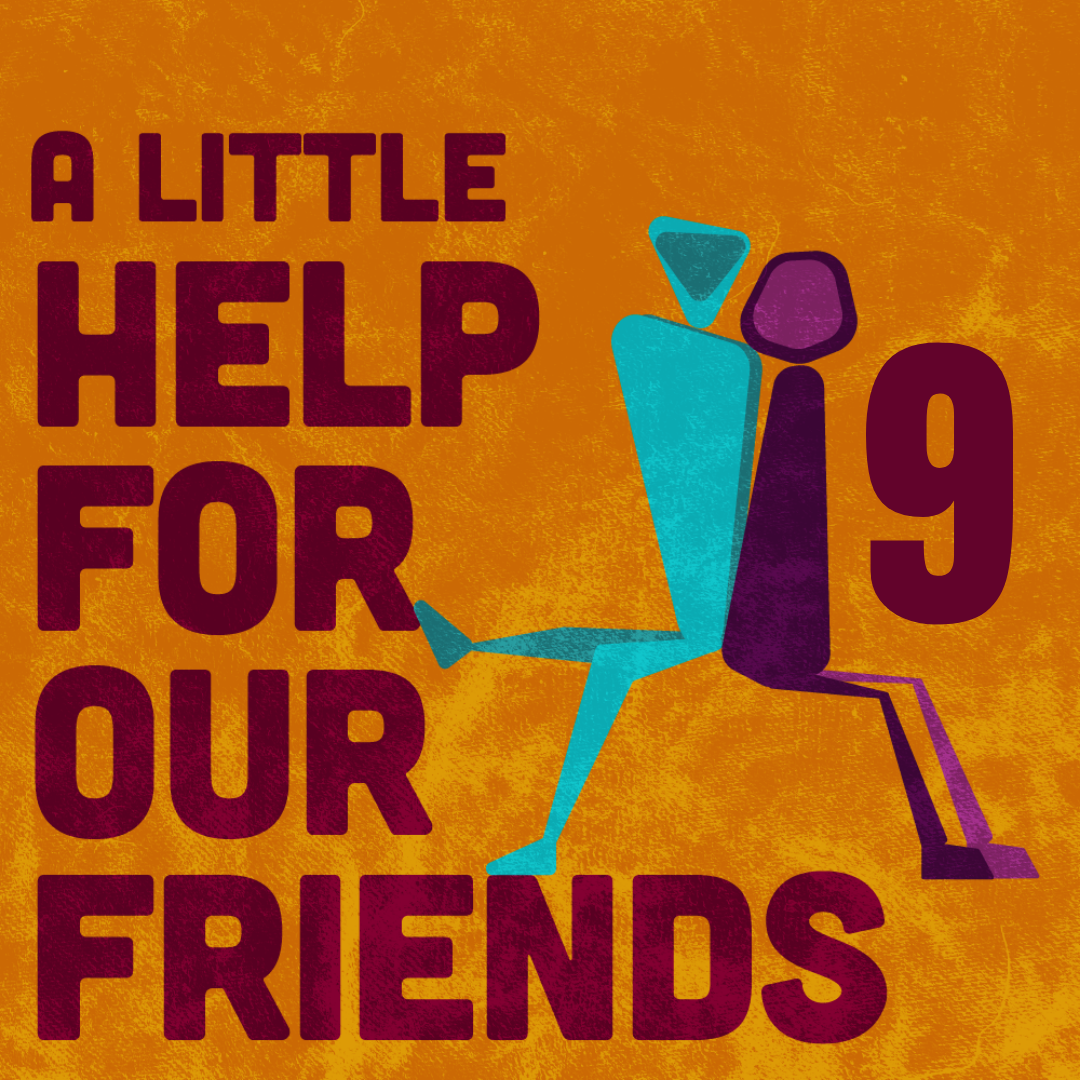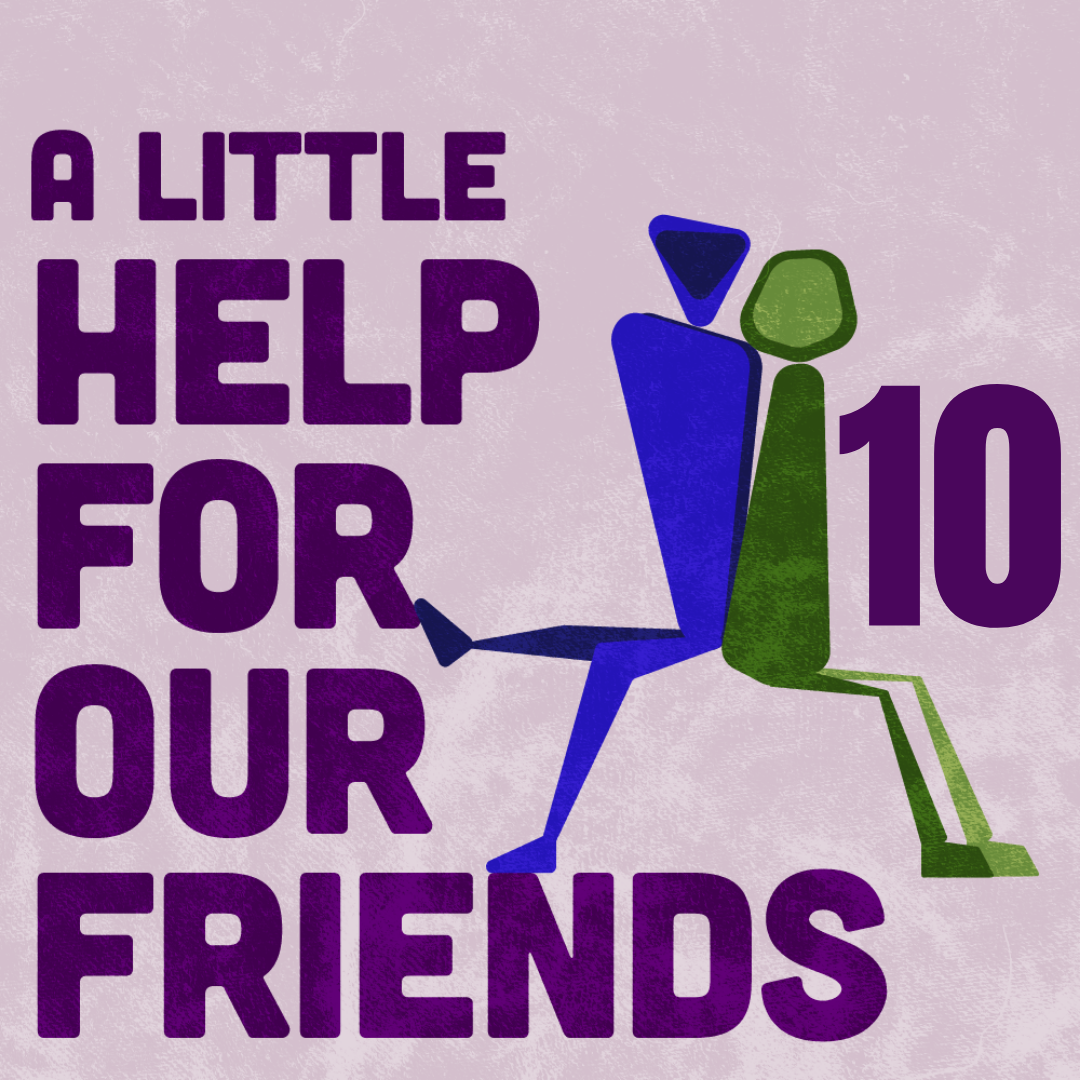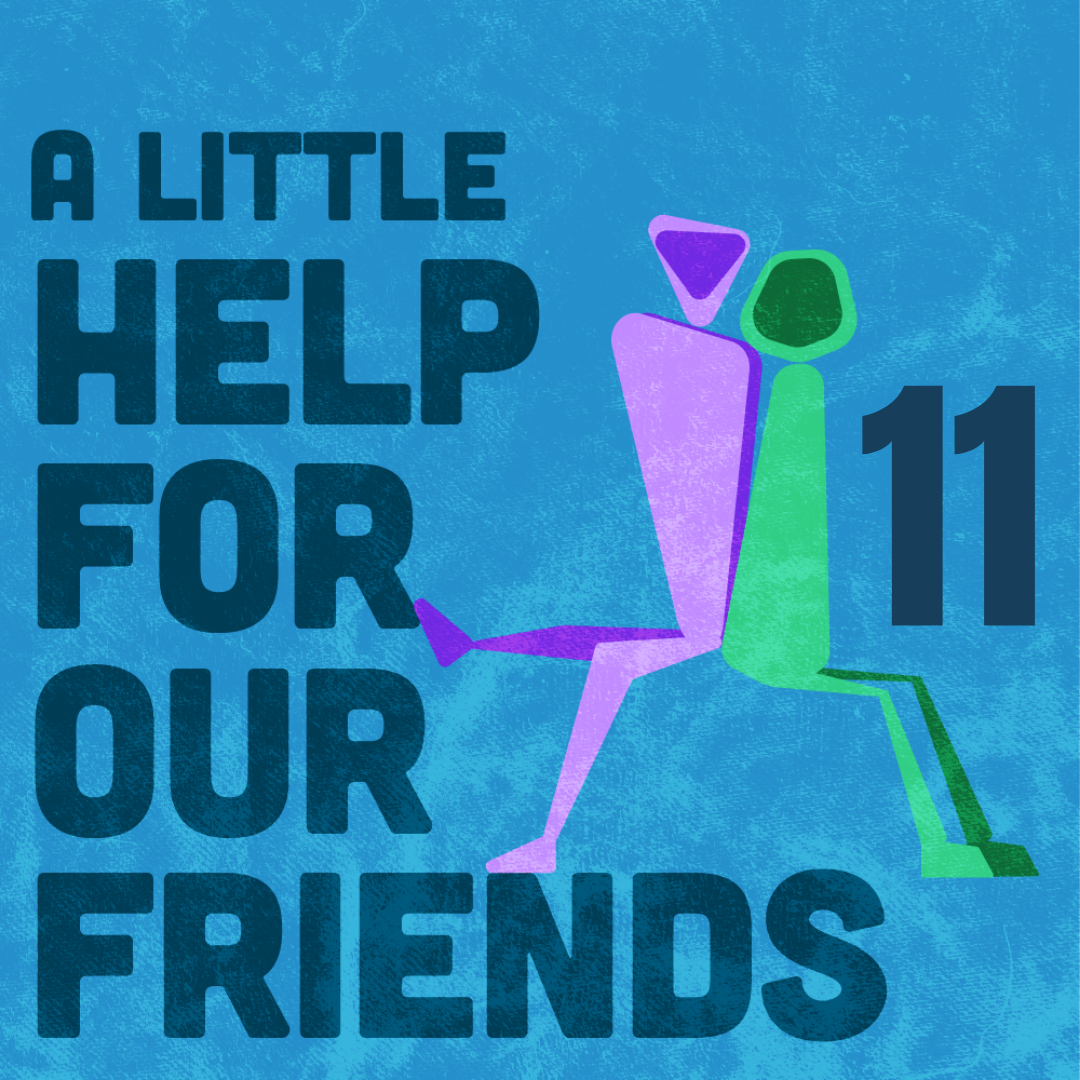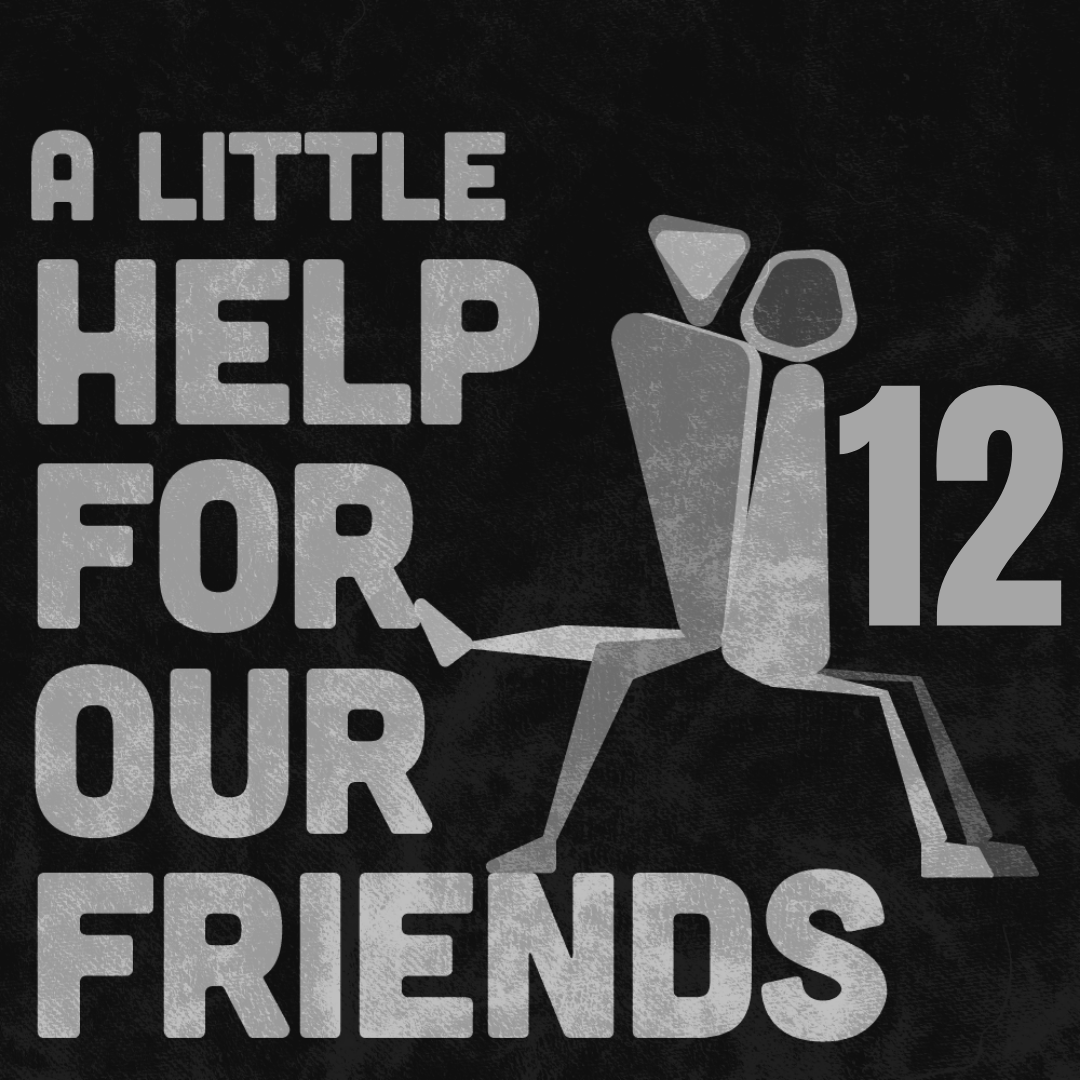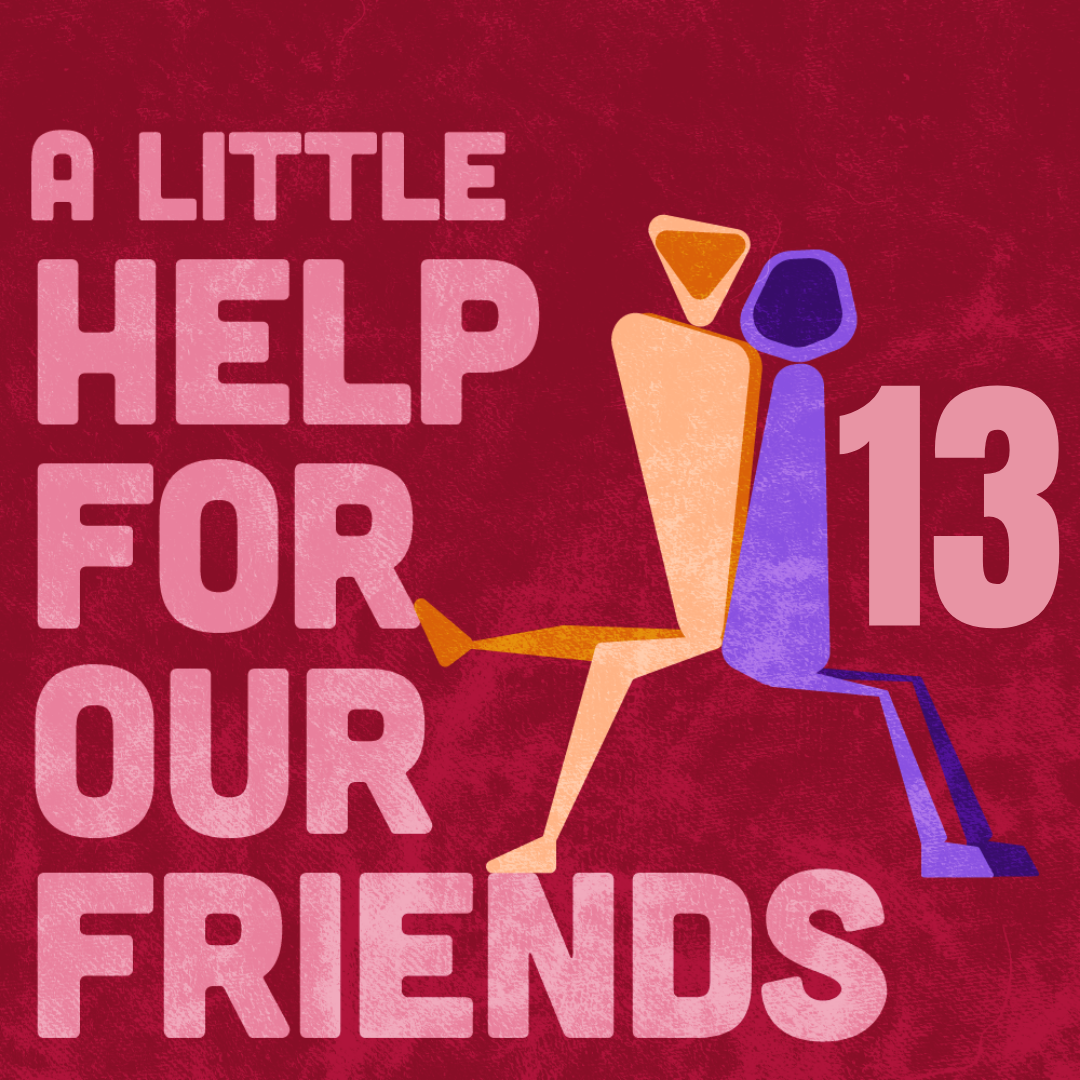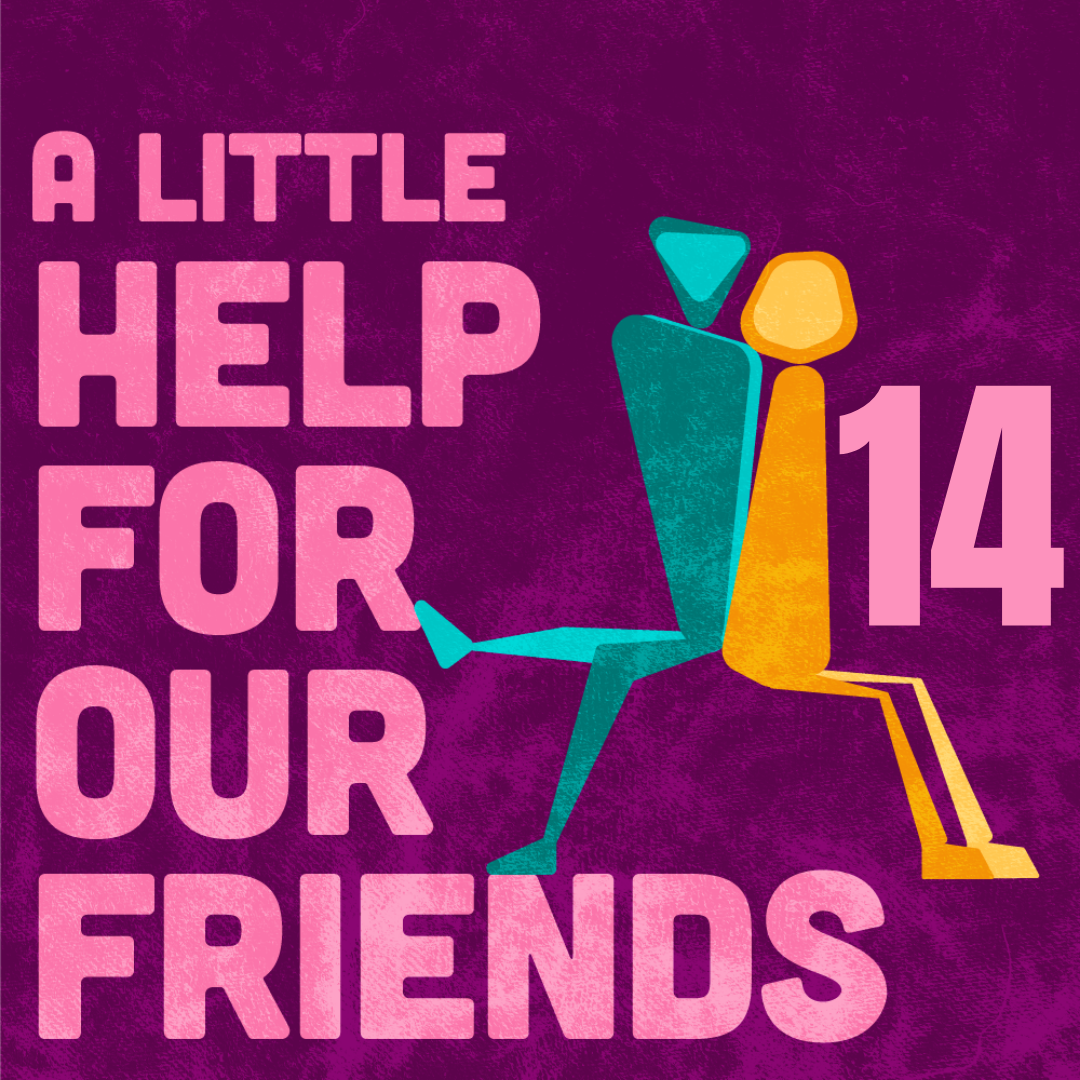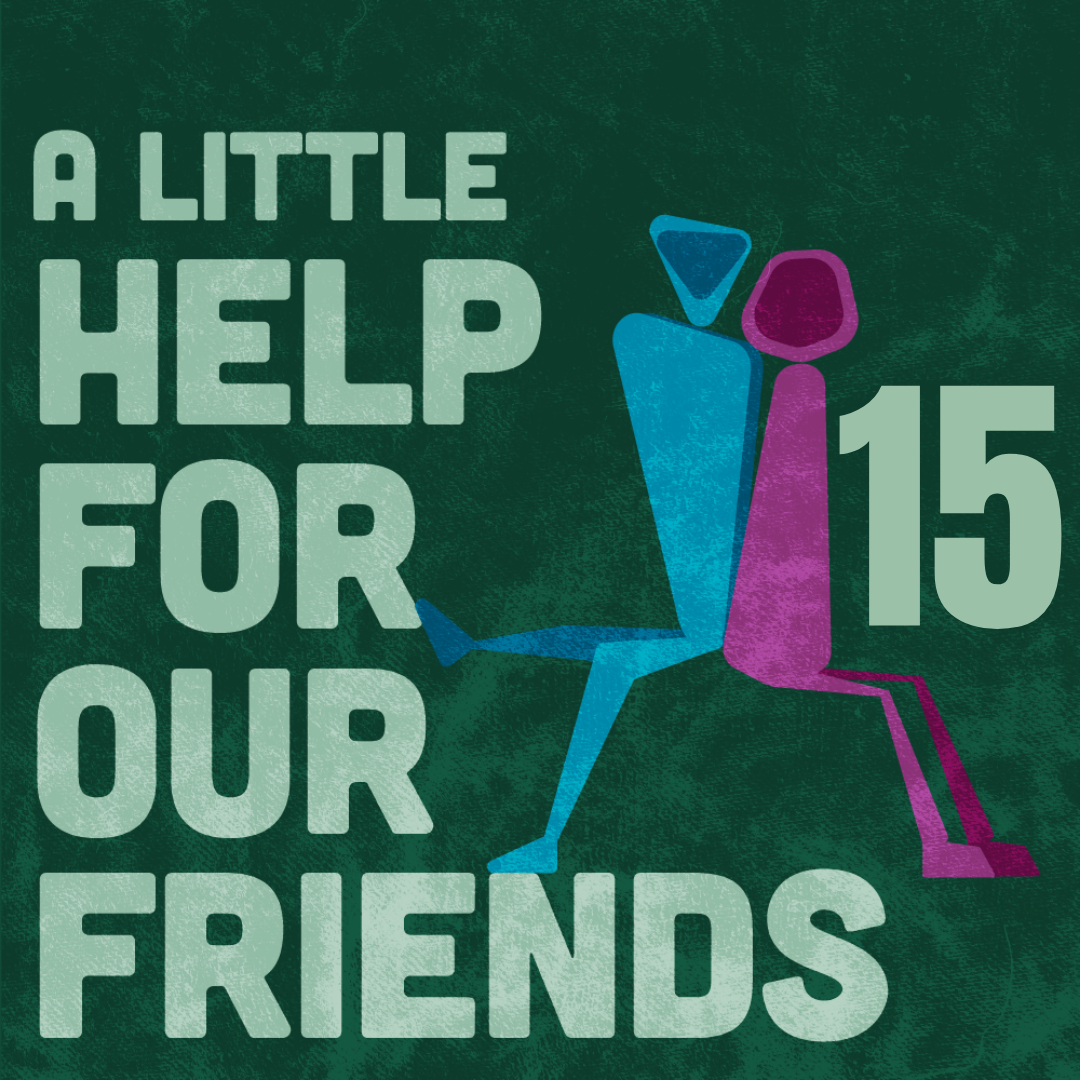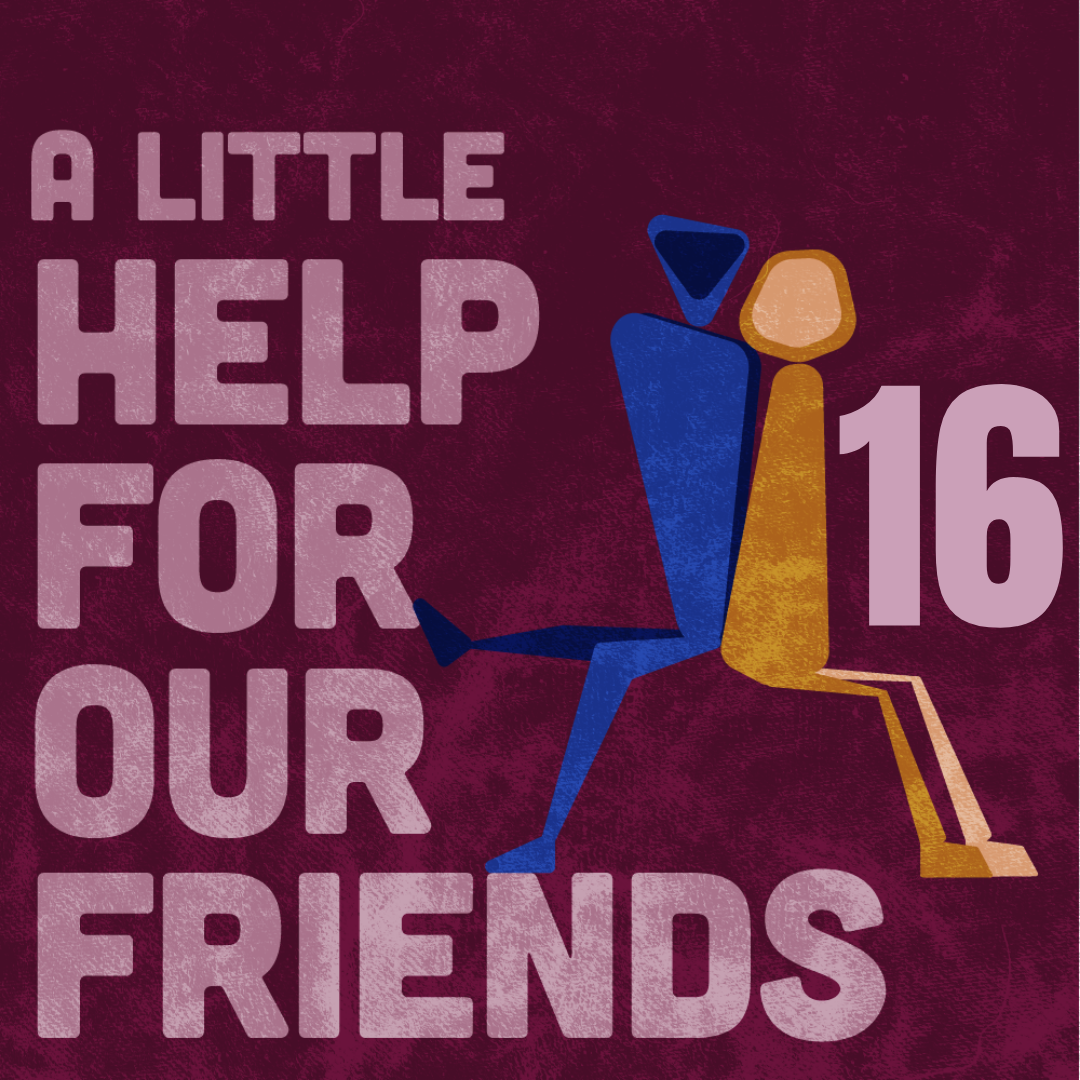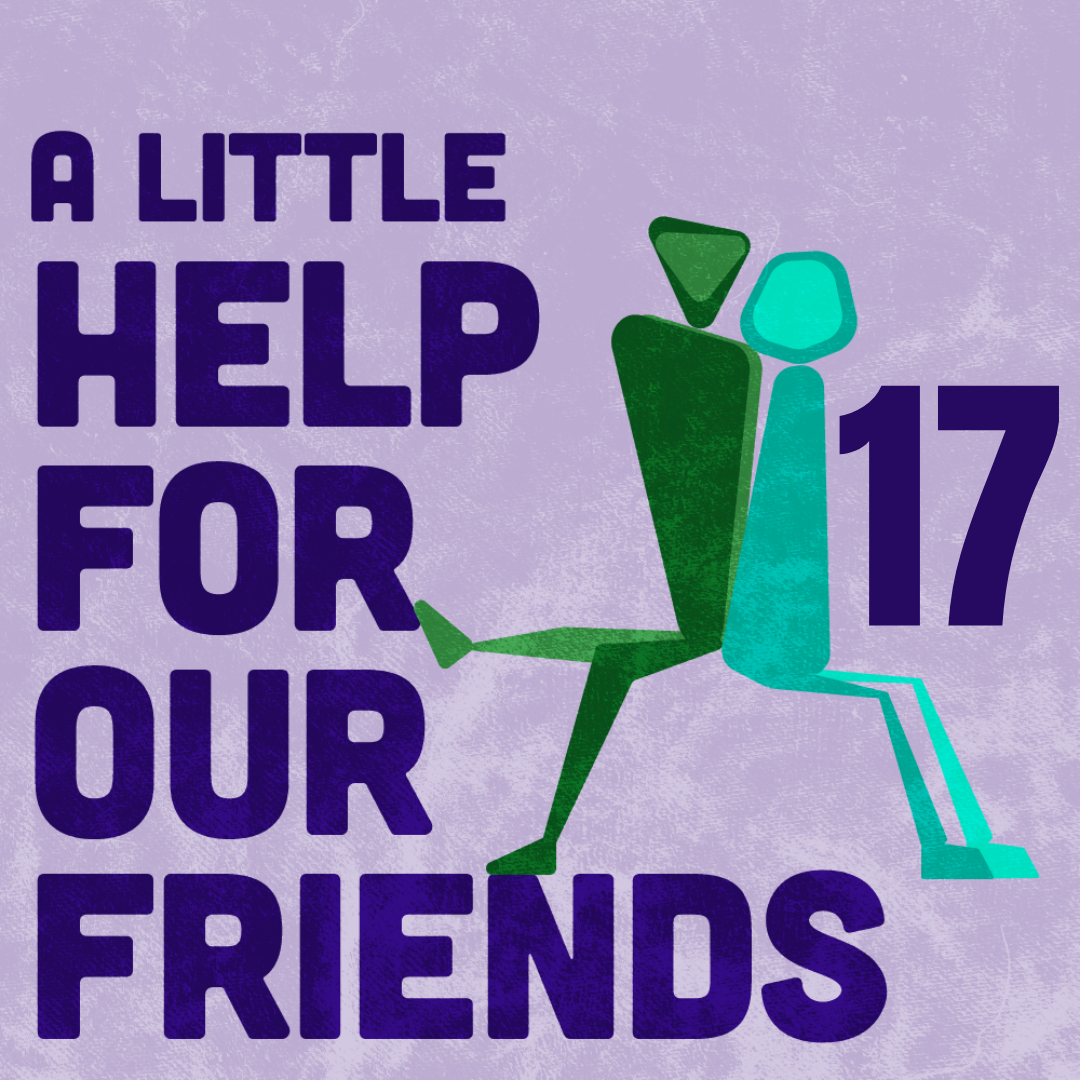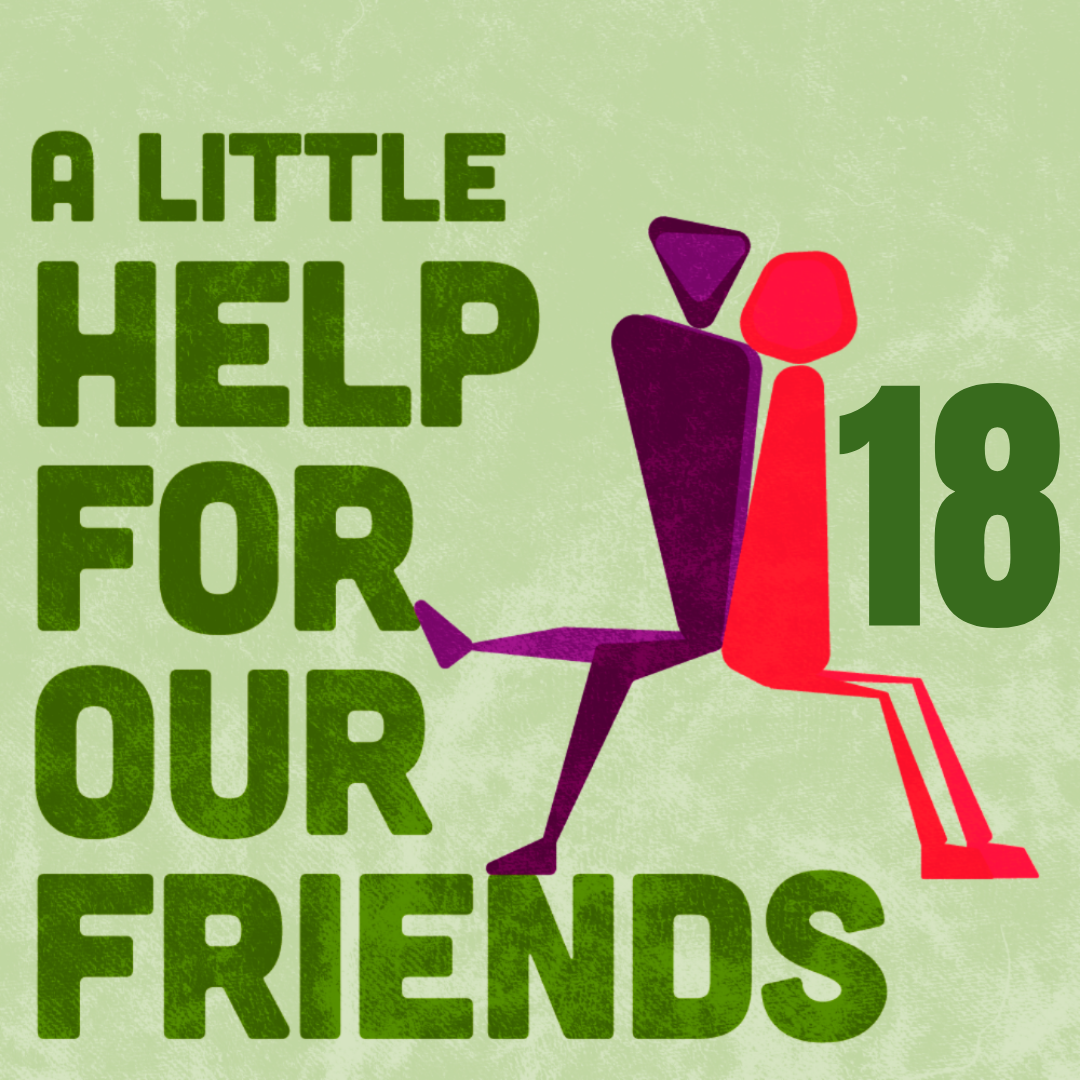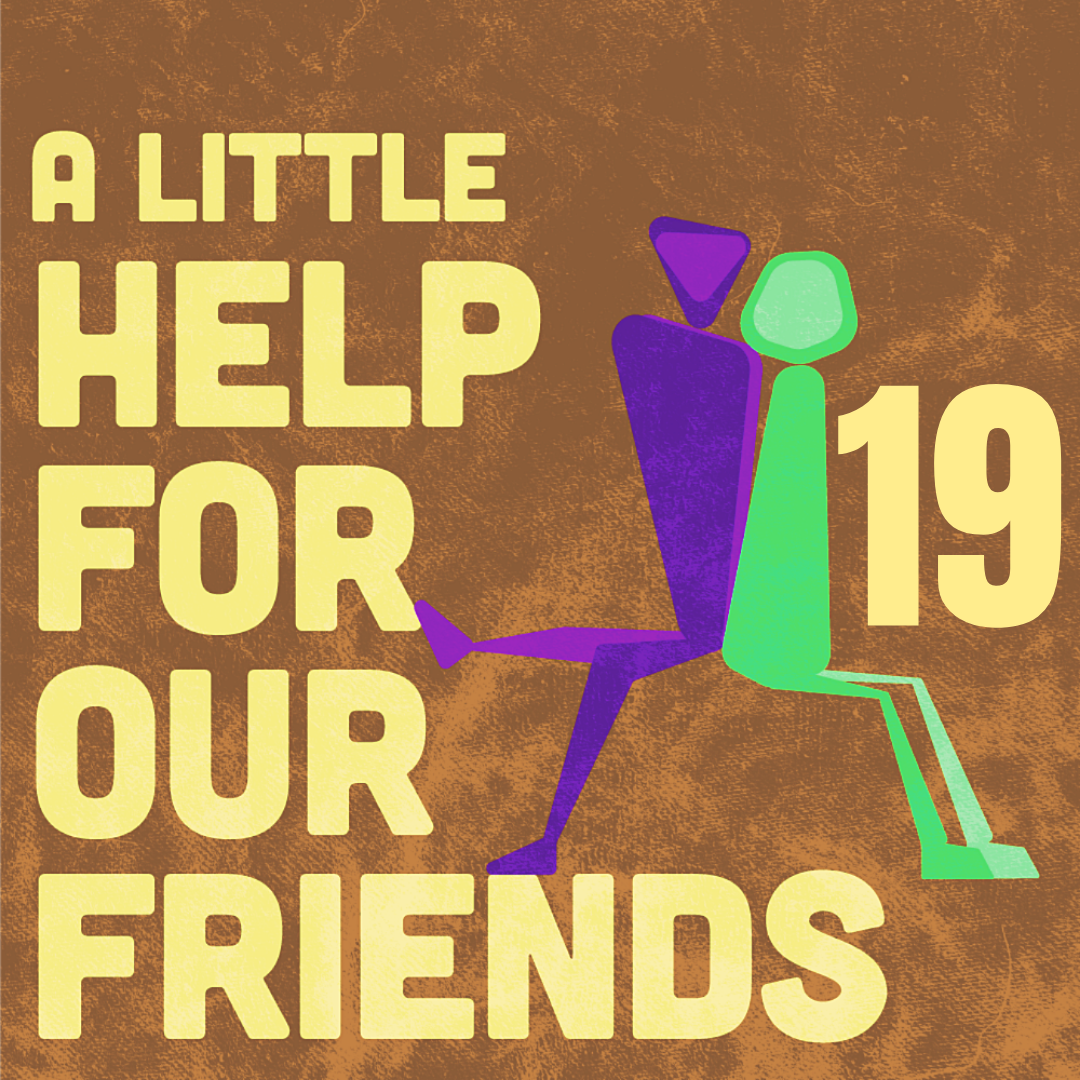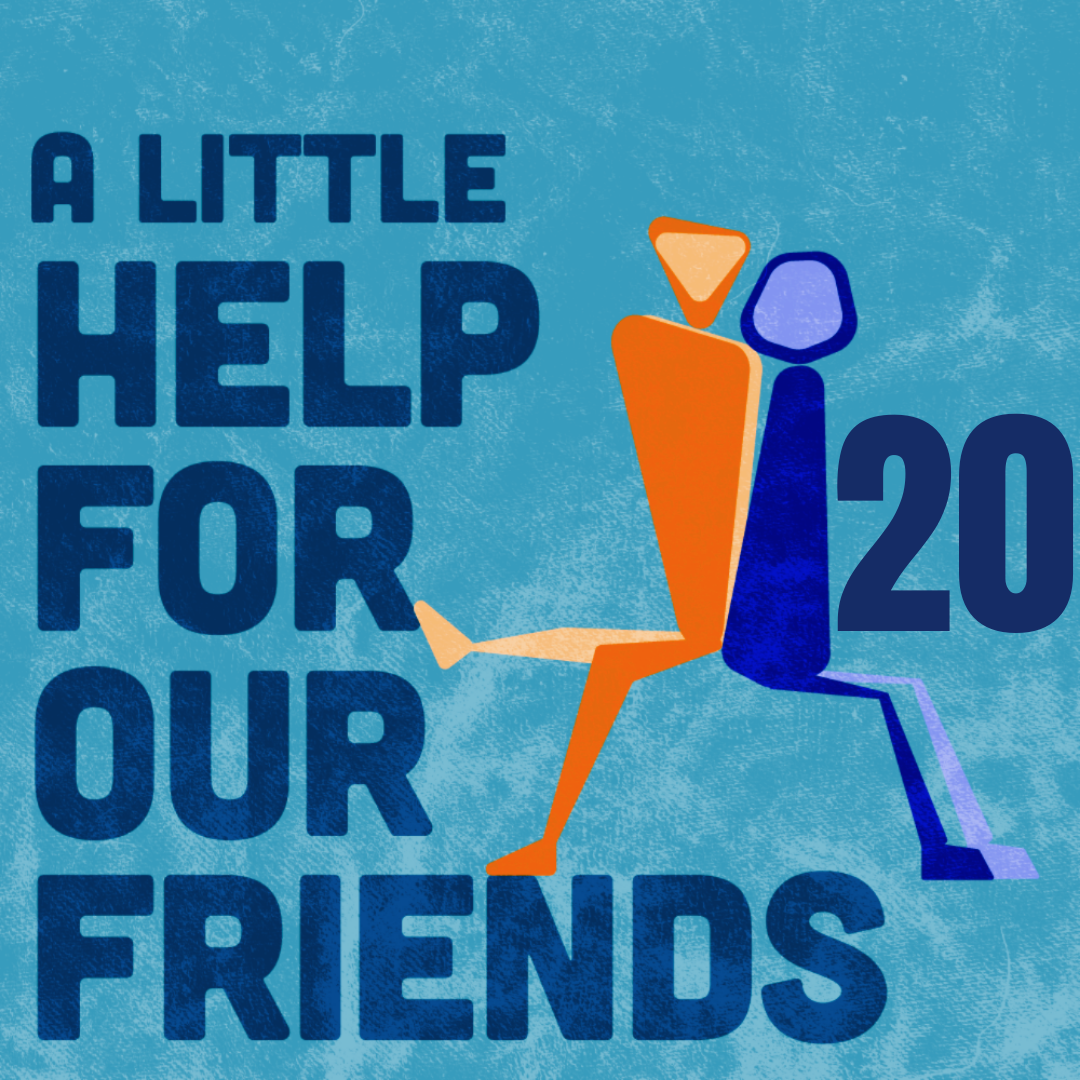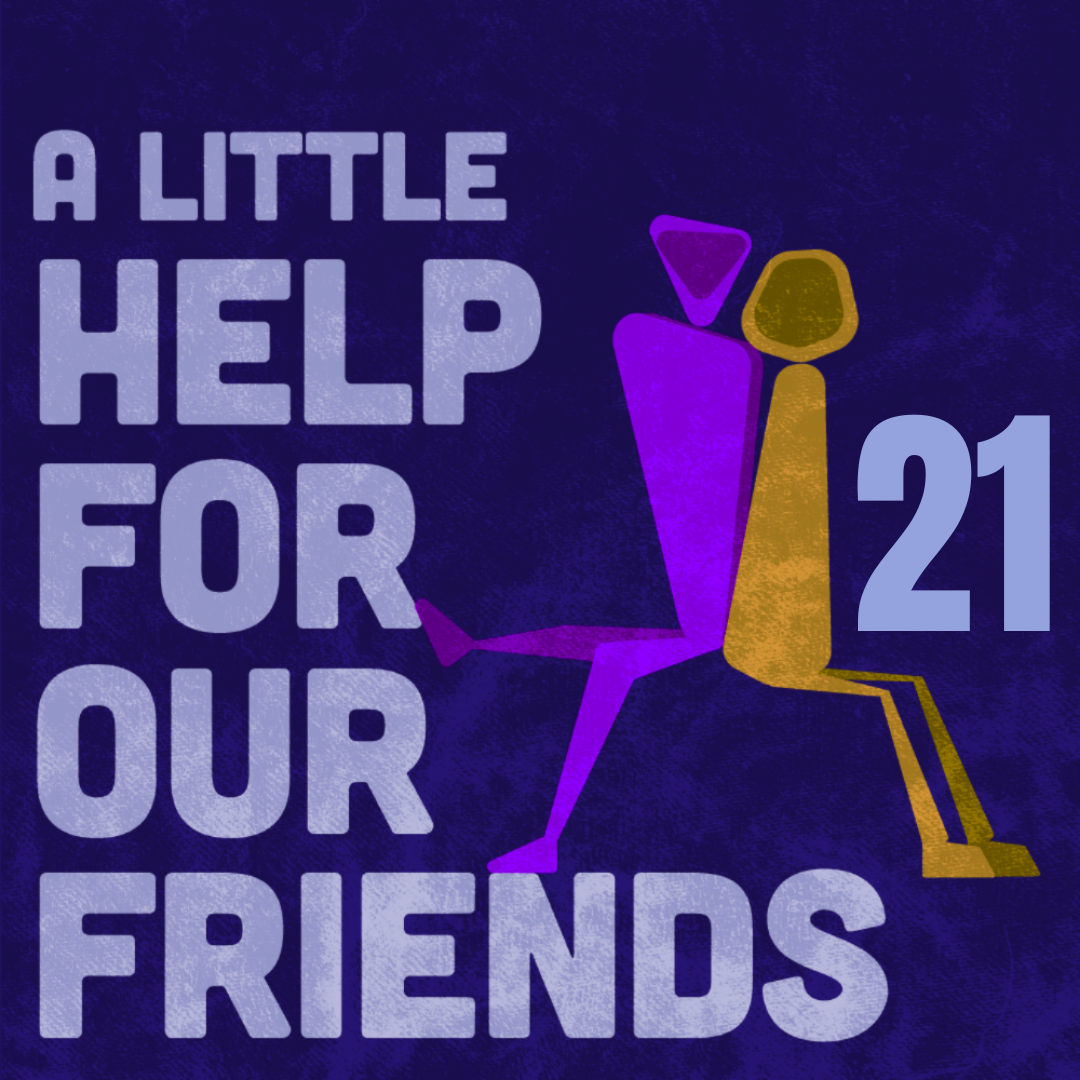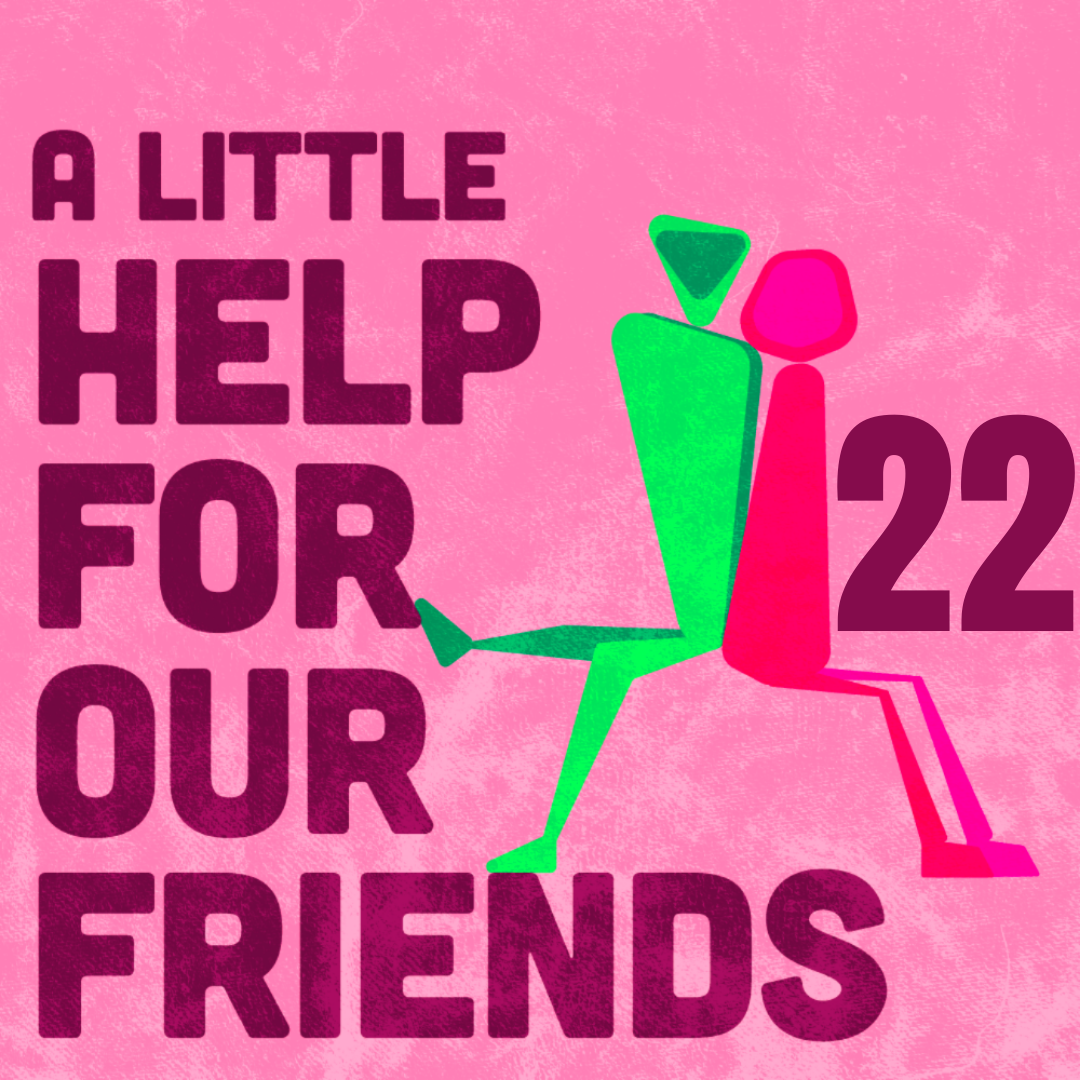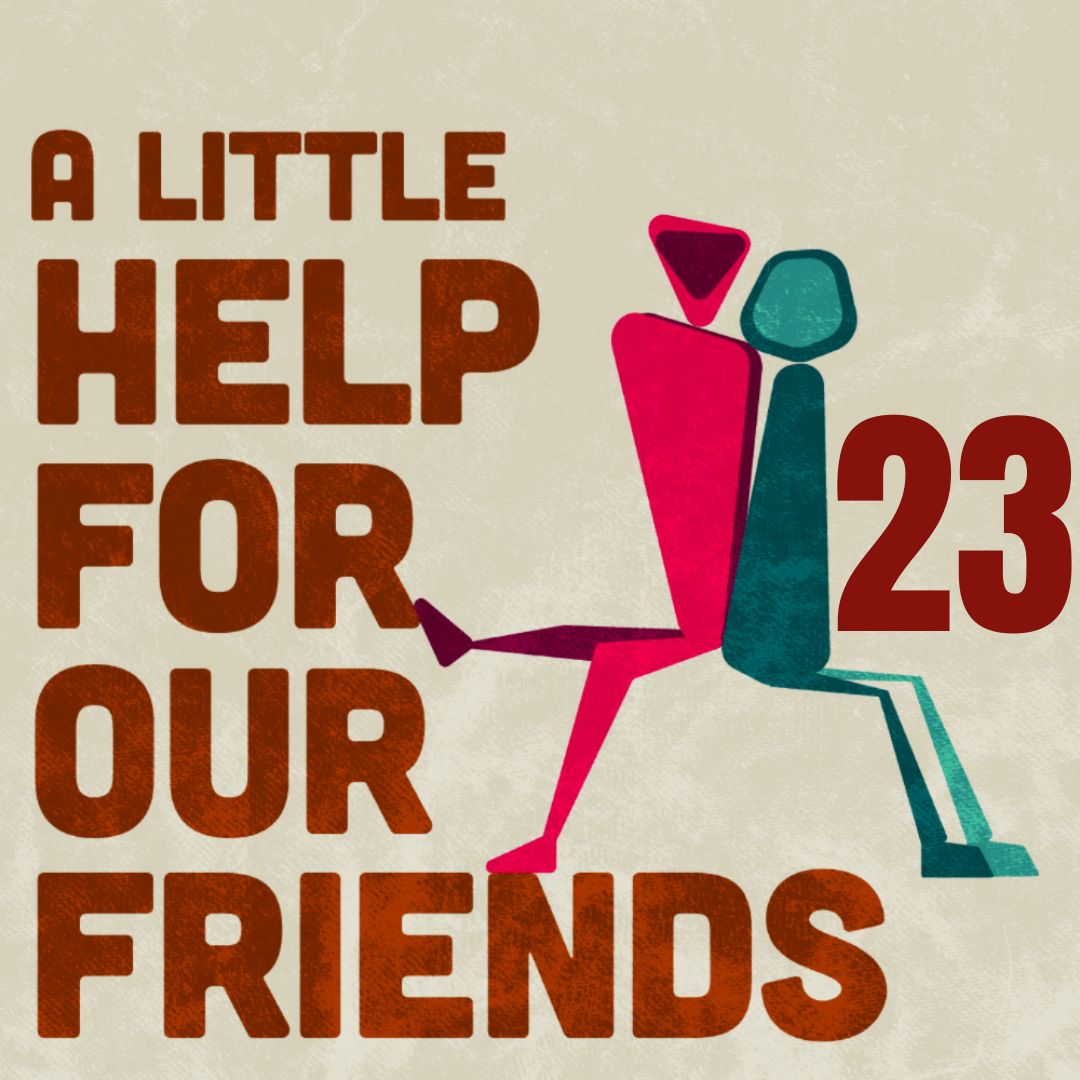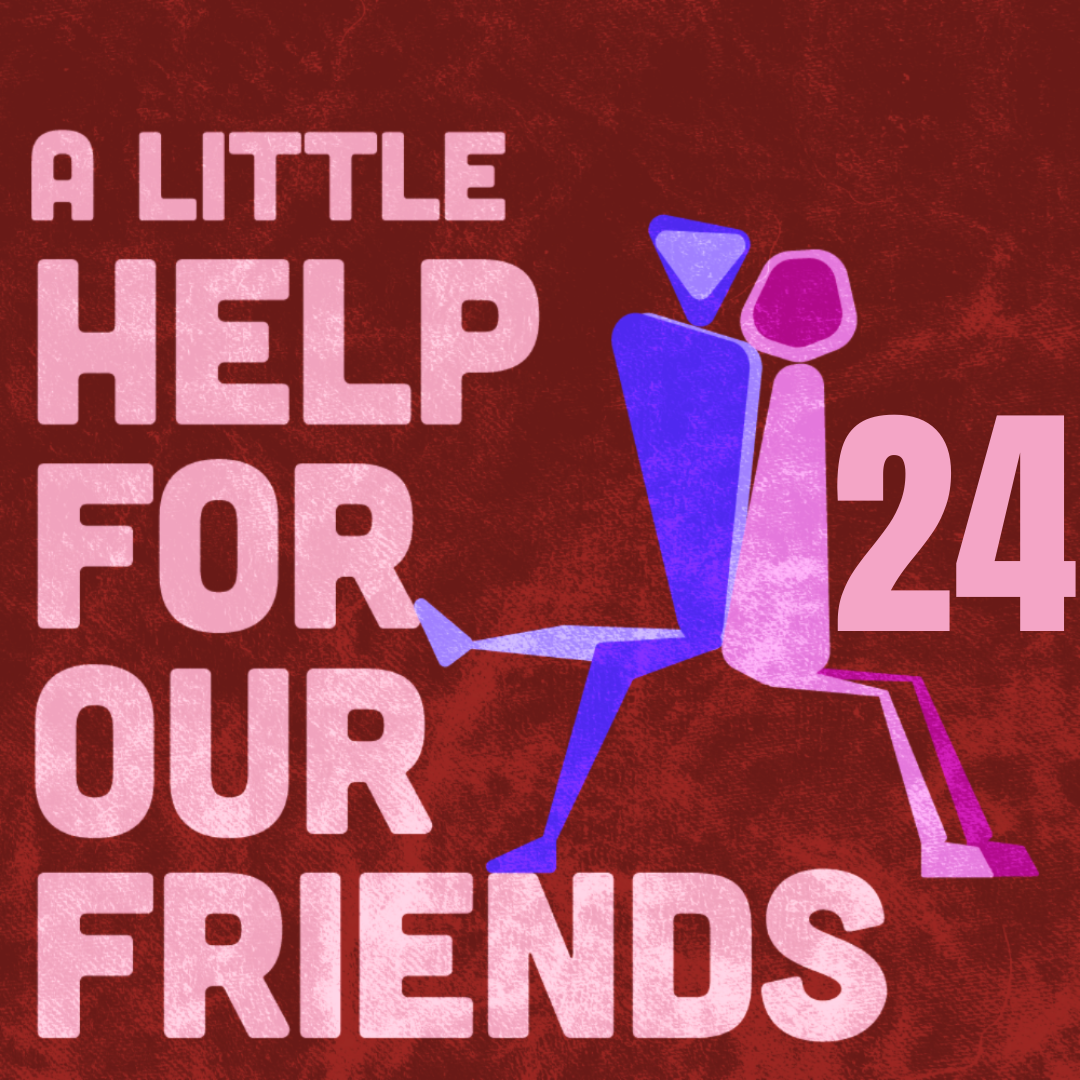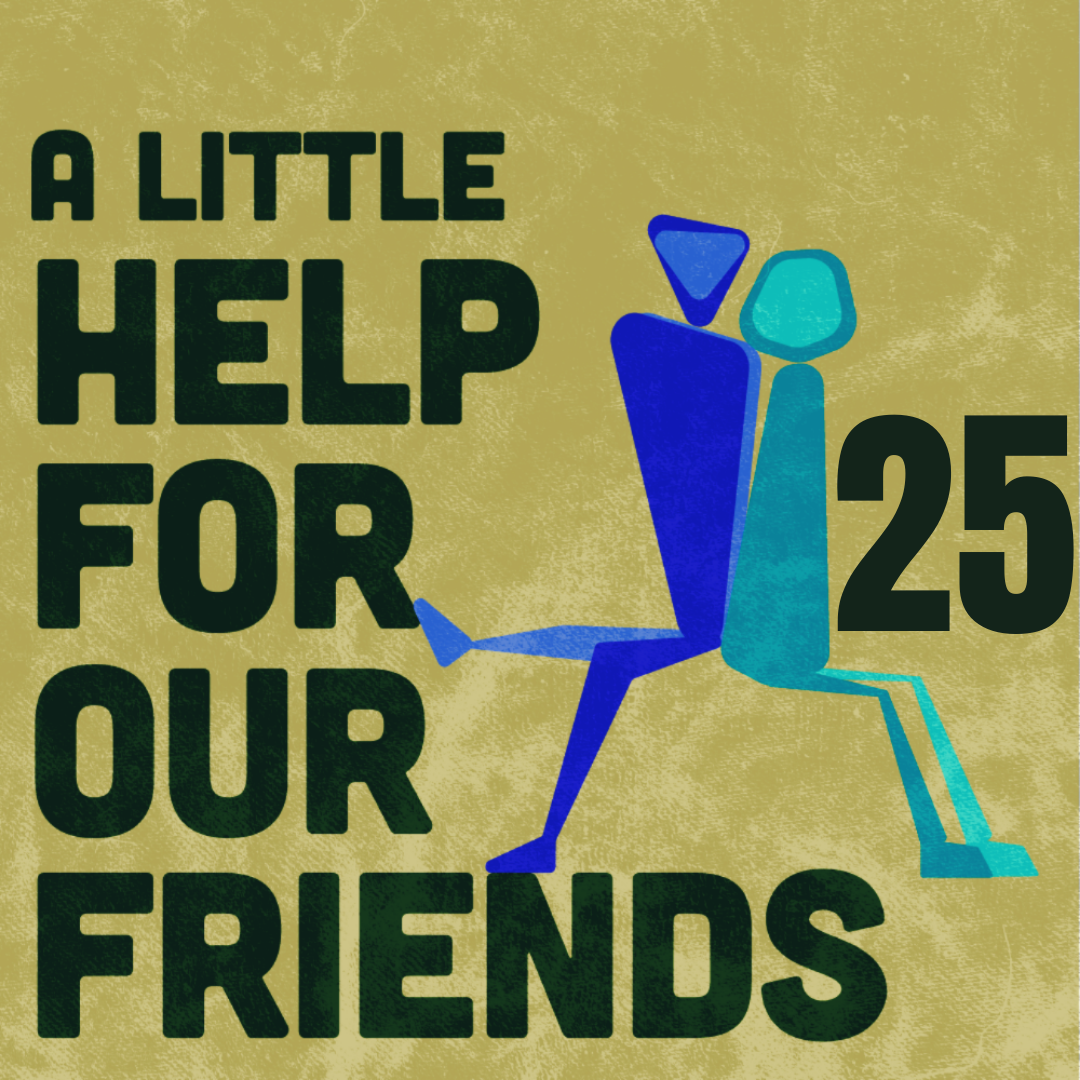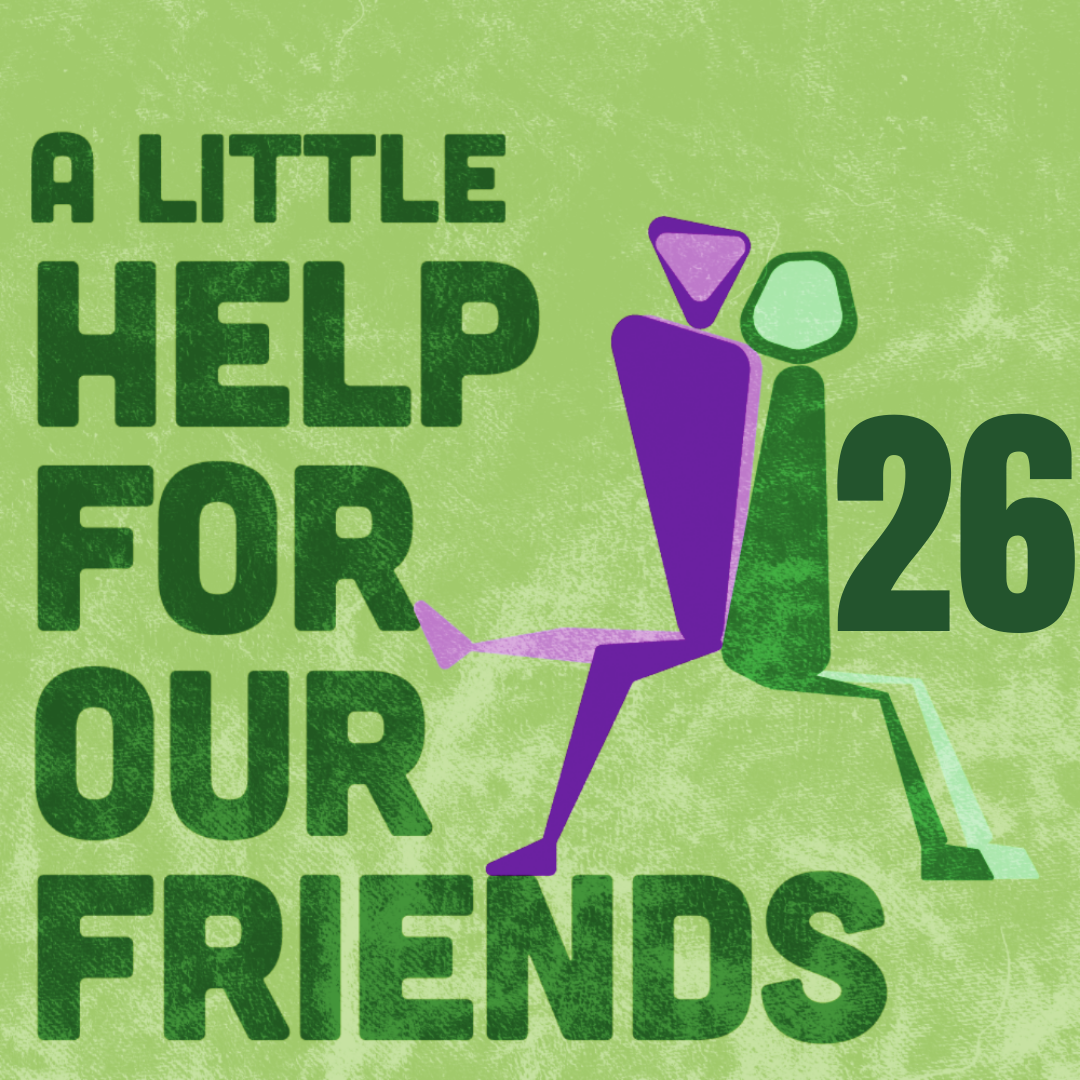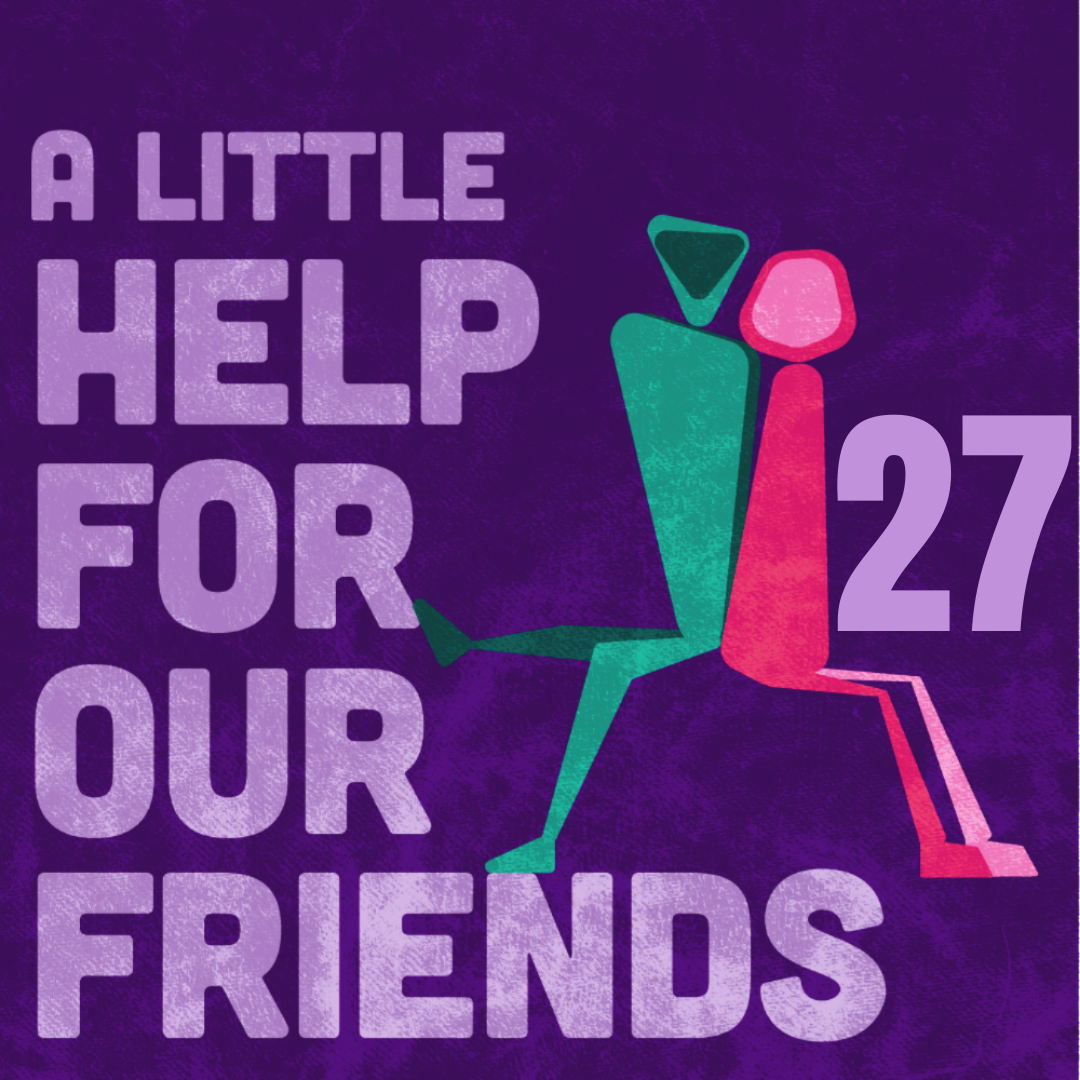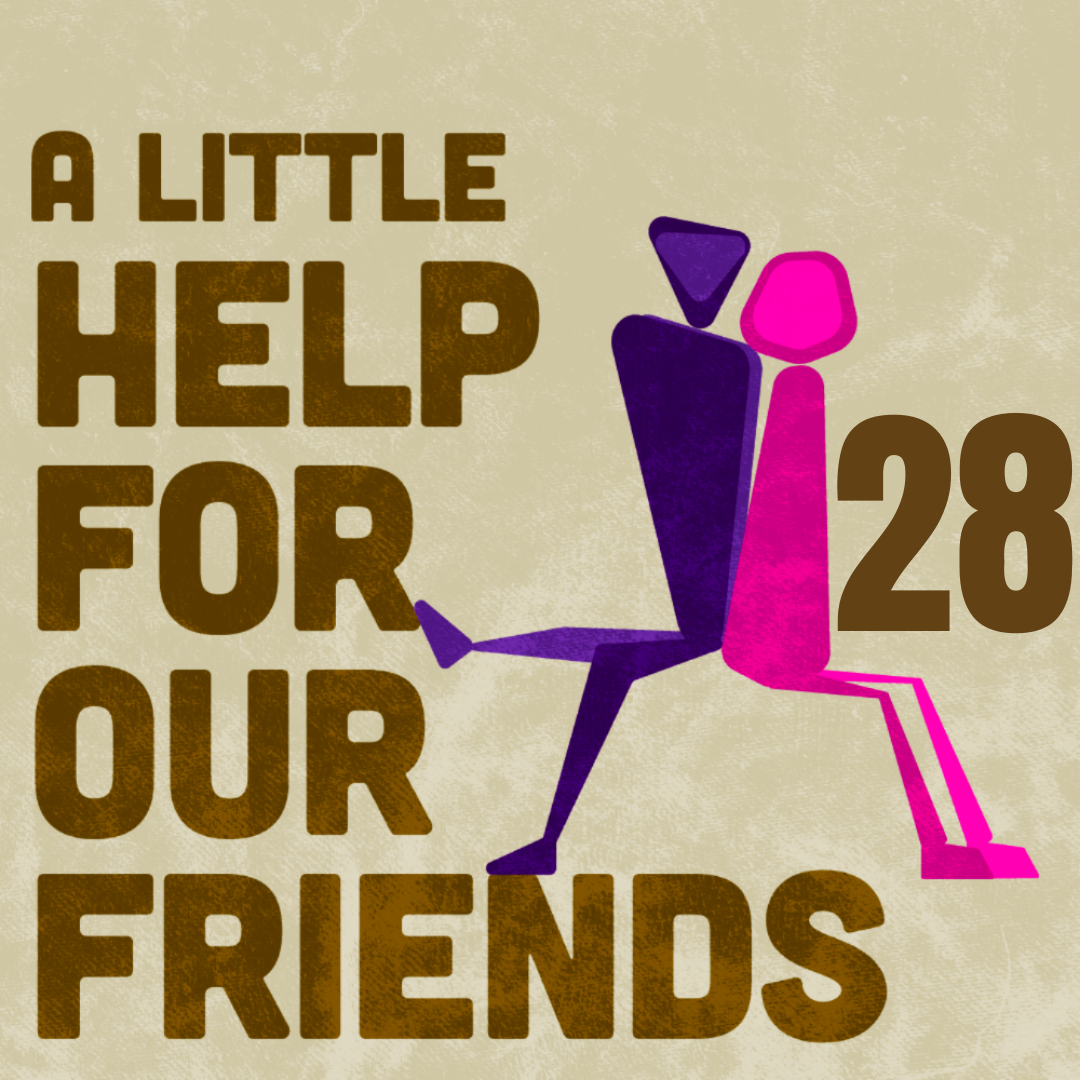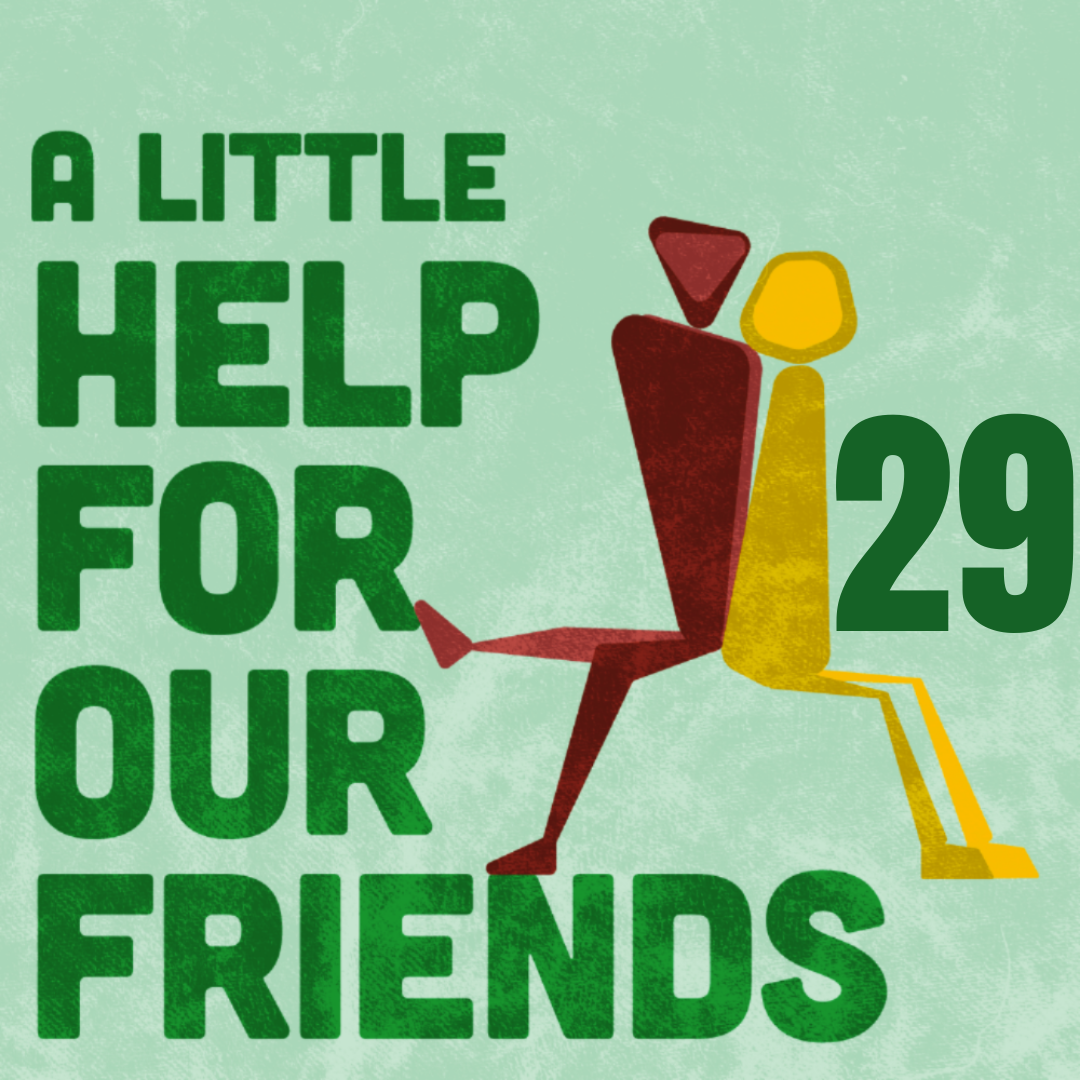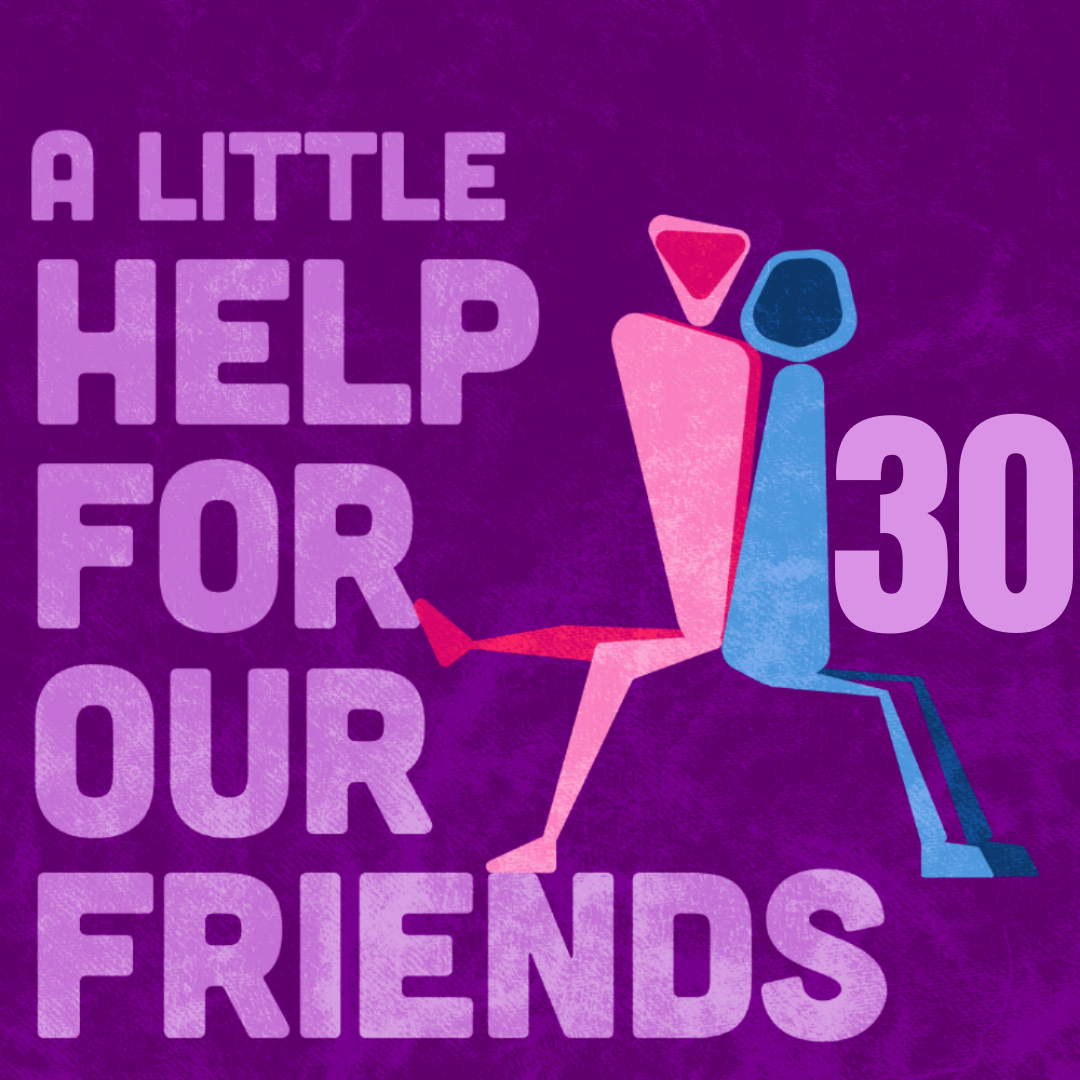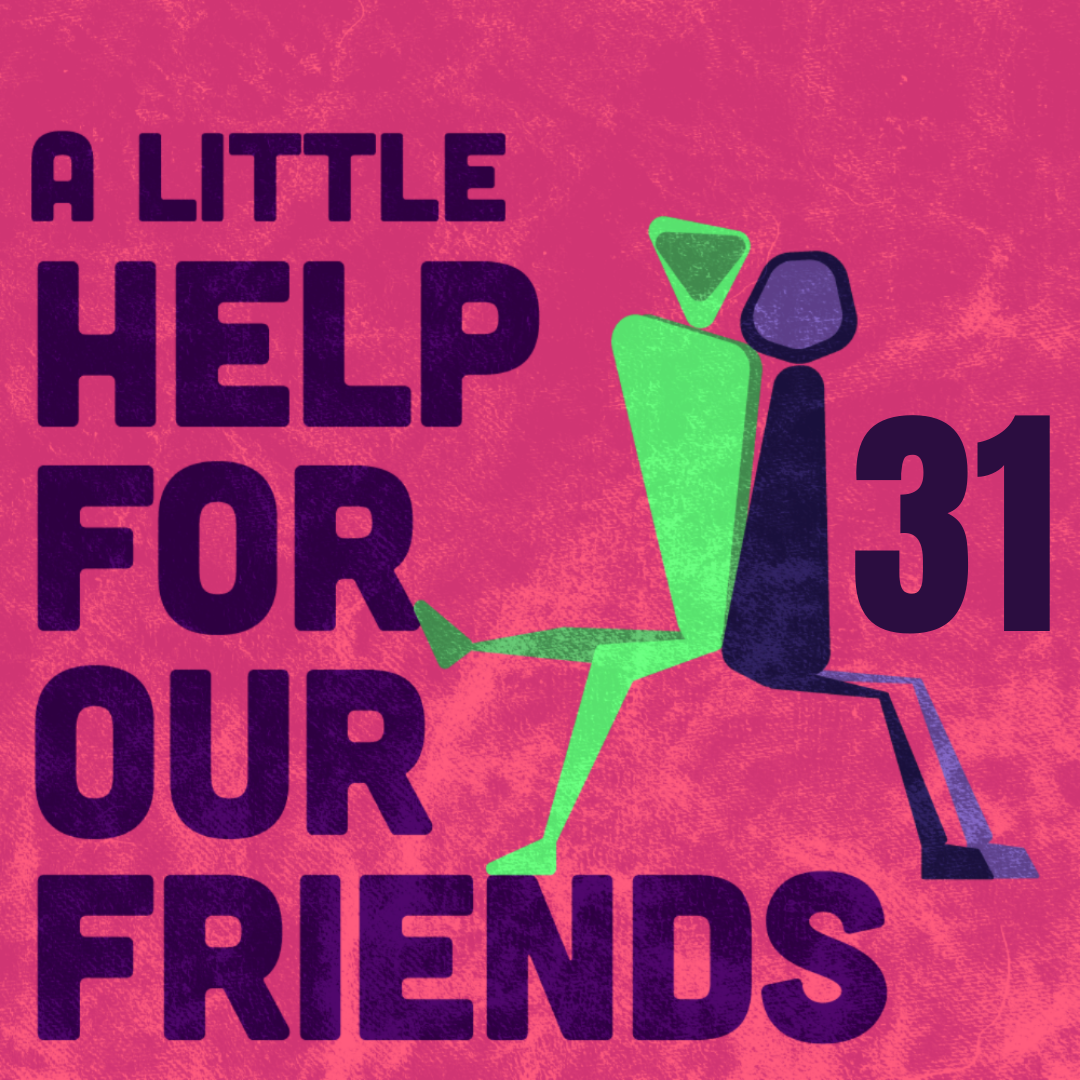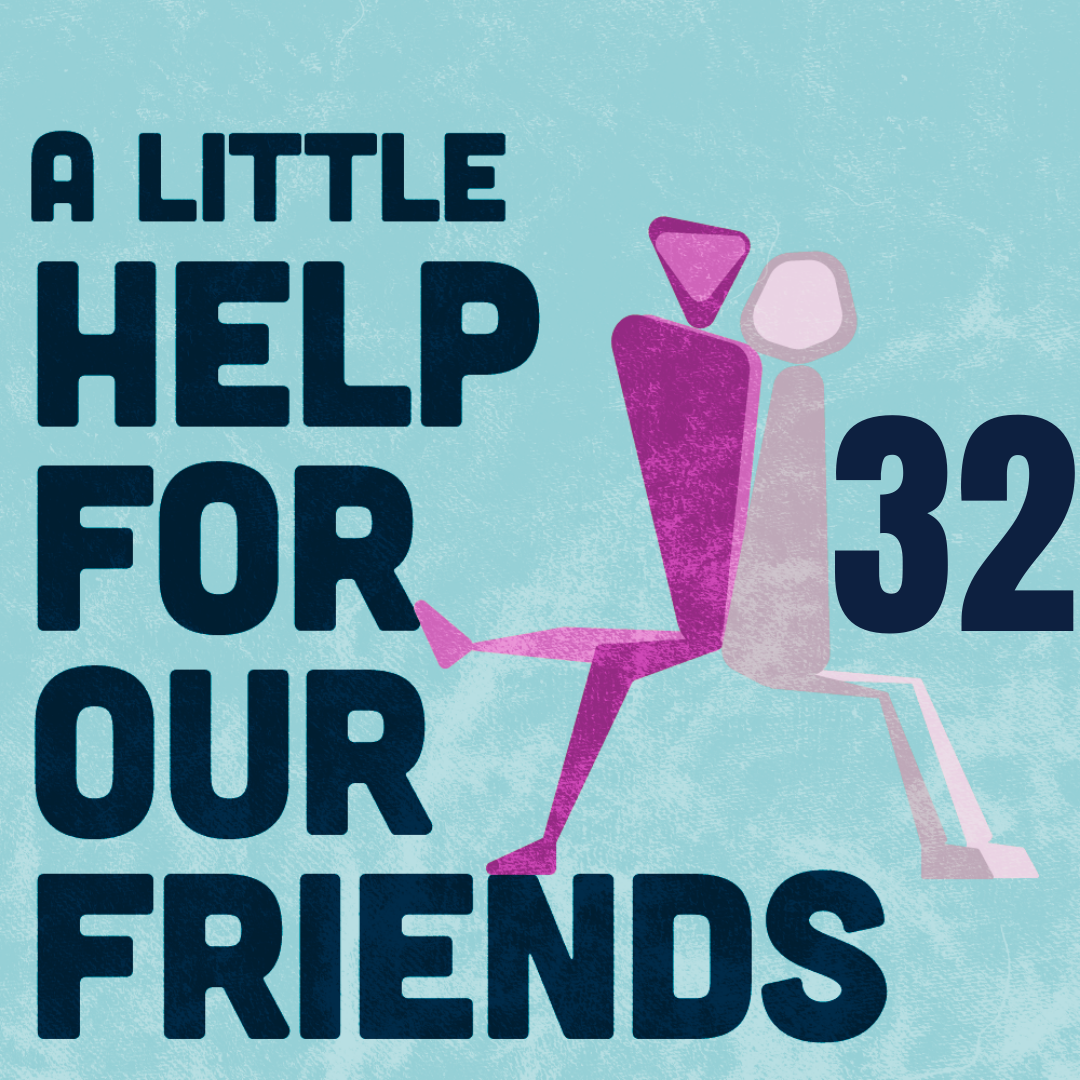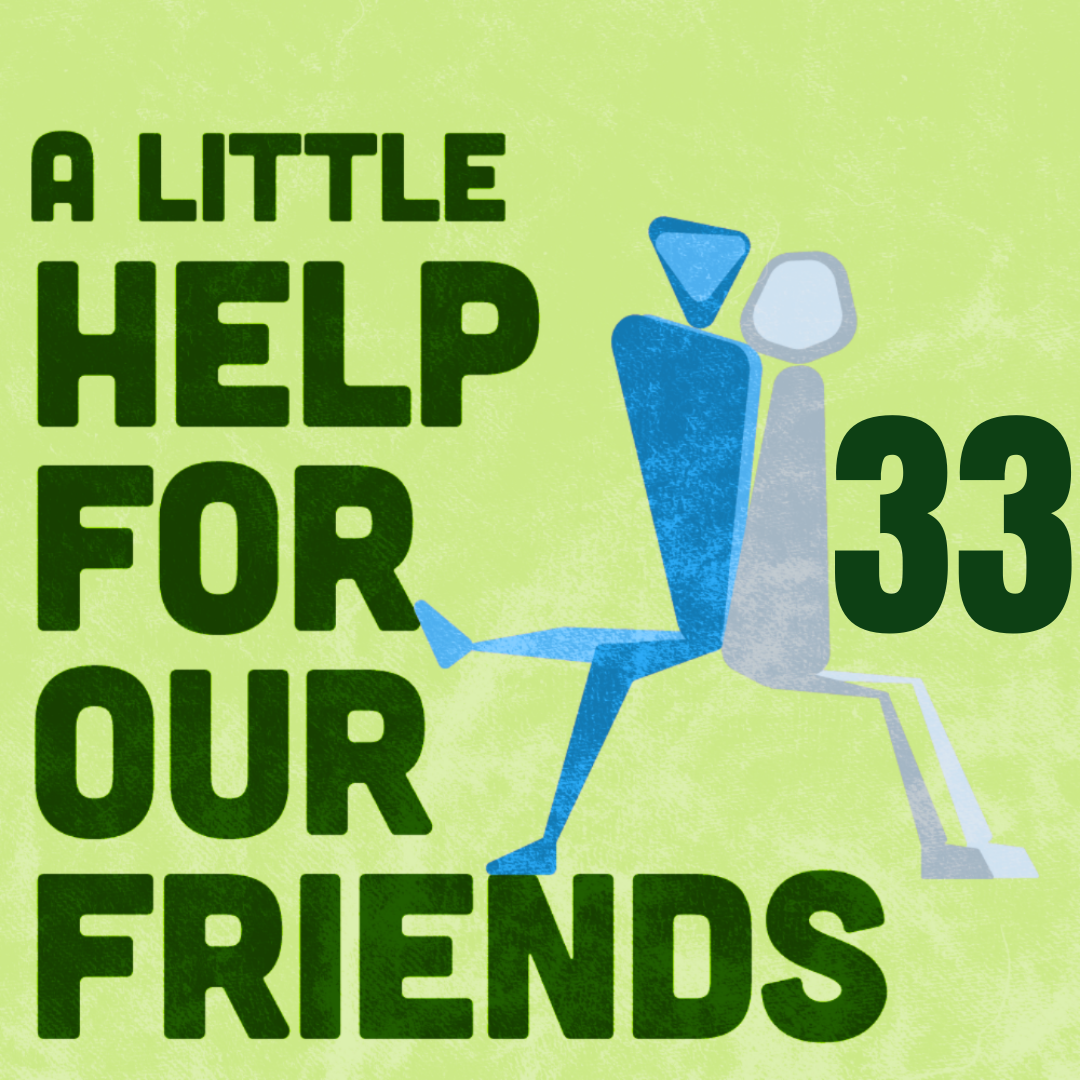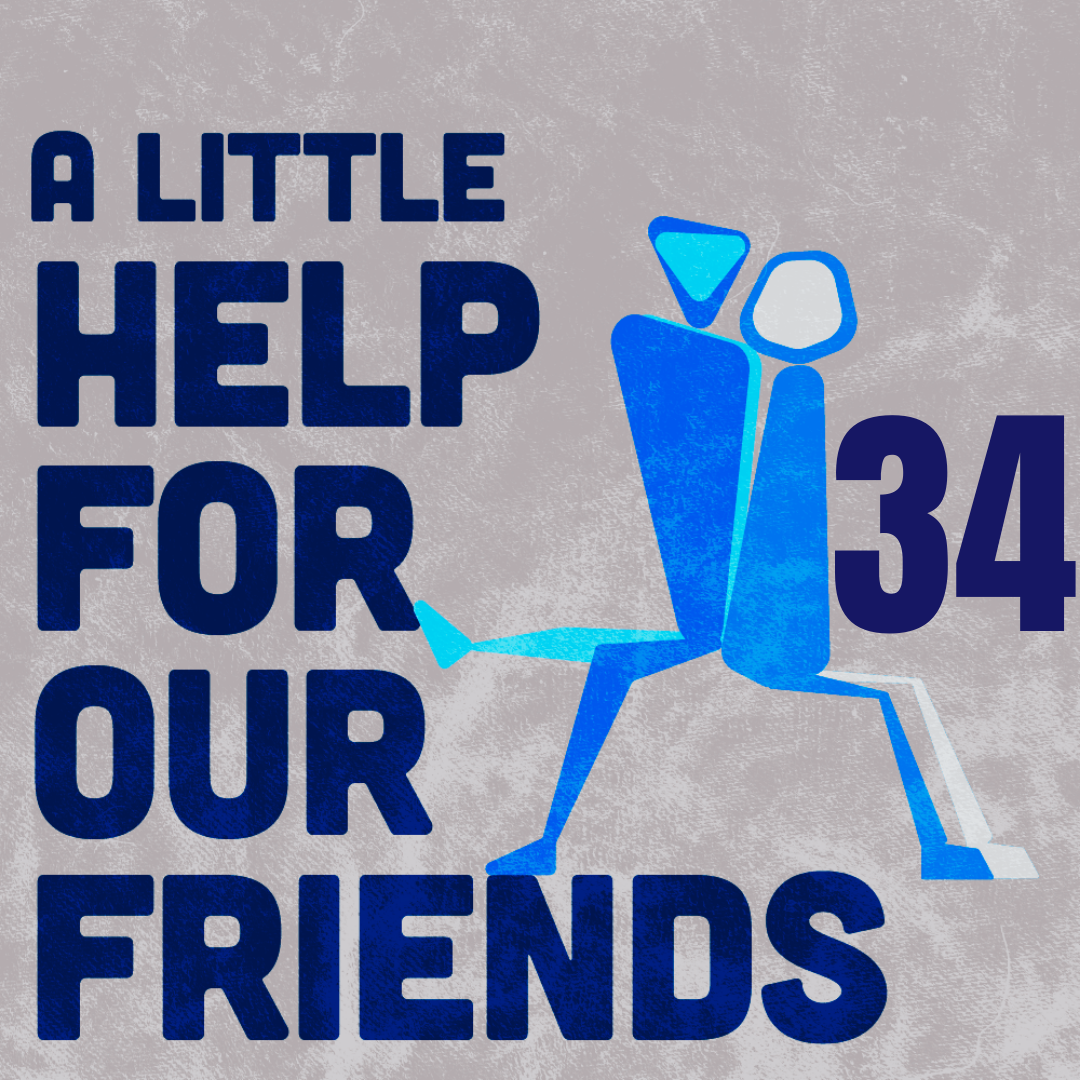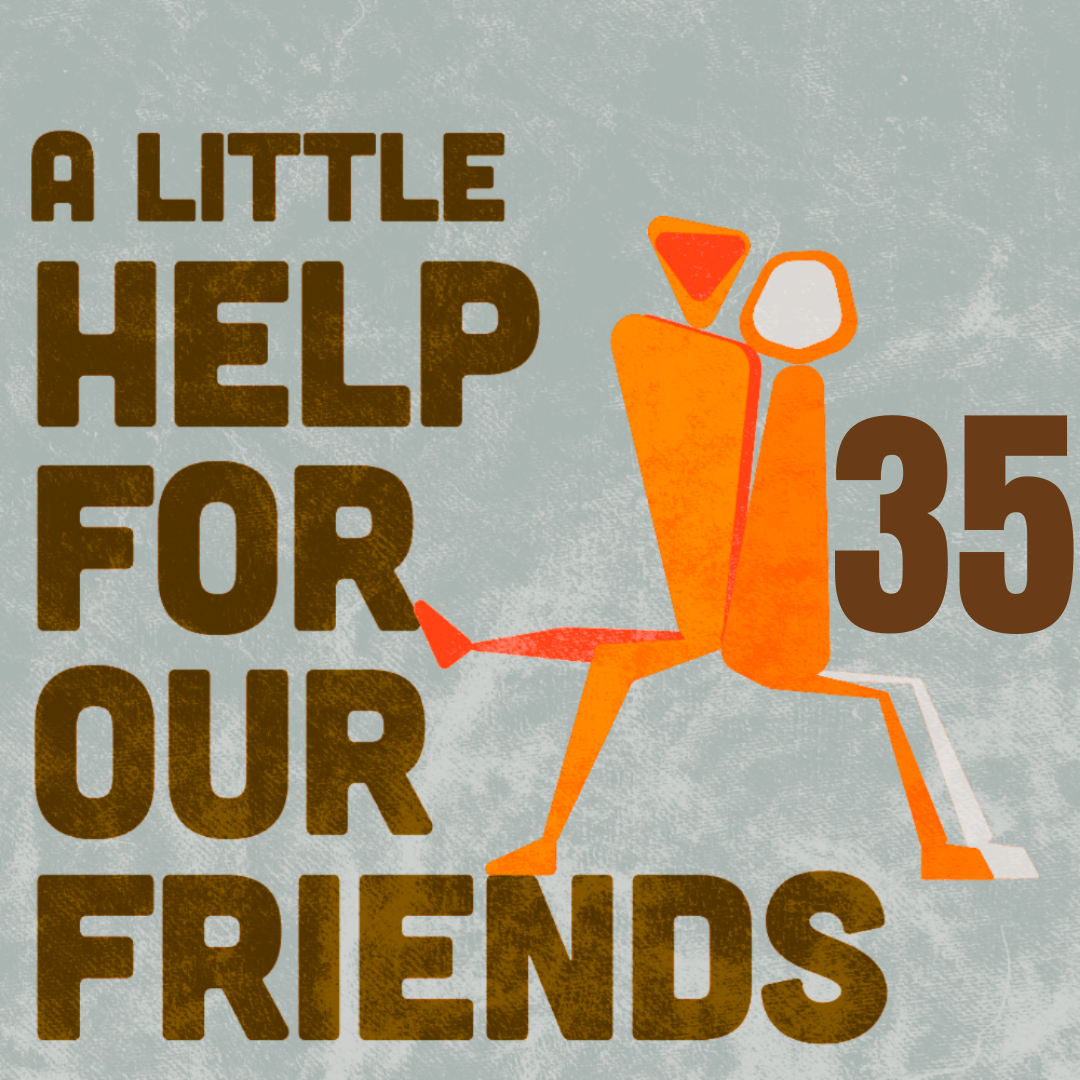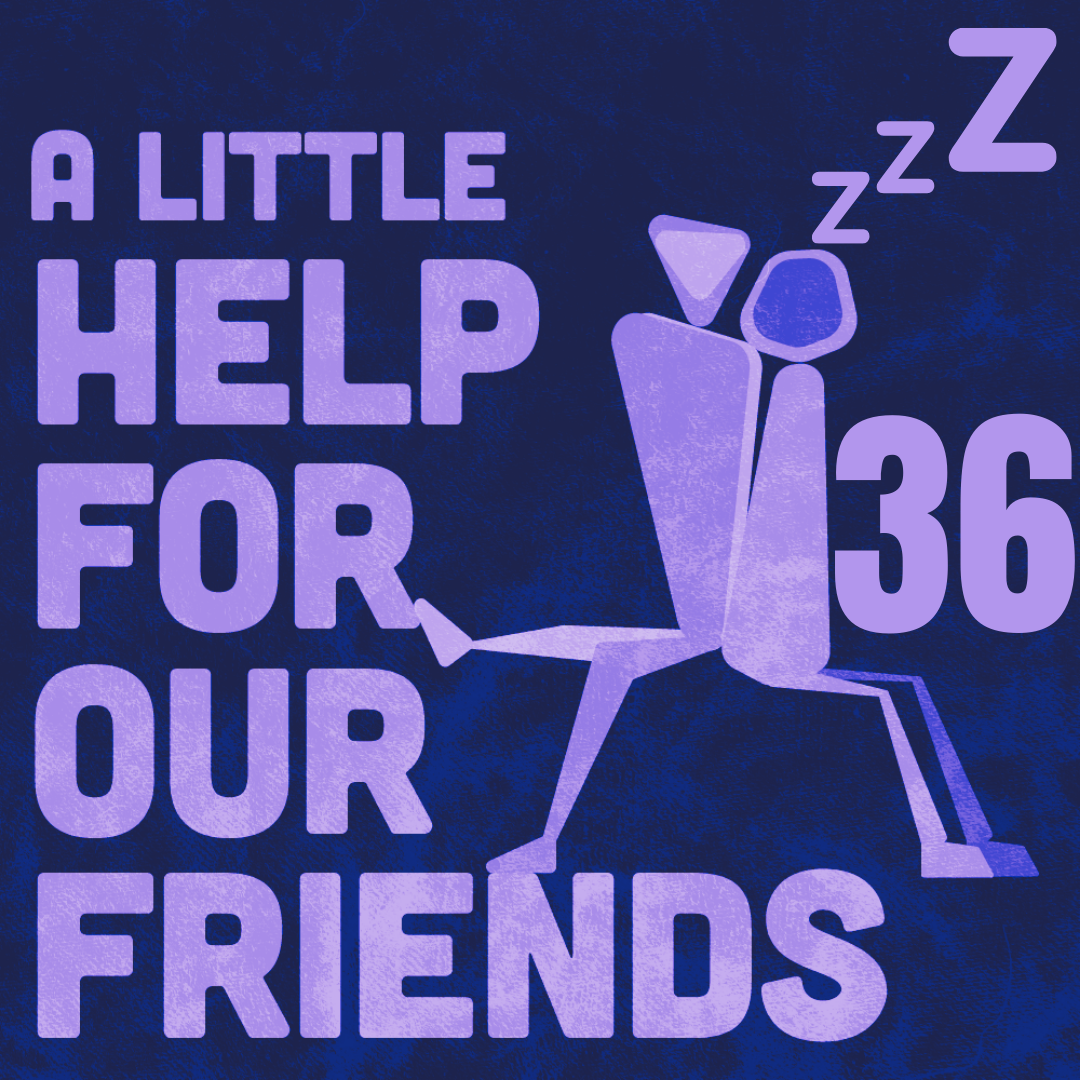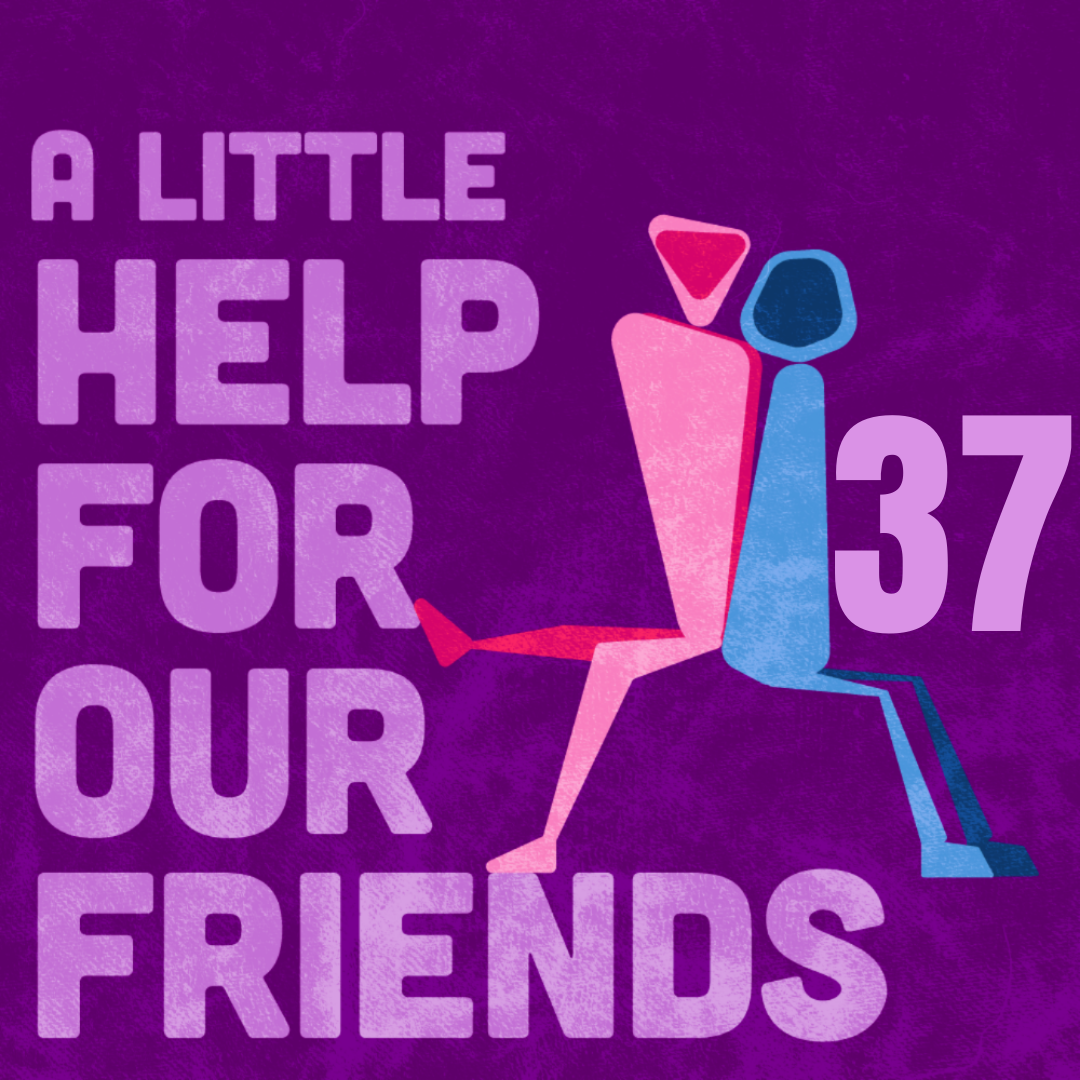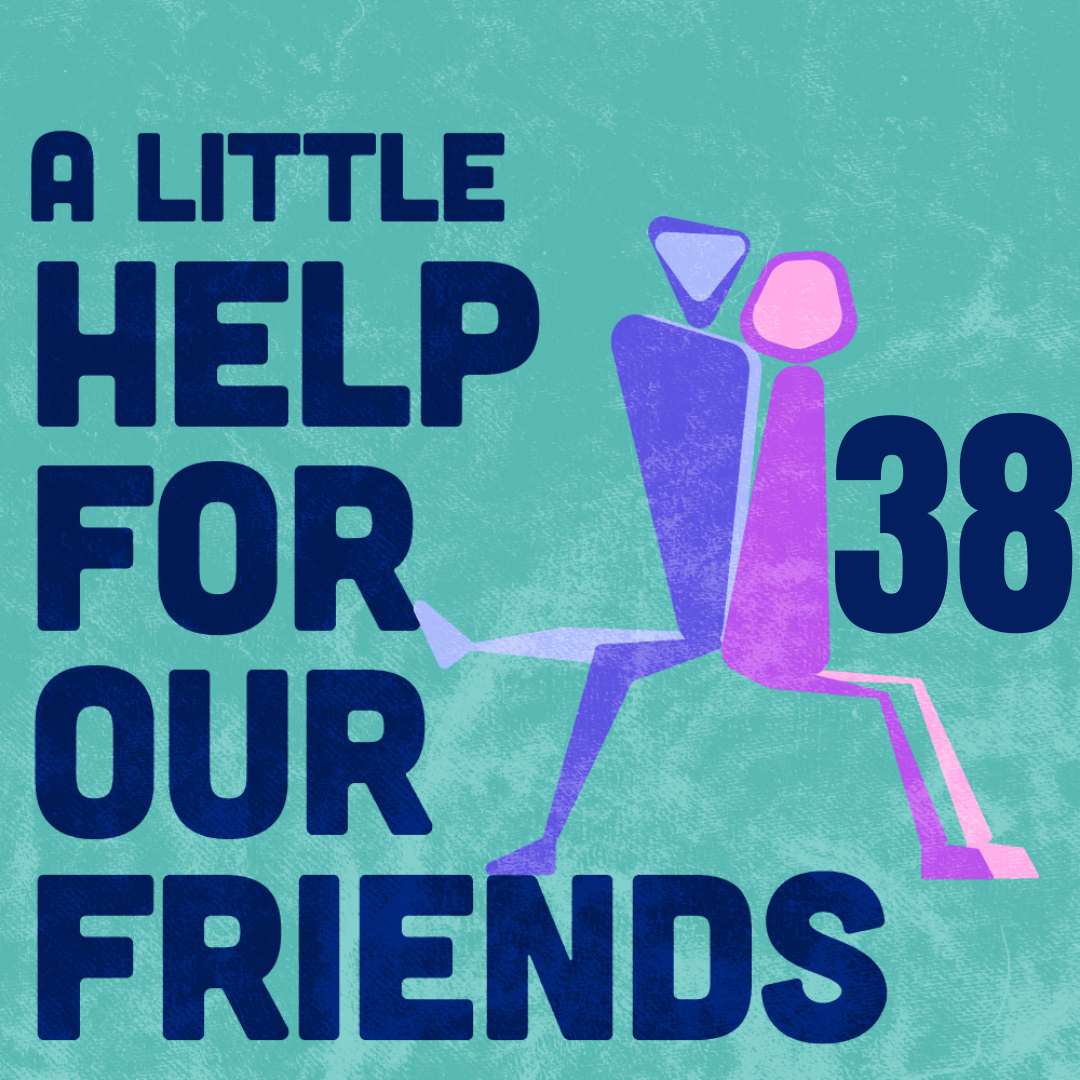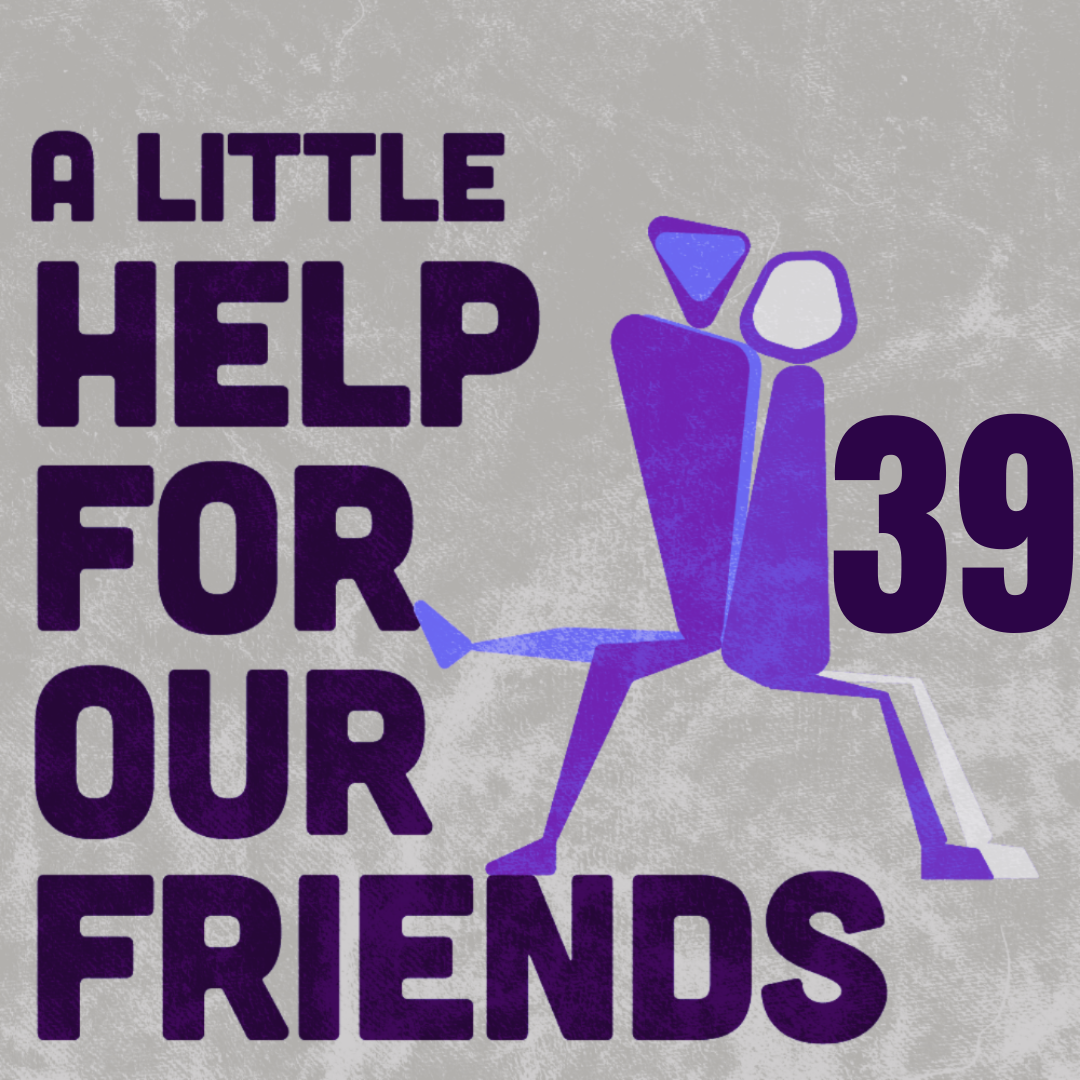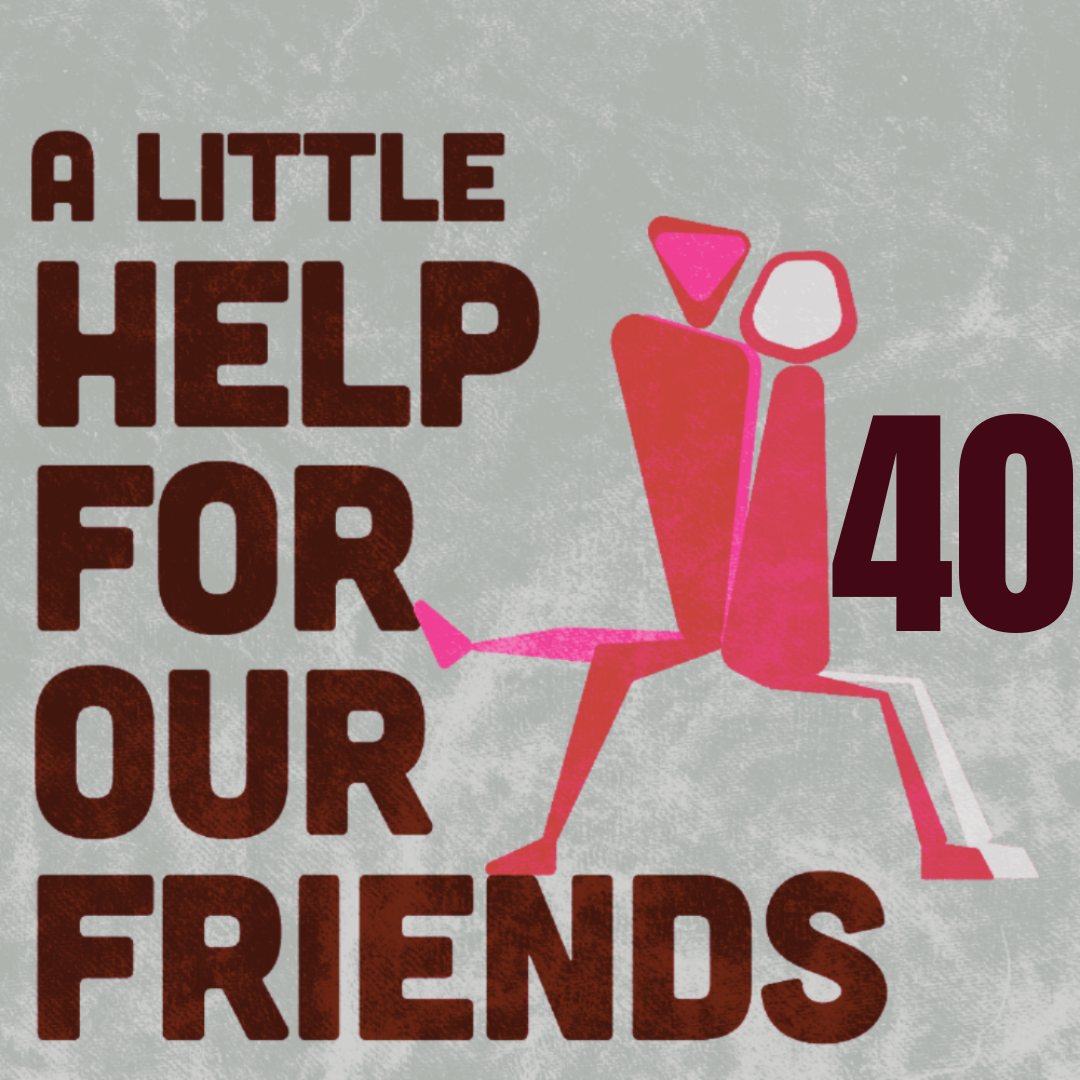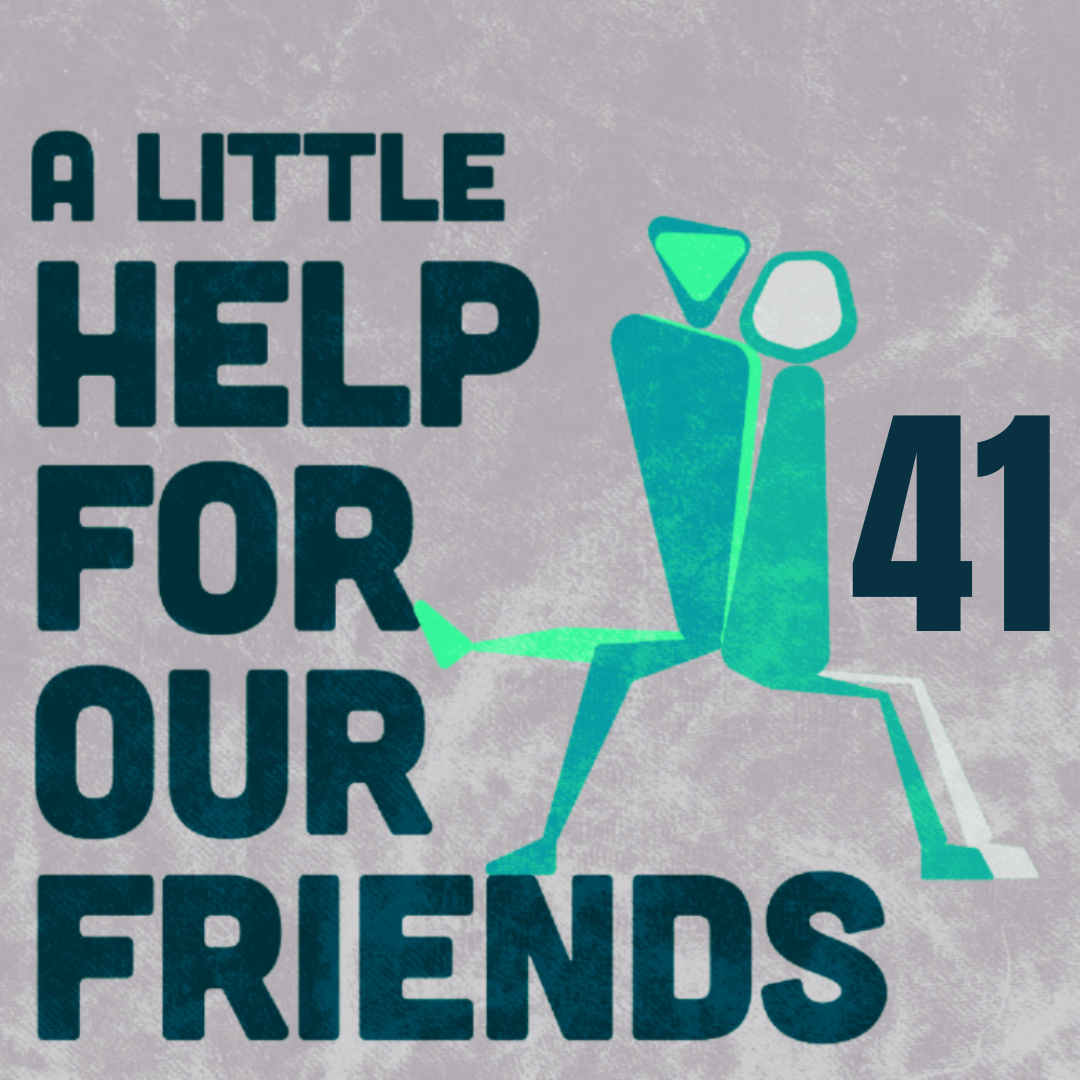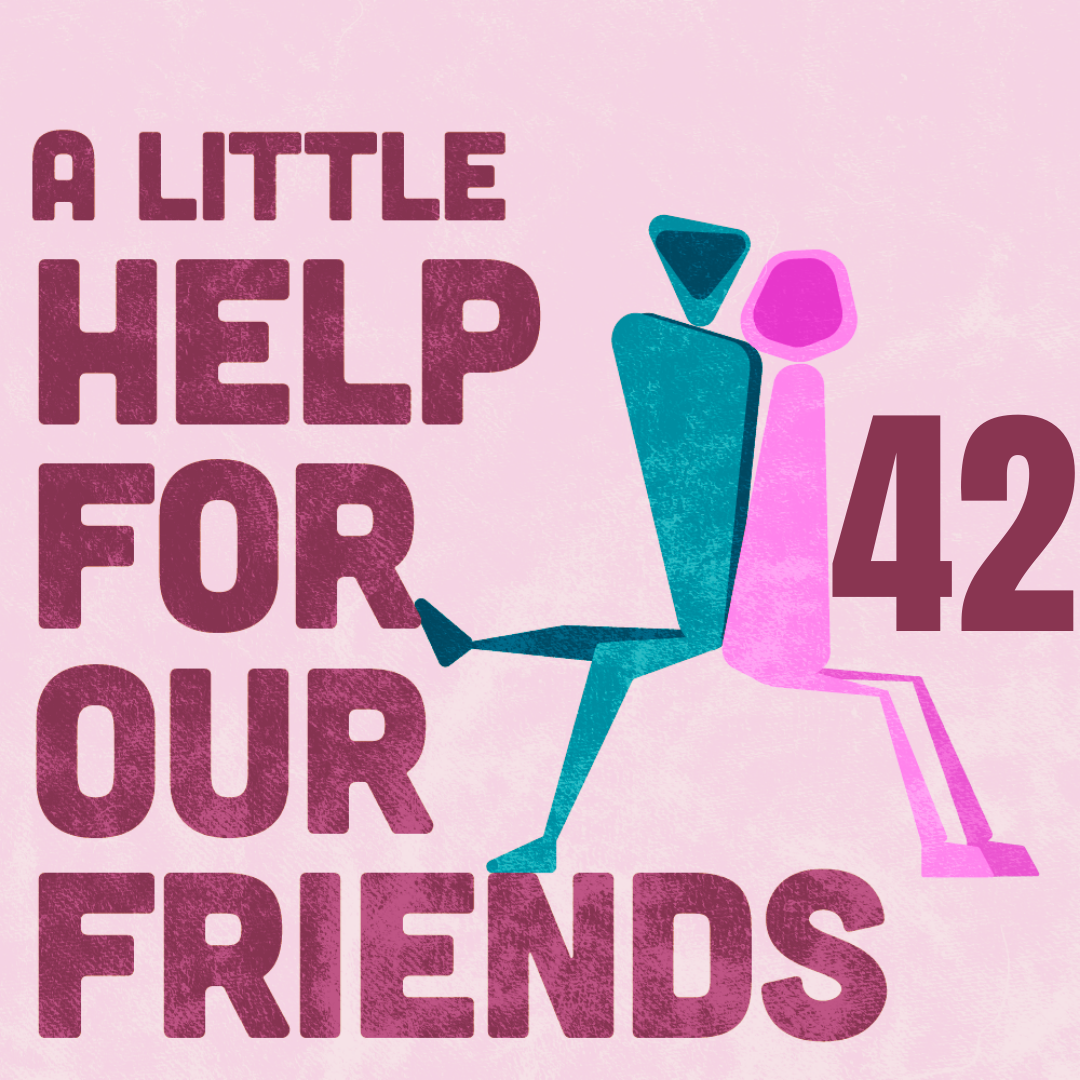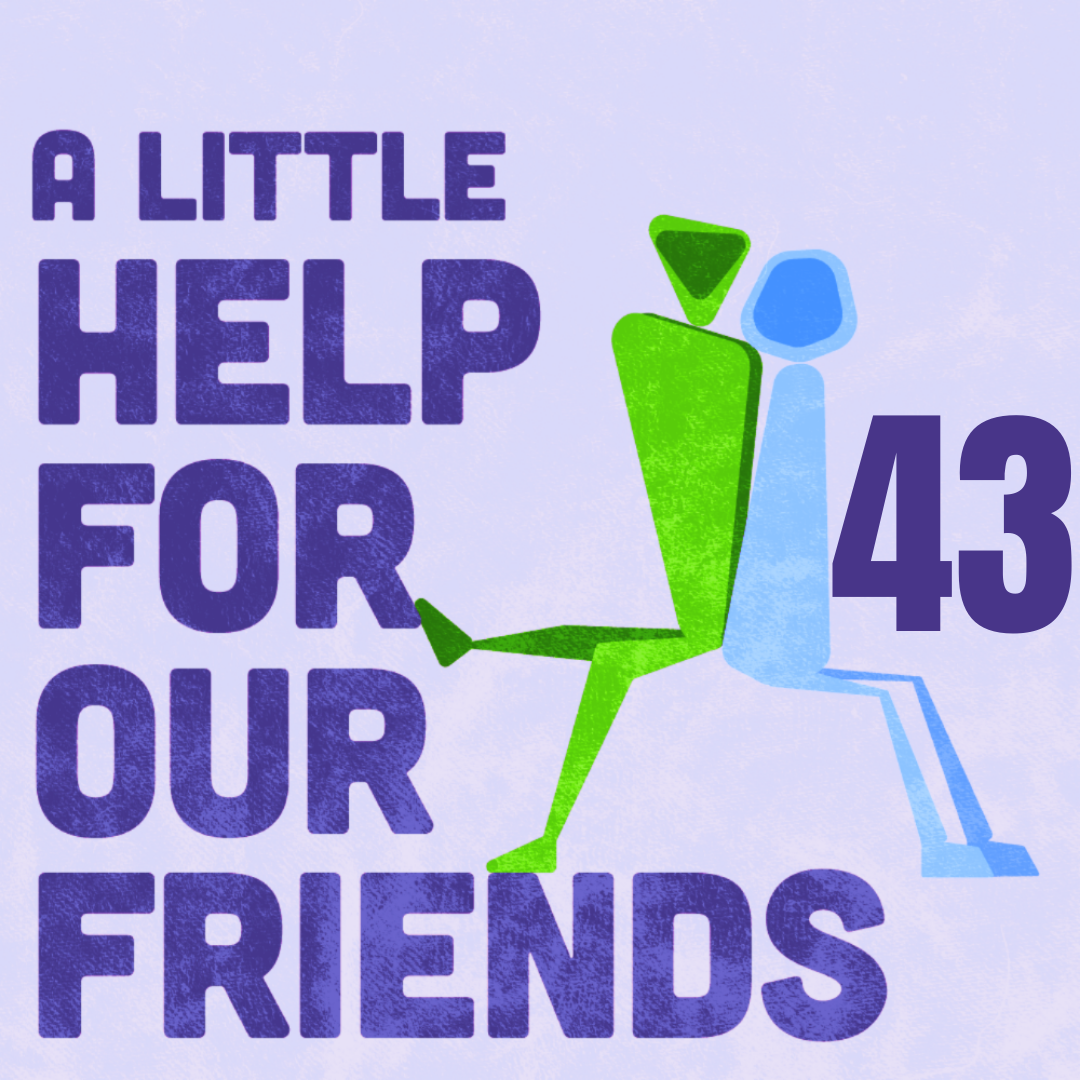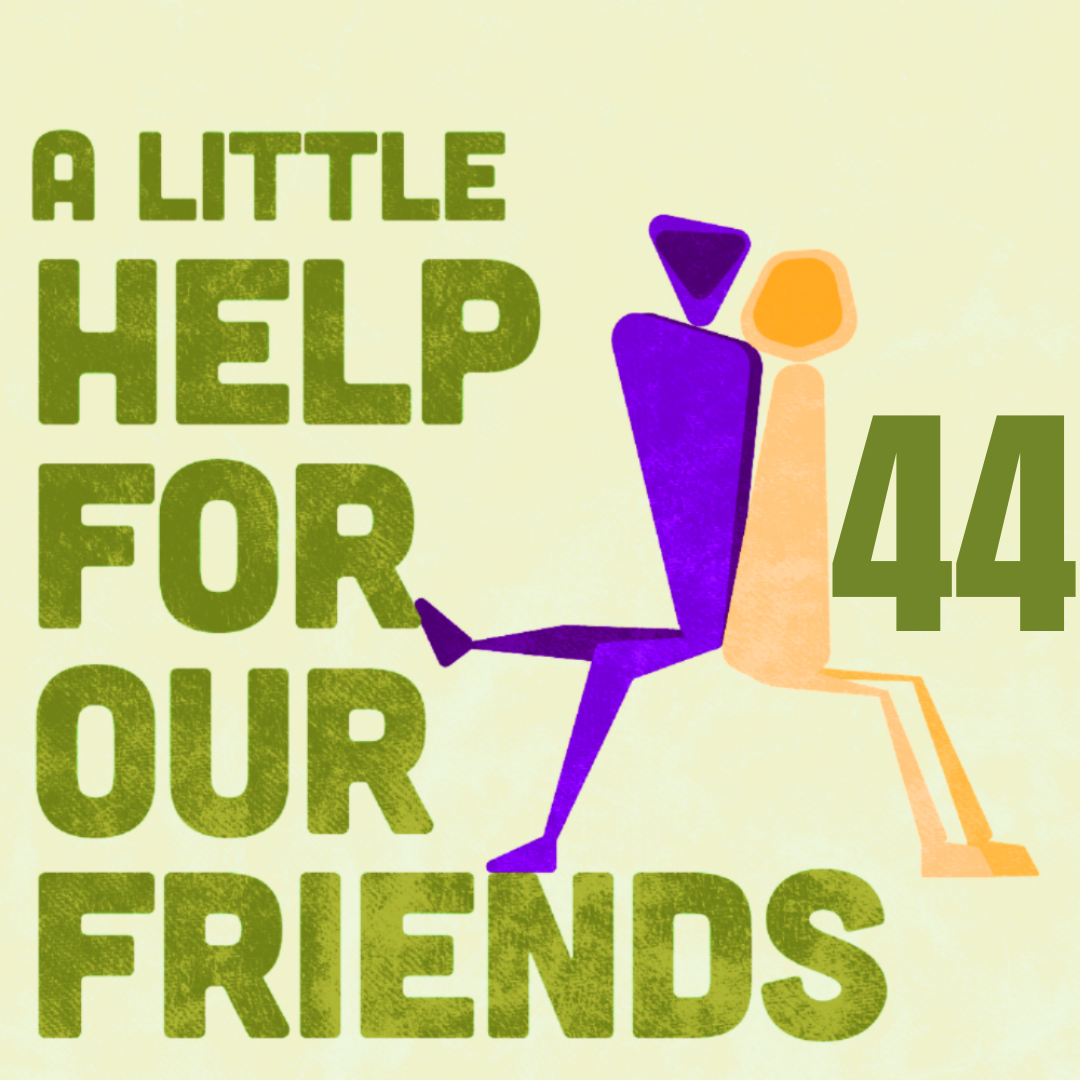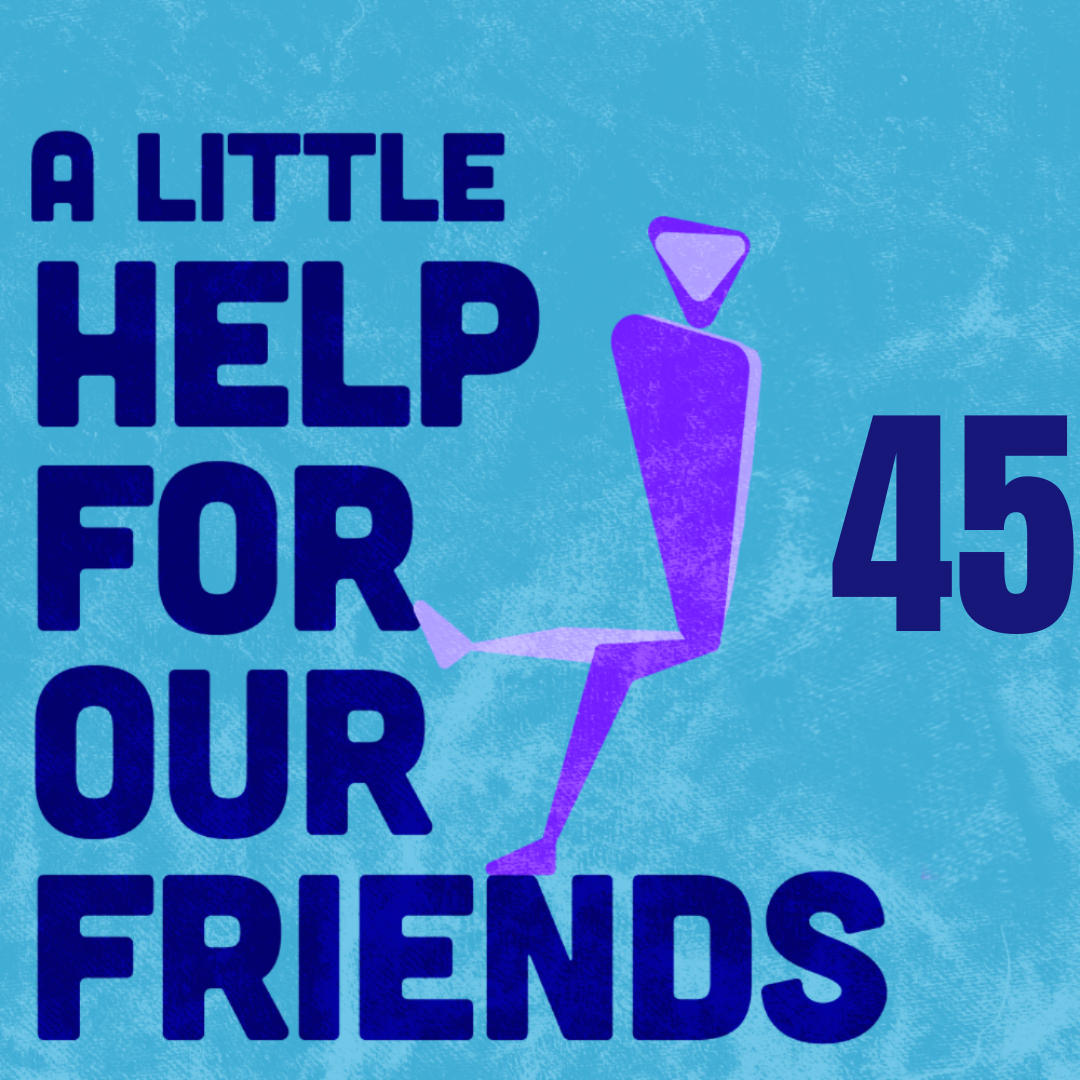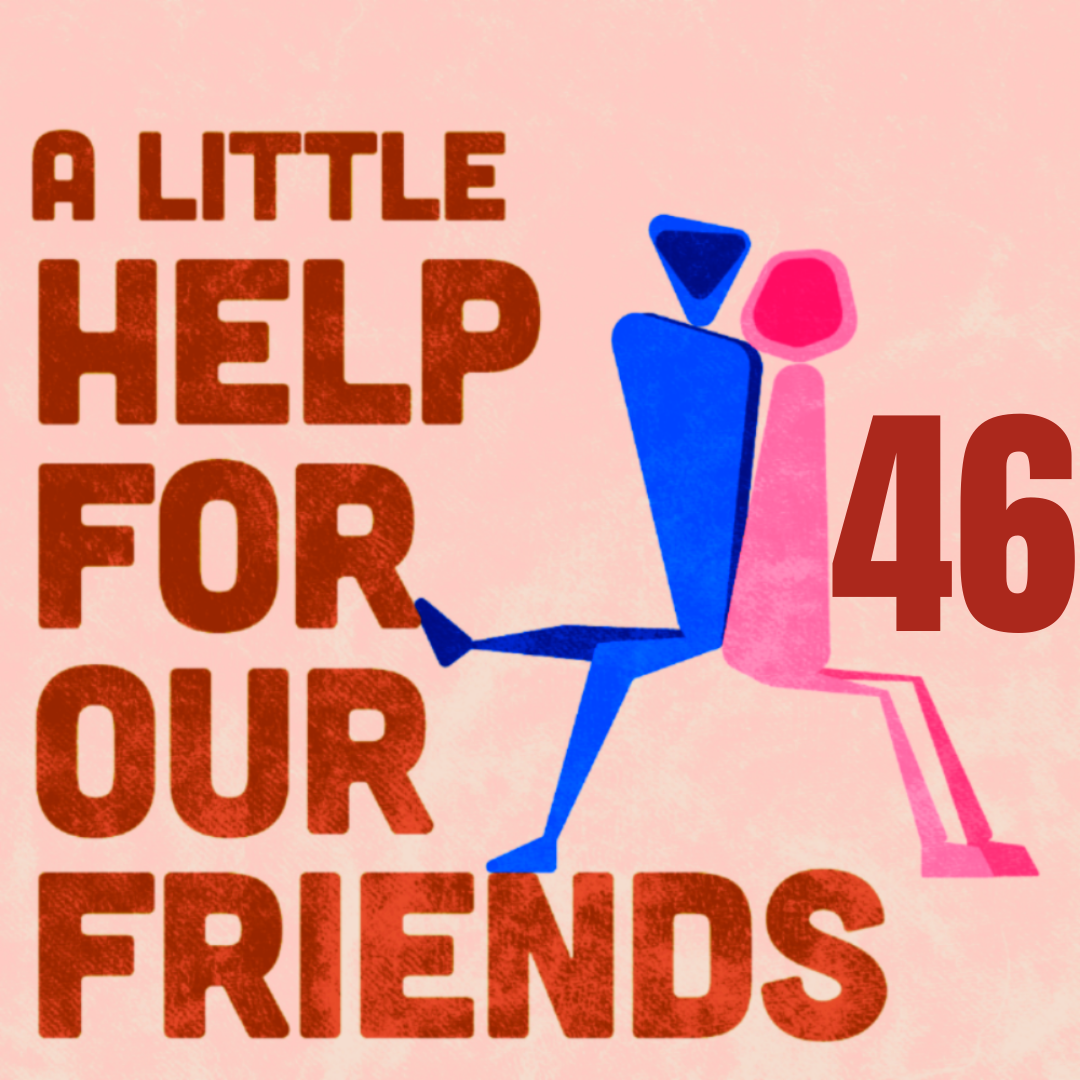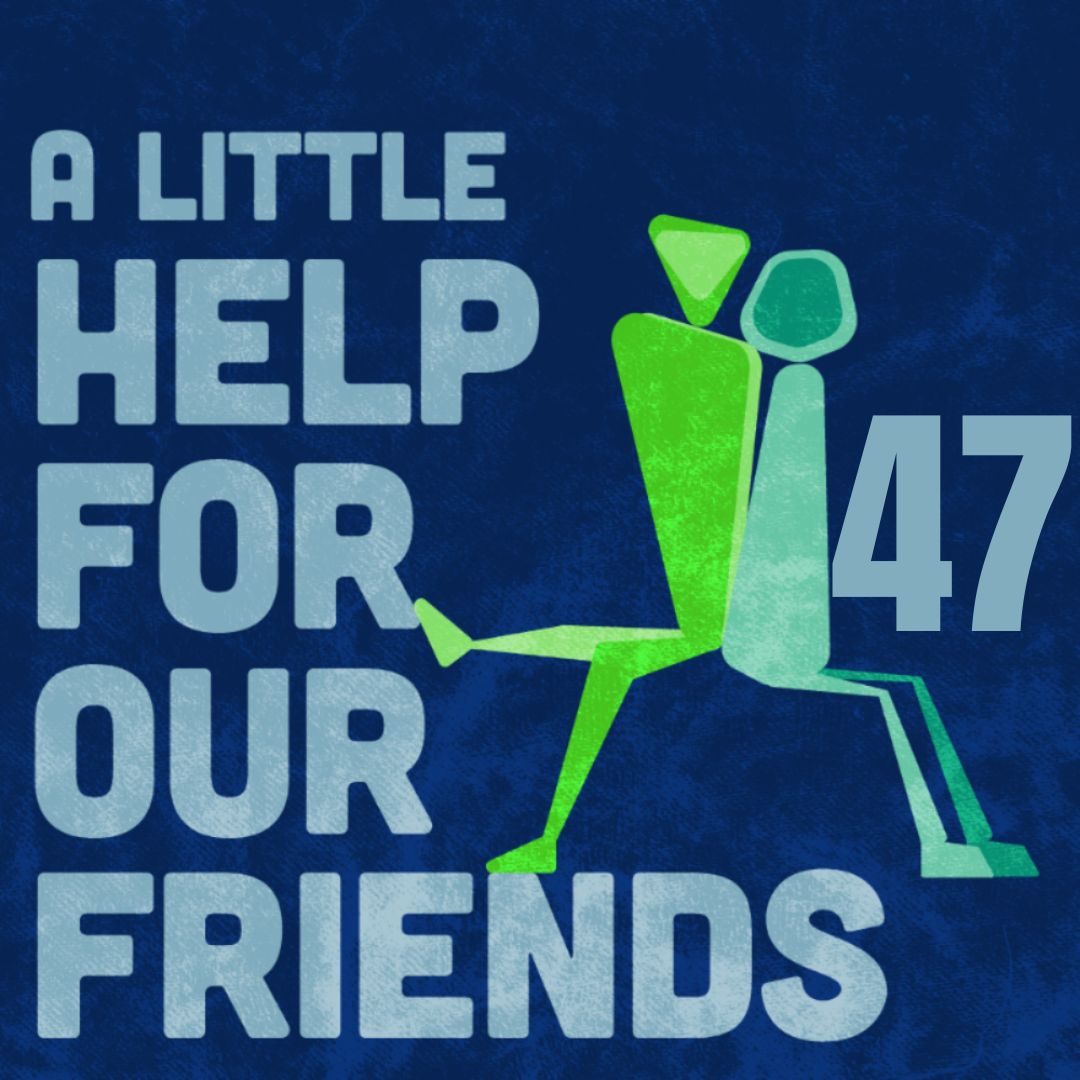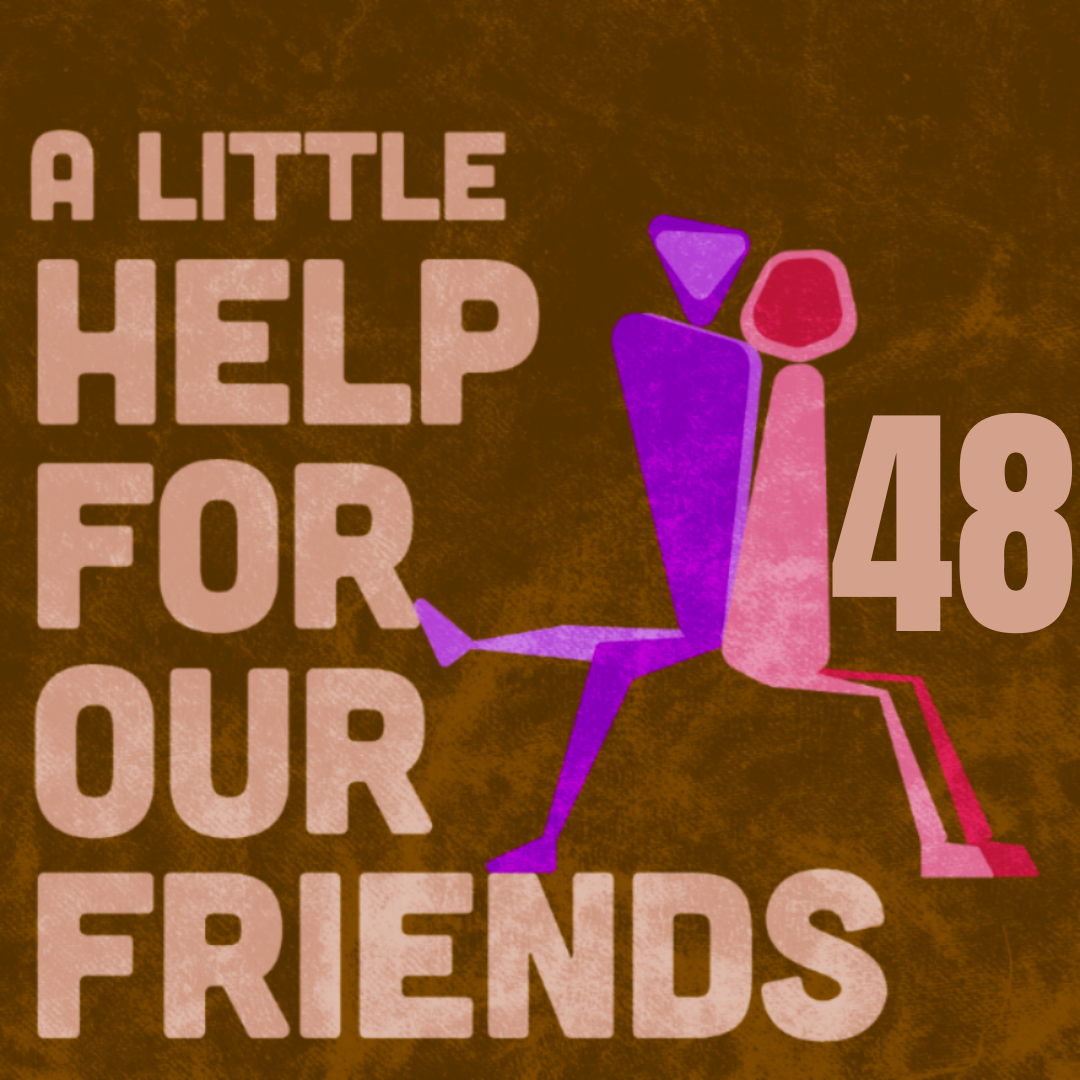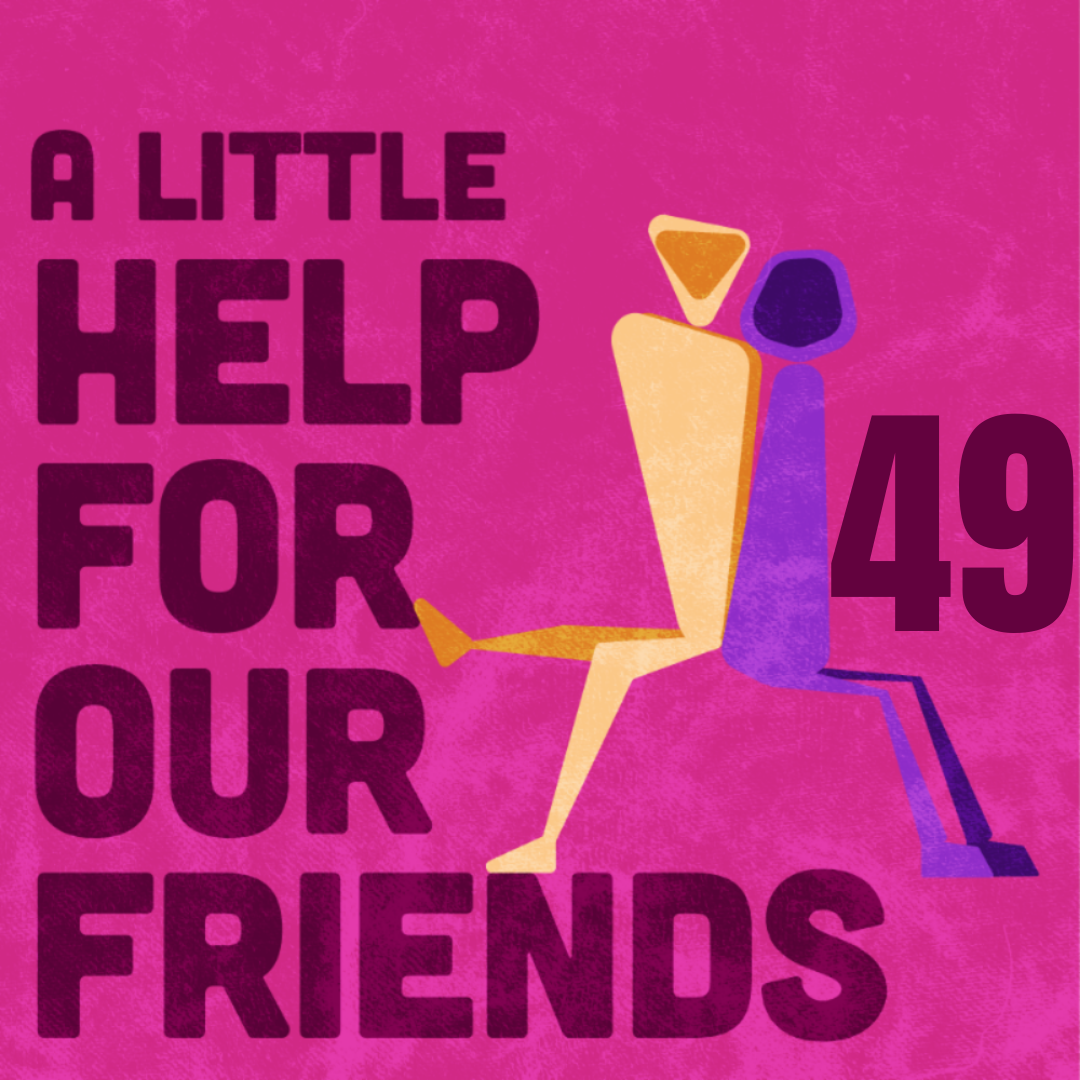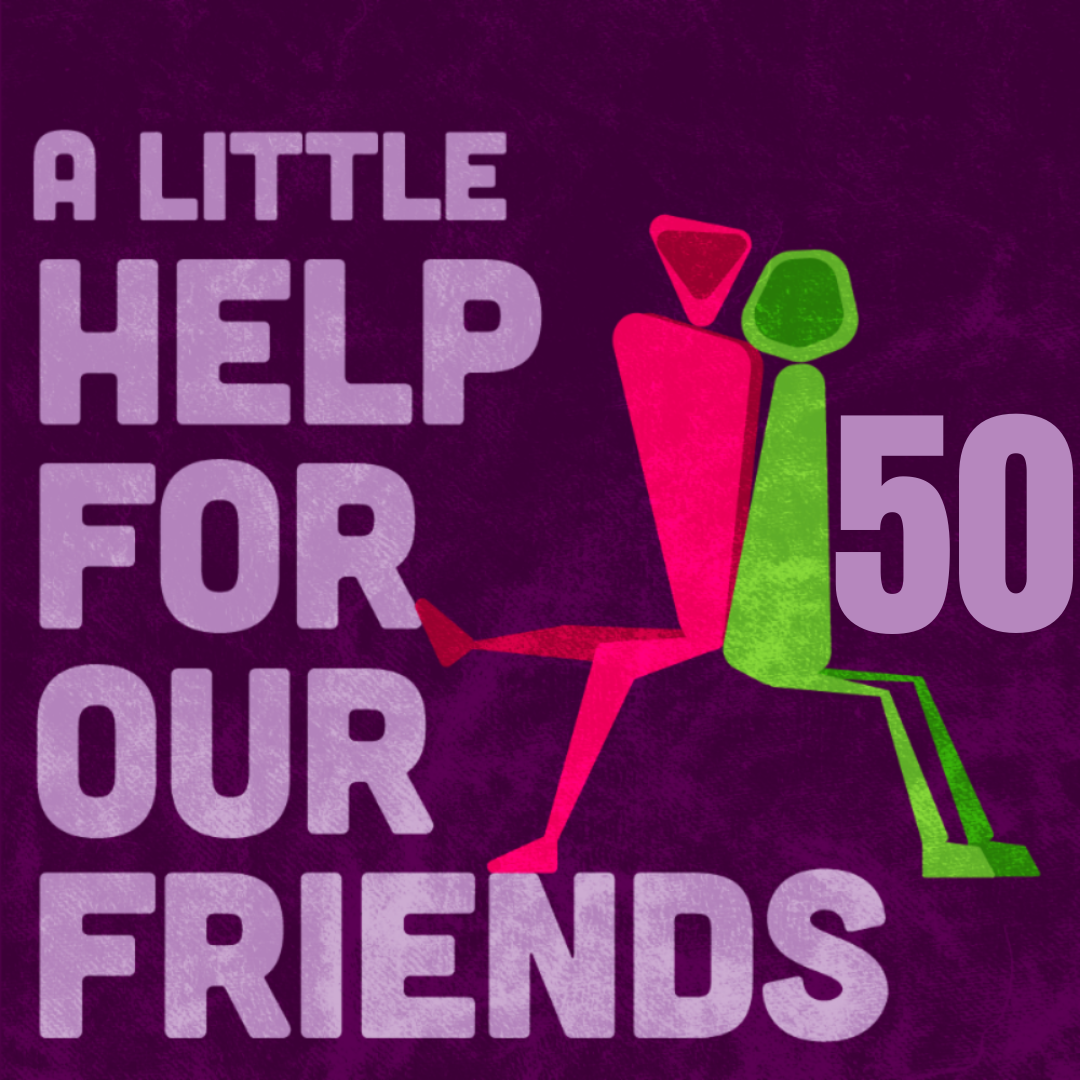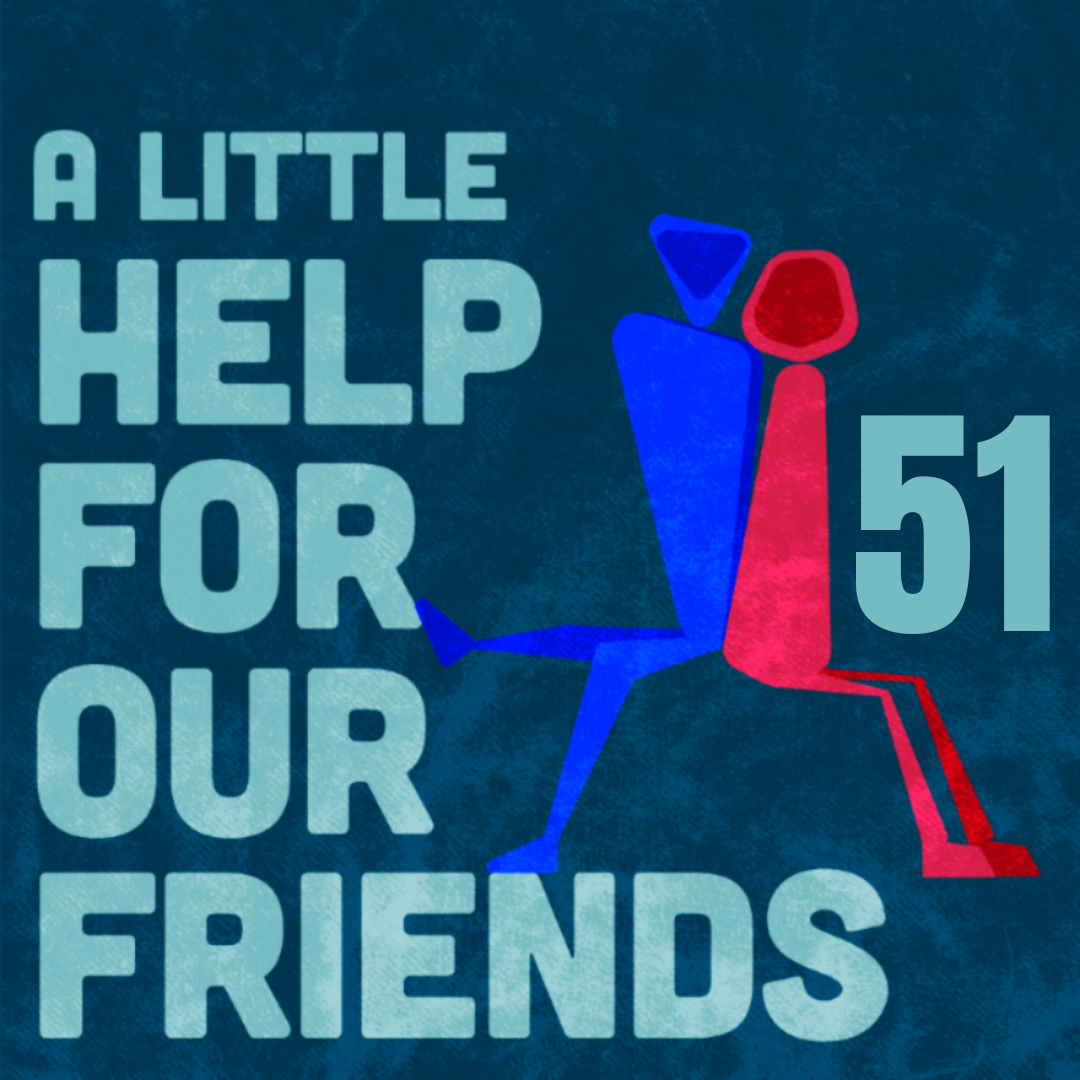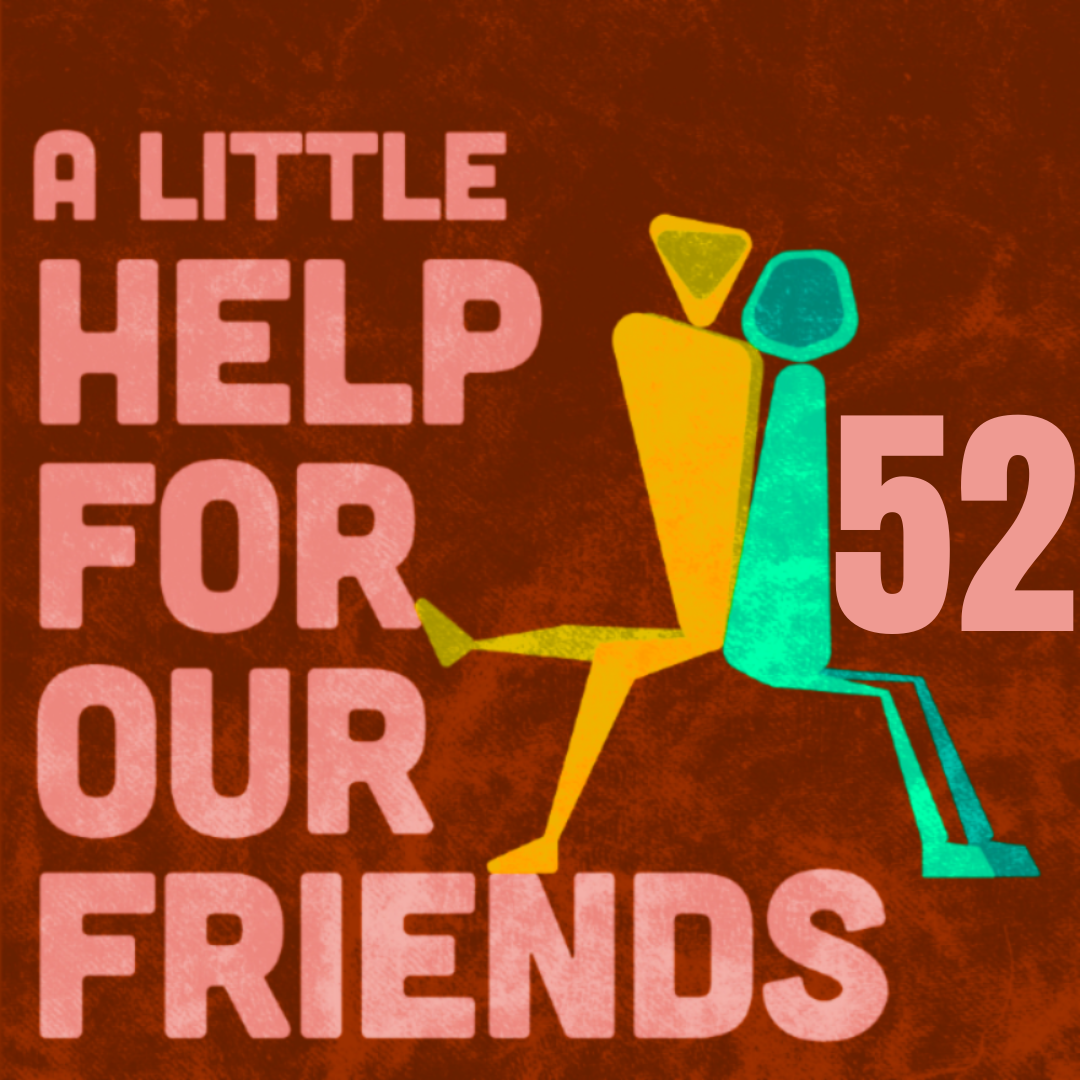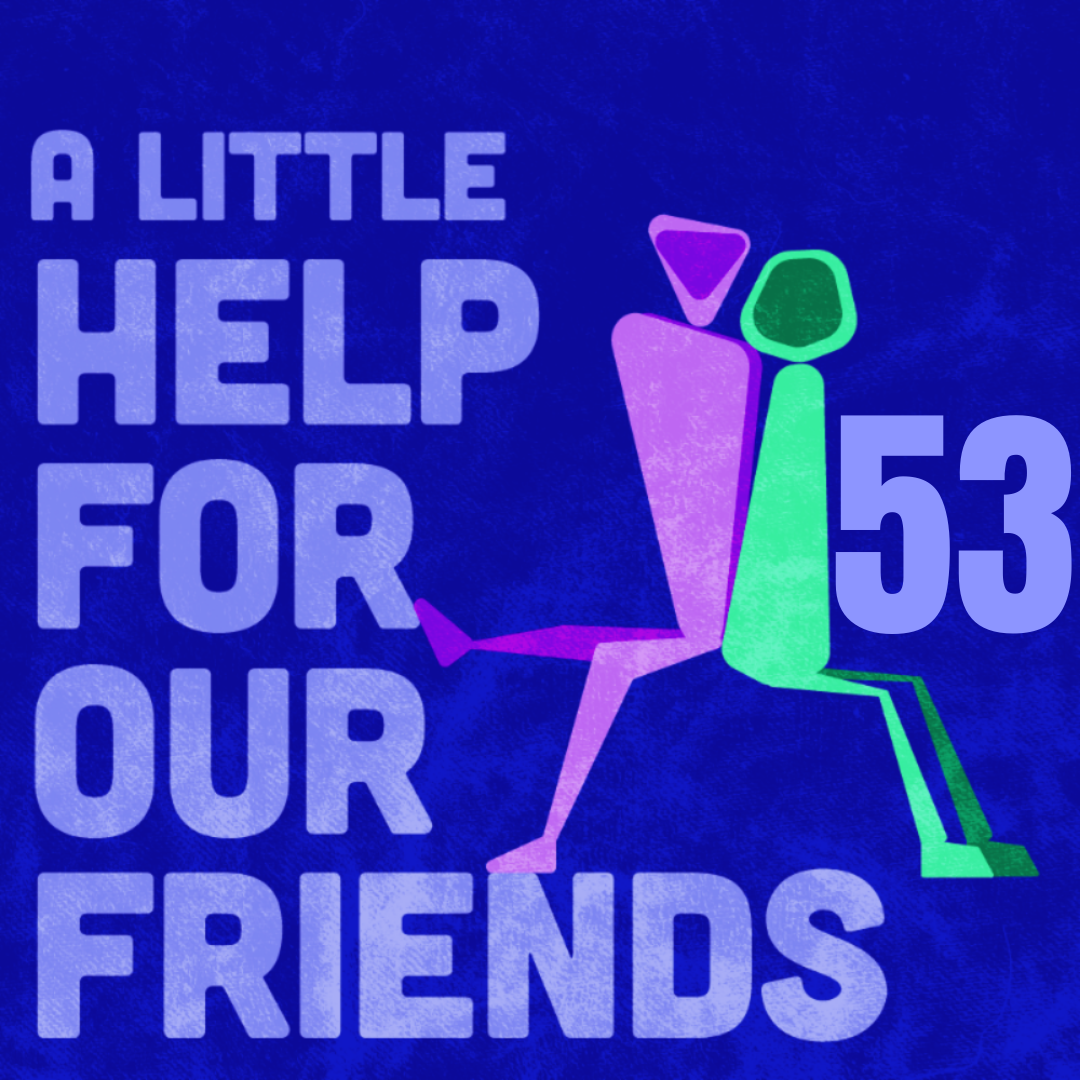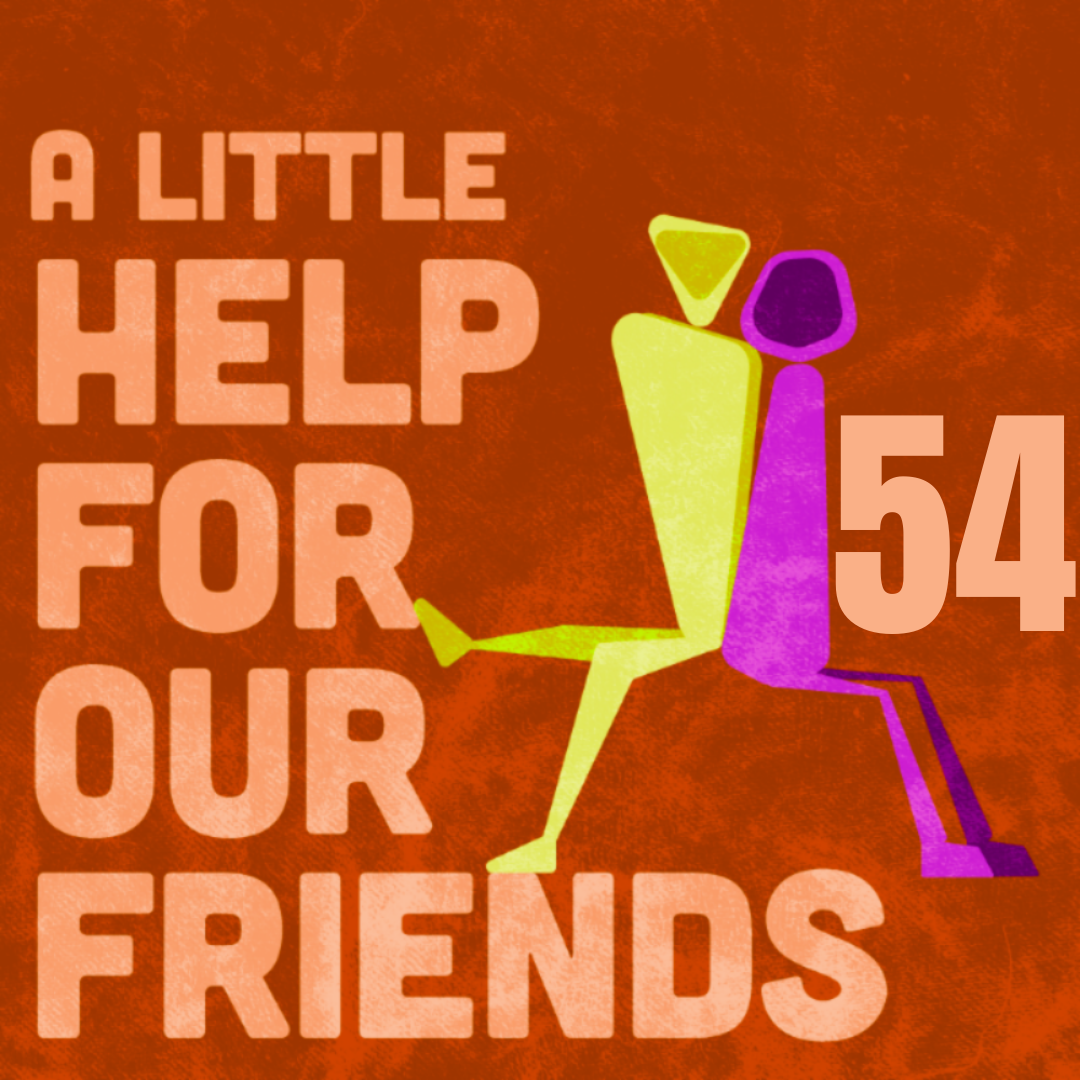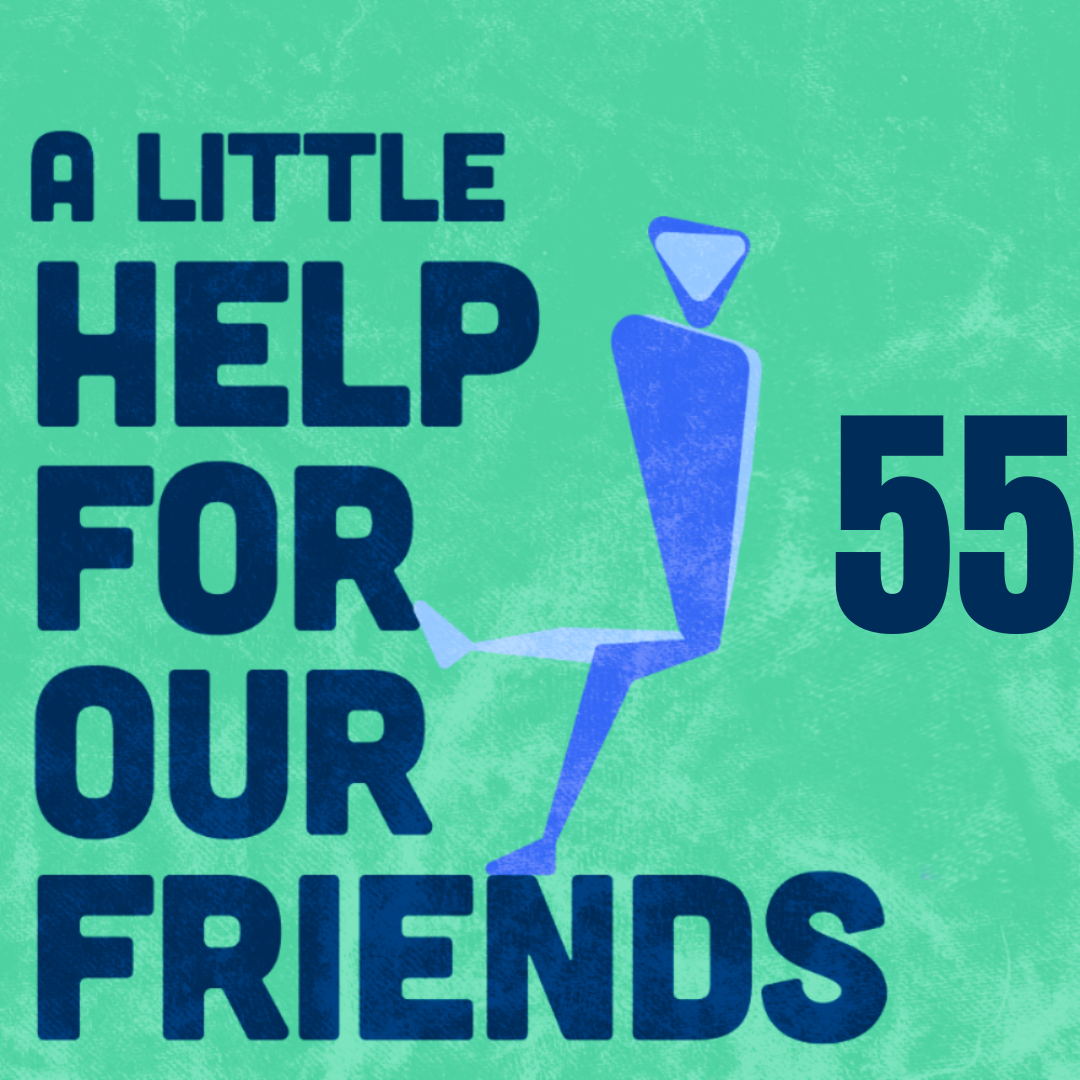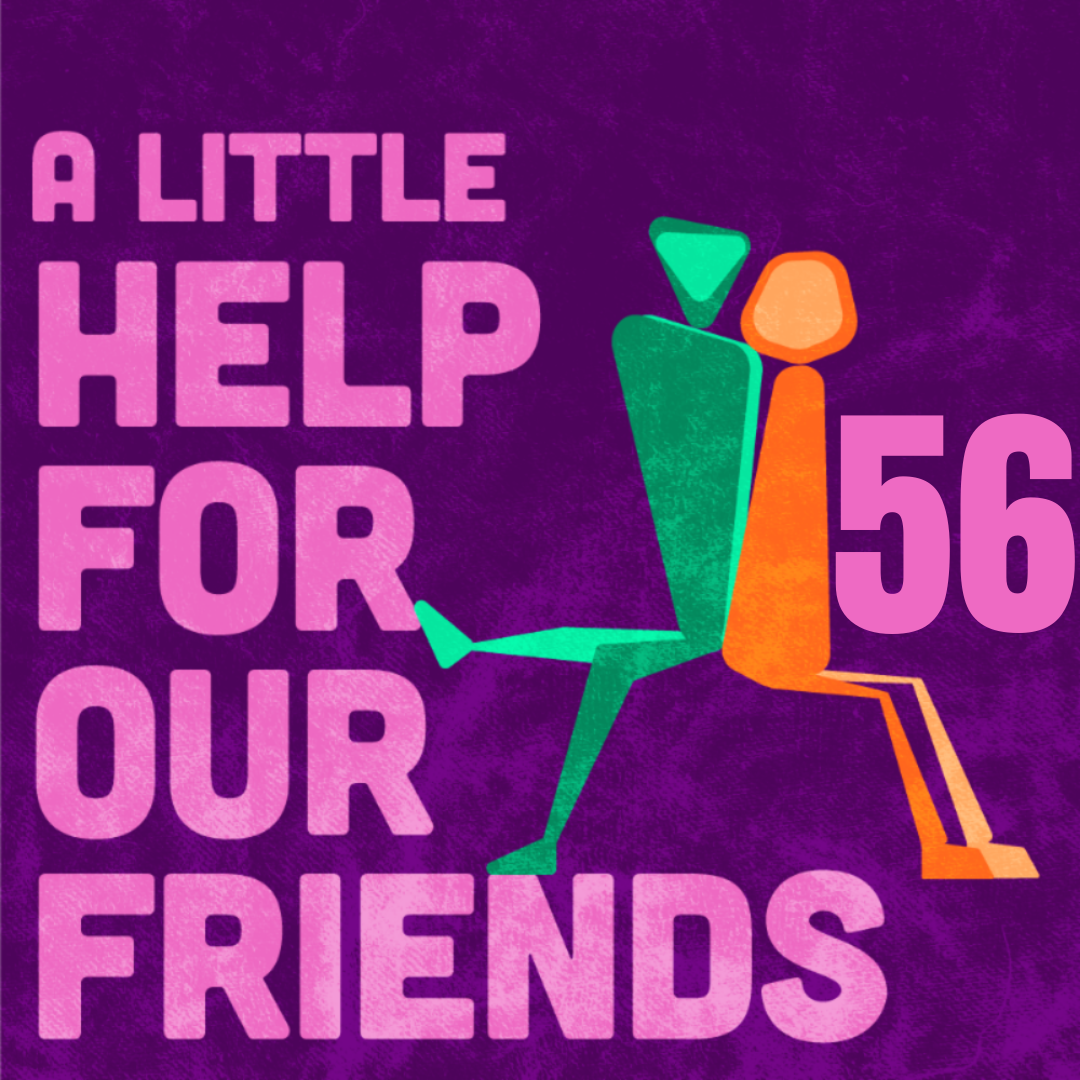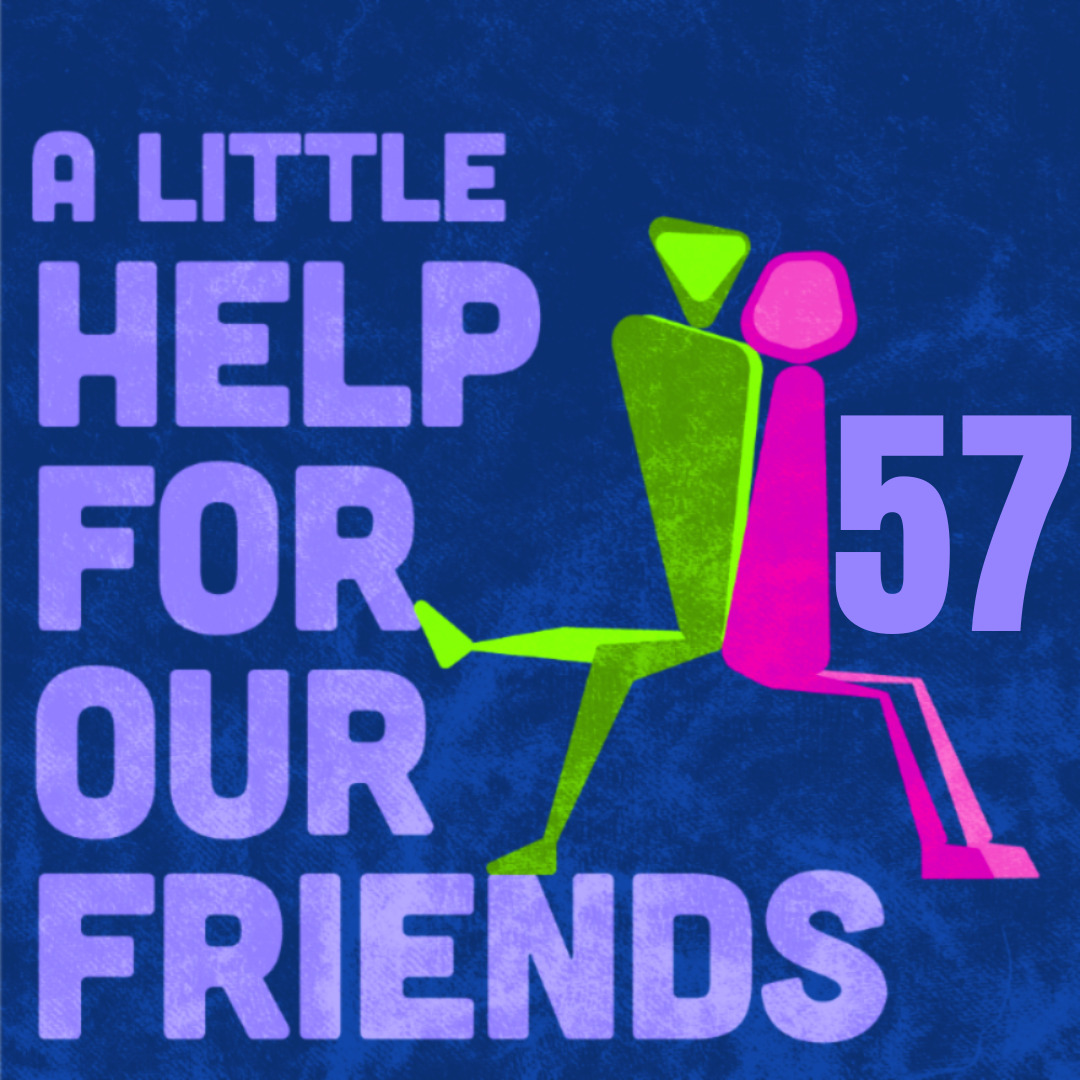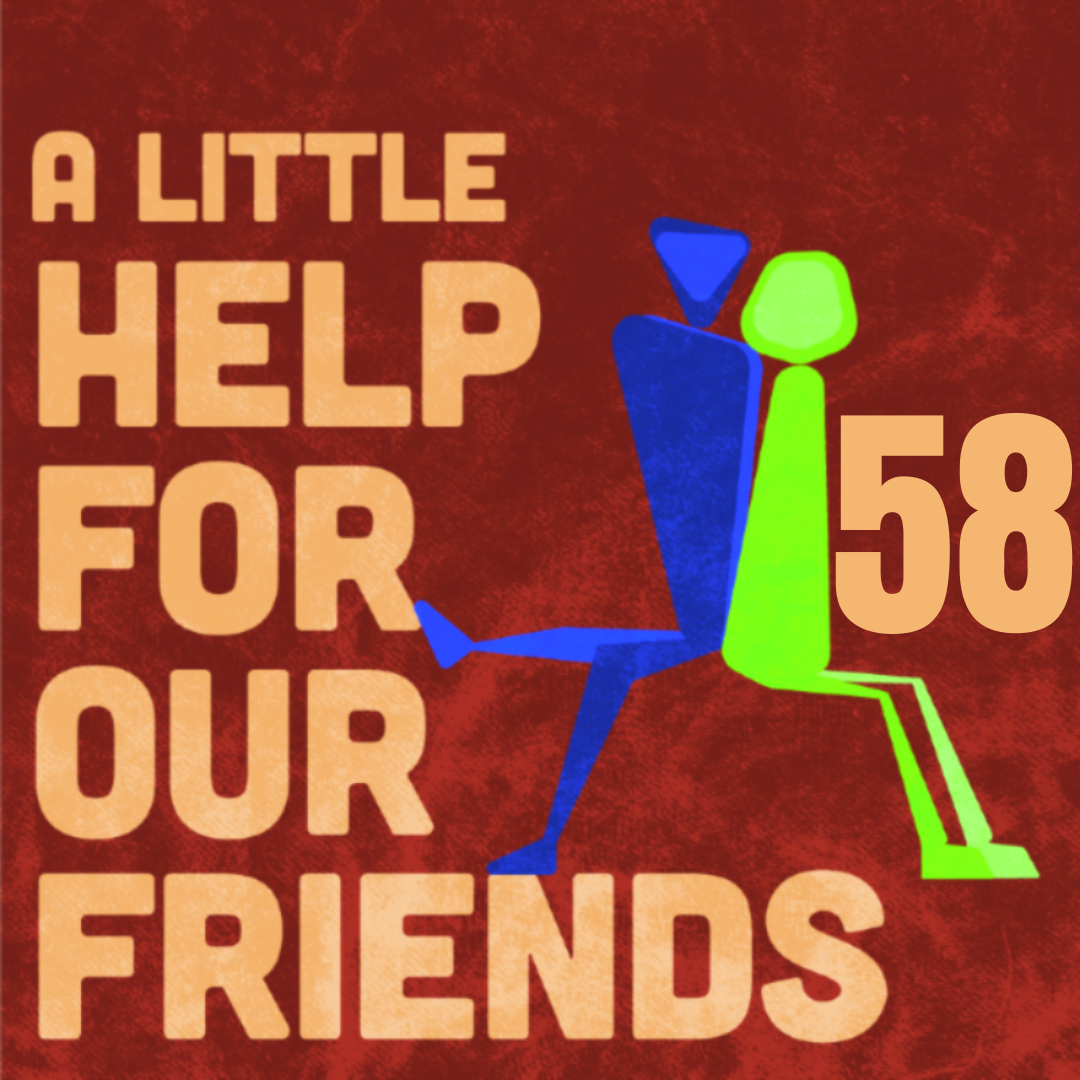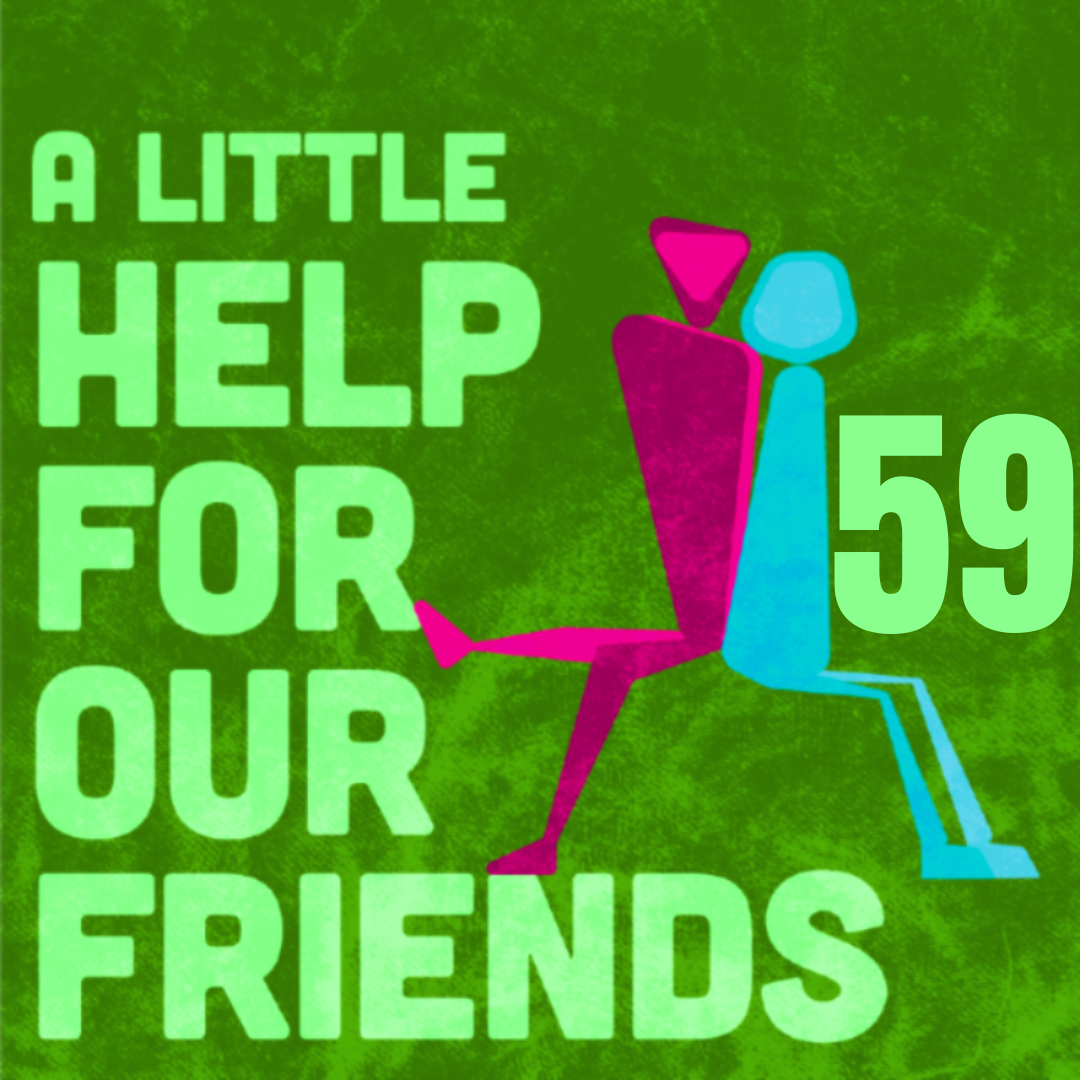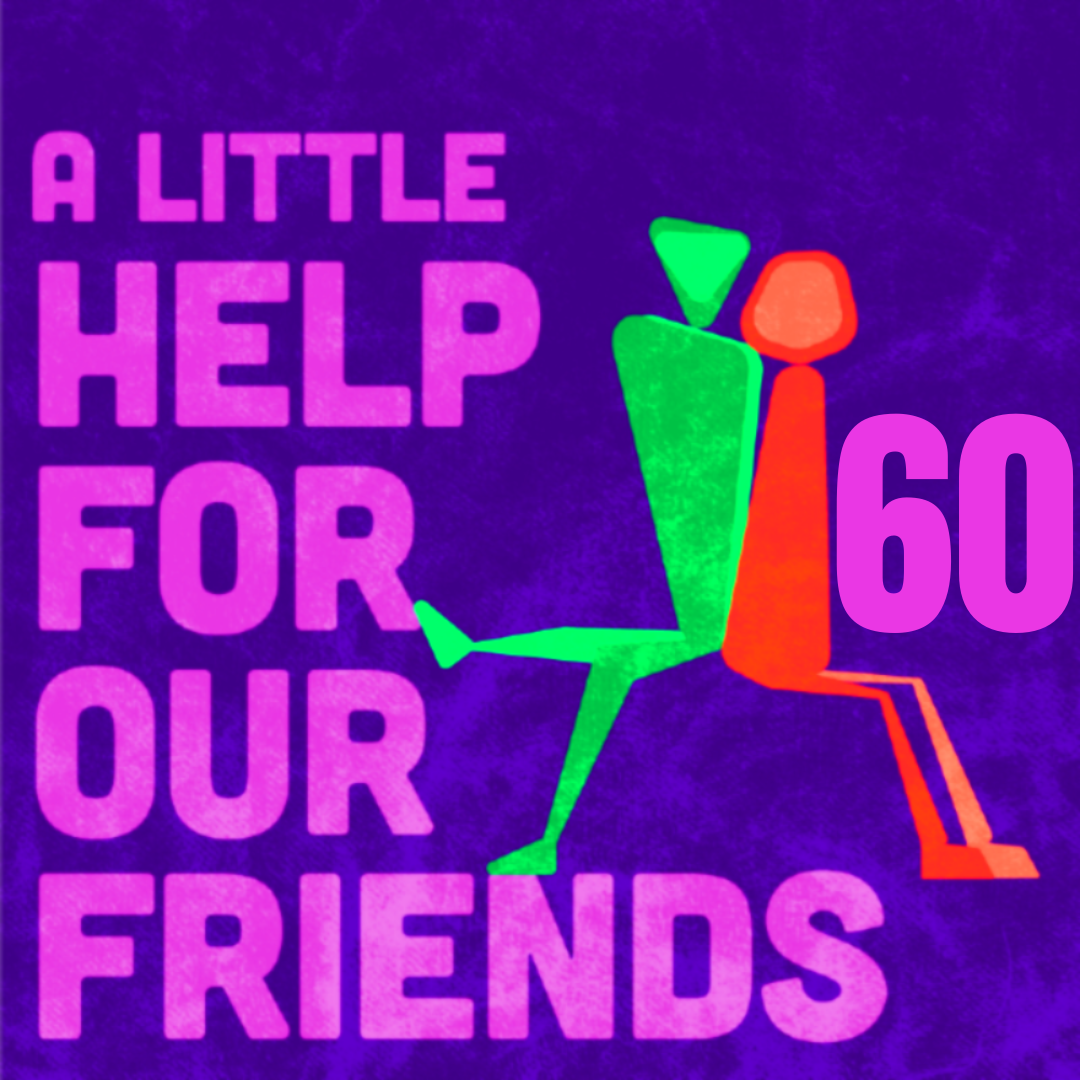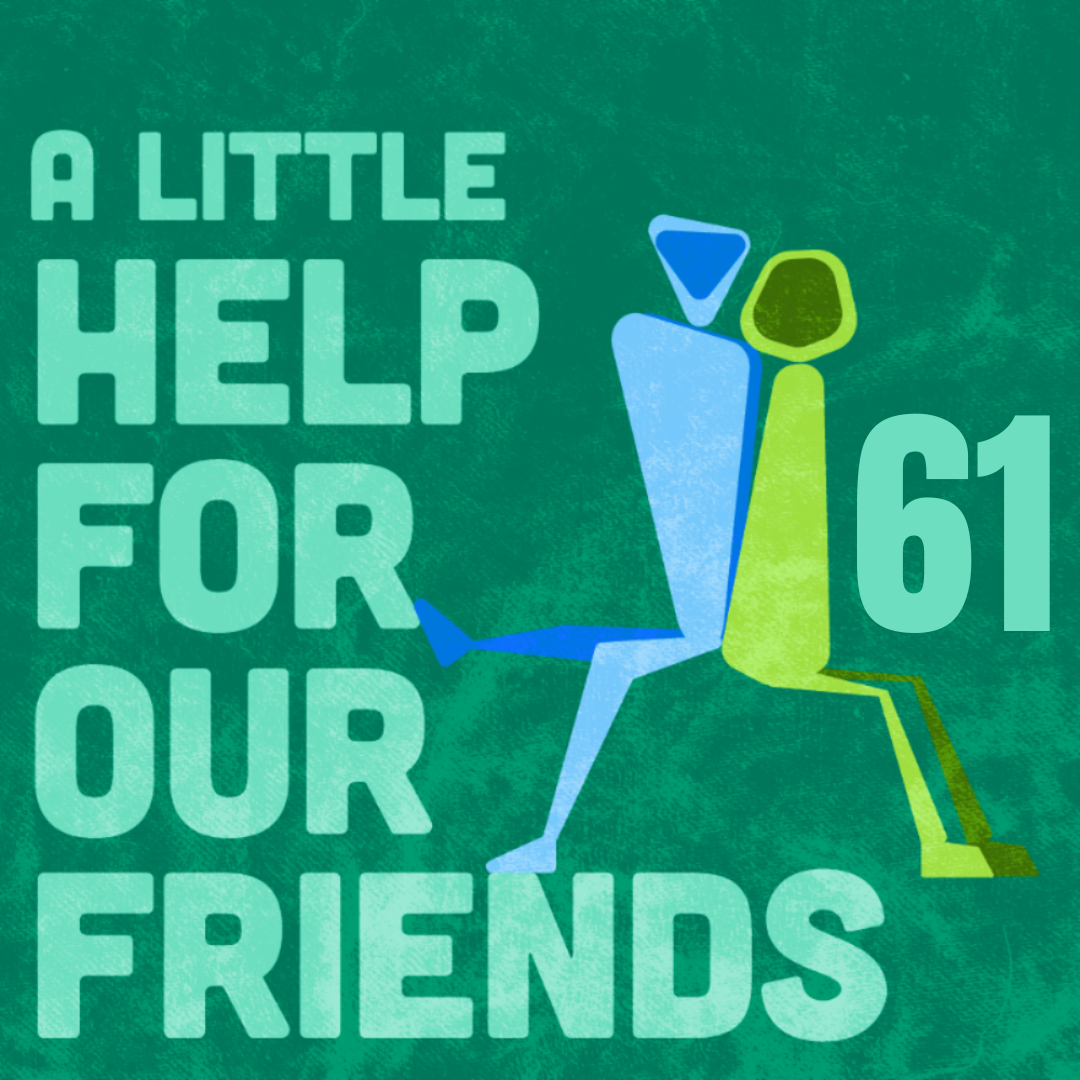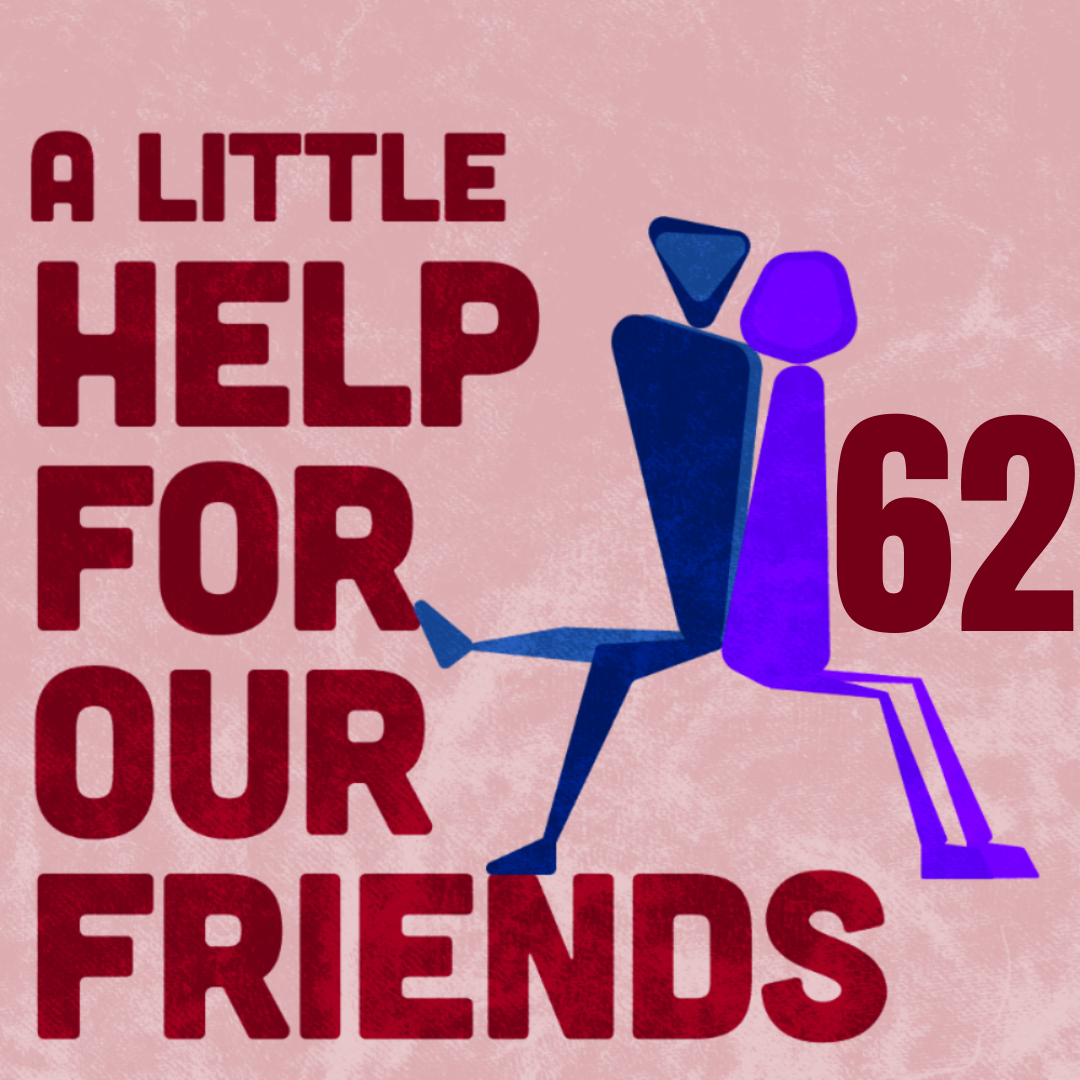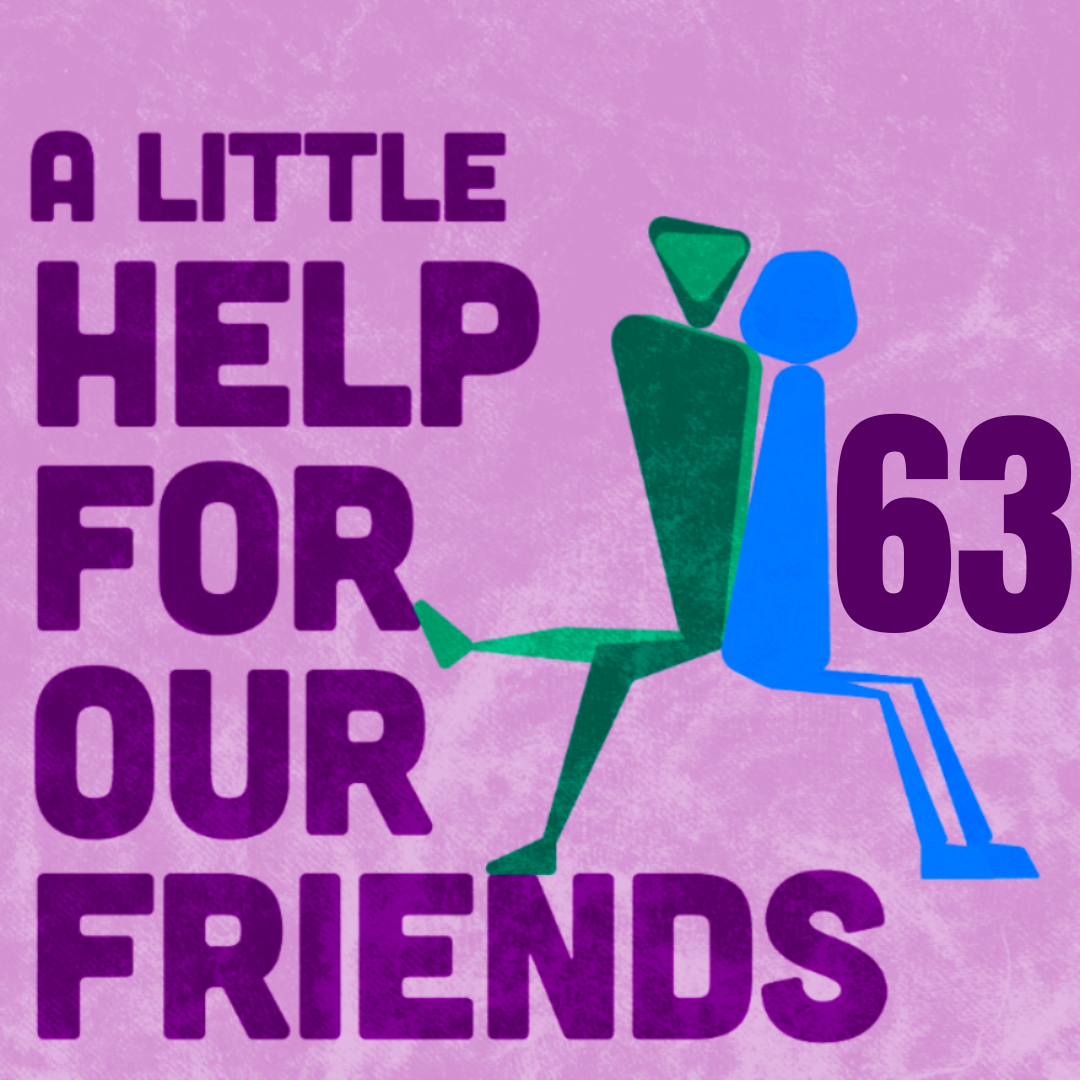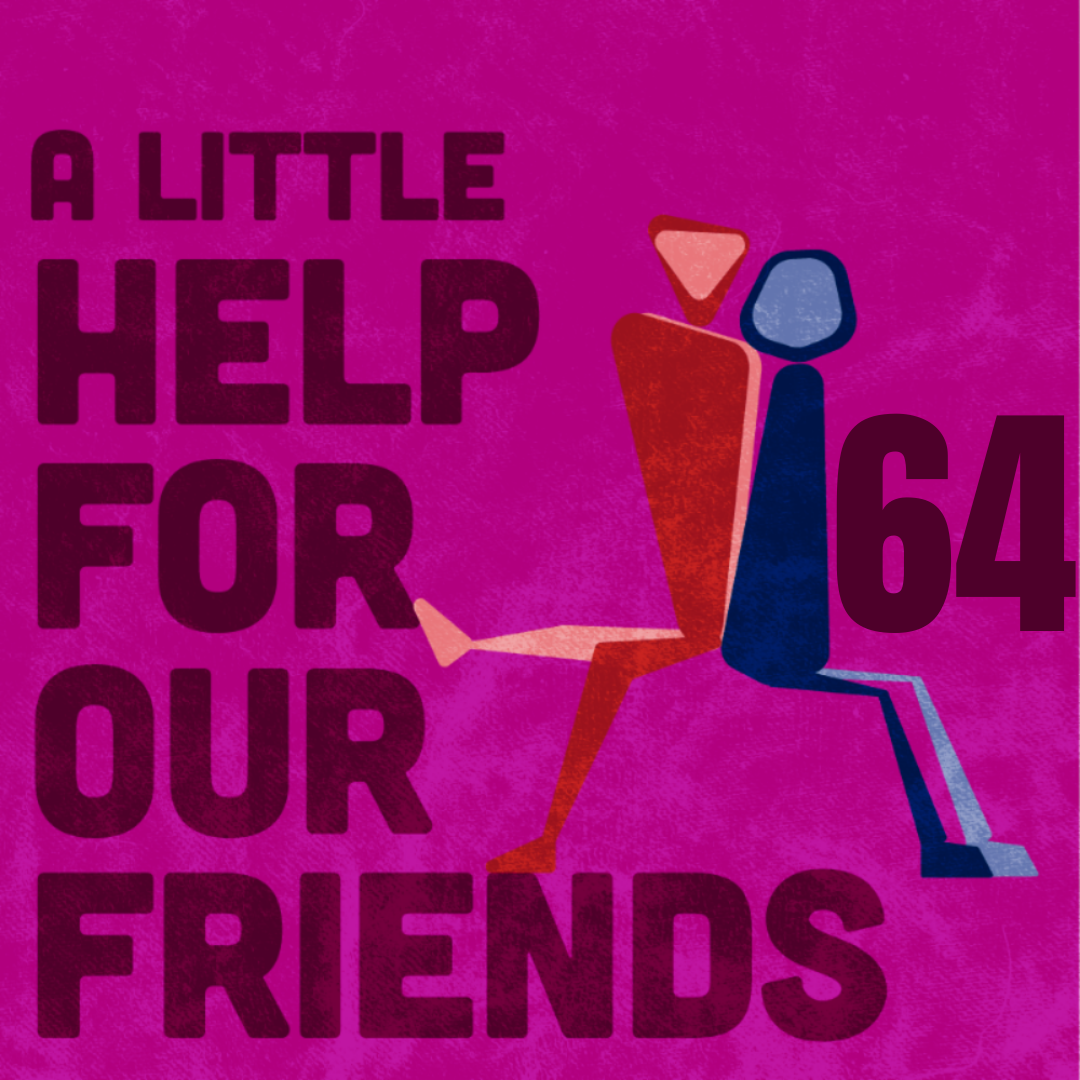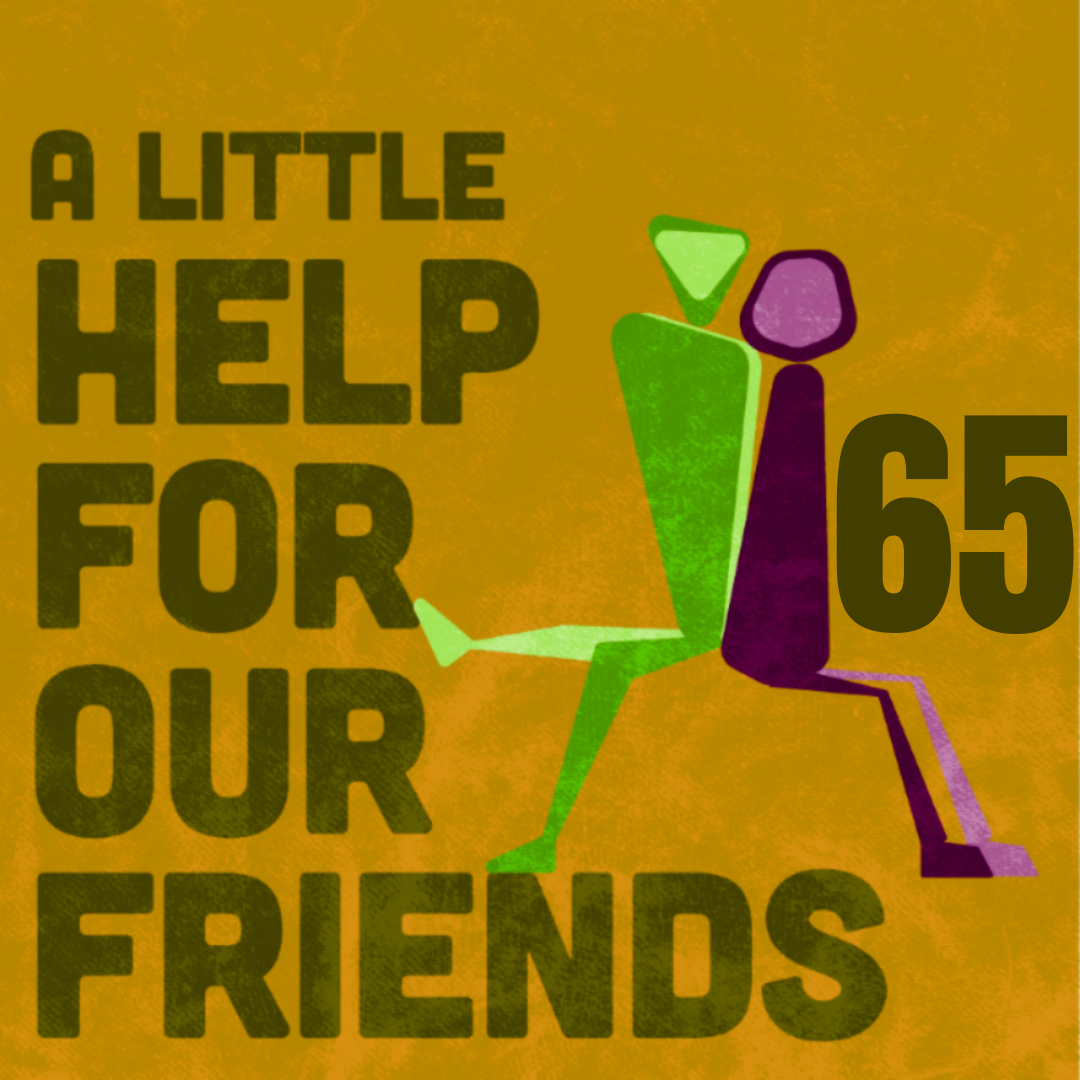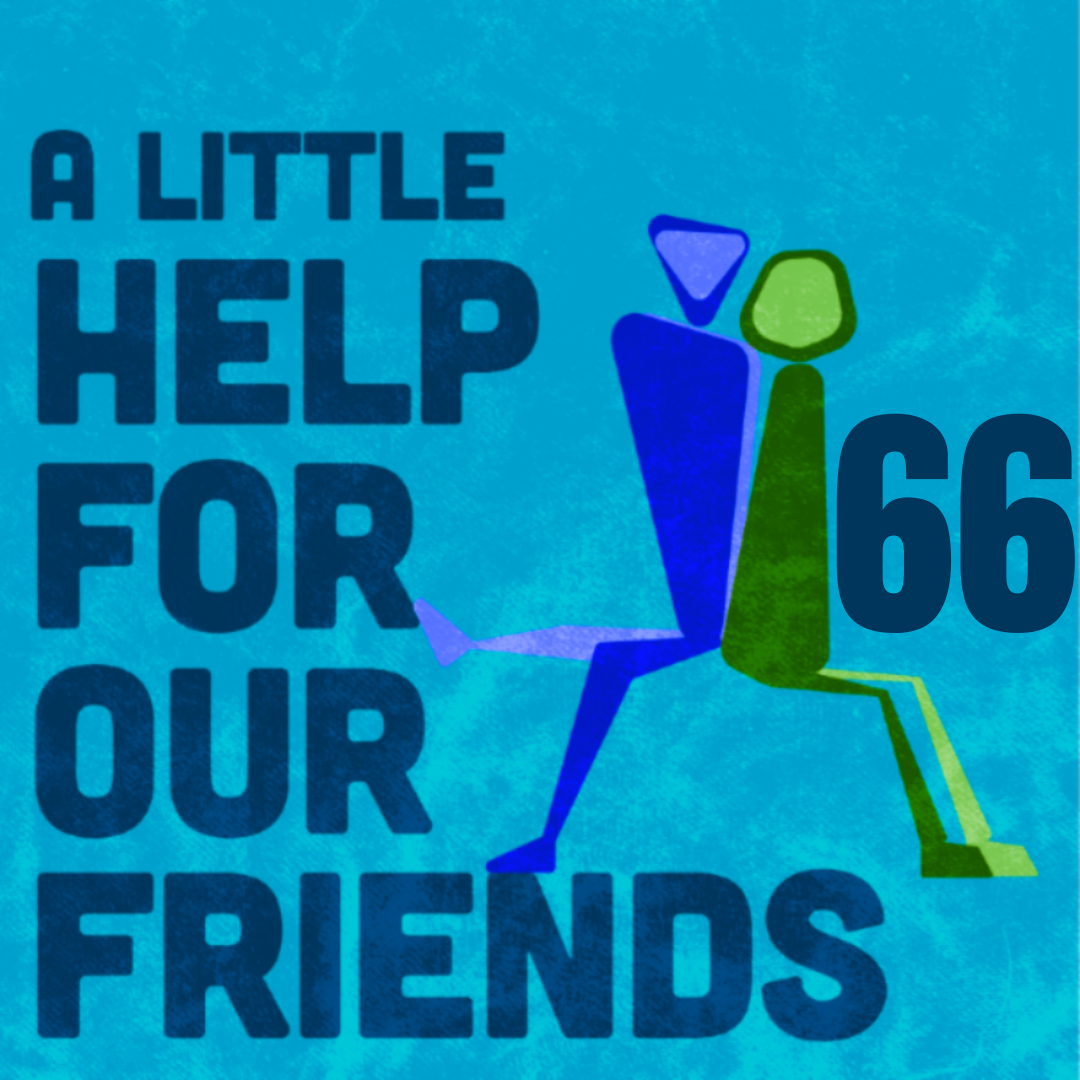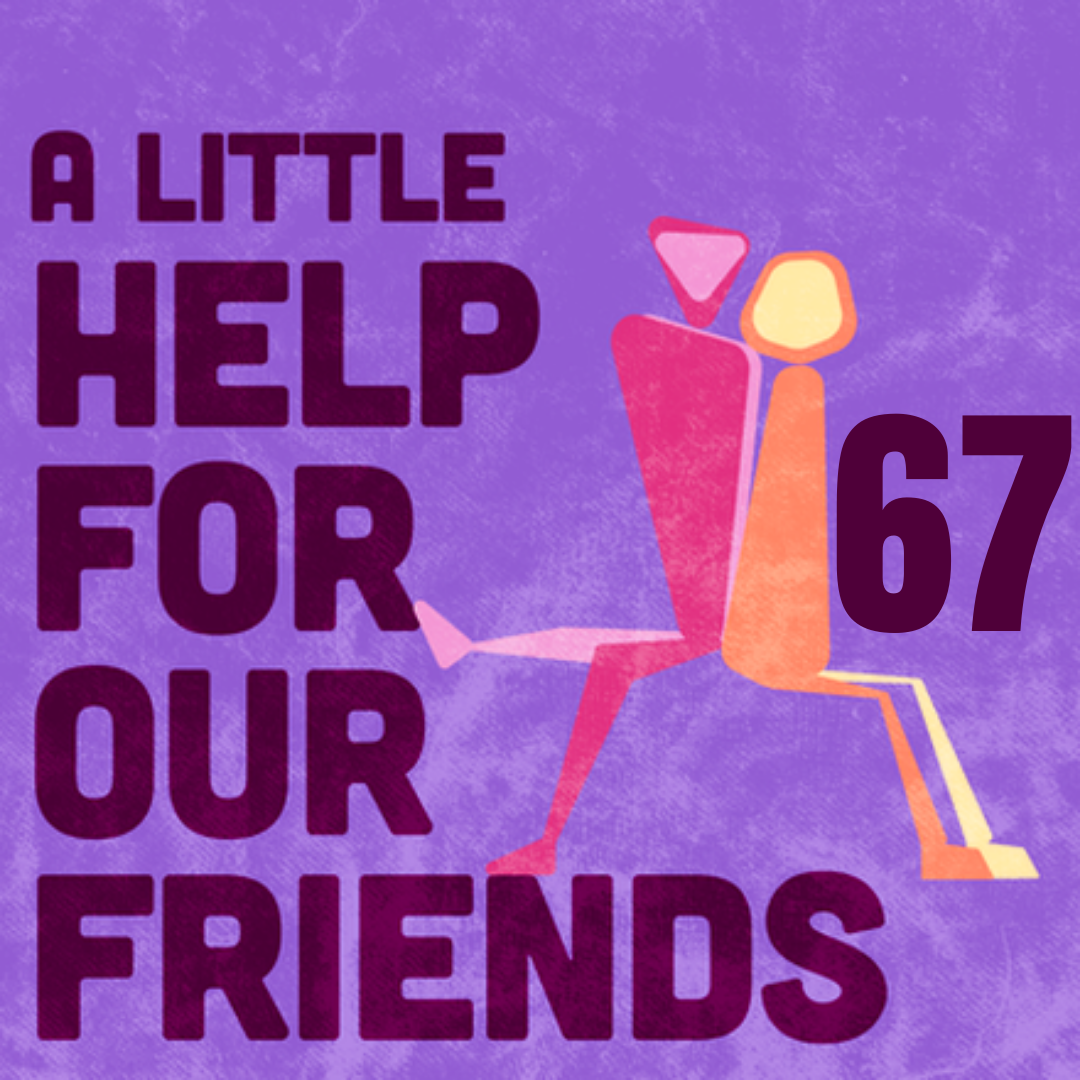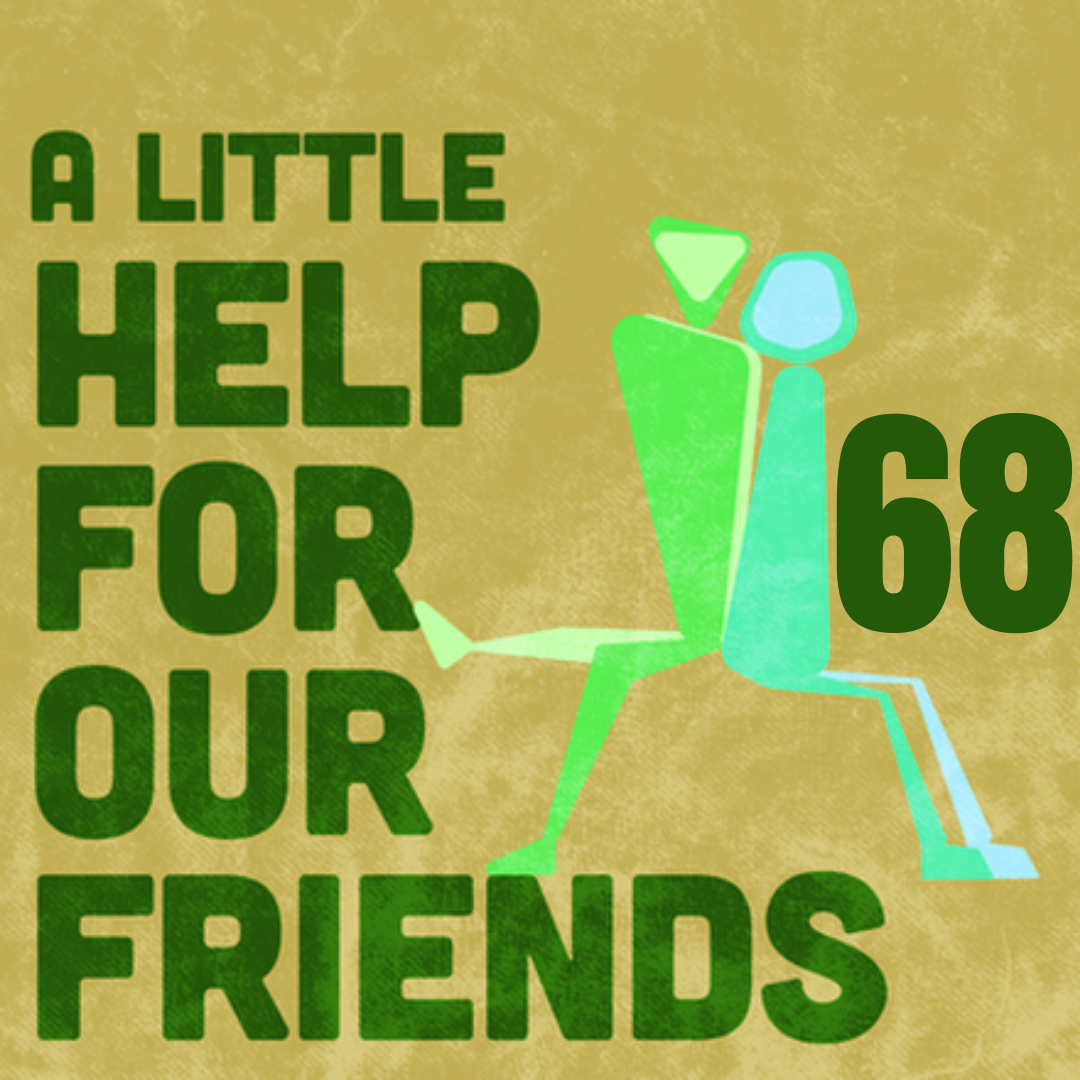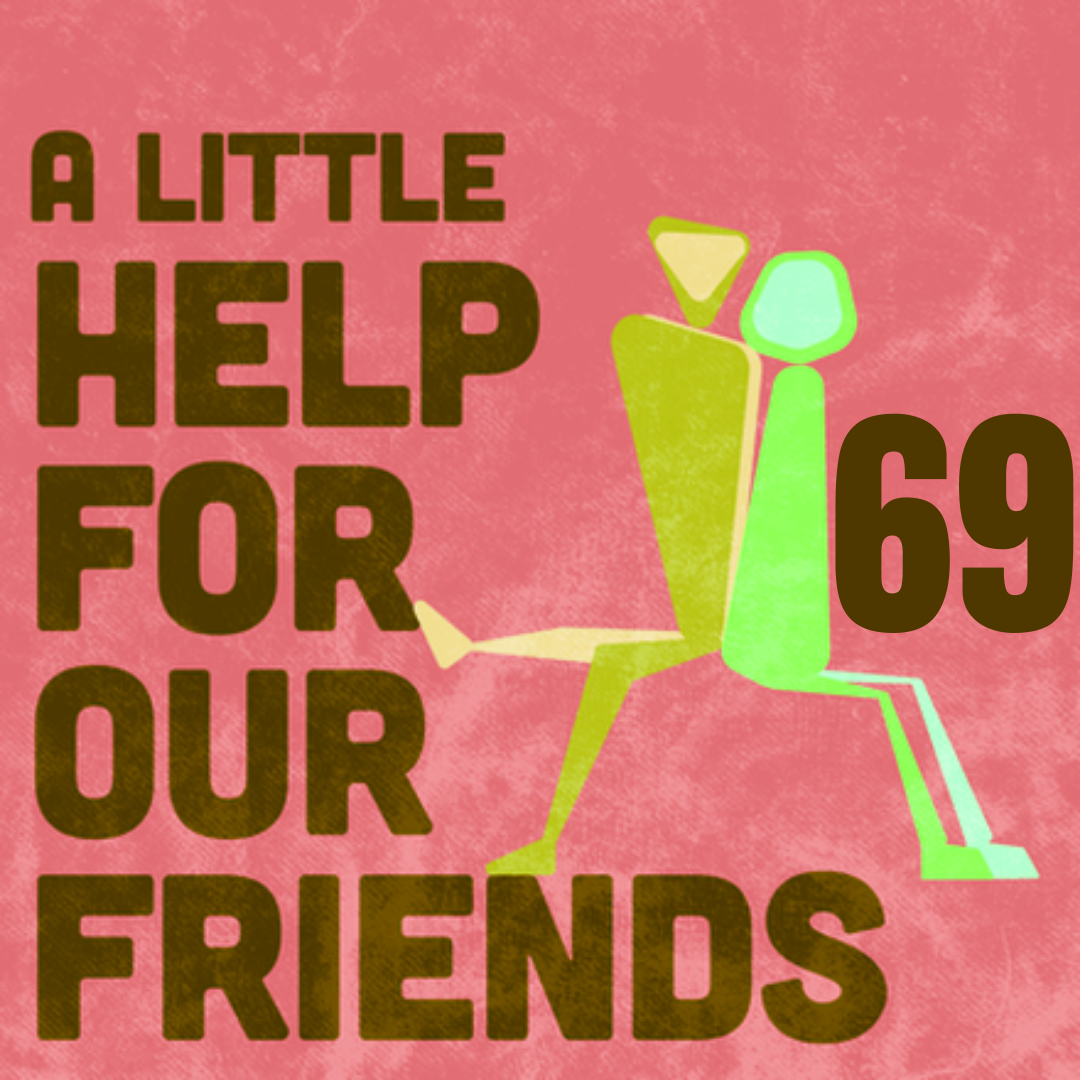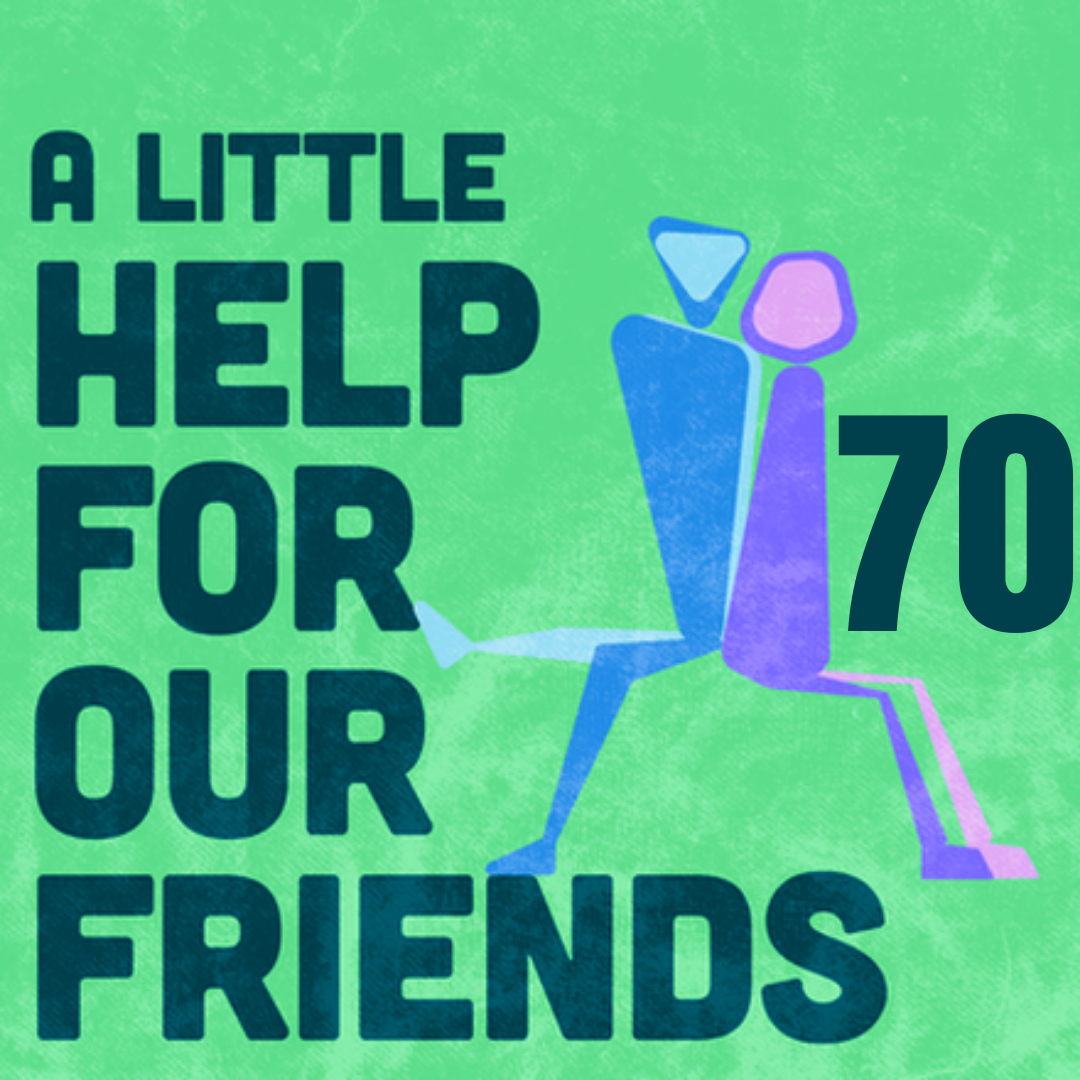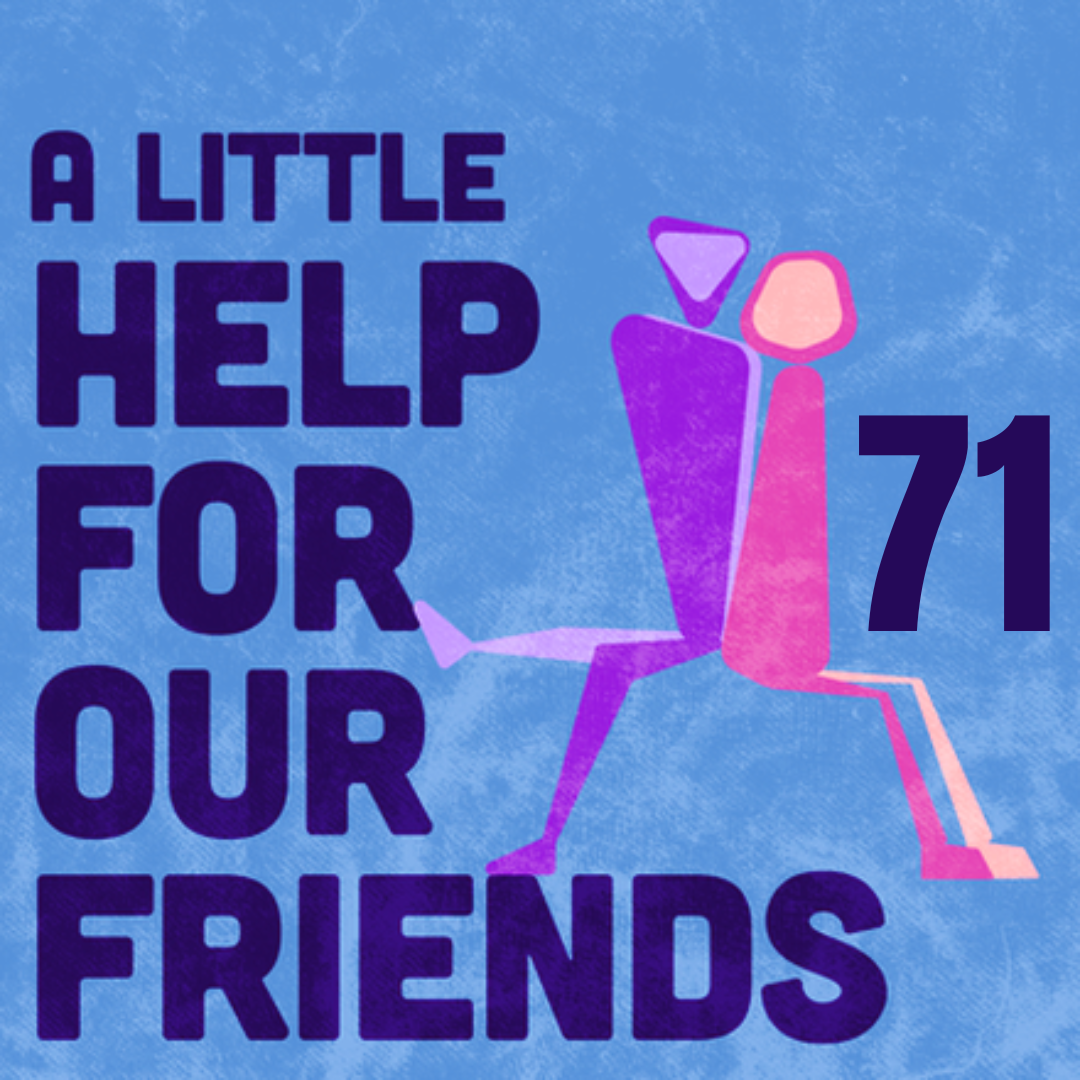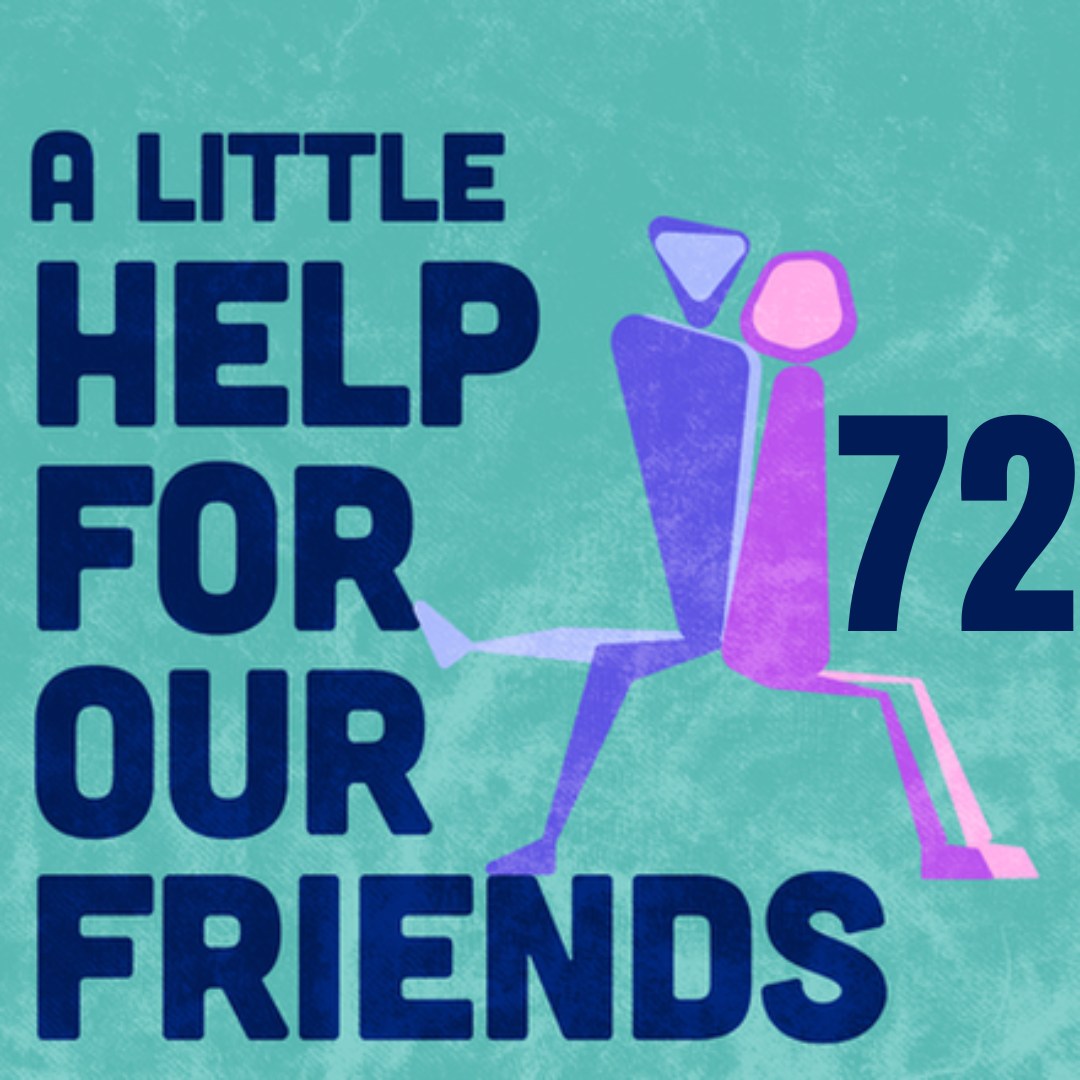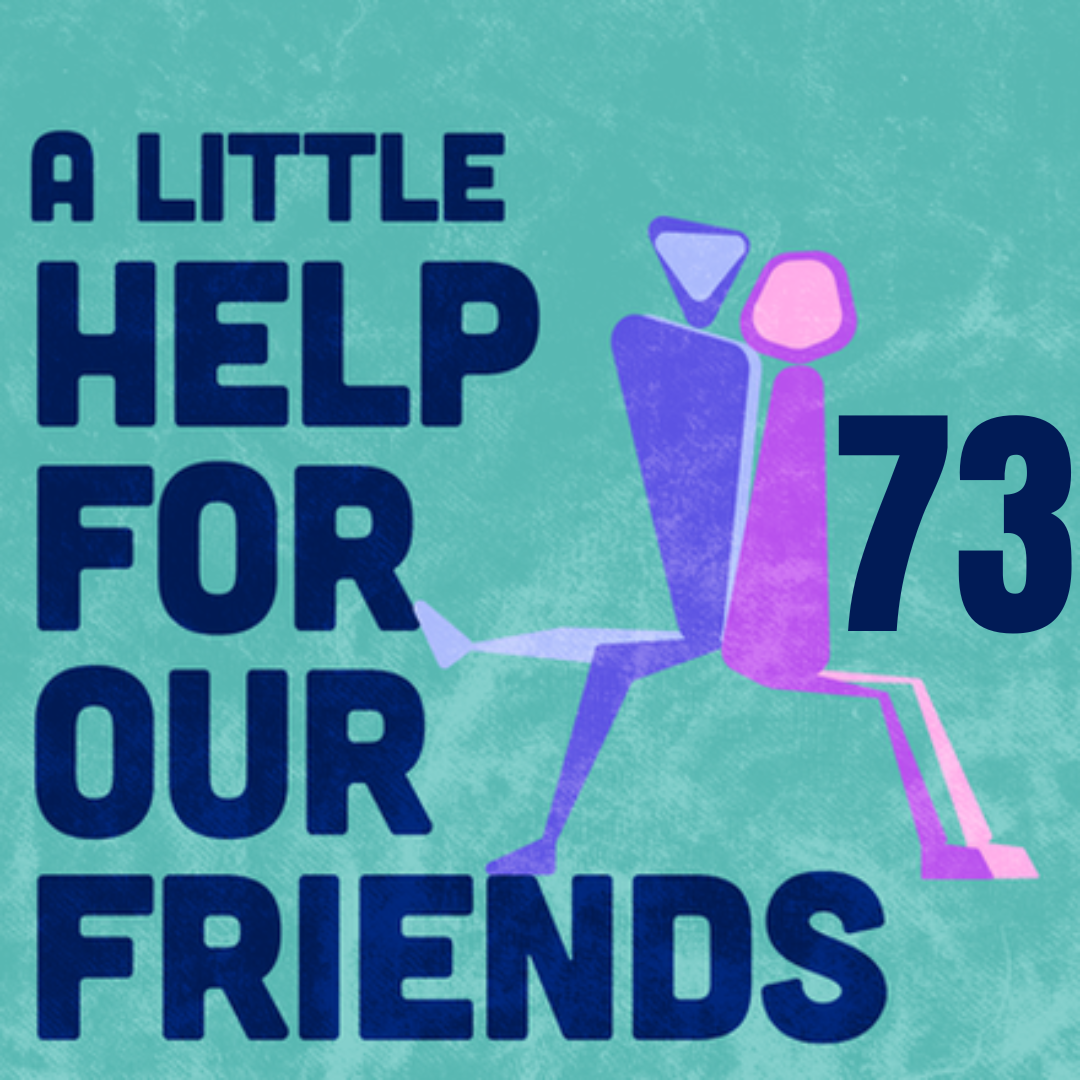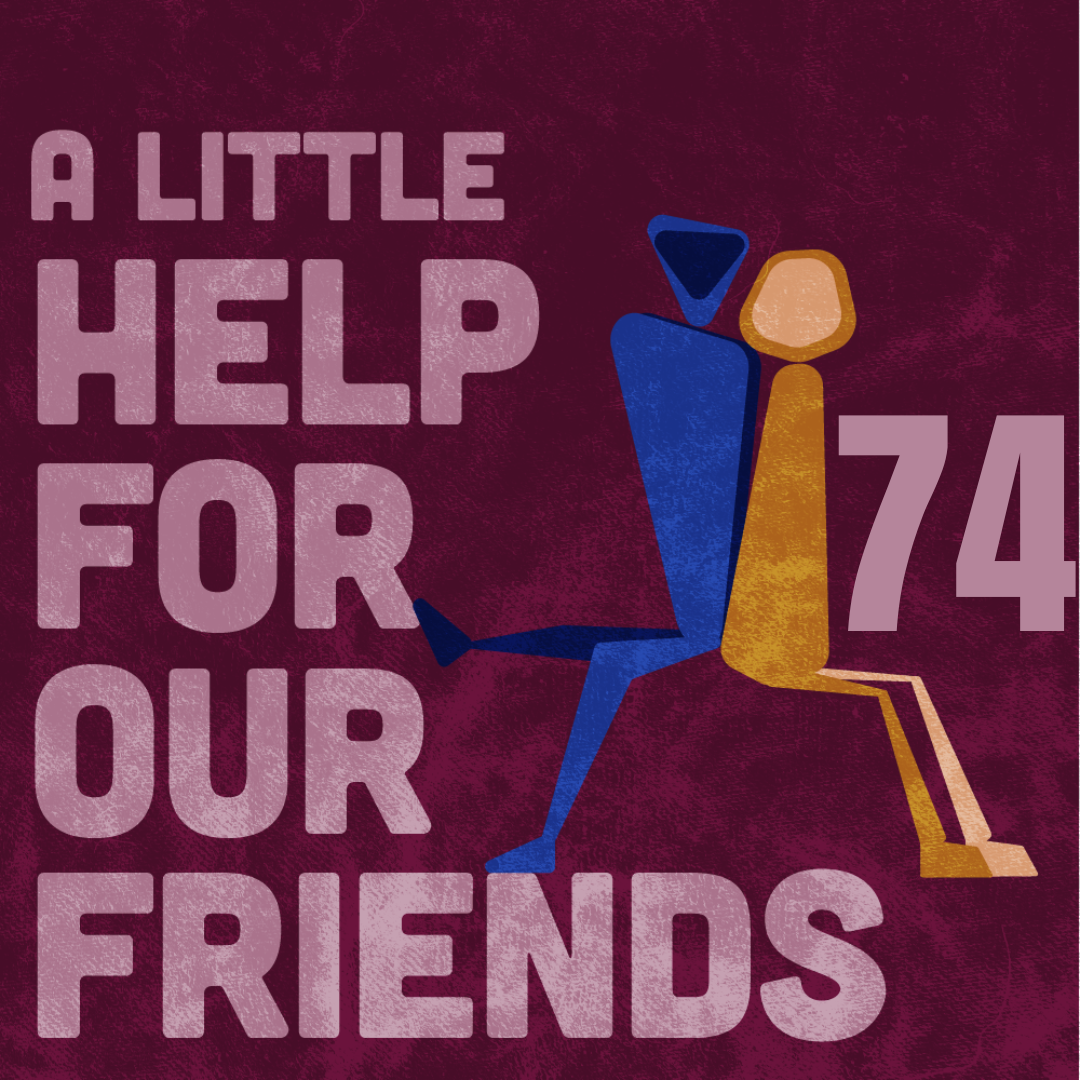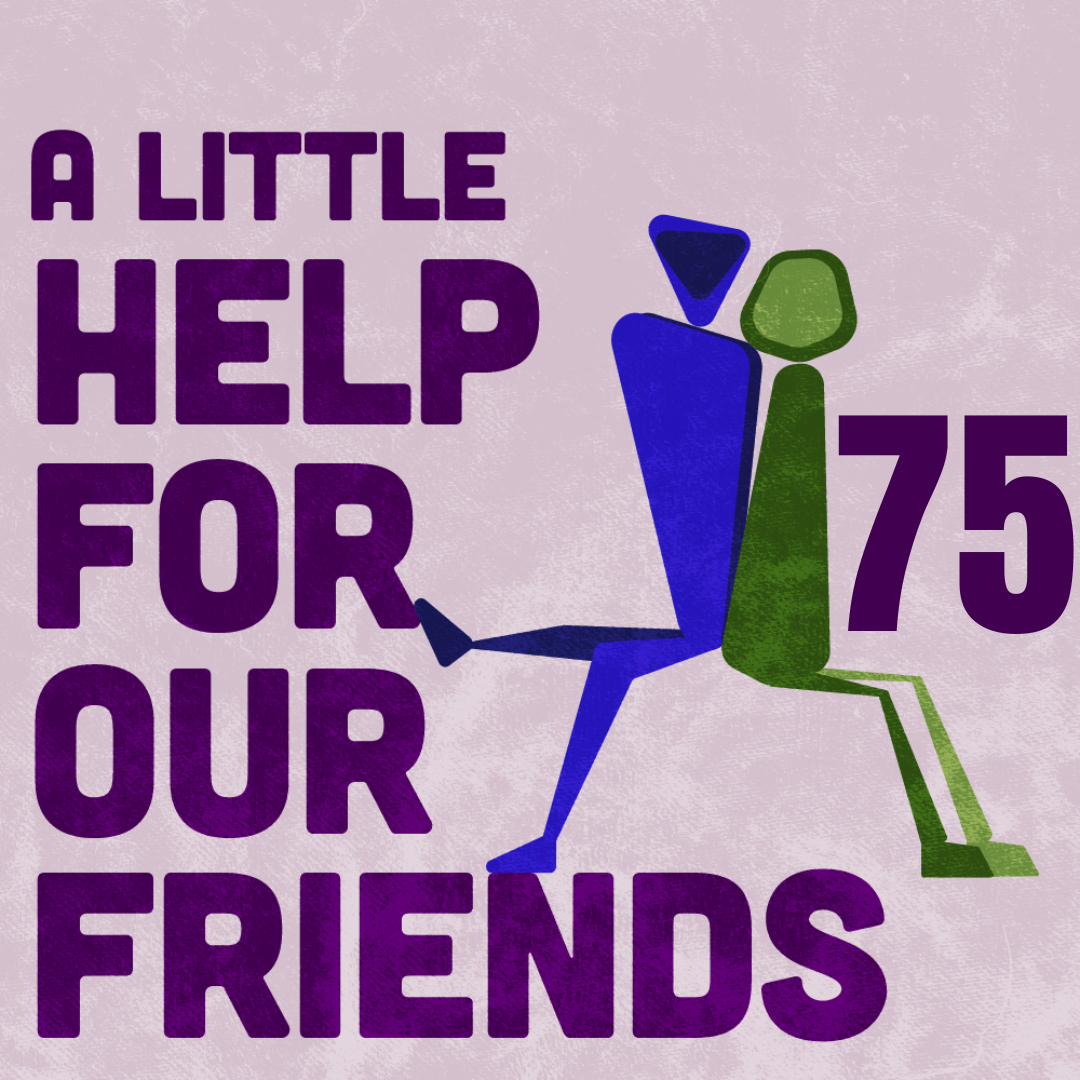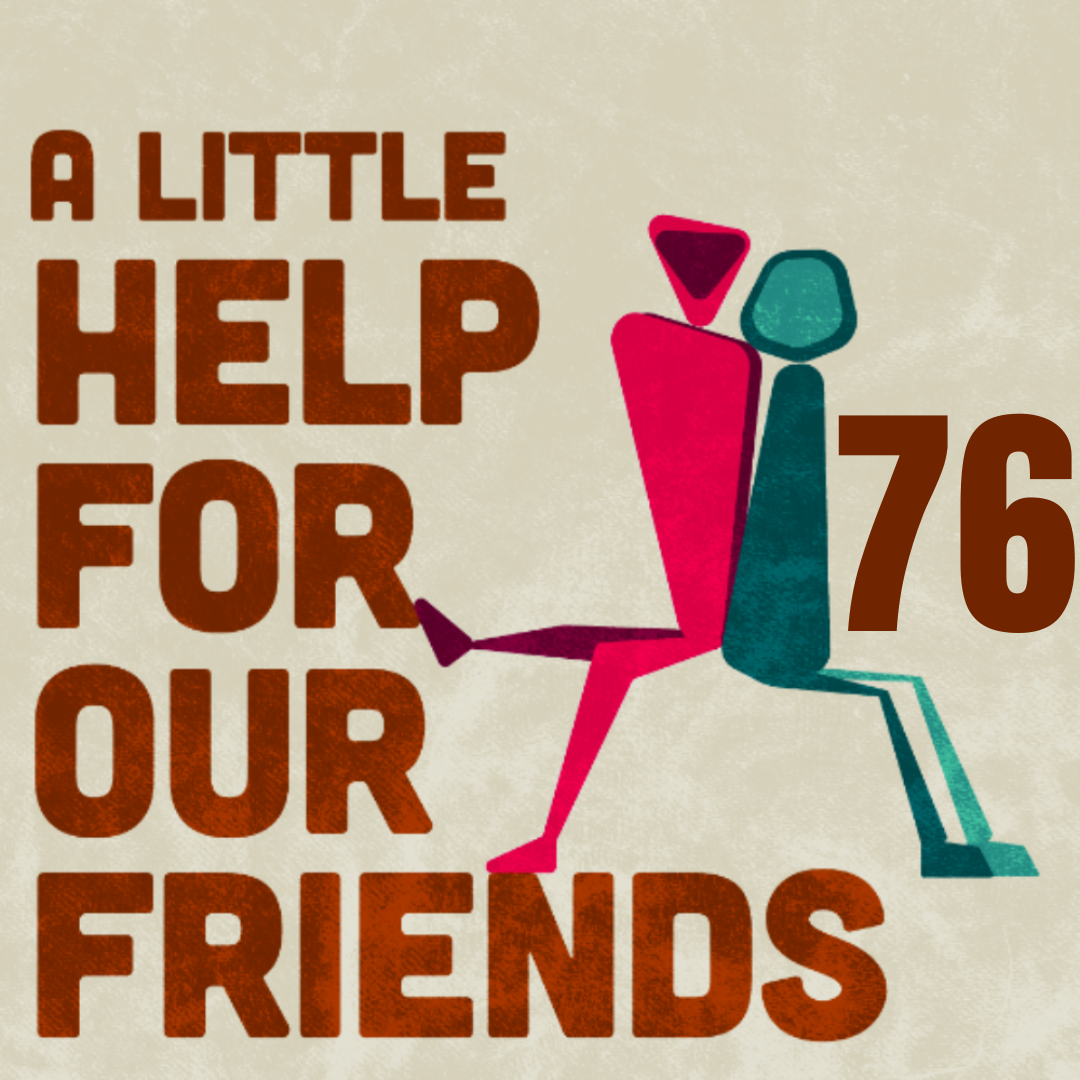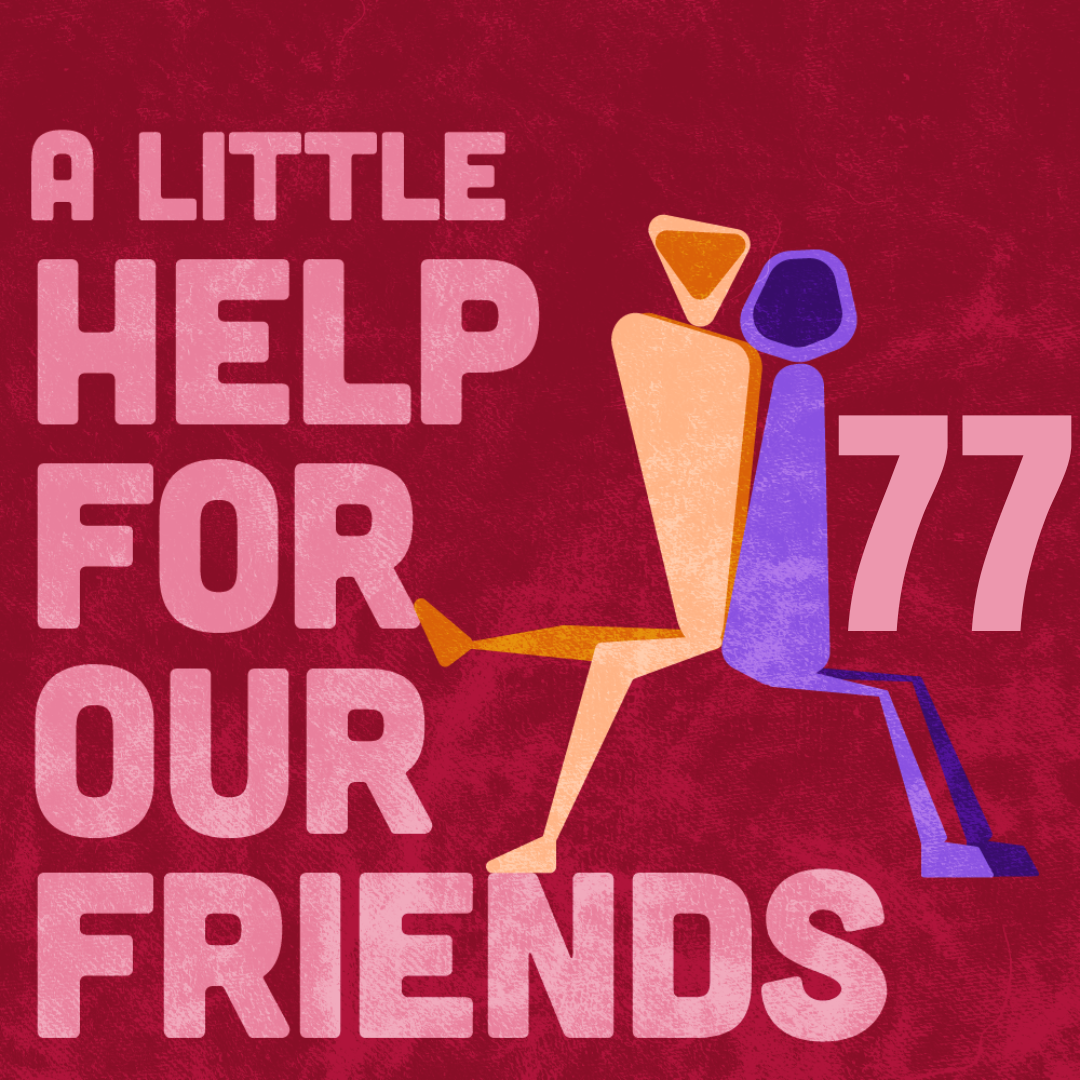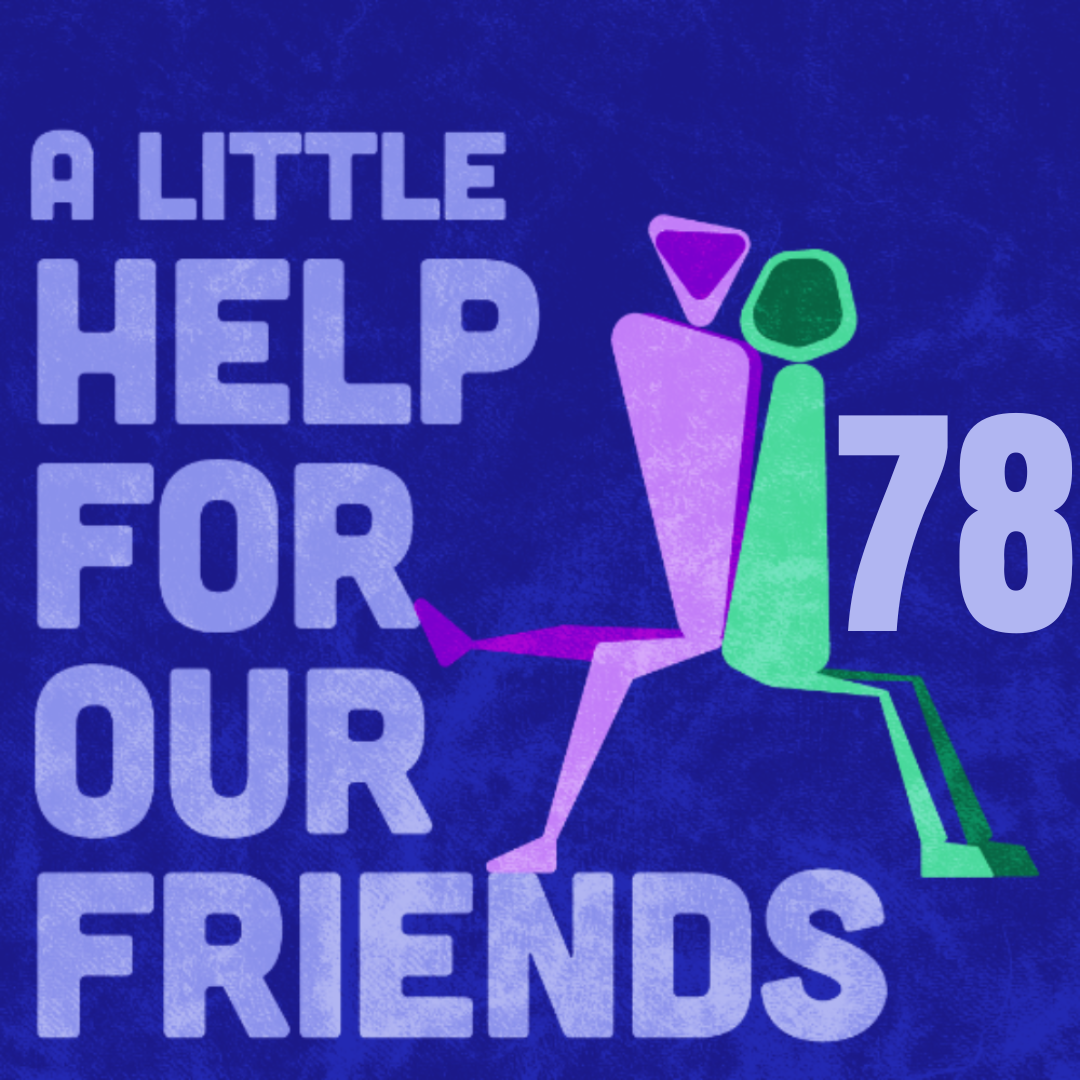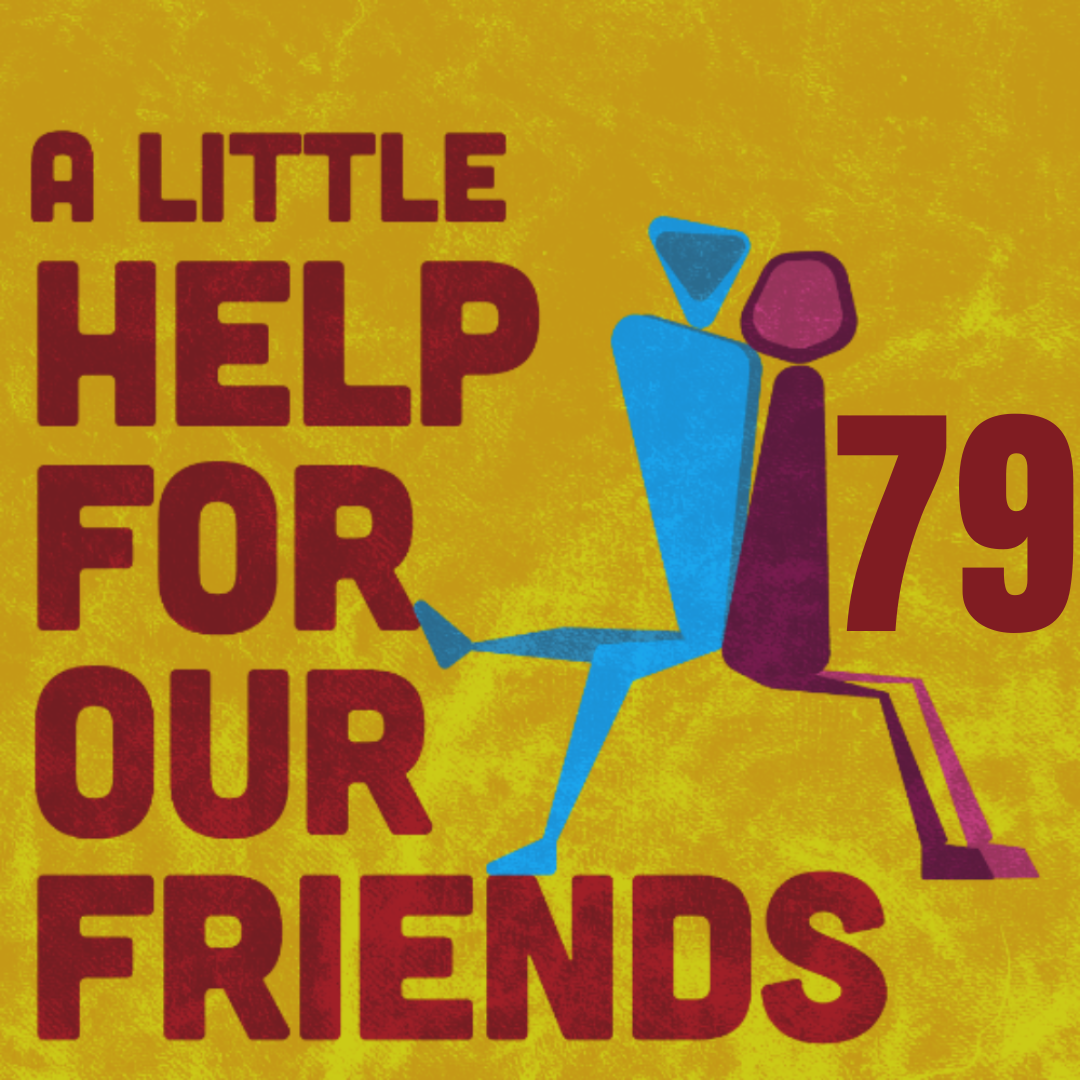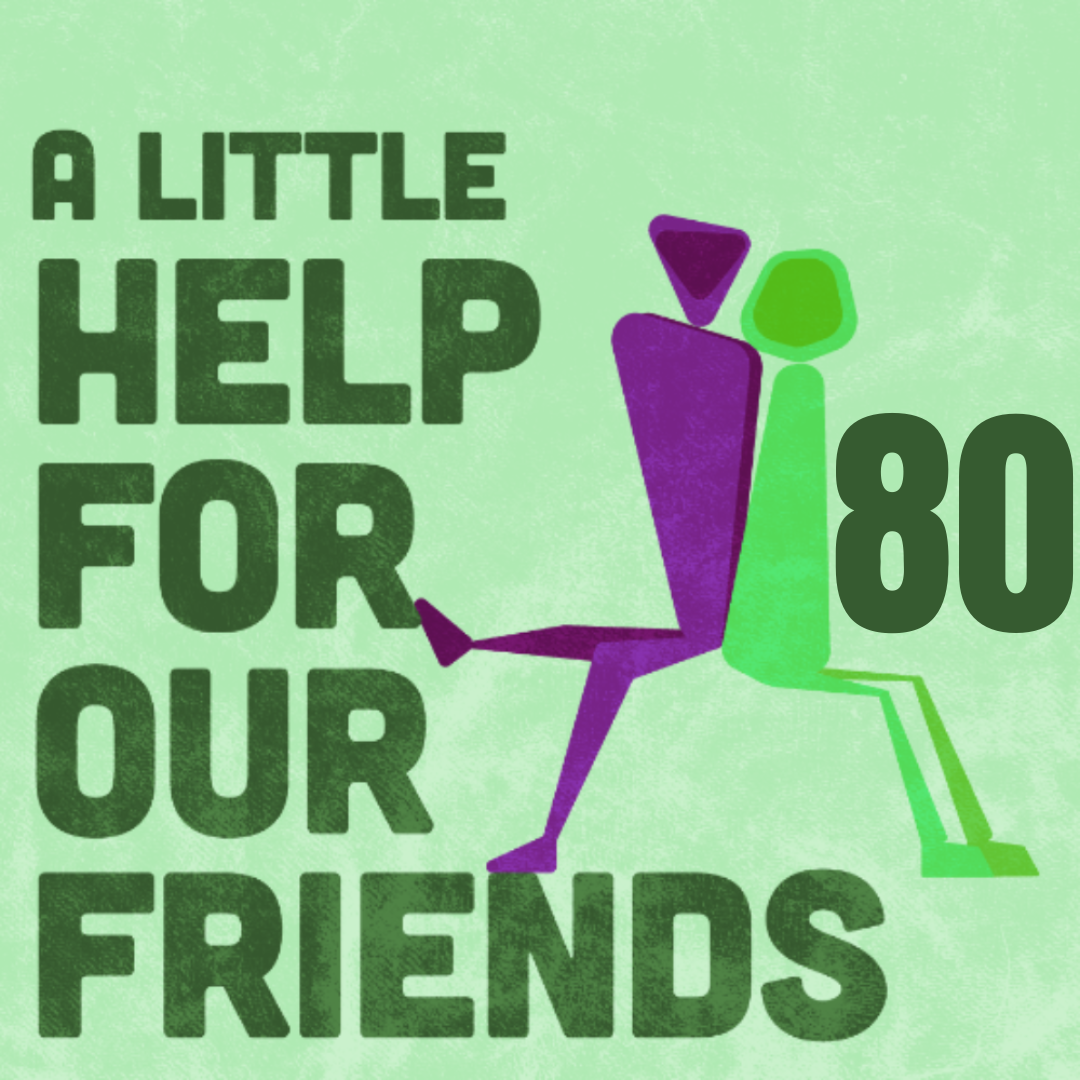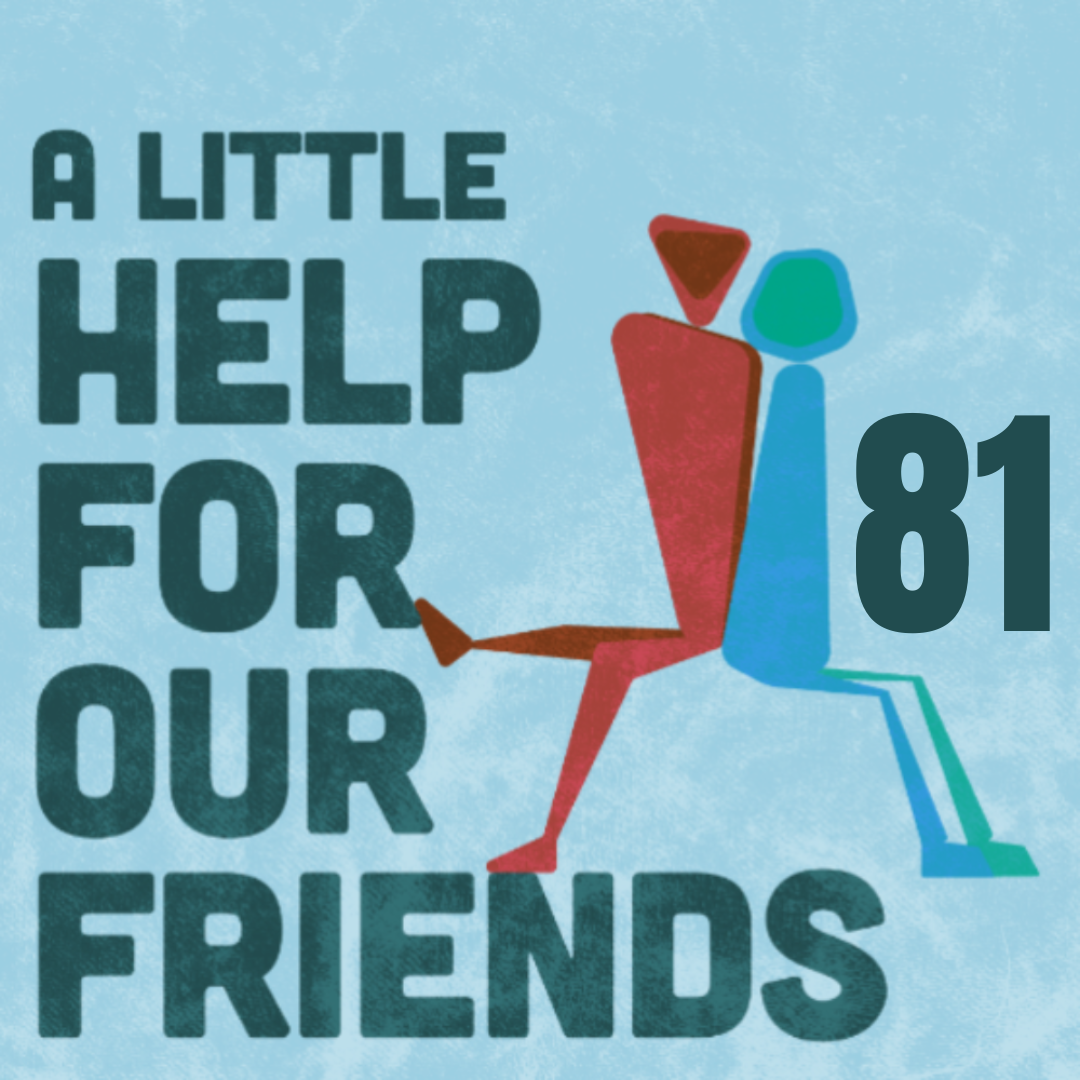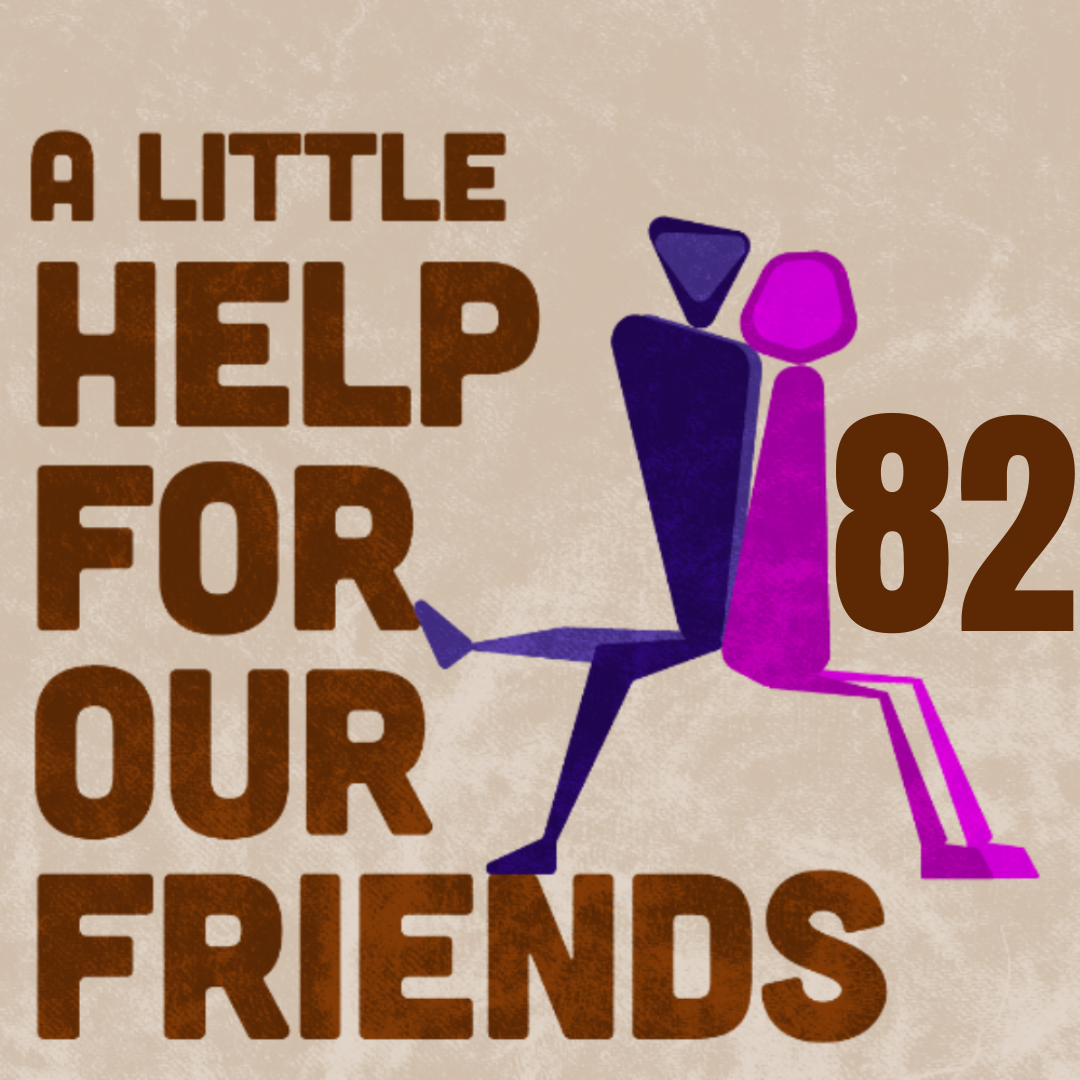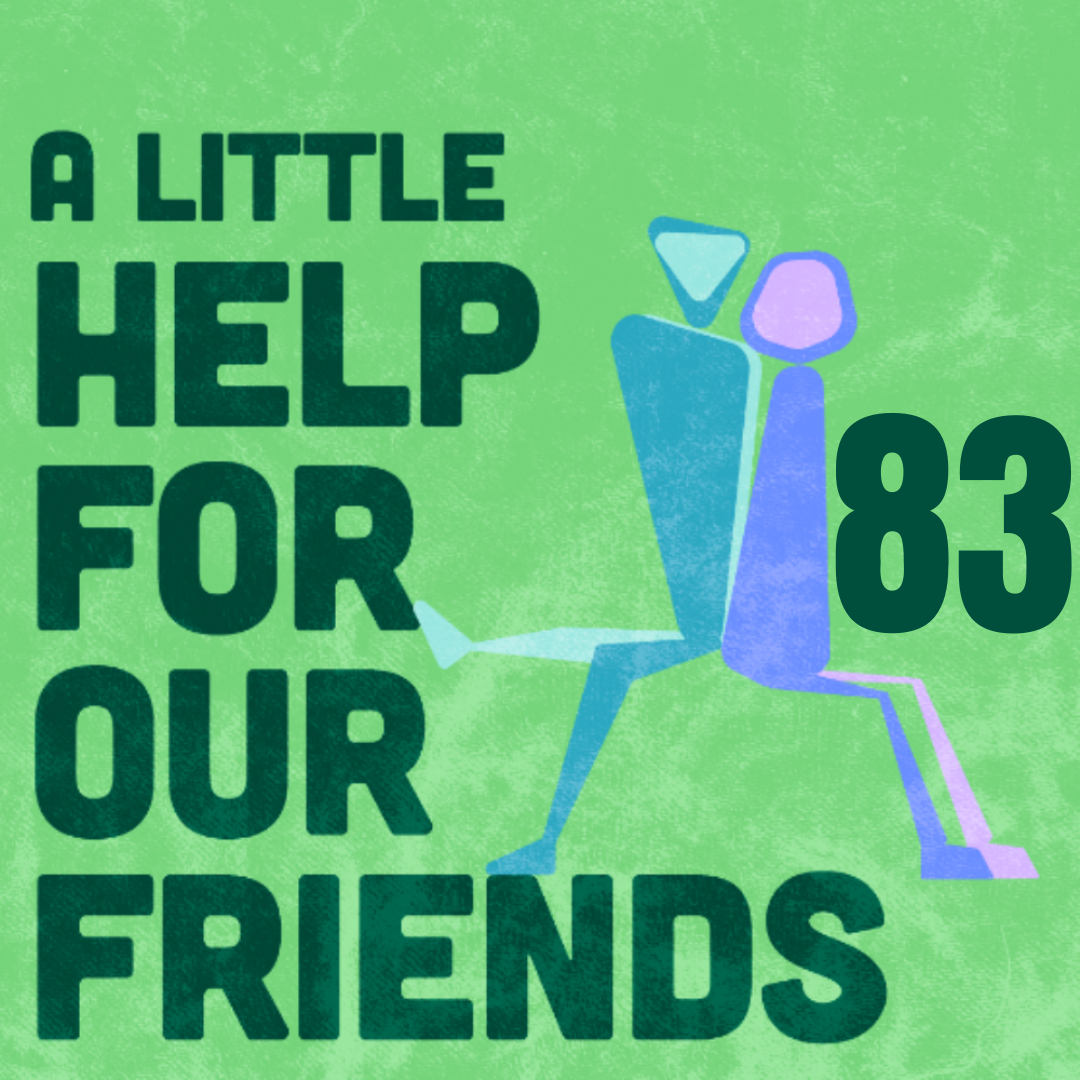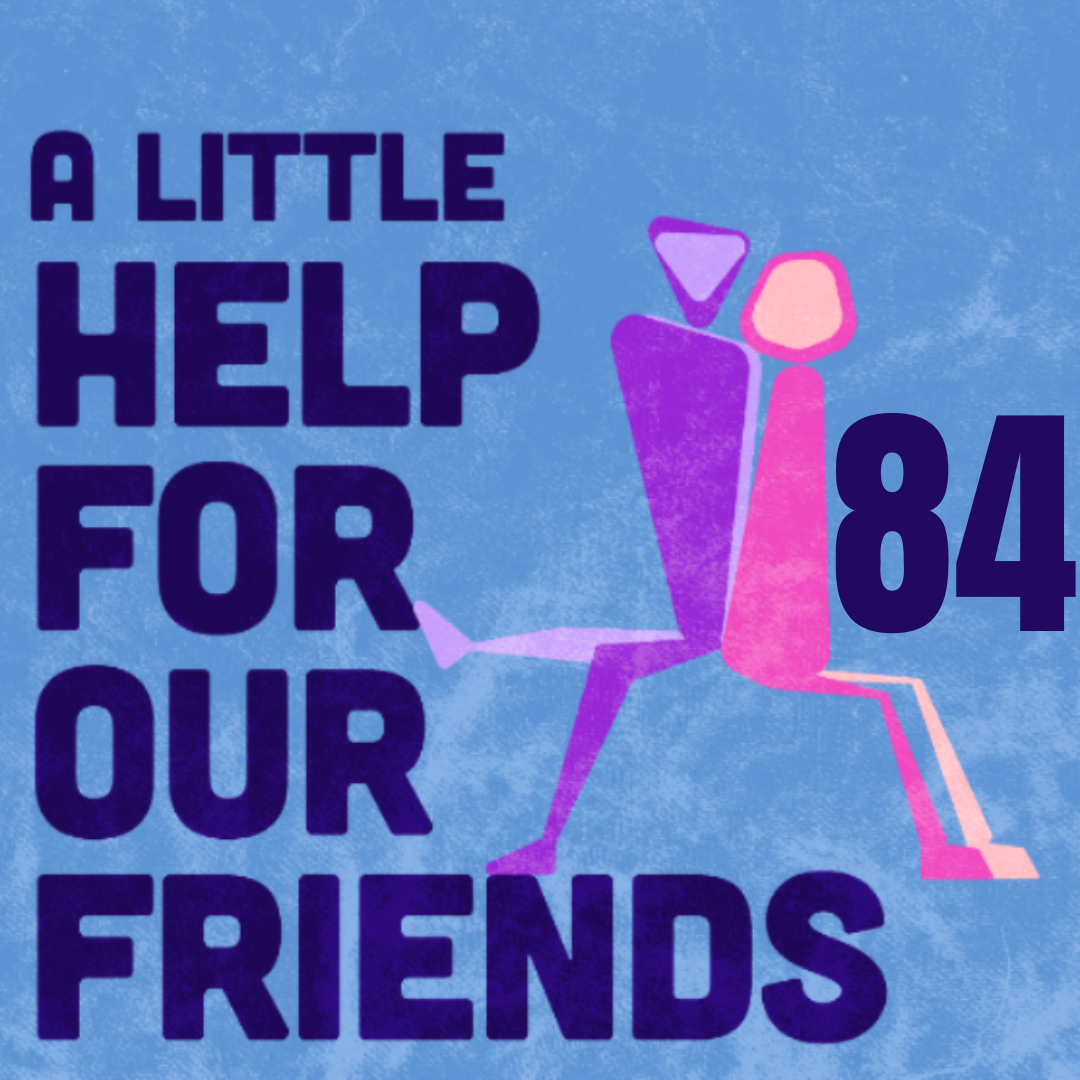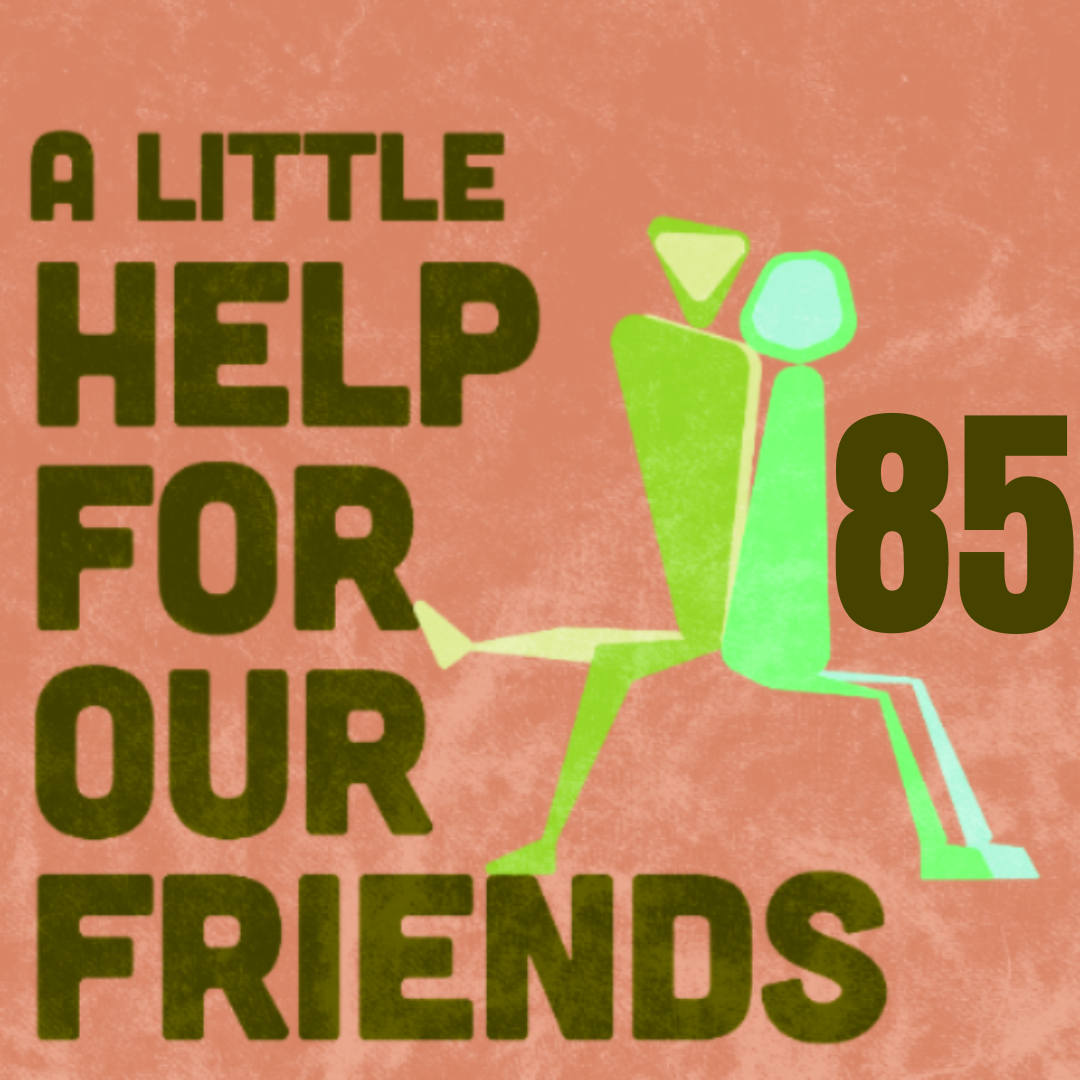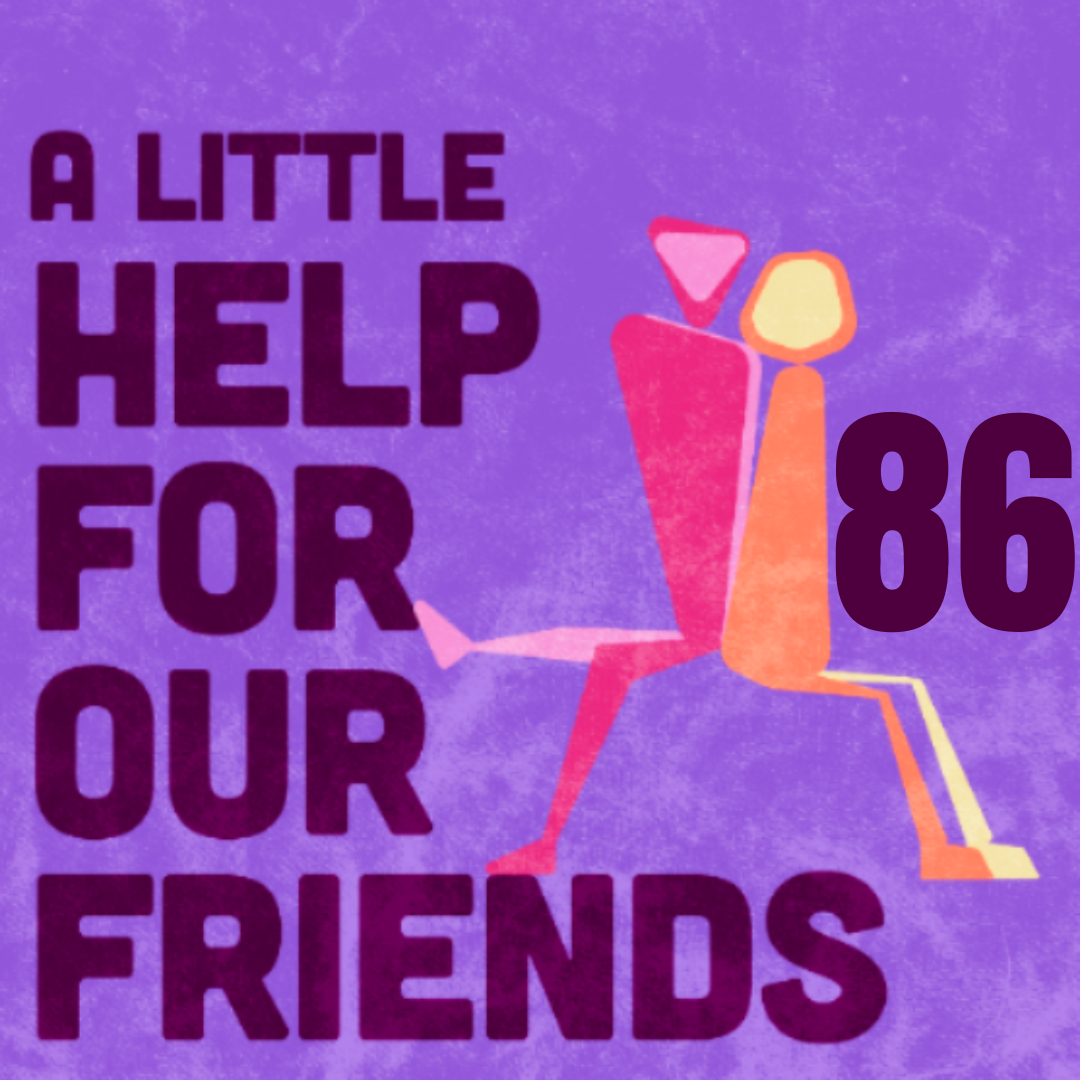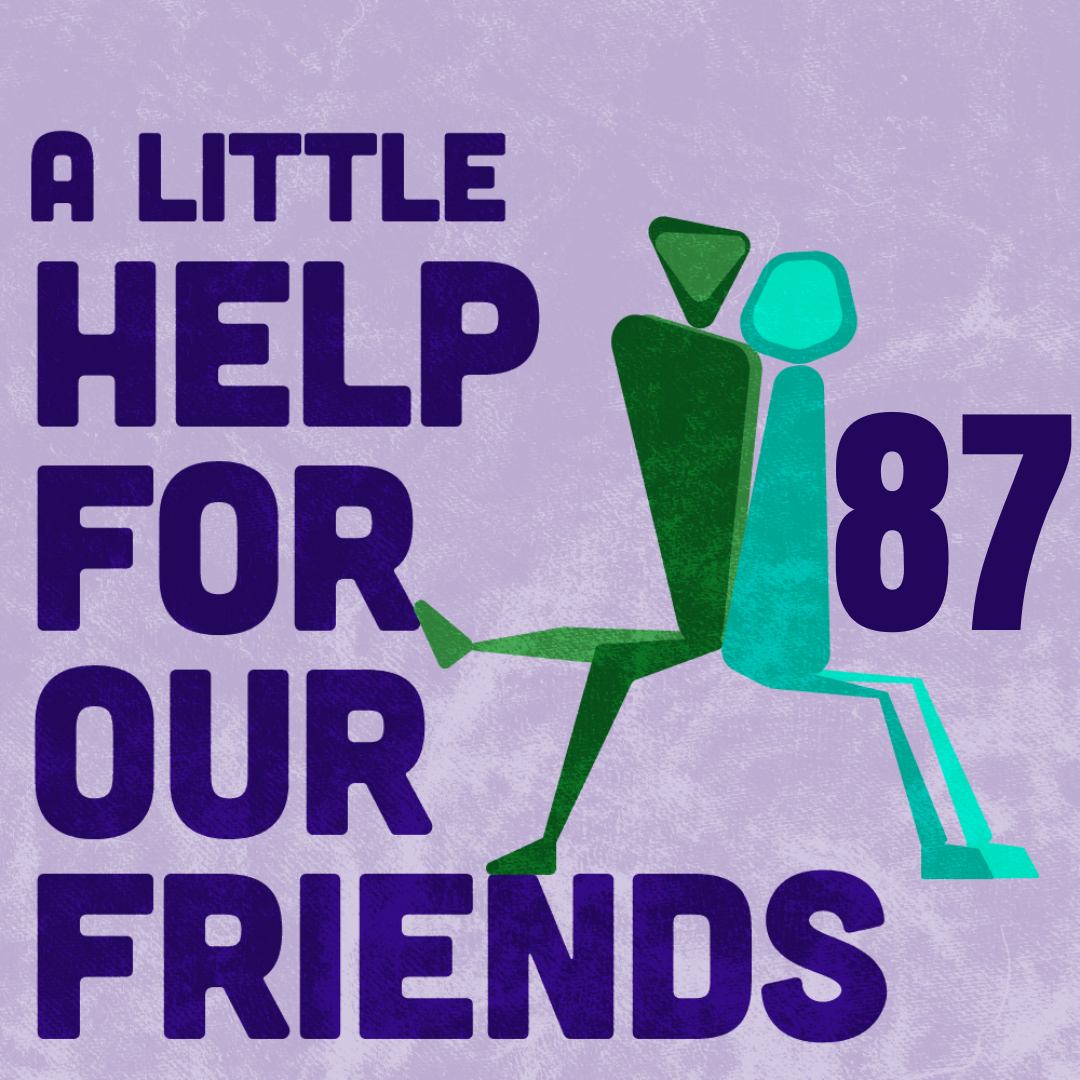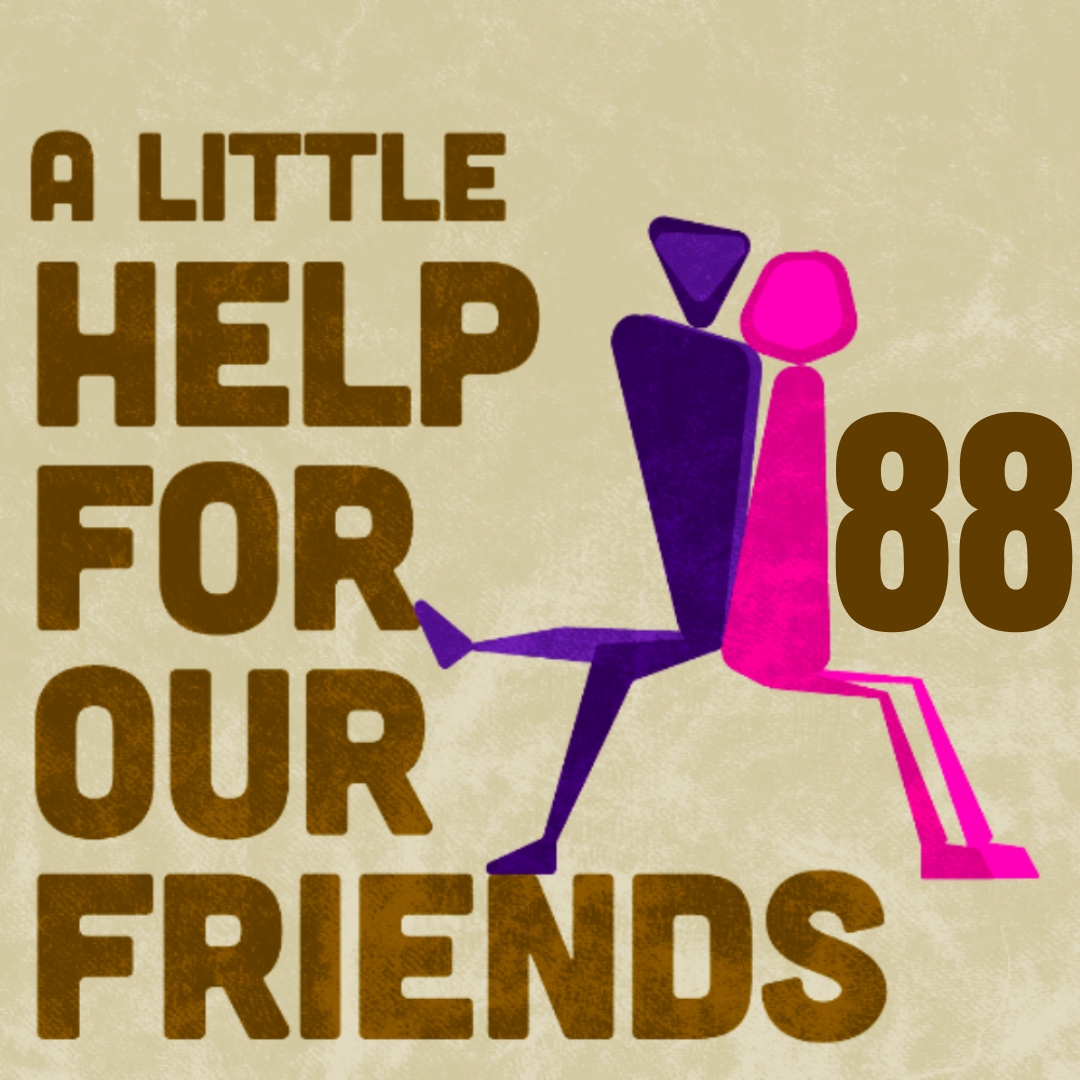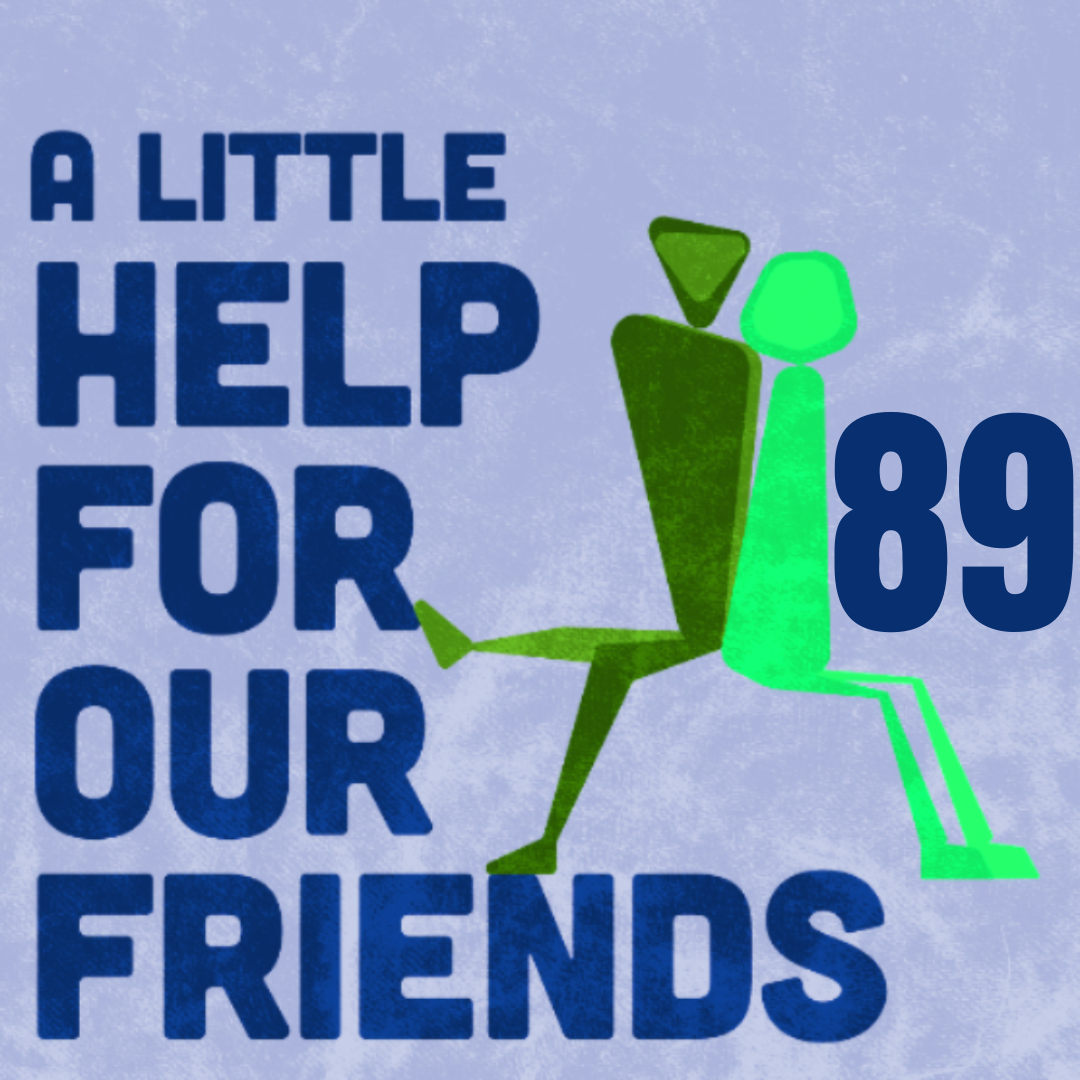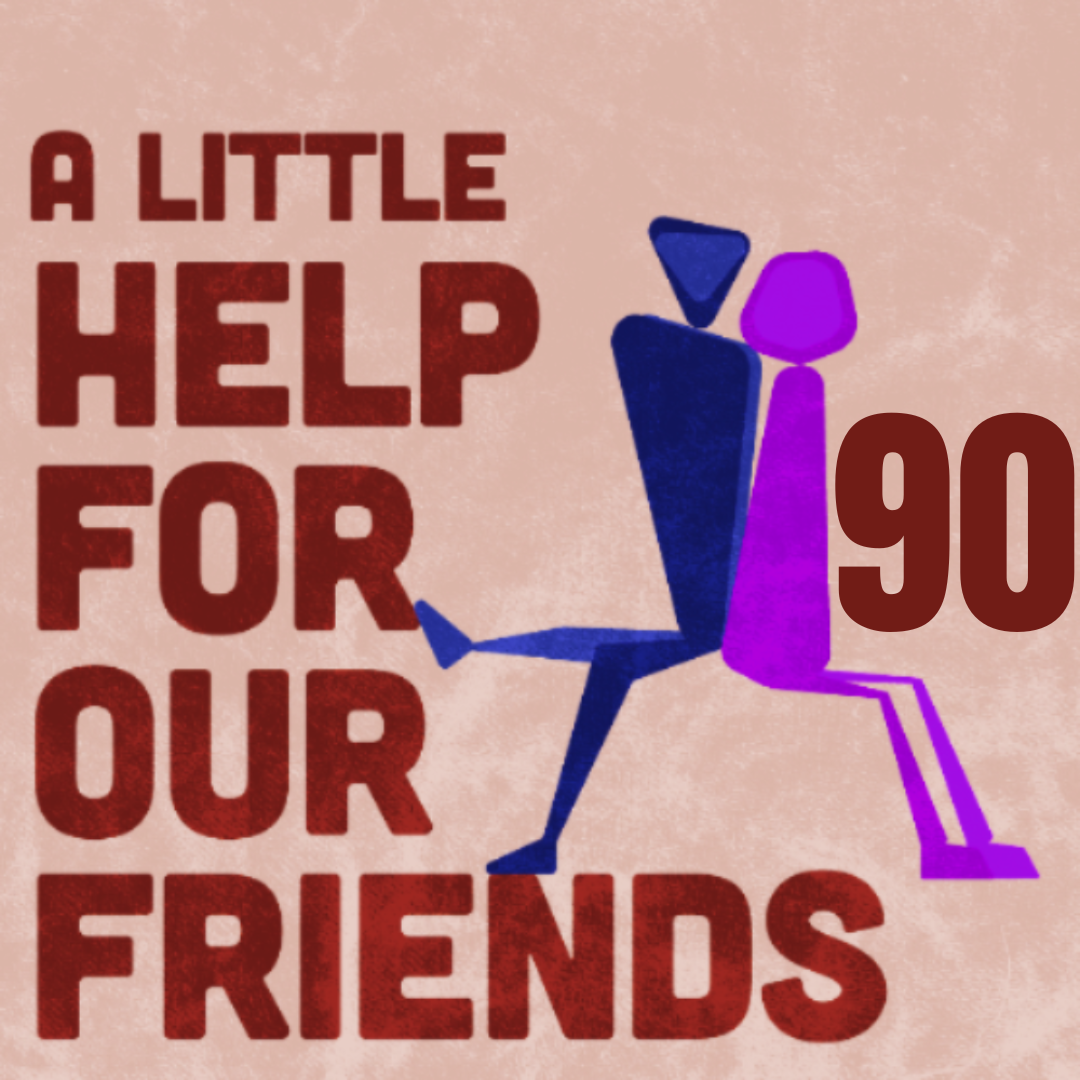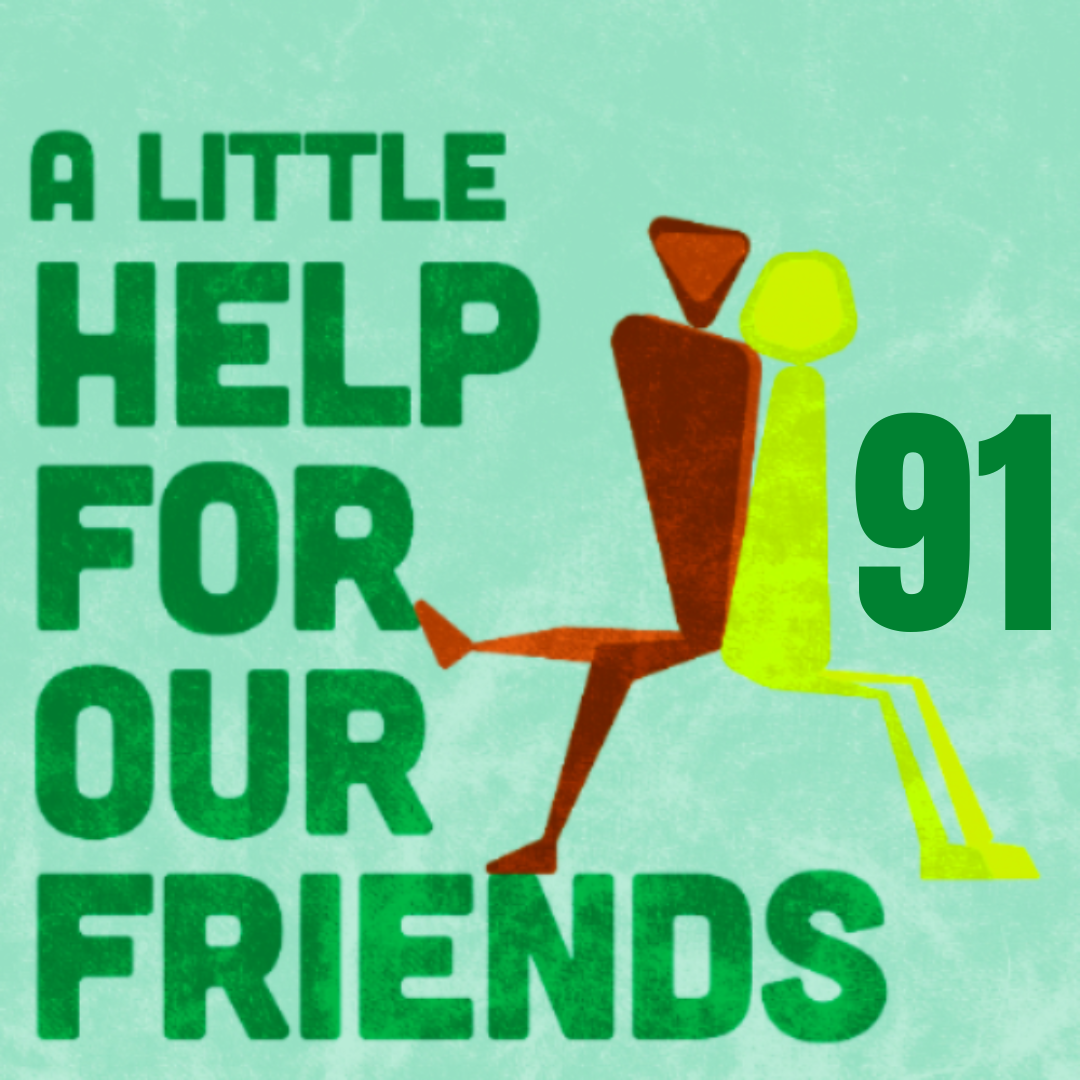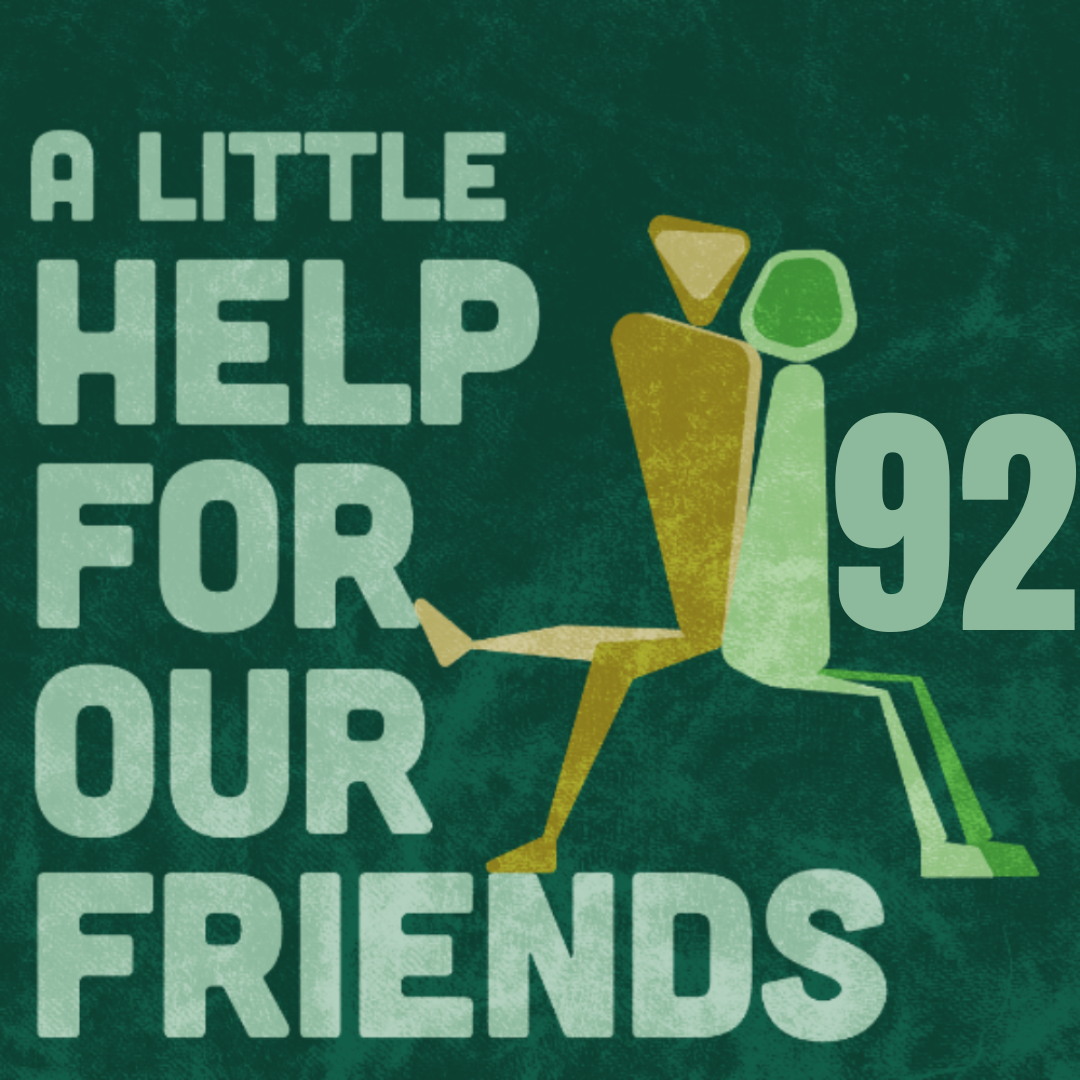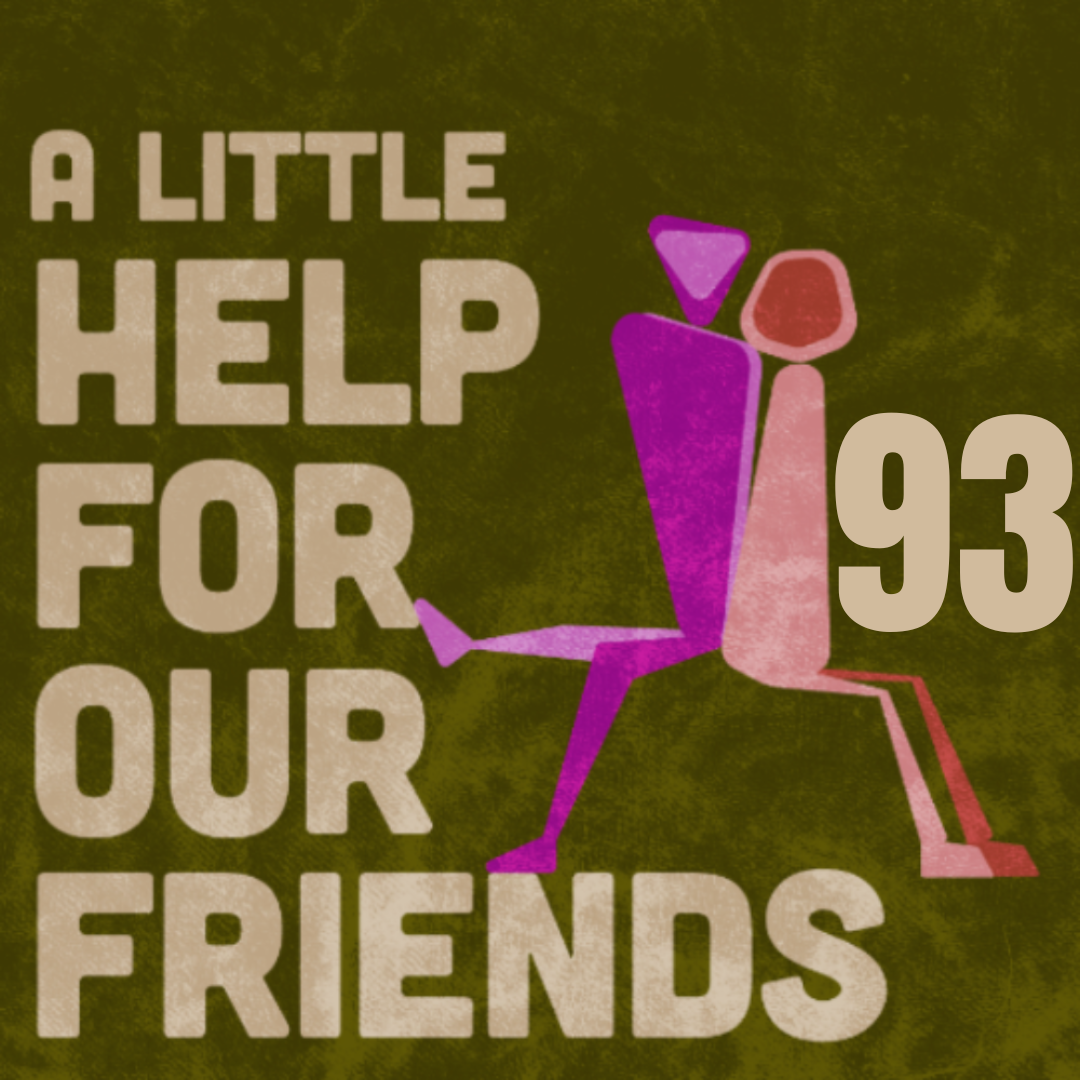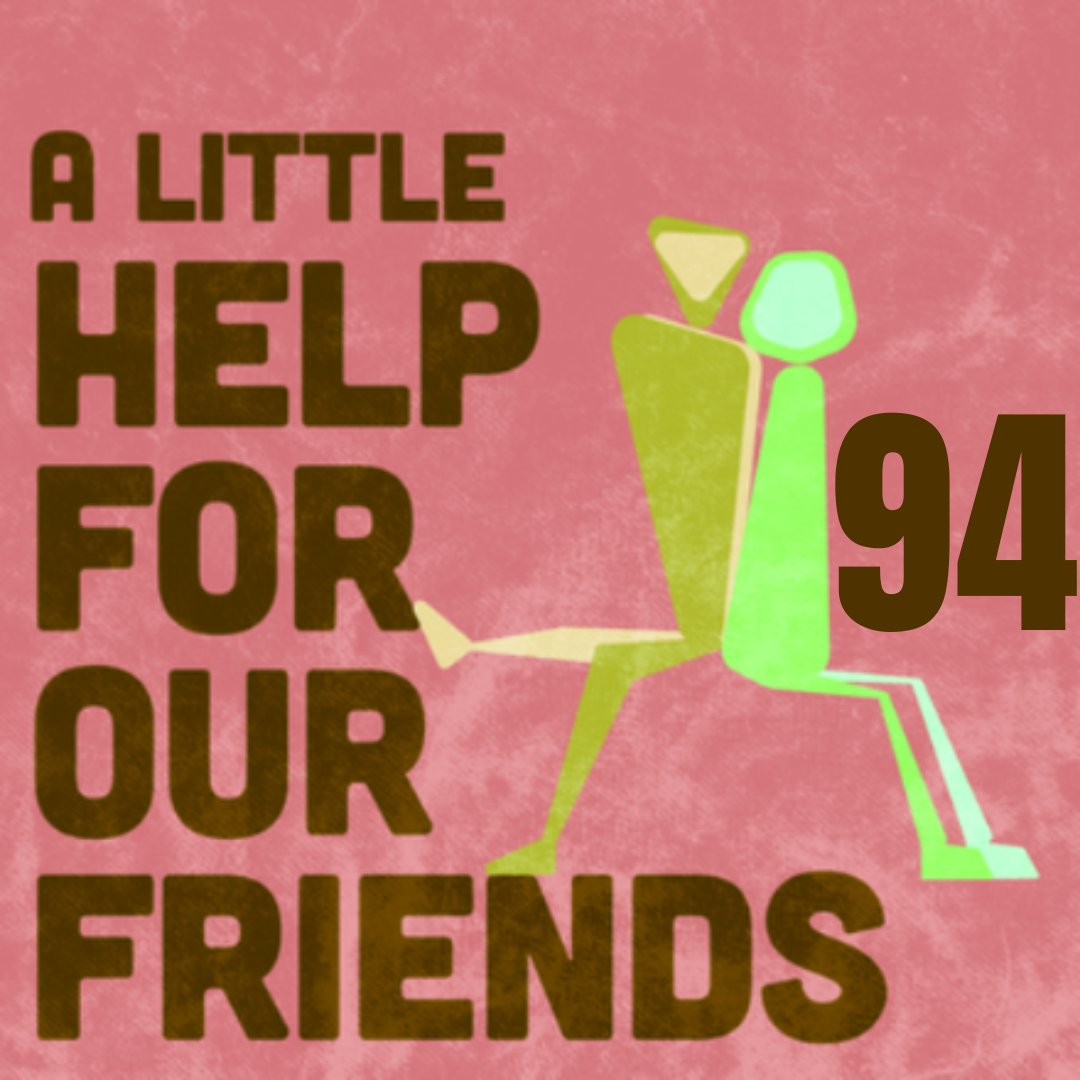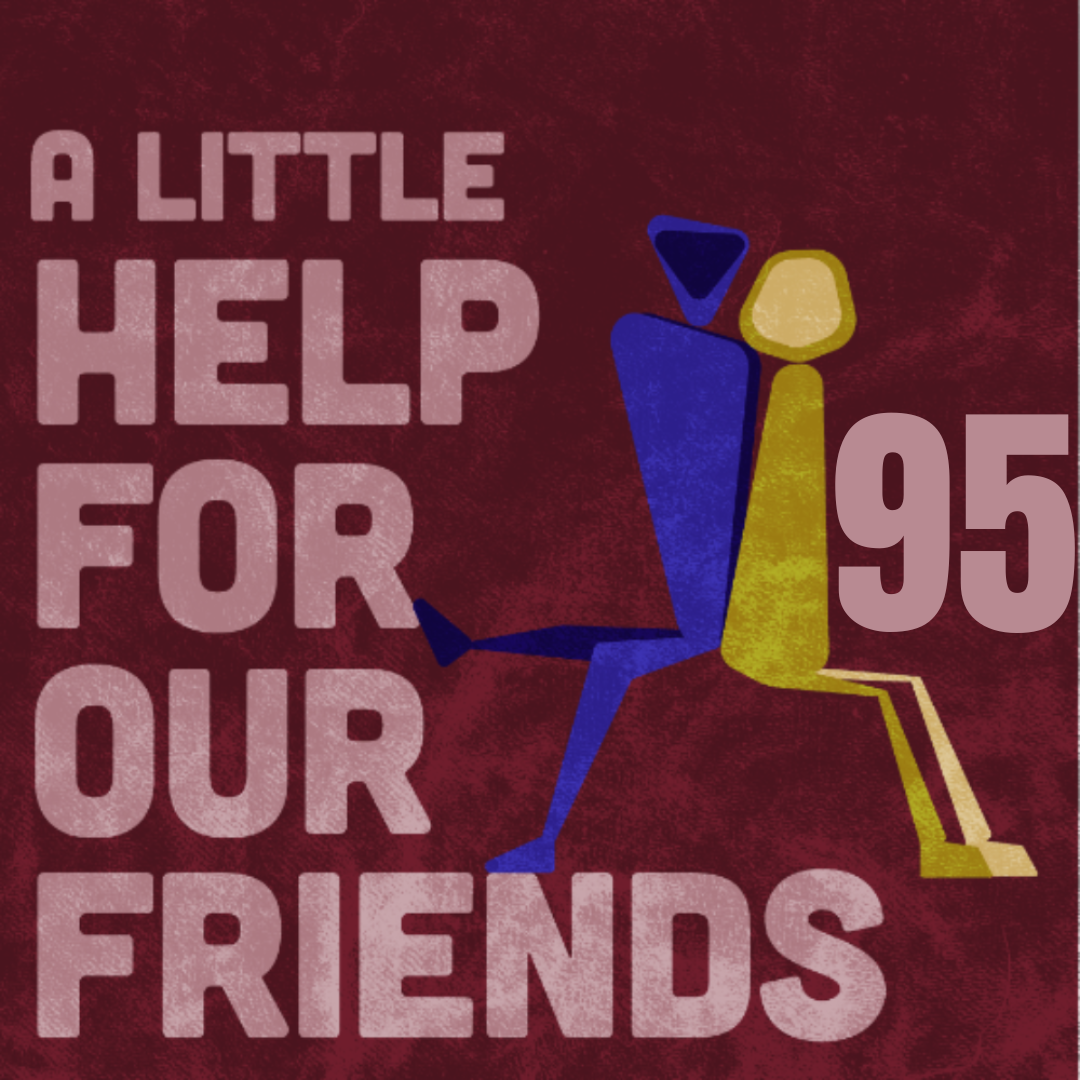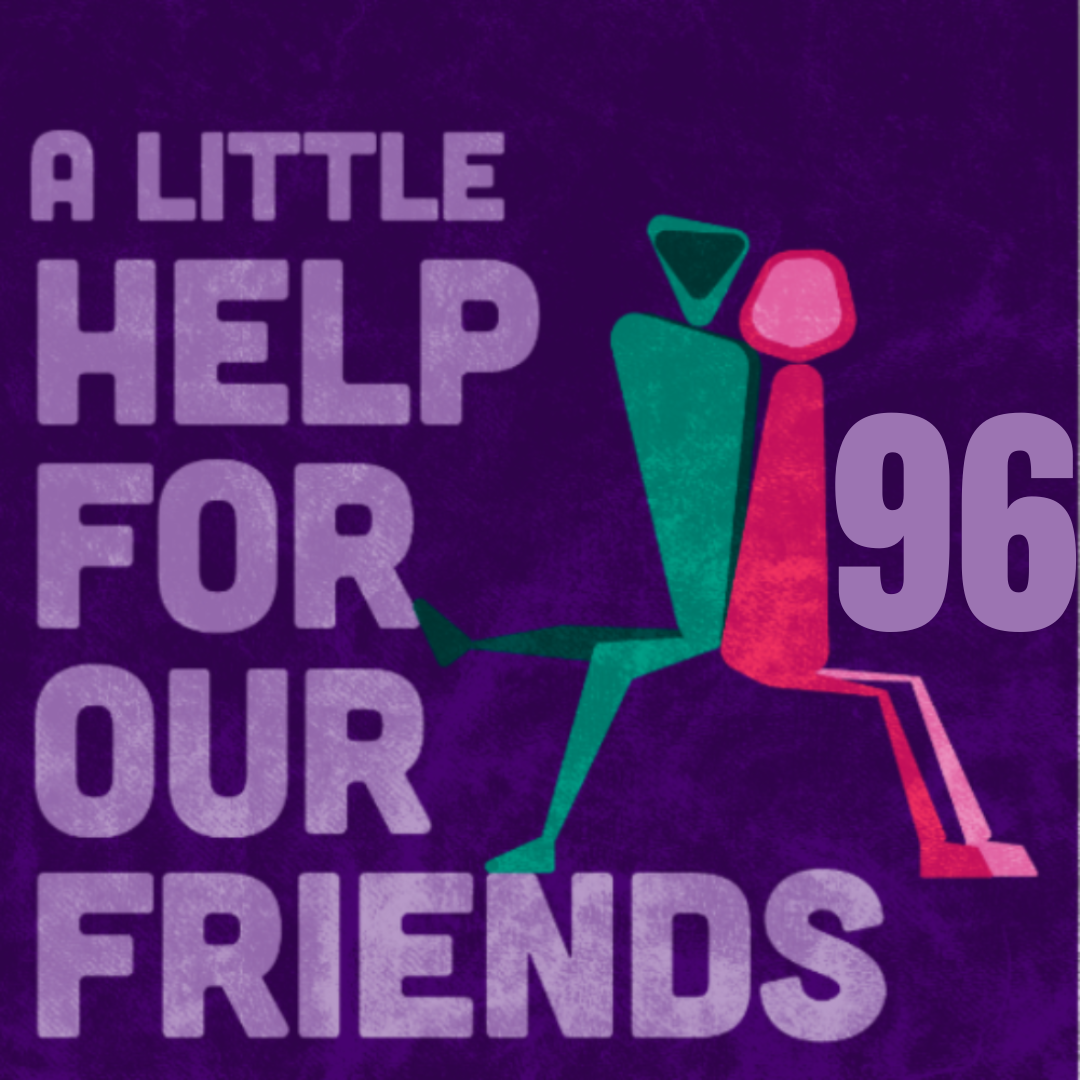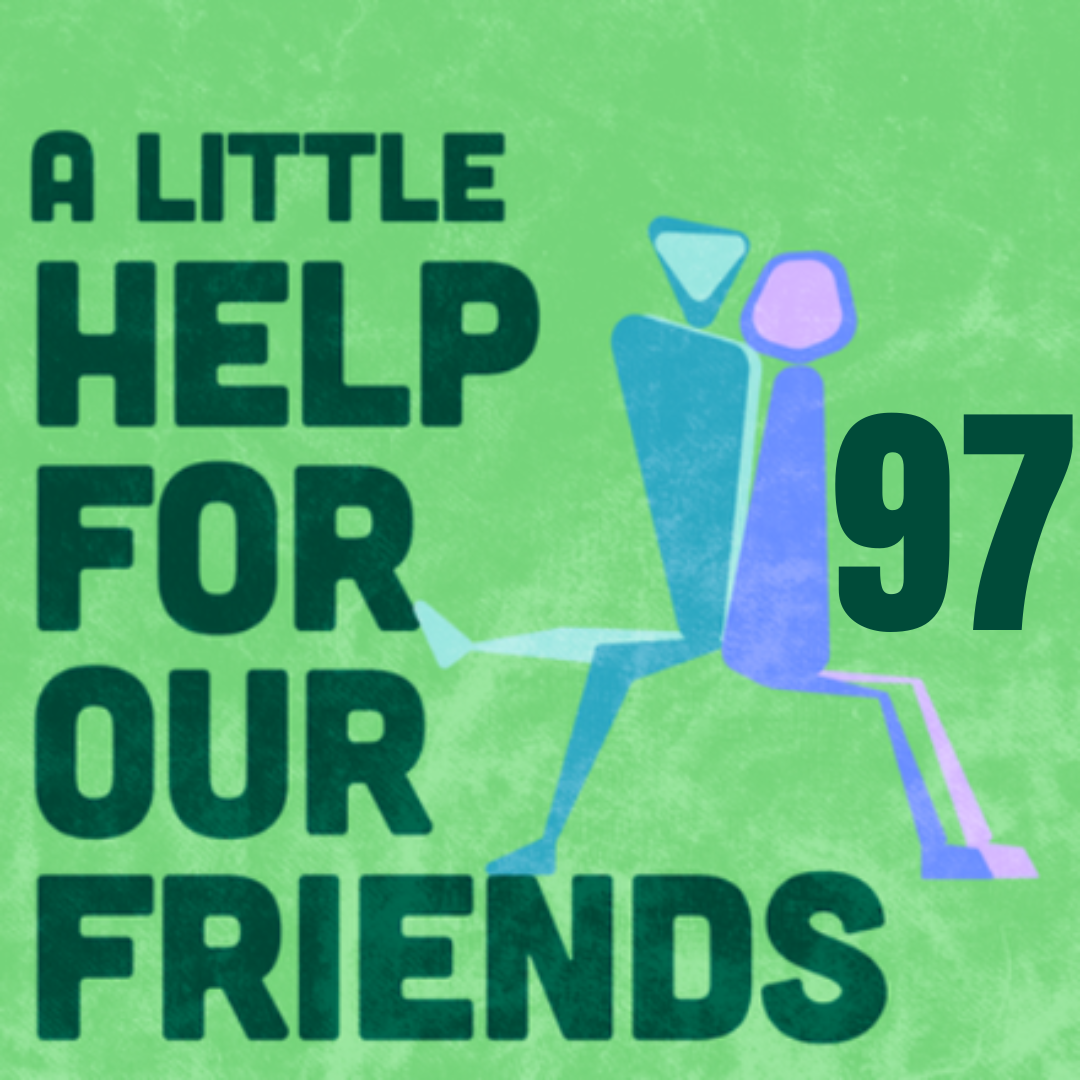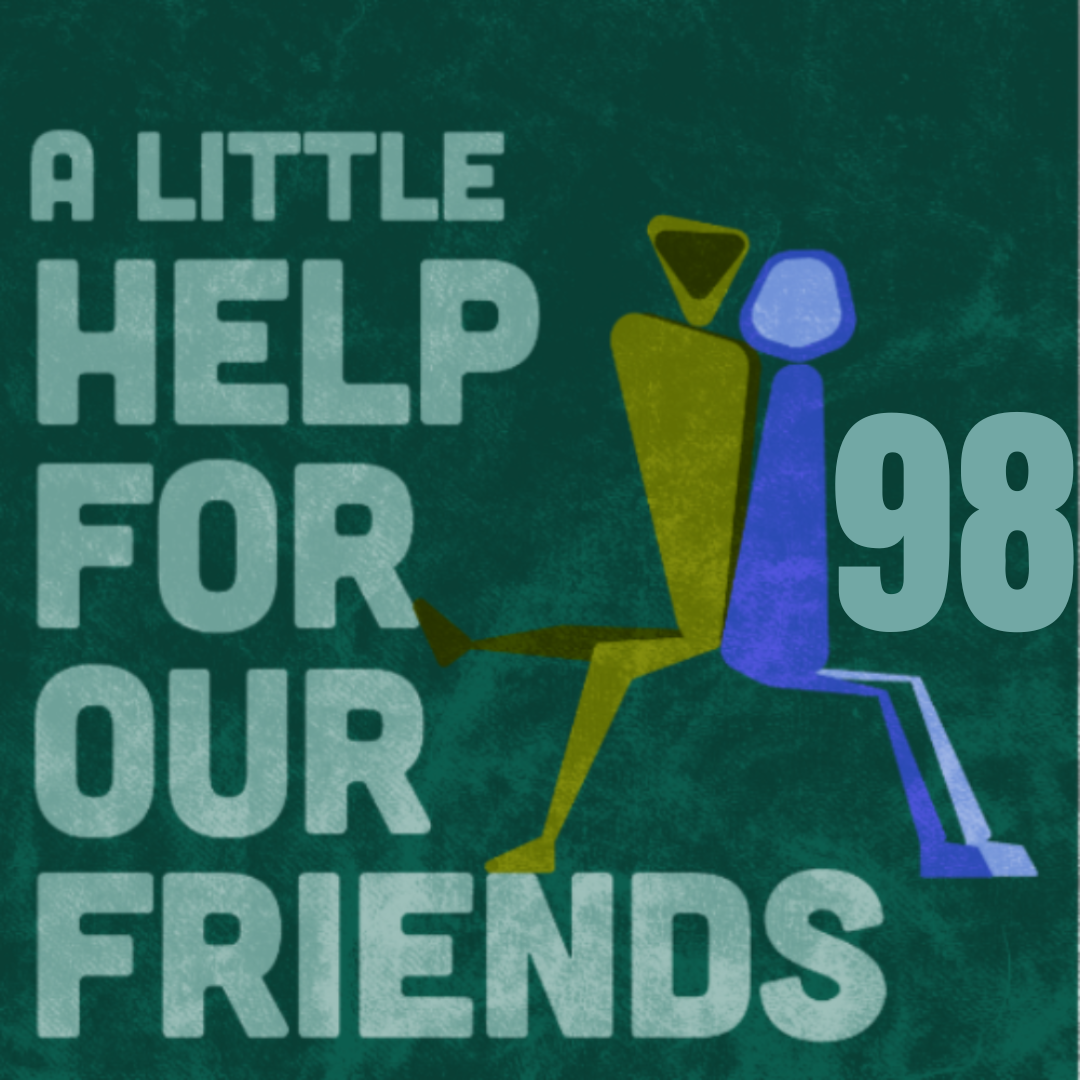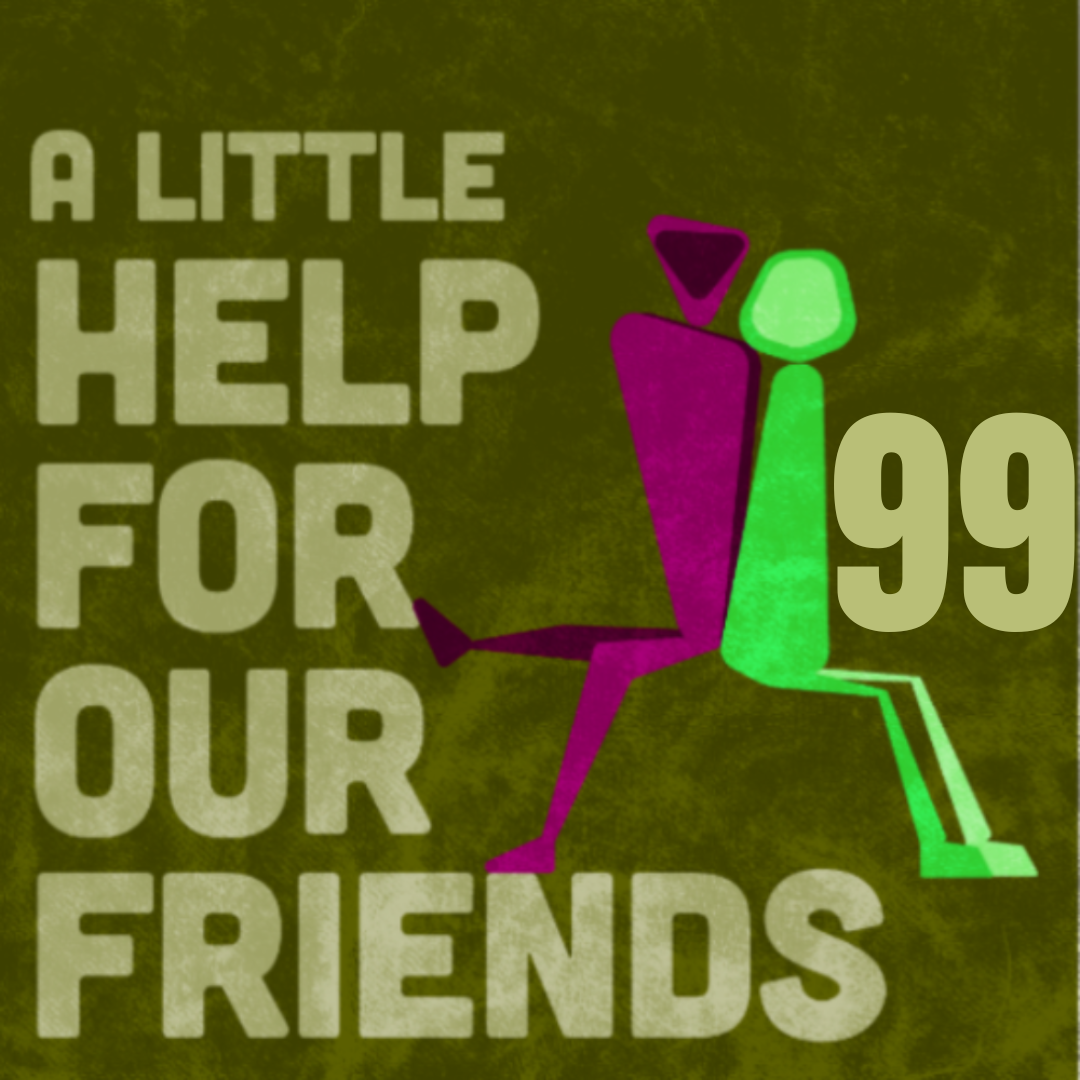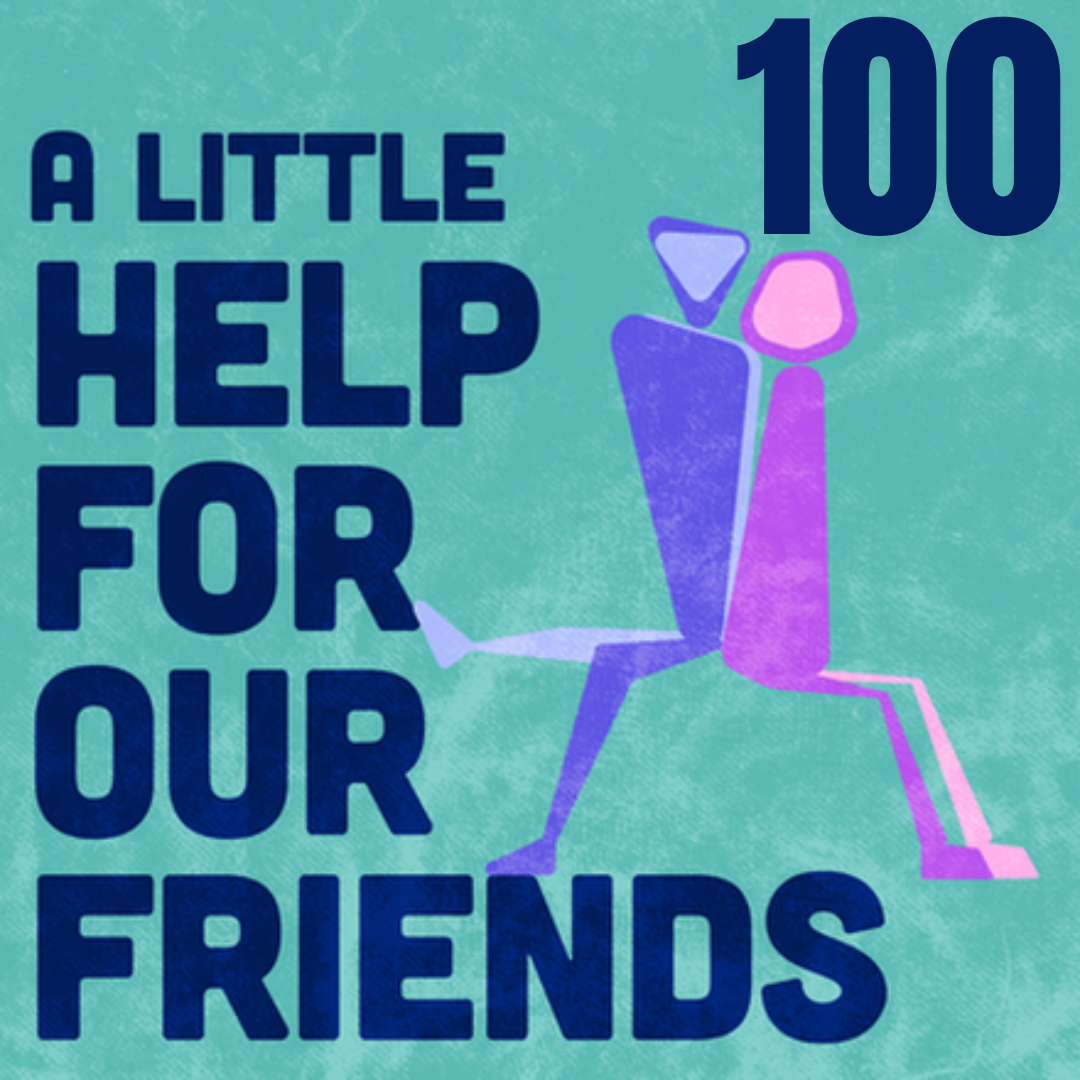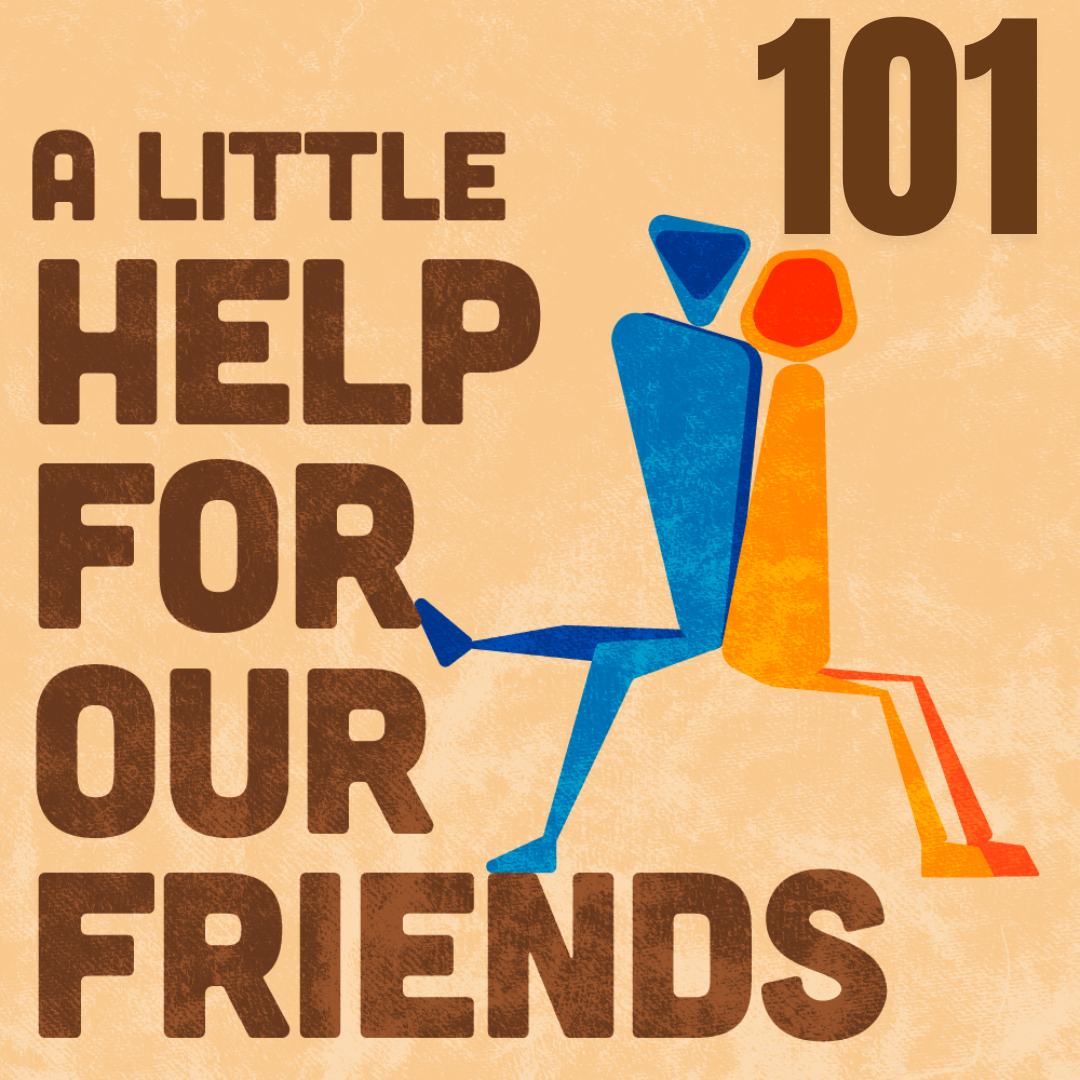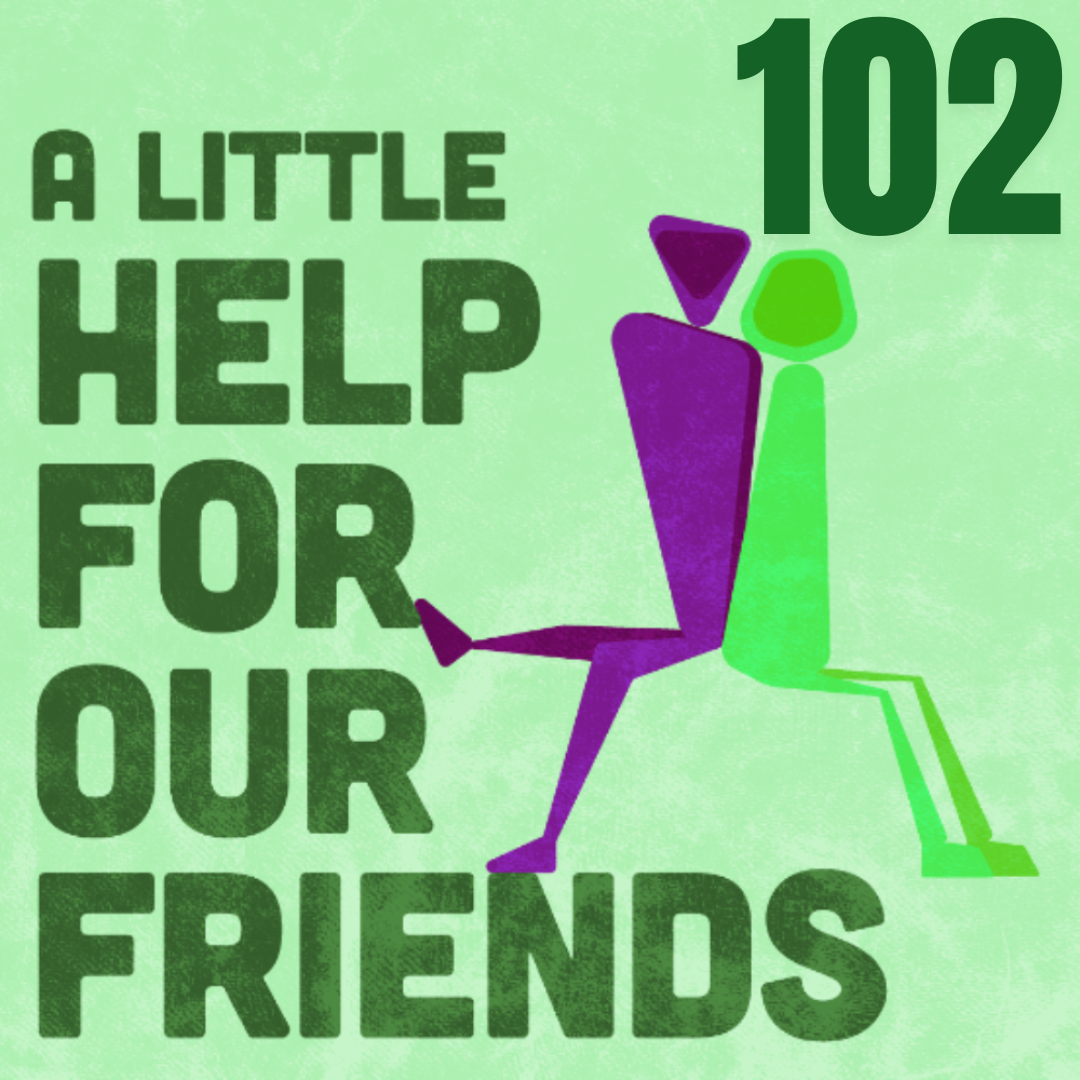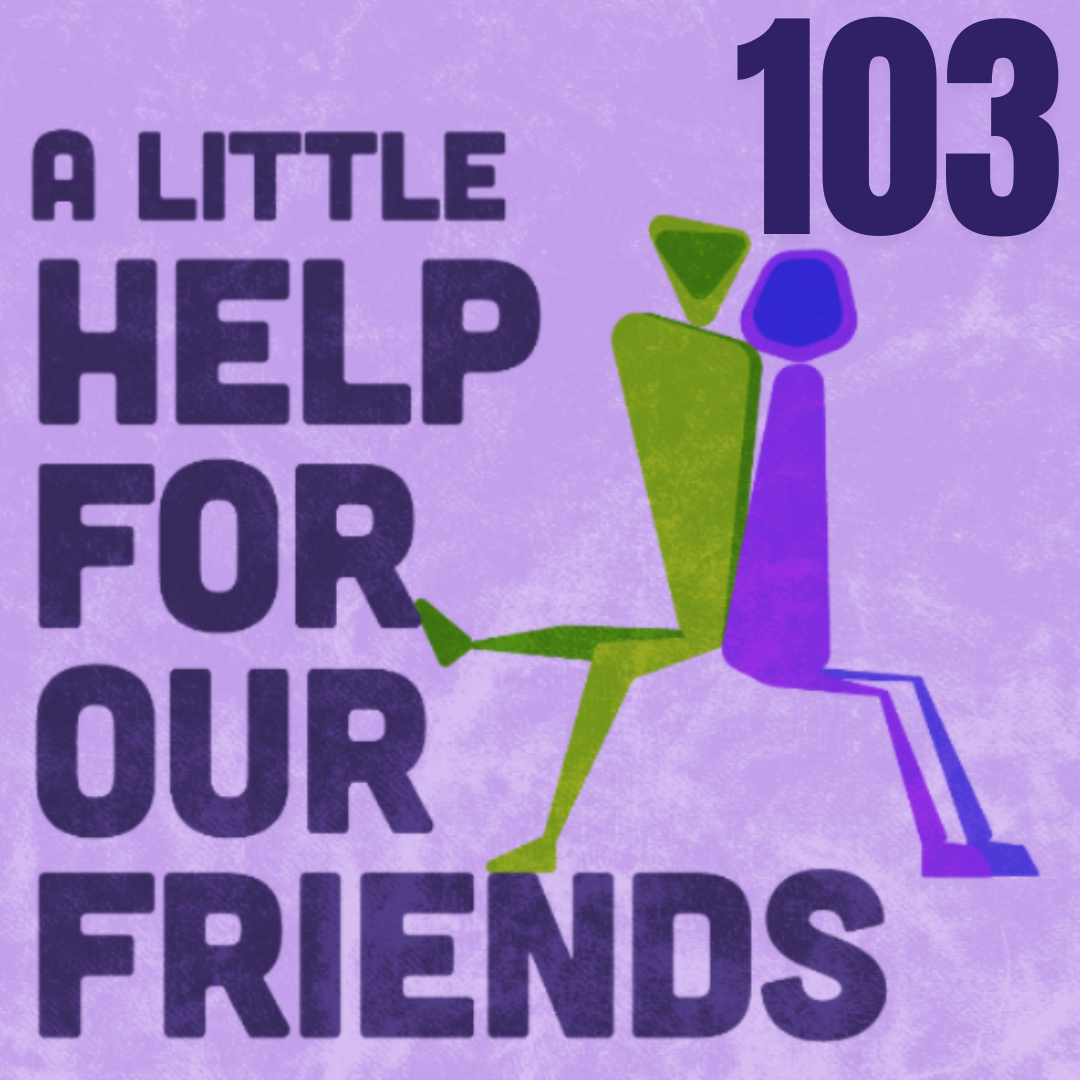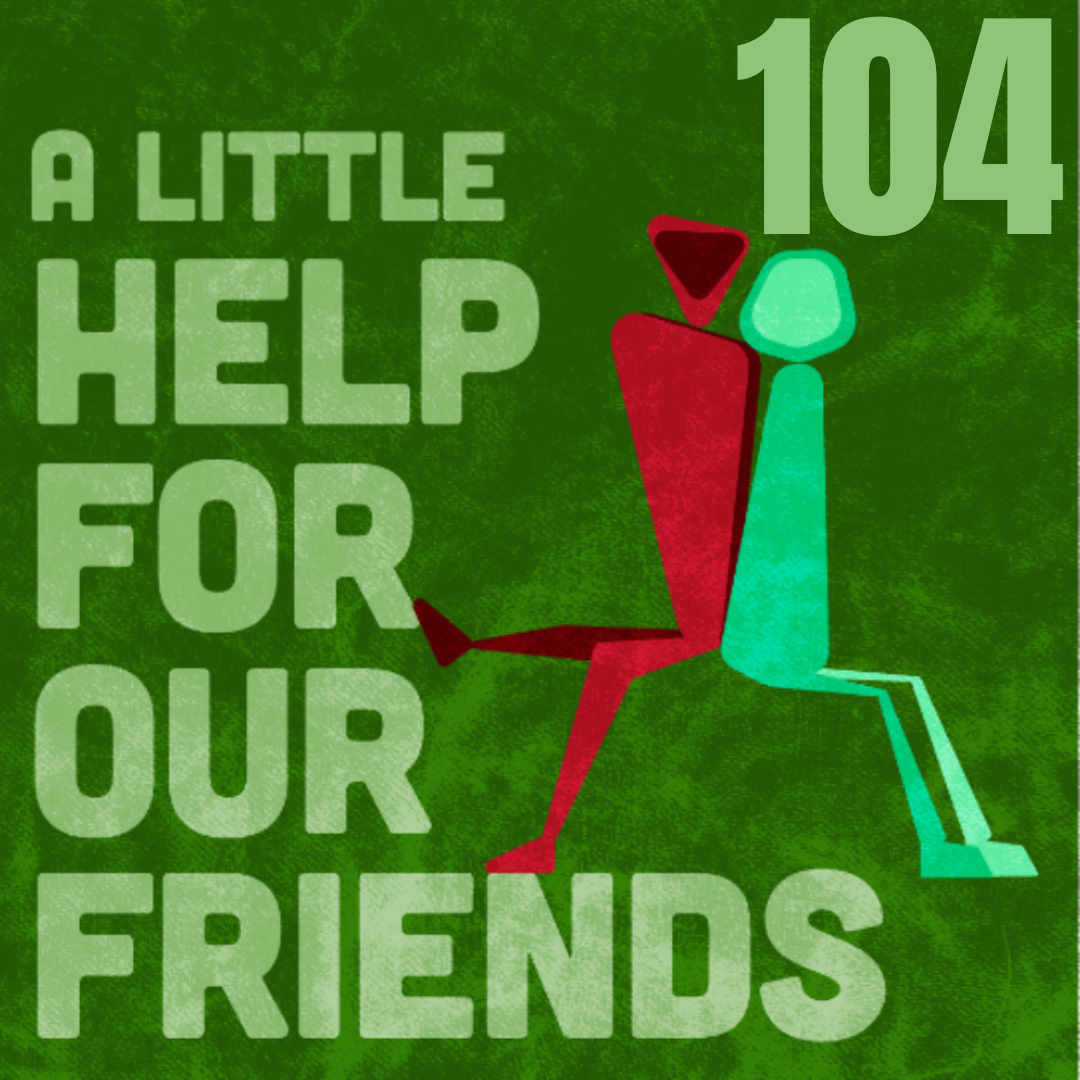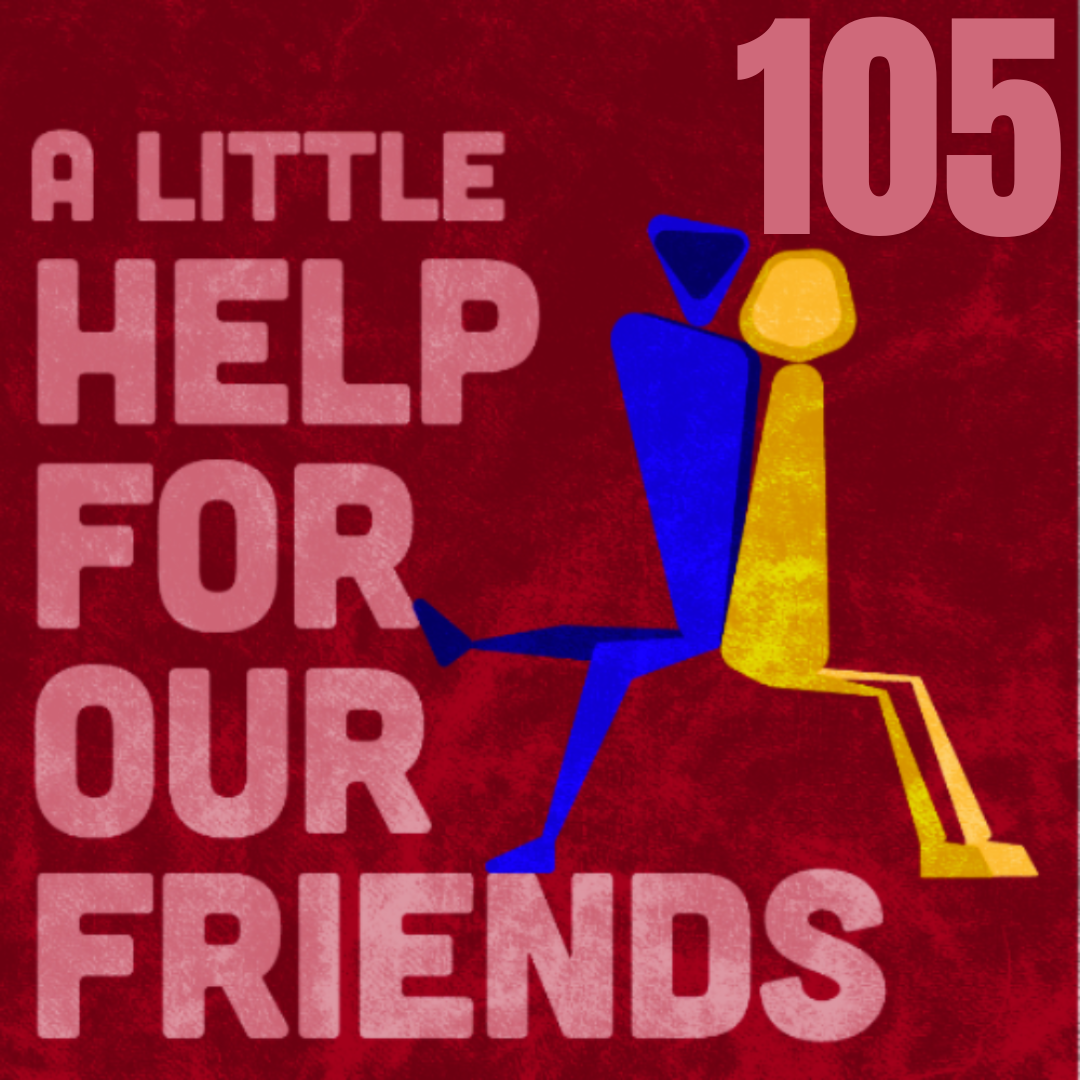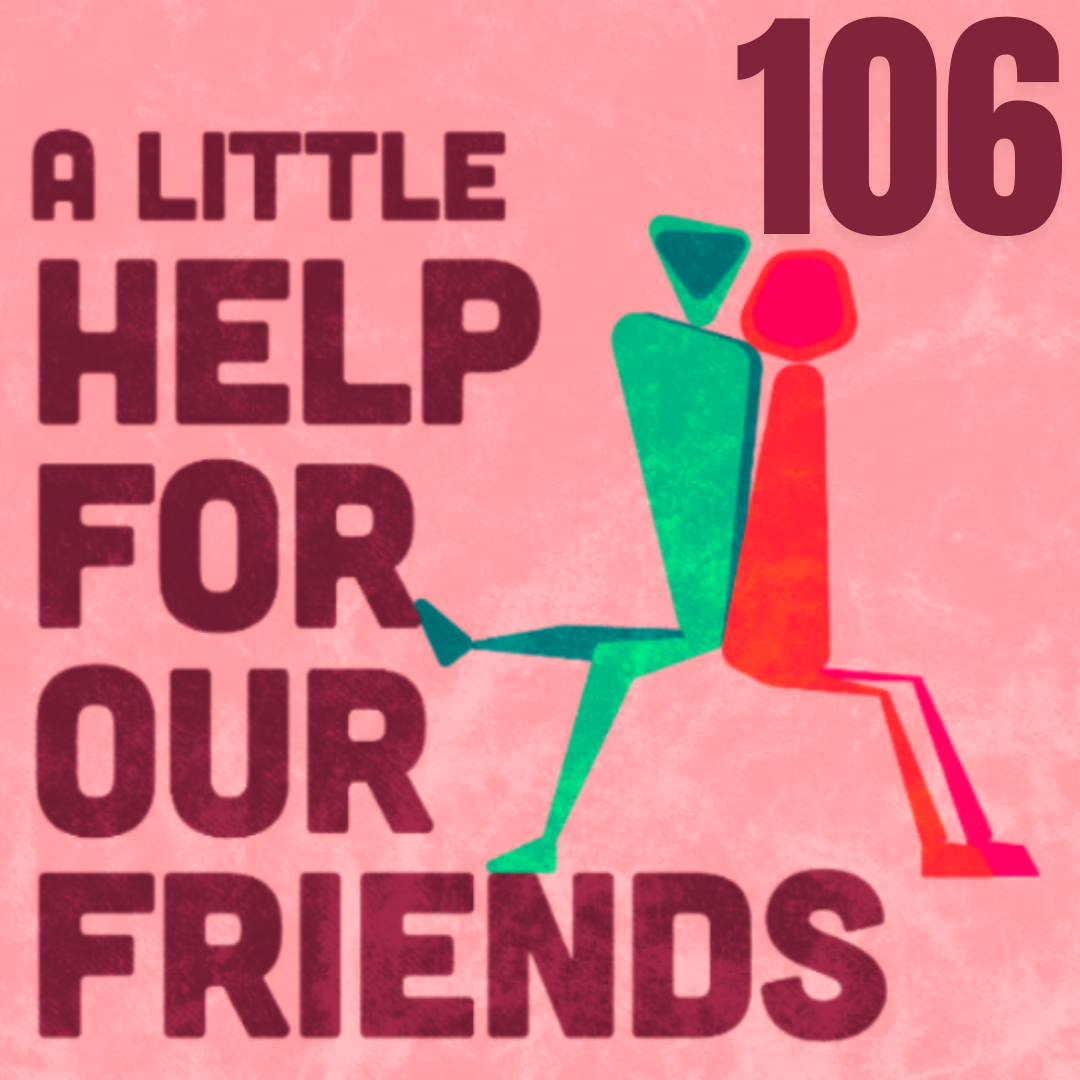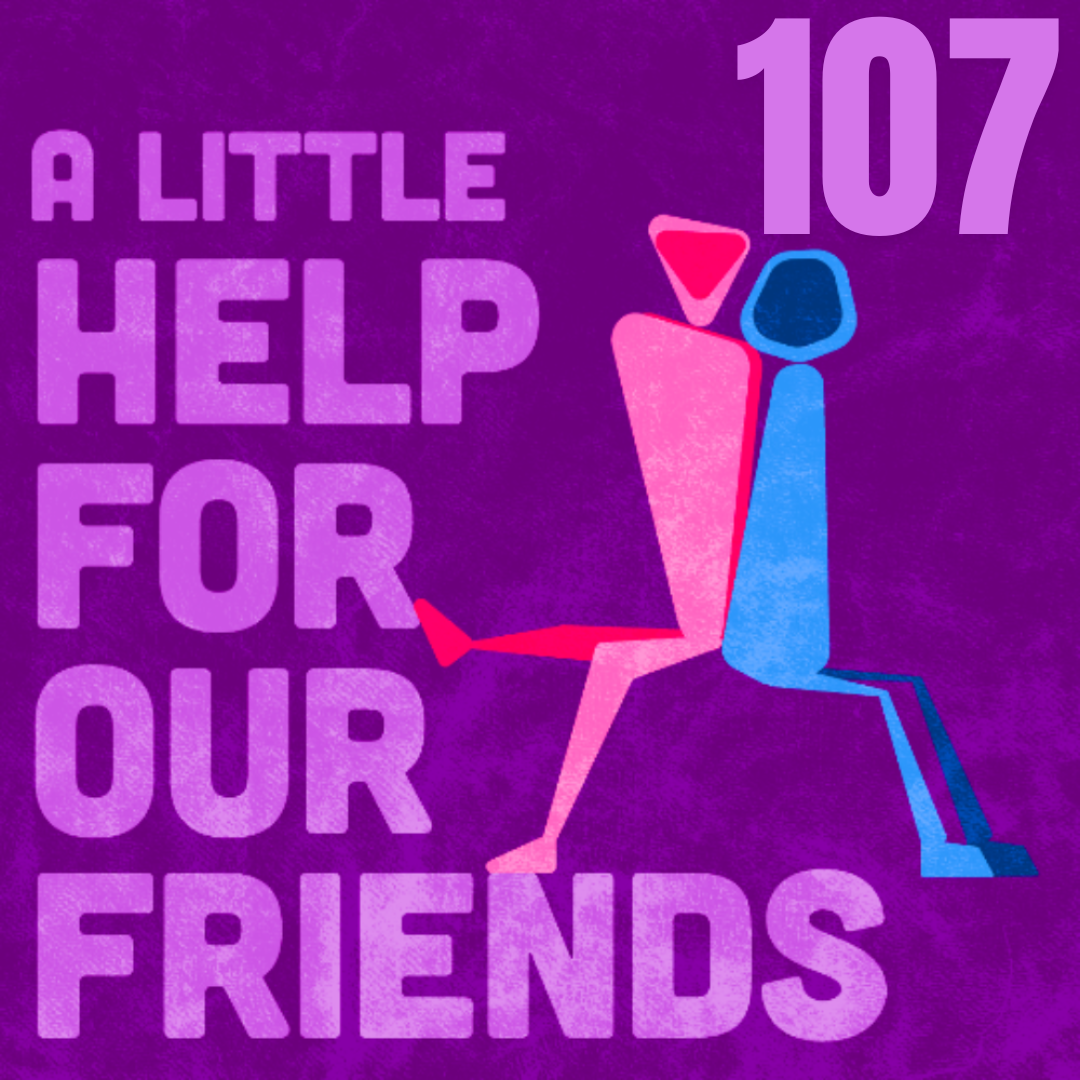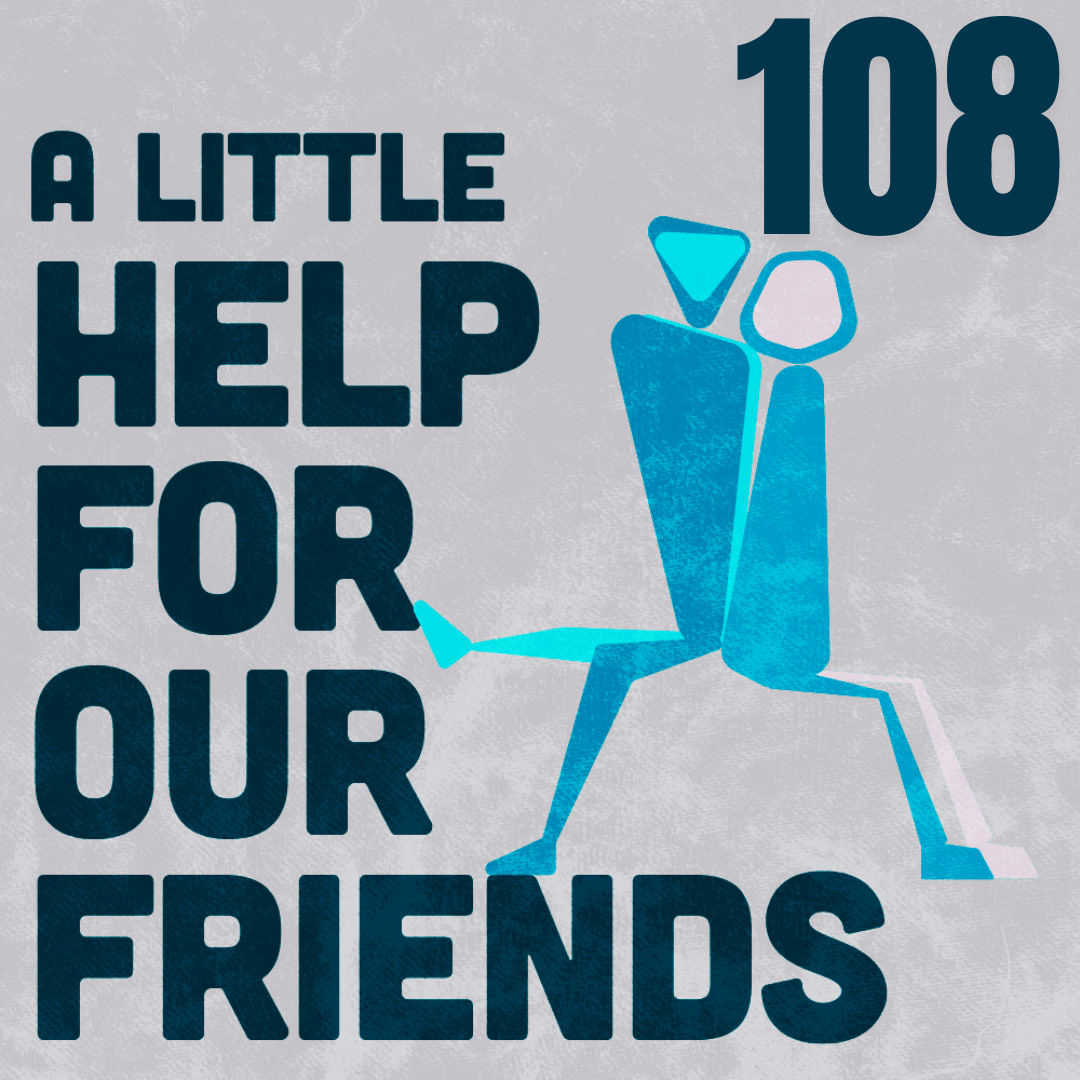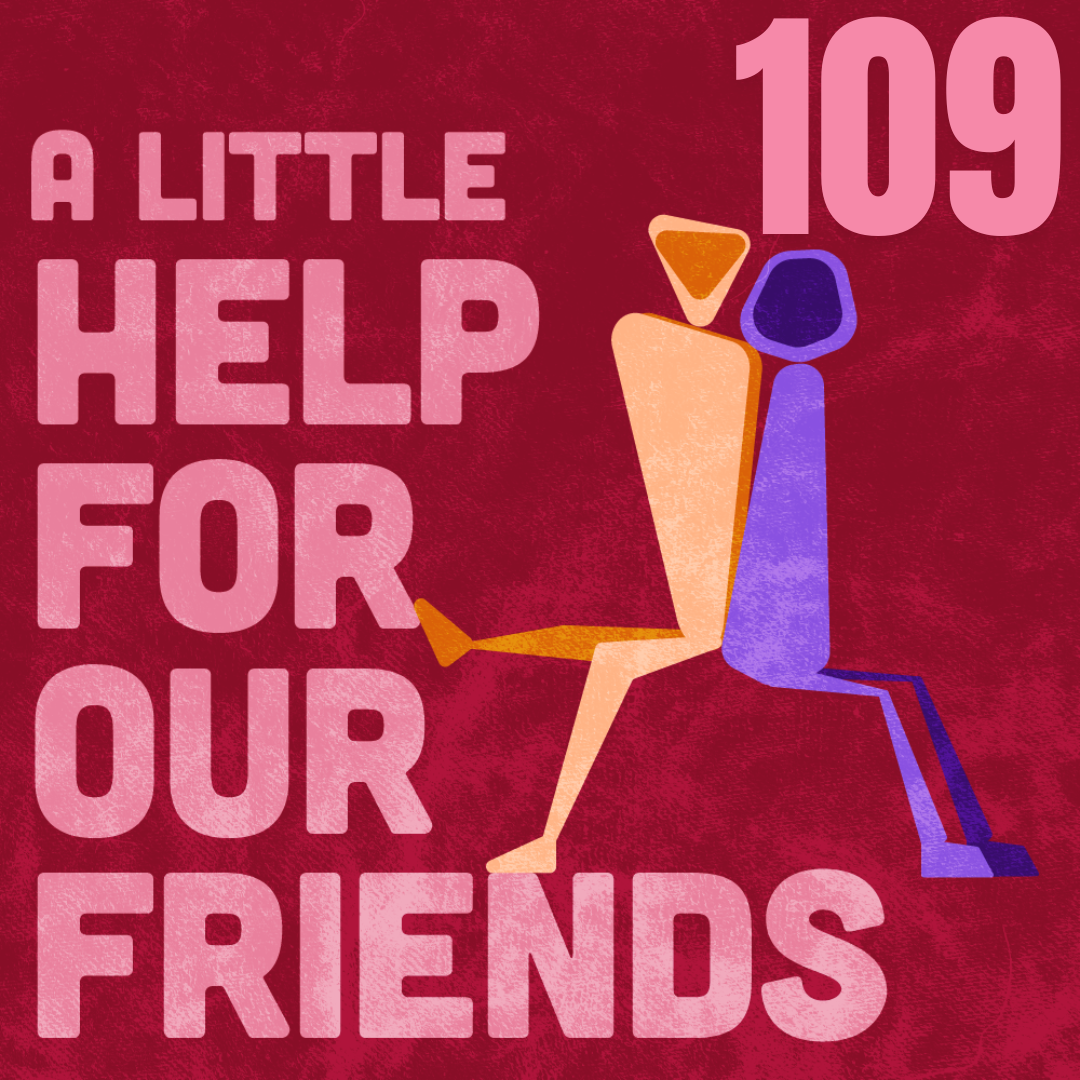Newest episodes
If you have a loved one struggling with mental health issues and need support, Dr. Kibby McMahon can help. She offers virtual, one-on-one sessions to guide you through this difficult journey. Book a free consultation call or email her at [email protected] to learn more.
Season 1
EP. 1: FINDING MEANING IN THE PANDEMIC
|
COVID-19 and resultant quarantine have led to job loss, separation, boredom, and a whole lot of uncertainty about the future. In this episode, we discuss Dialectical Behavioral Therapy's IMPROVE skills as a way we might help your friends who are suffering from COVID-related anxiety and depression. We end with a focused discussion on meaning, especially through the work of Holocaust-survivor and psychiatrist Viktor Frankl.
Resources:
|
Ep. 2: Talking about Substance abuse
|
Some of us have noticed that our roommates, loved ones, or friends have started drinking or using drugs more during COVID-19. Has it become a problem? If so, what do we do? In this episode, we outline the DSM criteria for substance abuse and discuss our own struggles with loved ones who suffered from severe alcoholism. We discuss the importance of boundaries, managing expectations, and self-care. We end with tips for opening a dialogue with friends whose drinking or drug use are beginning to concern us.
Resources: |
EP. 3: BORDERLINE PERSONALITY DISORDER
|
Borderline Personality Disorder (BPD) is a serious psychiatric illness that can be especially challenging for loved ones suffering from this disorder. In this episode, we share insights from the BPD literature to understand what this disorder is and how it develops in the first place. This episode features a special guest speaker, Dr. Zachary Rosenthal from Duke University who is an expert on treating BPD and will share tips on how loved ones of people with BPD can manage these relationships.
Resources:
|
EP. 4: ATTACHED IN THE PANDEMIC
|
Quarantining with our romantic partners has been a gift for some of us, a challenge for others. What kinds of relationships have thrived in the pandemic and which ones have suffered? In this episode, we will draw upon attachment theory to discuss how to understand and navigate the unique challenges romantic relationships face during this pandemic.
Resources:
|
Episode 5: It's time for empathy
|
In this time of social distancing and national divisions, empathy is needed more than ever. Empathy is the ability to perceive, understand, and react to other people's emotions. In this episode, we talk about the different types of empathy and how lacking empathy in relationships can relate to mental health problems. We share tips from clinical science (e.g. Kibby's dissertation!) about how one can improve the ability to empathize with others.
Resources: |
Episode 6: Understanding trauma
|
Recent events like the Me Too Movement, Black Lives Matter, and the pandemic have brought awareness to the many faces of trauma and its ripple effects on our lives. Although we may feel compassion for our loved ones who are trauma survivors, it can be a uniquely challenging experience to be close to someone struggling with symptoms of trauma. In this episode, we describe what trauma and Post-Traumatic Stress Disorder are and how to spot symptoms in our loved ones. We are also joined by a special guest, Dr. Caitlin Fang, who is both a therapist with expertise in treating trauma and someone with a trauma survivor as a loved one.
Resources:
|
Episode 7: Setting boundaries
|
Requested by our lovely audience, we delve deeper into the topic of setting boundaries with our loved ones struggling with mental health issues. In the past few episodes, we have emphasized the need to use empathy/validation (check out Episode 5) while setting boundaries to manage these difficult relationships. But how do we even do that? In this episode, we discuss the nuances of setting boundaries and the DEAR MAN skill from Dialectical Behavior Therapy, a framework for asserting your needs.
Resources: |
Episode 8: The web of depression
|
Depression is one of the most common psychiatric disorders, but it continues to confuse, frustrate, and elude the people around those who suffer from it. In this episode, we talk about how depression is not just a mood, but an illness that affects the way people engage with their goals, relationships, and themselves. Jacqueline shares her personal struggles with depression. We also feature an interview with a special guest, Dr. Tim Strauman, a professor at Duke University who is an expert in depression and treatments for depression.
Resources:
|
Episode 9: Loving a narcissist
|
Are you dating someone who simultaneously draws you in yet keeps you at arms length? Thinks the world of him/herself yet crumbles at any criticism? Puts themselves on display yet hides themselves? You might be with someone who has pathological levels of narcissism. Having an ego and self-esteem is normal and healthy, but some loved ones struggle with them so much that it can be considered Narcissistic Personality Disorder. In this episode, we talk about how pathological narcissism affect romantic relationships and give real-world examples from Jacqueline's dating history. We also feature a very special guest, Dr. Diana Diamond, who is Kibby's clinical supervisor at Weill Cornell/NY Presbyterian hospital and an expert on pathological narcissism.
Resources:
|
Episode 10. Coping with loneliness
|
In this pandemic winter, loneliness has weighed more heavily on all of us this holiday season. In this episode, we discuss coping with feeling lonely, whether it's because of a temporary state of being socially isolated, a recent loss of important relationships, or a more long-standing pattern of disconnection from others. Jacqueline and Kibby talk about their experiences treating chronic loneliness in therapy and share tips on how to reconnect with others in our lives.
Resources:
|
Episode 11. Clarifying values
|
Instead of setting New Years resolutions, we're learning how to live in line with our values for 2021. In this episode, we discuss how we understand "values" in contemporary cognitive behavioral therapies and how to get back in touch with them to live a meaningful life. Kibby helps Jacqueline clarify her values to show how we would approach this topic with our therapy clients.
Check out the worksheets below if you want help clarifying your personal values. Resources: |
Episode 12. Addressing suicide
|
Many of us have had the terrifying experience of talking with a loved one who is considering suicide and not knowing how to help. Some of us have even lost friends and family to suicide and felt a staggering range of emotions from despair to anger to intense anxiety. Often these reactions leave us feeling guilty and ashamed. Kibby discusses her own recent experience of losing someone to suicide and we read a listener's story of how her brother's suicide affected her family. Finally, we are joined by Harvard Medical School professor Dr. Kate Bentley, a suicide researcher and clinician who gives us actionable advice for helping a friend considering suicide.
Resources:
|
Episode 13. Bachelorette's Zac Clark on Addiction recovery
|
In this special episode, Zac Clark from ABC's "Bachelorette" joins us for an in-depth interview on recovery from alcohol and drug abuse. He shares stories and lessons from his journey through addiction to recovery, especially the important role his loved ones played in this process. He also shares his passion for helping others struggling with addiction through his Release Recovery program and fund raising efforts to support this community.
Resources:
|
Episode 14. What is codependency?
|
How do we know if we're in a codependent relationship? In this episode, we discuss what is codependency and how you can tell if you are in a codependent relationship or in a normal relationship with a healthy amount of dependency. Jacqueline shares a friend's description of her codependent family and we discuss how to identify and remove yourself from such relationships.
Resources:
|
Episode 15. Psychedelics: The future of mental health treatment
|
We might think of psychedelics as the inspiration behind Flower power or Steve Jobs' visionary insights, but we would never guess that it would be the promise of new treatments for mental health. In this episode, we talk to Dr. Paul Seli, a cognitive psychologist from Duke University, about the new efforts to understand how psychedelics like psilocybin and LSD can improve depression, anxiety, PTSD and addiction. *Warning: We discuss personal experiences and caveats for taking these drugs. We do not endorse use and abuse of illegal substances.
Resources:
|
Episode 16. Living with Social anxiety
|
Social anxiety is the hidden struggle of being terrified of making a new friend, going on a date, attending a party, or interviewing for a new job. Social interactions are a ubiquitous part of a life, so having a loved one who is anxious of meeting or talking to less familiar people can often be challenging. In this episode, we talk about what social anxiety disorder is and how it is treated with cognitive behavioral therapies. Jacqueline's brother Andrew (founder of Low Country Kettle Potato Chips) also joins us to describe his lifelong struggle with social anxiety and how he has learned to cope with it.
Resources:
|
Episode 17. managing anger
|
We often think of anger as a huge problem, making us lose control and destroy our relationships. Although the ways we may express it can be problematic, anger is an important emotion that can protect us. In this episode, we discuss the reasons why we have anger, how anger can cause problems in our relationships, and how we can better manage it. Kibby and Jacqueline share our personal experiences with anger and draw parallels to how it's addressed in therapy.
Resources:
|
Episode 18. Panic attacks and panic disorder
|
Panic attacks are some of the most intense, frightening emotional experiences and can make everyone involved feel completely helpless. They are overwhelming moments of intense anxiety that can make you feel like you are losing your mind or having a heart attack. In this episode, we discuss what panic attacks and panic disorder are and how to treat them. Dr. Paul Seli, professor of cognitive psychology at Duke University, will join us again to describe his personal experiences with panic disorder and working through it with principles of cognitive behavioral therapy.
Resources:
|
Episode 19. ADHD in romantic relationships
|
Attention deficit hyperactivity disorder (ADHD) is a challenging syndrome of difficulty paying attention, staying organized, or controlling impulses. ADHD can cause a lot of problems in romantic relationships, both for the person diagnosed with ADHD and his or her partner without ADHD. In this episode, we discuss what ADHD is and how it's diagnosed, as well as the common issues it creates in relationships. Kibby and Jacqueline share personal challenges with ADHD in their romantic relationships, share followers' stories, and give tips on how to manage these problems.
Resources:
|
Episode 20. Interview with ben higgins on feeling alone in plain sight
|
In this very special episode, the 20th Bachelor Ben Higgins joins us to discuss struggling with loneliness and self-doubt. He also talks about learning to connect to himself and others, a personal and professional transformation that he describes in his latest book, "Alone in Plain Sight: Searching for Connection When You're Seen but Not Known."
Resources:
|
Episode 21. Uncovering the process of therapy
|
In this episode, we address our listeners' questions and concerns about the process of therapy. In a recent controversy, old tweets from Taylor Nolan (former Bachelor contestant and current therapist) revealed public, negative judgments about her therapy clients and minority groups. In response to this incident, many of you reached out to us with questions about how they can feel comfortable opening up and trusting a new therapist. We discuss our experiences as therapists, how to find a good therapist, and the process of therapy from our perspective.
|
Episode 22. Anorexia in the family
|
Many teens and adolescents struggle with body image, but what happens when the struggle becomes an eating disorder? In this episode, we invite Dr. Nandini Datta from Stanford University to tell us about eating disorders in this vulnerable population. She talks to us about signs and symptoms of anorexia in teens, her experiences treating anorexia with family-based interventions, and tips for loved ones struggling with this scary and life-threatening illness.
Resources:
|
Episode 23. chasing perfection
|
"I'm a perfectionist" may be the favorite answer to interview questions about our weaknesses, as perfectionism is often secretly considered an attractive trait. However, perfectionism can wreak havoc on our mental health and our relationships. In this episode, we discuss different types of perfectionism and its extreme form, Obsessive Compulsive Personality Disorder. We talk about how we would treat the downsides of perfectionism with cognitive behavioral therapies and tips for people struggling under the unrelenting standards of their perfectionist loved ones.
Resources:
|
Episode 24. Gaslighting
|
Are you being gaslit? The very nature of gaslighting makes it hard to tell whether it's happening in a relationship, but maybe you can tell that you are feeling lost, "crazy," unsure of your own perspective when dealing with a loved one. In this episode, we discuss what gaslighting is, how to identify when you're being gaslit and what to do about it. We share personal stories, insights from research, and follower stories to highlight the damaging effects of gaslighting on our wellbeing.
Resources:
|
Episode 25. Mindfulness for beginners
|
In recent years, mindfulness has infused itself through every facet of self-care and well-being in modern society. However, it can seem intimidating or even inaccessible if you're new to mindfulness. In this episode, we discuss the basic definition of mindfulness and how to practice it. Kibby also guides Jacqueline through a brief breathing meditation.
Resources:
|
Episode 26. Putting out fires: Skills for managing emotional crises
|
Emotions can sometimes get so intense and overwhelming, that they seem like bombs going off inside us. When we're in an emotional crisis, we may feel totally out of control and driven by our feelings of panic, rage, shame, etc that may lead us to do things we later regret. In this episode, we talk about these periods of emotional crisis, how to identify them, and how to use TIPP skills from Dialectical Behavior Therapy to get back in control of our emotions.
Resources:
|
Episode 27. Interview with Jenna cooper: cyberbullying
|
In the age of the internet, bullying has been taken to new extremes. Cyberbullying, harassment delivered through email, text, or other online platforms, can wreak havoc on the mental health of its victims. Jenna Cooper from ABC's "The Bachelor" and "Bachelor in Paradise" joins us to open up about her painful experiences being cyberbullied, how it affected her mental health and relationships, and how she overcame its devastating effects.
Resources:
|
Episode 28. MuNchausen Syndrome and Munchausen by Proxy
|
After this pandemic, it would seem unbelievable that anyone would want to be sick. However, people suffering from Munchausen and Munchausen by proxy intentionally fabricate or exaggerate illness for their own gain. This debilitating and often abusive behavior can have widespread consequences for the individuals, families, and even providers involved. In this episode, we have a conversation with special guests Dr. Marc Feldman, a clinical professor of psychiatry at the University of Alabama and expert in Munchausen, and Andrea Dunlop, an author with personal experiences with Munchausen by proxy. Dr. Feldman and Andrea describe this mind-boggling disorder and its devastating effects on the community.
Resources:
|
Episode 29. Veteran Mental health
|
Through incredible sacrifice and hard work for our nation, veterans often struggle with reintegrating back in civilian society and mental health issues from their service. Loved ones of veterans often witness these struggles as well as understand how they can affect families and communities. Fortunately, the Veteran Affairs (VA) system offers significant psychological and psychiatric services and support for veterans and their families. We speak to Dr. Steven Sayers, associate professor of psychology in psychiatry at the Veteran's Administration Medical Center and in department of psychiatry at University of Pennsylvania, about veteran mental health and the program Coaching in Care that supports loved ones of veterans seeking mental health treatment.
Resources:
|
Episode 30. Interview with Caroline Lunny: fertility and the journey to motherhood
|
Women who want to become mothers often face challenges of infertility and bad relationships. What is the road to motherhood like for these women who find themselves on paths other than the standard, white-picket-fence families you see on social media? Caroline Lunny from ABC's Bachelor and Bachelor in Paradise opens up about her journey with fertility issues, egg-freezing, and shifting her perspective on toxic relationships.
|
Episode 31. worrying about worry
|
Many of our minds are are filled with worries, spinning over the "what if's," worse case scenarios, and solutions that don't feel satisfying. In this episode, we discuss the reason why we worry and how to manage worries that are out of control. We also share tips for those with loved ones who tend to worry a lot.
Resources:
|
Episode 32. Postpartum depression
|
Postpartum depression has been on the rise since new mothers take on this new role in the pandemic. Although becoming a parent is always challenging, the persistent negative feelings, irritability, trouble bonding with the baby, and other such experiences can be signs of this illness. In this episode, we invite Dr. Susan Karabell from the women's clinic at Weill Cornell to tell us what postpartum depression is, what are similar postpartum mental health disorders, how it's treated, and what loved ones can do to help.
Resources:
|
Episode 33. Managing burnout
|
Burnout is on the rise in the pandemic, as we struggled to keep up with our responsibilities while feeling more exhausted and unmotivated. As much as we'd like to blame Zoom fatigue, burnout is a serious syndrome that spans across different types of jobs and professional roles. In this episode, we define burnout and discuss how to address it. Kibby and Jacqueline share personal stories of burnout and the different manifestations it can take.
Resources: |
Episode 34. Surviving breakups
|
Ending a romantic relationship is always challenging, for both the people in the relationship and the loved ones on the sidelines. In this episode, we discuss the different reasons why breakups are so painful and what we can do to help our loved ones going through them.
Resources:
|
Episode 35. breakups part 2: Ending Relationships
|
Although breakups are complex and painful for all those involved, it is a unique challenge to be in the position of "dumping" someone. In this episode, we follow up on our previous episode on breakups by discussing the process of ending romantic relationships. Jacqueline discusses in depth her break up with Arie on ABC's The Bachelor. We also explain a guide to breaking up with someone from Dialectical Behavior Therapy.
Resources:
|
Episode 36. Interview with Dr. Jade wu: Sleep disorders
|
We spend about a third of our lives sleeping and yet sleep is a struggle for many of us. In this episode, we talk with Dr. Jade Wu, a Board-certified sleep medicine specialist and researcher at Duke University School of Medicine, about sleep disorders, sleep hygiene, dreaming, and CBT treatments for sleep issues.
Resources: |
Episode 37. Infertility Part 2: Our Personal Journey with Egg Freezing
|
To follow up on our previous popular episode on infertility (episode 30), Jacqueline shares her personal experiences as she goes through the egg freezing process and learning about her fertility issues. In this unique episode, we open up about our grief, worries, and conflicts about family planning when getting pregnant naturally is not an option. Be advised that this is a candid and emotional episode which contains personal information, medical descriptions, and swearing.
|
Episode 38. Season 1 Wrap up
Season 2
Episode 39. Season 2 Premiere:
imposter syndrome
|
We're back for an exciting second season! In this episode, we discuss imposter syndrome, the feeling of doubting yourself and your capabilities in a professional setting and being afraid of being exposed as a fraud. We discuss imposter syndrome in the light of gender and racial biases in the workplace, as well as tips for loved ones to suppose those who suffer from it.
Resources:
|
Episode 40. Discovering misophonia
|
Psychologists are just beginning to understand misophonia, a syndrome marked by intense reactions (e.g. rage) to specific sounds, like chewing, sniffing, or tapping. While we can all relate to the experience of being annoyed by certain sounds, people who suffer from misophonia find it debilitating and difficult to carry out a normal life. Yet, there is so much we don't know about this syndrome as the science is brand new. In this episode, we talk to Dr. Zach Rosenthal from Duke University, who is quickly becoming the world's leading expert on misophonia and its treatment as a psychological disorder. Dr. Rosenthal shares insights from our research in the Center for Misophonia and Emotion Regulation, especially tips on how loved ones can manage their symptoms.
Resources: |
Episode 41. Dealing with Toxic FaMily members
|
Although they love us and often want the best for us, family members can often be huge sources of stress. Sometimes parents and other close family members can be difficult because they suffer from a mental illness, but other times our relationship with them is just toxic. In this episode, we talk with Dr. Caitlin Fang, a psychotherapist who has both personal and professional experience with dysfunctional family relationships. We discuss different types of toxic family dynamics as well as tips for how to cope with them.
Resources:
|
Episode 42. The couples therapy process
|
Anyone who has been stuck in a pattern of endless conflict with a partner can understand how the quality of our romantic relationships can make or break our mental health. Even though it may seem like a last resort, couples therapy can have benefits at any stage of a relationship. In this episode, we discuss the process of couples therapy, including what to expect from treatment and how it works. Jacqueline and Kibby share their insights from both personal as well as professional experiences with couples therapy.
Resources:
|
Episode 43. Making relationships work
|
For this second episode of our couples series, we discuss what can make or break a romantic relationship. We share tips and insights from research by Dr. John Gottman, a renown marriage and relationship expert from University of Washington. Drawing from decades of his research, we talk about the signs that predict divorce with an impressive 91% accuracy. On the flip side, we share what is central to a healthy marriage and how to improve your relationship with simple, effective strategies.
Resources:
|
Episode 44. Infidelity
|
Cheating can be one of the most devastating forms of betrayals in a romantic relationship. In this episode, we discuss what is infidelity, why it happens, and how it impacts the individuals involved. From both a research and clinical perspective, we share insights on how a couple can work through infidelity and how other loved ones can support you after you've been cheated on.
Resources:
|
Episode 45. Divorce
|
For our final episode in our mini relationships series, we discuss divorce. Although almost half of marriages in the United States end in separation or divorce, but we rarely expect to go through it ourselves or plan how we would cope with it. Kibby shares her personal experiences coping with divorce and we share tips and recent research on the impact of divorce on mental health.
Resources: |
Episode 46. Parenting children with adhd
|
This episode was highly requested after our first ADHD episode Season 1. Having a child with Attention Deficit/Hyperactivity Disorder can be especially challenging for parents. In this episode, we talk with Dr. Julia Schechter, a child and family clinical psychologist at Duke University about how parents can best support their children with ADHD. She gives an overview of ADHD in children, tips for parents, and special considerations/resources for girls with ADHD (e.g. the new Duke Center for Girls and Women with ADHD!).
Resources:
|
Episode 47. Adhd in adulthood
|
We continue our deep dive into ADHD (Attention Deficit/Hyperactivity Disorder) by talking to an expert, Dr. Jessica Stern, who is a clinical assistant professor and psychologist at New York University. Dr. Stern shares her insights working with adults with ADHD, including strategies to manage ADHD symptoms, tips for loved ones, and treatment approaches.
Resources:
|
Episode 48. PHobias!
|
Claustrophobia, arachnophobia, aerophobia, trypophobia may all sound like chorus members of a Greek tragedy, but actually describe different types of a common psychological disorder: Specific phobias. In this episode, we discuss what phobias are, how they develop, and how they are treated with cognitive behavioral therapies. Kibby and Jacqueline also share funny examples of phobias from their own life.
Resources:
|
Episode 49. Embracing autism
|
Autism Spectrum Disorder (ASD) is a range of conditions marked by different social skills, communication, and repetitive behaviors. Naturally, the social challenges inherent in this disorder can be difficult for loved ones of people with ASD. Dr. Catherine Jones, a research psychologist and director of the Wales Autism Research Center joins us to describe the signs and symptoms of autism and how loved ones can learn to embrace the unique perspective and gifts of people with ASD.
Resources:
|
Episode 50. INterview with Sarah Edmondson: escaping a cult
|
We have something very special for our 50th episode: an interview with Sarah Edmonson, the actress and podcast host who escaped Nxivm. Featured on HBO's The Vow, Nxivm is a group organization that claims to be a personal and professional development program, but has been discovered as a cult that recruits for a secret society called "DOS" in which women are sexually exploited. Sarah describes her experiences in Nxivm and DOS, the journey to realizing the true nature of organization, and her process of healing after her departure.
Resources: |
Episode 51. Making room for grief
|
Grief after losing a loved one can be overwhelming for both the individual and the friends and family who want to support them. When offering condolences to someone grieving, people often don't know how to say the "right" thing or even know how to help in this situation with no quick fix. We delve into the experience of grief through the lens of Kibby's loss in her personal life and Jacqueline's experience treating complicated grief in her clinical work.
Resources:
|
Episode 52. The principles of Attraction
|
Ever wonder what makes people attracted to each other? Or why you may be attracted to the "wrong person"? Or why you feel feel that spark of sexual chemistry with some people and not others? In this episode, Jacqueline and Kibby discuss the principles of attraction from a scientific perspective. As a bonus, Jacqueline describes her recent engagement and how ABC's The Bachelor used principles of attraction to sow the seeds of love season after season.
Resources:
|
Episode 53. Interview with sydney lotuaco: career transitions
|
For this episode, Sydney Lotuaco from ABC's The Bachelor and Bachelor in Paradise and host of podcast Something to Share joins us to discuss the many changes in her career. As a trained dancer, Sydney describes how her career became her identity, which faced a crisis during the pandemic. She also describes the toll it took on her mental health and her path to healing.
Resources: |
EPISODE 54: obsessive compulsive disorder
|
Do you or someone you love have thoughts, images or urges that keep coming back even when they're not wanted? Or have to do something over and over, like checking something or counting up to a certain number? If so, this episode is for you: Obsessive compulsive disorder (OCD). In this episode, we describe the diagnosis and different types of OCD, the theory behind how it develops, and an effective treatment for OCD.
Resources:
|
Episode 55. commitment issues
(We uploaded the wrong audio file initially, but the issue has been resolved! Sorry for the inconvenience.)
|
Following our episodes on relationships, we wanted to do an in-depth exploration of "f*ckboy" or "f*ckgirl" behavior. F*ckpeople are those who have difficulty committing to someone else romantically, sometimes hurting or leading on other people in the process. Well, what a great episode to introduce Kibby's new boyfriend, as a reformed f*ckboy himself. In this episode, the three of us describe our previous commitment issues from female and male perspectives, consider what drove those issues (e.g. dating apps?), and explore how we resolved those issues when we committed to serious relationships.
|
Episode 56. What is self-care, anyway?
|
Scrolling through Instagram, you might be showered with advice from mental health influencers to "just practice self-care" and "love yourself." But what does that even mean anyway? In this short and sweet episode, we delve into the definition of self-care and what that actually looks like from a clinical psychology perspective. We draw upon the principles of Behavioral Activation, a treatment for depression, to understand what activities actually promote mental health.
Resources:
|
Episode 57. bipolar disorder
|
Bipolar disorder can be a serious and debilitating illness that swings from the lows of depression to the highs of mania. The expansive energy, lack of sleep, increase in impulsive and unusual behavior, and all around changes in character of someone in a manic episode can be especially alarming to loved ones. In this episode, we decode bipolar disorder and how to tell if someone is in a manic episode. We also talk about how there is a lot of hope for people with bipolar disorder and their loved ones, as there are very effective treatments available. Kibby discusses a few findings from her early project reviewing psychotherapies for bipolar depression.
Resources: |
Episode 58. the one-size-fits-all approach: Transdiagnostic treatment
|
When some people suffer from so many different psychological problems and disorders at the same time, how can they get the biggest bang out of their buck in therapy? Clinical psychology has shifted into a "transdiagnostic approach," which focuses research and treatment on psychological problems that tie together separate disorders. In this episode, we describe one new transdiagnostic treatment, called the Unified Protocol for Transdiagnostic Emotional Disorders that was developed for anxiety, depression, and other types of emotional problems. The Unified Protocol gives a great example of this innovative approach to treatment.
Resources: |
Episode 59. How to change your thoughts
|
The thoughts running through our mind shape the way we see the world, other people, and ourselves. But what if the way we think keeps us stuck or unhappy? In this episode, we talk about the different ways cognitive behavioral therapists have changed the way patients think and rewire negative thought patterns. We also list several common "thinking traps," or thought patterns that often lead to anxiety or depression. Jacqueline demonstrates an intervention from the Unified Protocol as she tries to change Kibby's stubborn core beliefs that drive her to questionable levels of burnout.
Resources: |
Episode 60. how to change your emotions
|
Do you have emotions you struggle with, like intense sadness, anxiety and anger that can get you into trouble? Sometimes when we have intense emotions, we can act in ways that can even make the situation worse, like getting into arguments or running away from a situation. To follow up on our CBT skills series, we discuss strategies for changing these unhealthy emotional patterns. We discuss emotions, how we behave when we're emotional, and a skill to change our emotions from the Unified Protocol treatment.
|
Episode 61. Interview with Dr. Schooler: Discovered memories of abuse
|
Is it possible to suddenly remember if you've been abused? We discuss this highly controversial topic with Dr. Jonathan Schooler, a distinguished professor in the Psychological and Brain Sciences department at University of California Santa Barbara. As one of the only researchers brave enough to tackle this topic, Dr. Schooler describes his work on memories of abuse and other early traumas that were discovered later in life. He shares insights from the research as well as some speculations on how we can tell if a discovered memory is real or false.
Resources: |
Episode 62. cutting out alcohol
|
Have you been knocking back a few too many glasses of Chardonnay these days? You're not alone. Especially after the pandemic, many people have noticed that they or their loved ones have started drinking a little too much alcohol (or indulging in other drugs) and want to cut down. However, sometimes "just stopping" isn't as easy as it sounds. In this episode, Jacqueline and Kibby talk about their recent experiences cutting back on drinking and share tips from Community Reinforcement and Family Training for how loved ones can help someone with addictive patterns or substance abuse.
Resources: |
Episode 63. pregnancy and mental health
|
Pregnancy is a wild ride of physical transformations, swells of emotion, and confusing hormones. So many changes can be taxing for mental health, both for the mother to be and her social support system. In this episode, we discuss Kibby's first pregnancy journey and the research on the mental health issues and treatment for pregnancy. We also share tips for partners and loved ones to support the process.
Resources:
|
Episode 64. Shame and borderline personality disorder
|
Do you ever feel a little embarrassed when you do something foolish? Or do you ever feel so deeply ashamed of yourself that you hide from the world or lash out at others? These are different levels of shame, which can sometimes cause serious problems in your identity and relationships. In extreme forms, shame can be the core of borderline personality disorder (BPD). In this episode, we will define shame and highlight different ways people react to shame. Jacqueline will share her recent research into the role of shame in BPD. We also share tips for loved ones or people struggling with shame.
Resources |
Episode 65. disgust
|
We're all familiar with disgust as the feeling of our stomach churning or scrunching our noses at the sight of something gross, but does this feeling lead to mental health issues? In this episode, we discuss how disgust may play an important role in many psychiatric disorders such as anxiety, OCD and even trauma. We also discuss the different types of disgust and strategies that could be helpful for coping with this emotion.
Resources:
|
Episode 66. guilt
|
We feel guilty when we do something wrong, driving us to fix it, apologize or repair. Sounds great, doesn't it? As helpful as guilt can be sometimes, extreme levels or pathological guilt can drive symptoms of many mental health issues such as OCD, depression, PTSD or prolonged grief. In this episode, we discuss what guilt is, what pathological levels of guilt look like, and tips for yourself or loved ones to address problems with guilt.
Resources:
|
Episode 67. all about ASMR
|
ASMR, or Autonomous Sensory Meridian Response, is a tingling, pleasurable sensation you can get from listening to certain sounds or visuals. This mysterious and curious phenomenon has inspired an explosion of internet communities and resources in recent years, with some notable mental health benefits. For this episode, we discuss this growing trend with ASMR content creator Danny Docile, who explains what ASMR is, how he got into this work, and even gives us a little demonstration! If anything, tune into this episode to hear Danny's lovely, ASMR-inducing English accent.
Resources: |
Episode 68. Relationship OCD
|
Do you or your loved ones obsess about being in the right relationship or being with the right partner? Although those questions are very common in every relationship, at an extreme level could be considered relationship obsessive-compulsive disorder (ROCD). ROCD is an understudied and relatively new form of obsessive-compulsive disorder that can interfere with intimacy or relational wellbeing. In this episode, we define ROCD, share the insights and tips from recent research, and speculate wildly about whether Jacqueline has it or not.
Resources: |
Episode 69. Interview with Jared Glenn: Bridging Social Divides
|
A common question we get is "what to do with the Fox News dad?" In other words, how do we maintain our relationships with our loved ones during this time of social divide and polarization? In this episode, we discuss these issues with Jared Glenn, who evolved from a life as a professional fighter to a historian, academic, writer, and advocate for youth through the All Stars Project. Jared shares insights from his personal and professional experiences with racial, political and economic social barriers and gives us tips on bridging those gaps.
Resources: |
Episode 70. jealousy
|
A little flare of jealousy when someone flirts with your partner may be exciting once in a while, but it can damage a relationship when it becomes intense or consuming. Unhealthy or "morbid" jealousy can reach levels of obsessive suspicions, controlling behaviors, checking emails and social media, or even violence. In this episode, we discuss unhealthy forms of jealousy, who is most likely to suffer from jealousy, and tips for improving a jealousy-ridden relationship.
Resources: |
Episode 71. envy
|
Only one basic emotion has the unique position of being one of the seven deadly sins and a criteria for a serious personality disorder: Envy! Envy is a feeling that comes from a desire to have what someone else has. Although it can motivate us to compete for resources and power, it can of course have an ugly side when it tips into aggression. In this episode, we discuss what envy is, who struggles with it, and tips from CBT for how to overcome it.
Resources: |
Episode 72. season 2 wrap up
|
We wrap up season 2 by reflecting on our episodes that focused on relationships, emotions and skills we can use to change our unhealthy patterns. Both of us have gone through our own personal, journeys with love, pregnancy, engagements, conflicts and intense feelings during this season. In this vulnerable final episode, we discuss lessons learned in our personal lives and on this podcast.
We look forward to joining you all again for Season 3 this fall! |
Season 3
Episode 73. Difficult decisions in romance: breaking off an engagement
|
We always have to make difficult decisions in romantic relationships, such as whom to choose, whether we should commit to someone, or when to leave. Although loved ones can sometimes want to weigh in on our difficult romantic decisions, it's hard for them to know exactly how to help. In this episode, we discuss Jacqueline's recent difficult decision to break off her engagement, what lead up to the decision, and the role that her loved ones played. We also share insights from the research on how people make difficult decisions in romance.
Resources: |
Episode 74. Rebounds
|
When you go through a serious break up, we often rebound into another relationship to ease the heartbreak. At this time, your loved ones may give you unsolicited advice about rebounding, such as "yes, get back out there!" or "no, take time to be single." What's the right answer? Is it good or bad to get into a rebound relationship right after a big break up? In this episode, we discuss the different reasons why someone might rebound and the pros and cons of this decision.
Resources: |
Episode 75. The Joys and horrors of new parenthood
|
People often say that becoming a parent is "the hardest thing" but also "the most joy you'll ever experience." What the hell does that even mean? As Kibby just became a new mom only a few weeks ago, she breaks down why having a newborn can be both amazing and challenging. We also discuss how crucial loved ones are during this time and how you can support a friend or family member who just became a parent.
Resources:
|
Episode 76. How to spot a narcissist
|
Convinced your loved one (or unloved one) is a narcissist but can't really tell? Narcissistic behavior can be hard to spot these days as it often shows up as expressions of shame, hurt, or even feeling like a victim. Vulnerable, or "covert" narcissism can be harder to identify than the arrogant, showy grandiose version but it can be just as damaging to loved ones. In this episode, we describe vulnerable/covert narcissism in depth and how to tell if your loved one is showing signs of this problematic narcissistic behavior.
Resources: |
Episode 77. Boosting self-esteem
|
We all know that high self-esteem is supposed to be good, but what is it, anyway? Is it just feeling good about yourself? What happens if you or a loved one has low self-esteem? In this episode, we define self-esteem and discuss an interesting theory of how self-esteem is a "sociometer" of our value in society. From this perspective, we give tips on how to boost self-esteem in yourself and your loved ones.
|
Episode 78. antisocial personality disorder
|
From Patrick Bateman, to Walter White, to Elizabeth Holmes, we're fascinated by people with antisocial personality disorder. Although, when we toss around similar terms like "psychopath" or "sociopath," it's hard to know what this disorder really is or even how to spot it in our loved ones. In this episode, we define what antisocial personality disorder is and how it relates to psychopathy and sociopathy. We also share examples from popular culture and our personal lives as well as answer fan questions about antisocial personality disorder.
Resources: |
Episode 79. histrionic personality disorder
|
Do you have a loved one who is always the life of the party, everyone's best friend, and a "drama queen"? If so, they may have a touch of histrionic personality disorder! In this episode, we describe what histrionic personality disorder is and how it could be difficult for loved ones. Then, Kibby has a crushing realization about her own history with histrionic personality disorder and loses track of everything after that.
Resources: |
Episode 80. avoidant personality disorder
|
Is your loved one an expert ghoster or the first one to run from a social situation? People with avoidant personality disorder (AVPD) are not just shy or a little aloof, but avoid relationships and social situations in order to hide a deep sense of inadequacy. In this episode, we describe what AVPD is, how it's different from similar disorders like social anxiety, how it's treated, and tips for loved ones of people with AVPD.
Resources:
|
Episode 81. Cringe: Judging being judgmental
|
Whether we're aware of it or not, we're constantly judging things are good or bad, valuable or worthless, cool or not cool. Judging ourselves and others is such a common phenomenon, but it can lead to significant mental health and relationship issues. In this episode, we discuss being judgmental, what function it serves and how it can impair our wellbeing. We also discuss tips for how to be less judgmental of ourselves or our loved ones.
Resources:
|
Episode 82. Interview with Dr. Sanderson: Changing your Attachment patterns
|
You and your loved ones may find yourselves making the same mistakes in love over and over again: avoiding commitment, choosing the wrong partner, analyzing and obsessing over every text, etc. Attachment theory taught us that we may have particular patterns in relationships, whether they're secure or insecure. However, are we doomed to make the same mistakes for the rest of our lives? Thankfully, Dr. Catherine Sanderson reassures us that we aren't! In this episode, we discuss how we can improve our attachment patterns with Dr. Sanderson, the Poler family professor of psychology at Amherst College and an expert on close relationships. She shares insights and tips from the latest research on attachment patterns.
Resources:
|
Episode 83. Interview with Dr. Kate Lund: Resilience in the Face of Mental and Physical Challenges
|
When someone is diagnosed with a chronic mental or physical health challenge, it creates a host of difficulties for his or her loved ones: What does it mean to live with a new diagnosis? How do we cope together? Should we hold them to the same level of expectation or accommodate for their new limitations? Dr. Kate Lund is a licensed clinical psychologist, peak performance coach, best-selling author and TEDx speaker. In this episode, Dr. Lund describes what it means to be resilient, drawing on her own history with a serious neurological disorder and her clinical work with families.
Resources: |
Episode 84. Long-term signs of emotional abuse
|
Emotional abuse can be the sneakiest form of abuse because sometimes we're not even sure it's happening. A slightly sarcastic insult, a veiled threat, or a judgment on your intentions, emotional (or"psychological") abuse is harder to detect than physical violence, but can wreak havoc on your mental health for years. In this episode, we describe what emotional abuse is and what are its long term effects.
Resources:
|
Episode 85. Dissecting Dissocation
|
What if we told you that our brains can shut down to protect themselves? When we face intensely scary or overwhelming experiences, sometimes we disconnect from the present as a coping mechanism. This is called dissociation, a process of disconnecting from present experiences like your thoughts, feelings, memories, your body, or even reality itself. In this episode, we discuss the different types of dissociation, what it feels like, and how we help ourselves and others during these dissociative states.
Resources:
|
Episode 86. Can Money buy Happiness?
|
Can money buy happiness? Maybe! Financial stress is a major contributor to serious mental health issues, especially depression and anxiety. But the numbers on your bank statement are not the only things that determine your psychological wellbeing. In this episode, we discuss the research on the effect of money and financial hardship on mental health and happiness. We also walk through one framework for how to boost your financial coping skills with your loved ones.
Resources: |
Episode 87. interview with jess cook: The Intersection of Sexuality, Christianity, and Mental Health
|
How can sexuality, spirituality, and mental health intersect and develop together? In this episode, we interview the first openly trans and nonbinary pastor of the Presbyterian Church, Jess Cook. We discuss gender, including how Jess came to identify as nonbinary, early signs that they were genderqueer, and how friends and family can help their loved ones struggling with gender dysphoria— and how they can manage their own complex feelings. We also discuss how Christianity came to exclude queer people and why this exclusion is anathema to Christian principles. Jess tells us about their own inclusive church and their experience helping queer youth feel welcome and safe within Christianity.
Resources:
|
Episode 88. The Mind-Body Connection in Trauma
|
The words of Thai Massage Master Pichest, we need to learn to "listen to body." Trauma and other emotions live in the body, sometimes sending us important signals through our physical sensations and physical health. In this episode, we talk about the magical connection between the mind and the body. Kibby also reminisces about her yoga teaching and Thai massage days when she learned the healing power of the body in the middle of a rice patty in Chiang Mai.
Resources:
|
Episode 89. A personal experience with postpartum depression
|
In every episode, we talk about people struggling with mental health, and we are no exception. Kibby has been dealing with postpartum depression (PPD), exacerbated by identity shifts and sleep deprivation that are common with new parents. In this episode, we talk about Kibby's personal experience with depression and how it directly affected her relationship with Jacqueline. We share what steps Kibby's taking to recovery that are often recommended to those with PPD.
Resources:
|
Episode 90. body image
|
It's a sad reality that many cultures promote ideal body types that we never seem to achieve. In this episode, we discuss body image issues: what they are, where they come from, and tips for protecting your mental health from them. We also discuss our personal relationships with body image from the perspective of race and family values.
Resources: |
Episode 91. The science of falling in love
|
Falling in love can be one of the most invigorating yet terrifying experiences of our lives. But what is it, really? When can we trust the fall and when should we stay cautious? In this episode, we discuss the science of falling in love and by reviewing some theories from psychological research. We also discuss the experiences of falling in loves from our own lives and evidence-based tips to understanding its impact on our well-being.
Resources:
|
Episode 92. The love languages
|
How do you show someone you love them? How does someone else make you feel loved in return? In 1992, Gary Chapman made "love languages" a household concept, proposing that we all have five main ways we prefer to give and receive love. In this episode, we discuss the five love languages and tips for how to show love according to each language. We also review the research on this topic and apply the science to our understanding of love languages.
Resources: |
Episode 93. Interview with Kendall Long: Bullying
|
Bullying is a widespread problem that can have a devastating, psychological impact on victims. With the explosion of social media and the internet, bullying can now happen both in public spaces and at our fingertips. Kendall Long is a fan favorite from ABC's Bachelor franchise and co-host of podcast "Little Curiosities with Kendall Long." In this episode, Kendall opens up about her history with being bullied and how her loved ones supported her through these difficult experiences.
Resources:
|
Episode 94. Interview with Akili Interactive: Can we treat mental health with video games?
|
As helpful as traditional therapy can be, there simply aren't enough affordable therapists for everyone who needs mental health care. To address this growing problem, companies like Akili Interactive use technology to create innovative, accessible solutions for treating psychological disorders. In this episode, Dr. Adam Gazzaley (co-founder and Chief Scientific Advisor) and Dr. Scott Kollins (Chief Medical Officer) tell us about how Akili made the groundbreaking video game that has FDA approval to treat Attention-Deficit/Hyperactivity Disorder (ADHD). We discuss how the game "EndeavorOTC" works and the potential for digital tools for mental health.
Resources:
|
Episode 95. Laziness!
|
Whether it's an occasional Netflix binge or one of the Seven Deadly Sins, laziness is often a poorly regarded quality. But what is it, anyway? In this episode, we search for a definition of laziness and explanations for why someone would be considered lazy. Based on the research on motivation in the workplace, we offer some evidence-based tips for beating laziness.
Resources: |
Episode 96. Interview with Emily Calandrelli: Encouraging Women in STEM fields
|
Careers in STEM fields are notoriously challenging for women. Female engineers and scientists often struggle with imposter syndrome, self-doubt and burnout as a result of trying to make it in these male-dominated fields. Emily Calandrelli shatters this glass ceiling as a former MIT engineer, science communicator, and host/producer of popular shows "Xploration Outer Space" and "Emily's Wonder Lab." In this episode, we talk to Emily about her personal journey and how she encourages women in STEM.
Resources:
|
Episode 97. The fall of man: Are men getting...worse?
|
"Men are trash." "Why are all men such babies." "Ken in the new Barbie movie is insufferable...but also lowkey the best part of the movie." If you've said one one of the former statements, there's a reason for that. Men of this generation are experiencing a crisis of identity, purpose and mental health. In this episode, we discuss why men are legitimately having a hard time and how it impacts their loved ones. We base our discussion on the book "Of Boys and Men: Why the Modern Male is Struggling, Why It Matters, and What To Do About It" by Richard Reeves.
Resources: |
Episode 98. Interview with Jared Glenn: How to make men better!
|
In our last episode, we talked about how men are struggling these days with shifting gender roles, identity, and mental health. Now what? How can we help these men and, of course, the women who love them? Jared Glenn is our first returning guest to our podcast and has some answers. In this episode, Jared (writer, historian, father, and advocate), shares some tips for how young men can build their identity and agency as men without the toxicity.
Resources:
|
Episode 99. season 3 wrap up
|
We wrap up season 3 reflecting on this doozy of a year. Around a year ago, Jacqueline and Kibby were coming back from Portugal where Jacqueline was breaking off an engagement and Kibby was gestating a huge baby. We talk about the lessons learned during these major life changes, which inspired our episodes on healing from difficult relationships, postpartum depression, and men.
|
Season 4
episode 100. Failing successfully
|
This is our 100th episode of "A Little Help For Our Friends"! Of course, we celebrate this exciting milestone by reflecting on our successful failures. In this era, people are too afraid to put themselves out there and risk failure. However, we have always encouraged taking risks, trying new skills, saying "yes" to challenges that are scary but meaningful. In this episode, we recount some of our biggest "whoopsies" that ended up being important learning experiences or valuable opportunities. We also share personal tips for how to fail successfully.
|
Episode 101. For Richer or Poorer: Fixing the business partner relationship
|
It's an exciting time when entrepreneurs find the perfect business partner to co-found a new company. However, many don't realize that a staggering 65% of startups fail because of cofounder conflicts. Entrepreneurs who overlook the importance of their business partner relationships are at high risk of misunderstandings, strategy disagreements, or role confusion that can tear a venture apart. In this episode, Kibby talks about how her company Seon Health aims to address this crucial dynamic with evidence-based couples therapy and interpersonal interventions.
Special Offer:
|
Episode 102. Interview with Marcus Rodriguez: Recovering from chronic invalidation
|
One of the biggest puzzles is why some people carry so much anger, pain, depression, or anxiety even though they haven't experienced a "real trauma." This might be a sign of chronic invalidation, when someone received consistent messages that their emotions aren't valid when they're growing up. Chronic invalidation can infect early caregiving environments and can have devastating impacts on mental health in adulthood. In this episode, we talk with Dr. Marcus Rodriguez, associate professor of Pitzer College, Director of the Global Mental Health Lab and founder of the Youth and Family Institute (not to mention, our "lab brother" from Duke). Dr. Rodriguez describes what chronic invalidation looks like and how it can be treated with evidence-based therapies.
Resources:
|
Episode 103. Loving and losing pets
|
Famously considered "man's best friend," our pets can be one of our most important sources of emotional support and companionship. From cats and dogs to hamsters and goldfish, pets become part of our family and losing them can come with a deep grieving process that isn't well acknowledged in our society. In this episode, we discuss the mental health implications of having a pet as well as losing one.
Resources:
|
Episode 104. Letting go of beliefs that hold you back
|
A new year, new you. For the start of 2024, many people want to leave behind unwanted parts of ourselves. Some beliefs can haunt us and hold us back, like "I'm not good enough", "I don't deserve love," or "there is no way I can quit eating these chocolates" (or so we've heard). However, anyone who's tried to just let go of negative beliefs always find that they come back to bite us. In this episode, we discuss evidence-based methods of not letting these beliefs hold you back. We also discuss an innovative new intervention in the form of a reality TV show that probably will make people worse but definitely would be entertaining!
Resources: |
Episode 105. The big c: Living and Loving with cancer
|
Kibby has some unfortunate news to share: She has just been diagnosed with stage 2 breast cancer. As much of a shock as it is, cancer rates are on the rise in younger adults and no one knows why. Such a devastating illness can turn someone's life upside down in an instant- for the people diagnosed and also their loved ones. In this episode, Kibby and Jacqueline try to process this emotional rollercoaster and how can we support our loved ones living with cancer.
Resources:
|
Episode 106. Interview with Evan Katz: Dating tips for smart, strong, successful women
|
"I have everything but the guy" is a common struggle for successful women these days. As we've discussed in previous episodes, dating is already difficult and can be even more so for strong, independent women. In this episode, the expert dating coach Evan Katz shares his insights on the challenges women face in dating, what they often do "wrong" and effective strategies for finding a good partner.
Resources: |
Episode 107. Living with Multiple Personalities: A Story of Dissociative Identity Disorder
|
Ever wonder what it's like to live with multiple personalities? Dissociative Identity Disorder (DID) is a rare condition that involves having at least two separate identities (also called "alters" or "parts") that can think and feel independently. In this very special episode, Dr. Caitlin Fang and her patient with DID tell us what it's like to live with multiple personalities. They also talk about her journey finding the right diagnosis and treatment. This episode one of two episodes on this topic- in the next episode, we invite her other parts/personalities to share their side of the story!
Resources: |
Episode 108. Living with multiple personalities: meet the parts!
|
For this second episode on dissociative identity disorder (DID; commonly known as "multiple personality disorder"), we welcome back patient Molly to meet some of her other personalities! In our last episode, Molly and her therapist Dr. Caitlin Fang described what it's like to live with 13 other separate personalities or "parts," who all have their own perspectives, opinions, secrets, skills, interests, ages, and even accents! While Molly got to talk about her experiences, some of her parts were eager to share their side of the story. In this incredible episode, Alex, Ruby and Slayer join us to talk about what it's like to be the other personalities of someone with DID.
Resources: |
Episode 109. Escaping the Trap: Unveiling the Reality of Narcissistic Abuse
|
Relationships with narcissists can be thrilling, consuming, and completely devastating. Narcissists try to fill the void of their own insecurities by controlling or exploiting their loved ones, creating patterns of narcissistic abuse. In this episode, we talk about how people can tell if they're a victim of narcissistic abuse and what this unhealthy relationship looks like according to Monique Dauphin. We also share tips about how to support a loved one who is being abused by a narcissist.
Resources:
|
Episode 110. Parasocial Relationships: Connecting To The Stars
|
When our levels of Netflix binges get so intense, we end up spending more time with our favorite characters or celebrities than anyone else in our lives. The connections we have to these stars is called parasocial relationships. In this episode, we delve into parasocial relationships, why we need them and what they do for us. We also discuss how in the digital age, we have a window into the personal lives of our favorite celebrities, blurring the lines between our parasocial relationships and "real" relationships. Jacqueline also discusses the other side of parasocial relationships as a celebrity herself.
Resources: |
Episode 111. Interview with Dr. Matt Scult: How to Master Stress
|
When did saying "I'm so stressed" become the norm? Stress seems to be a given for anyone out there adulting so it's hard to know when it becomes a problem and what to do about it. In this episode, we talk about stress with Dr. Matt Scult, VP of Clinical Science at Scenario, licensed psychologist, and Duke alum! We discuss what stress is, when is it helpful vs. harmful, and evidence-based tips to managing stress in healthy ways. He introduces Scenario, an app that helps people prepare for the stresses of everyday life.
Resources:
|
Episode 112. To parent or not to parent? Exploring the child-free life
|
Choosing to become a parent is one of the most important and impactful decisions one could make. But how on earth do we make such an important decision without really knowing how it'll turn out? In this episode, we discuss what the pros and cons of a child-free life. We also talk about the decision-making process around having children and whether there is any real evidence that becoming a parent is "worth it."
Resources:
|
Episode 113. Dating Borderline Personality Disorder
|
Love can feel "dysregulated" even in the best relationships with intense infatuation, disappointments, intimacy, and heartbreak. However, dating someone with borderline personality disorder (BPD) means these ups and downs can get extreme. In this episode, we talk about what it's like to be in a romantic relationship with BPD. We also give tips for people coping with a partner with BPD and other signs of emotion regulation problems.
Resources:
|
Episode 114. Entitlement: Its Impact on Narcissism, Careers, and Relationships
|
You deserve to have your dreams come true, to get what you want out of life, to always be treated like a queen!...or do you? In this episode, we talk about entitlement, the tendency to think you will get special treatment or resources no matter what. We discuss the pros and cons of entitlement, why it's more common these days, and tips for navigating its downsides.
Resources:
|
Episode 115. interview with Dr. Marcus Rodriguez: Expert Strategies for Strengthening Parent-Teen Relationships
|
These days, the only thing harder than being a teen is parenting one. How do we even raise healthy adolescents and teens when they have the world literally at their fingertips and vapes look like harmless toys?? For this episode, we welcome back Dr. Marcus Rodriguez, a leading specialist in youth and family mental health. Dr. Rodriguez shares practical strategies from his vast clinical experience and personal journey as a parent, offering guidance on how to foster healthier family dynamics and strengthen parent-teen relationships. We cover a range of parenting strategies, from fostering communication with teenagers to understanding when to step back.
Resources:
|
